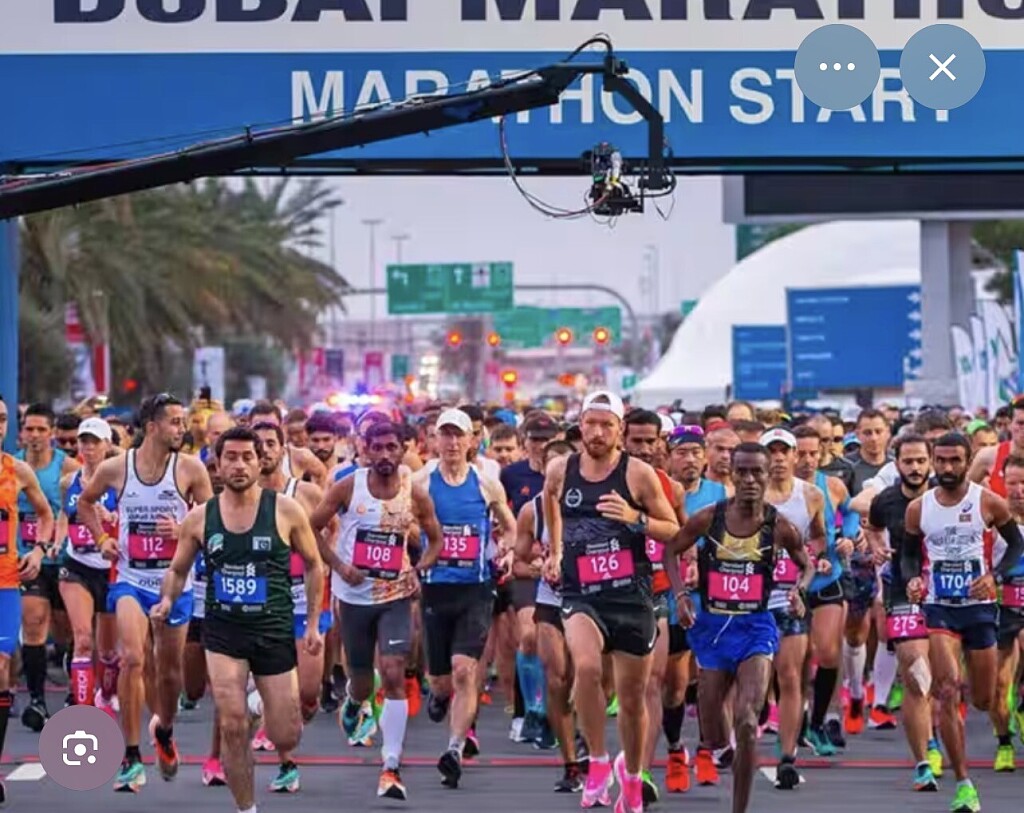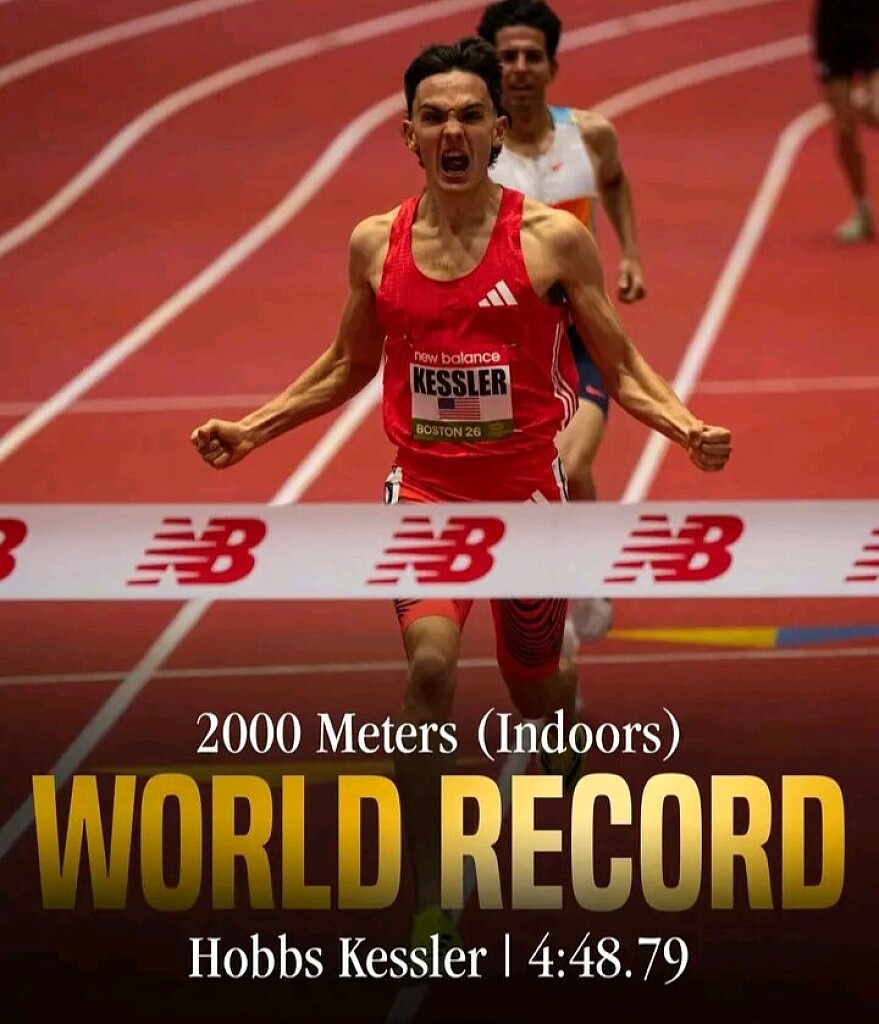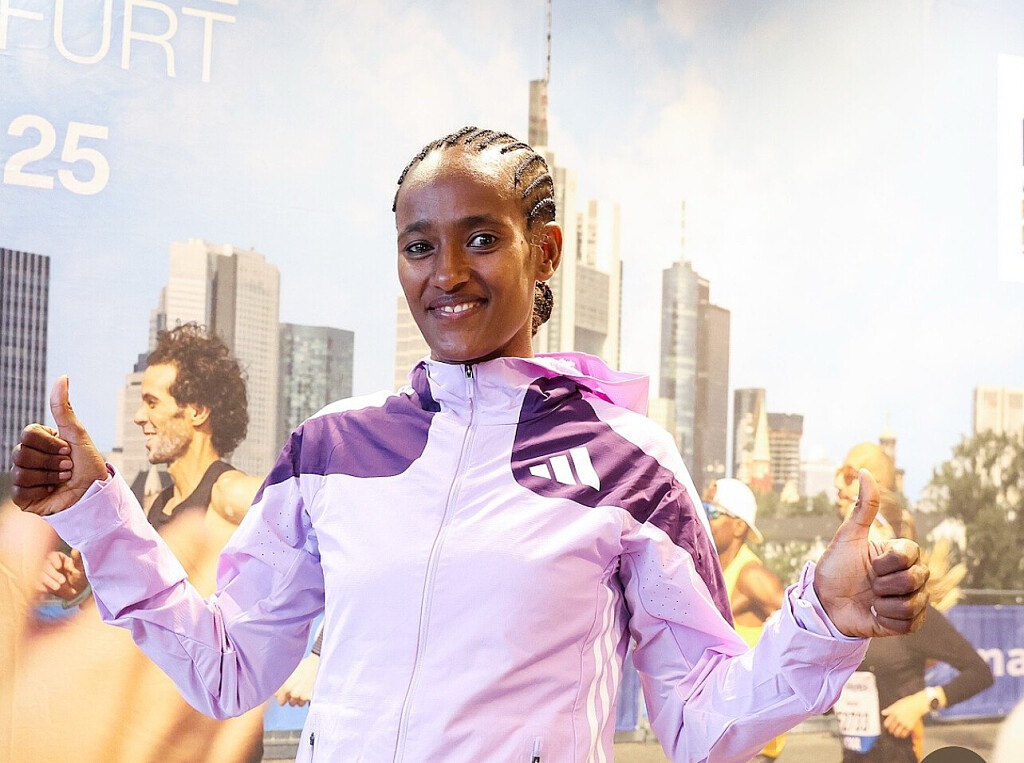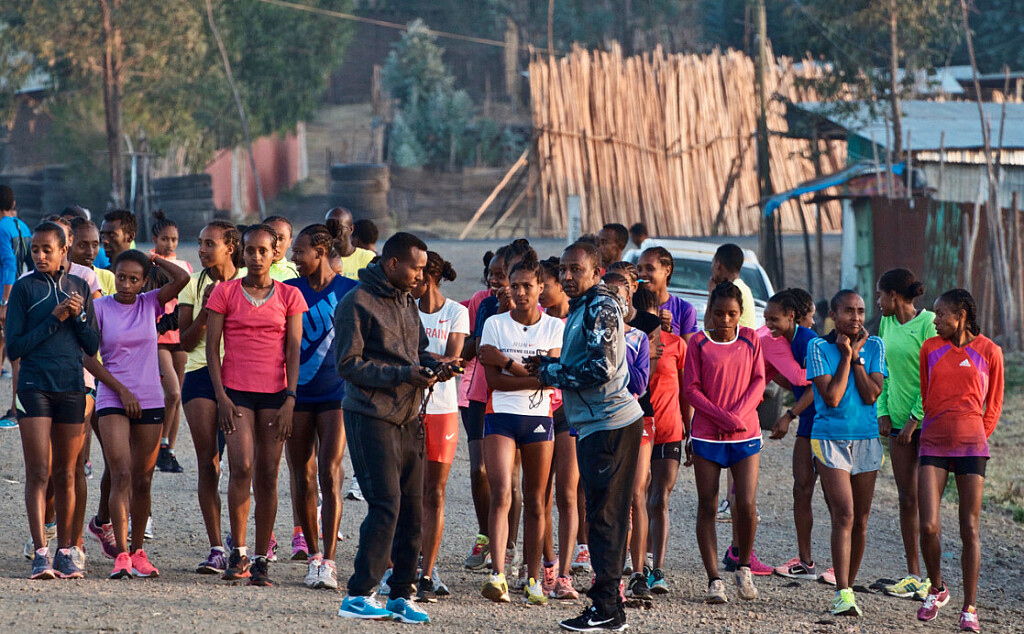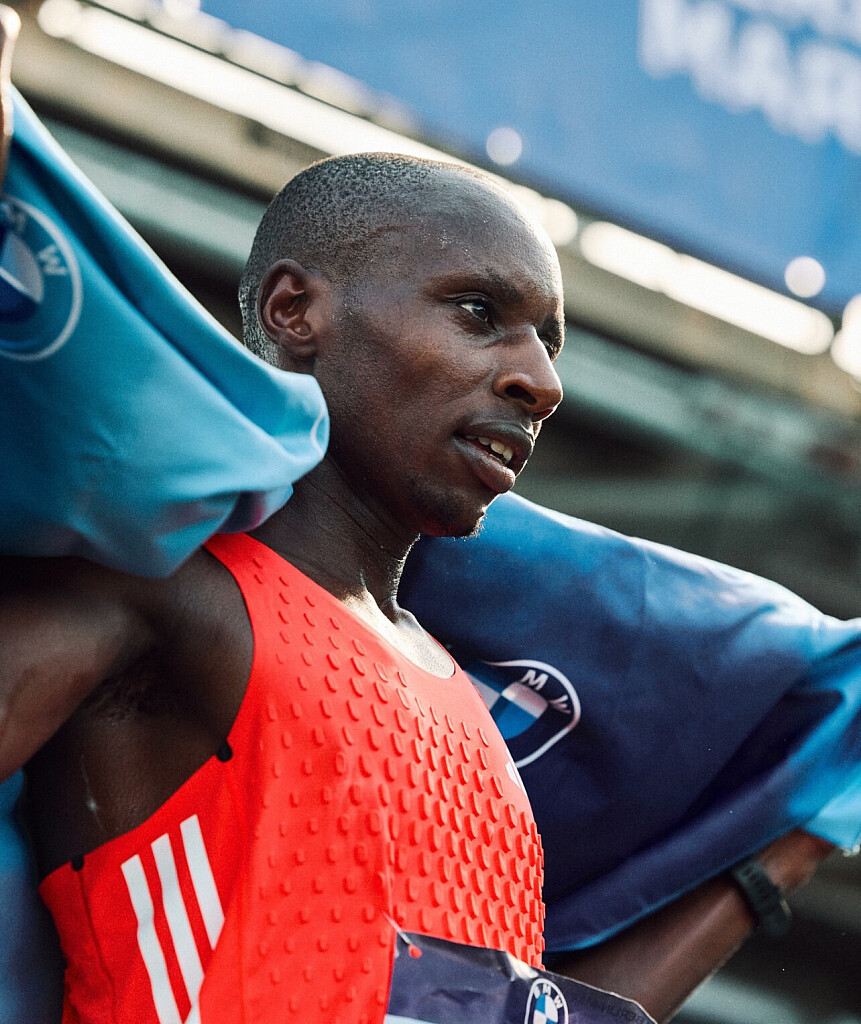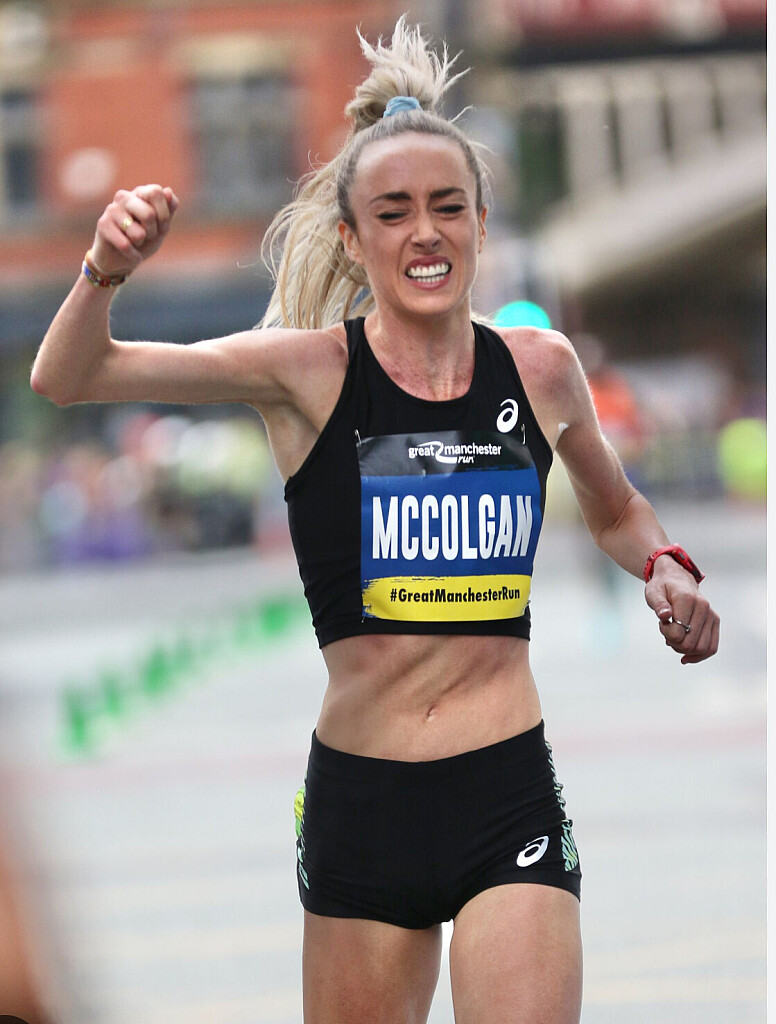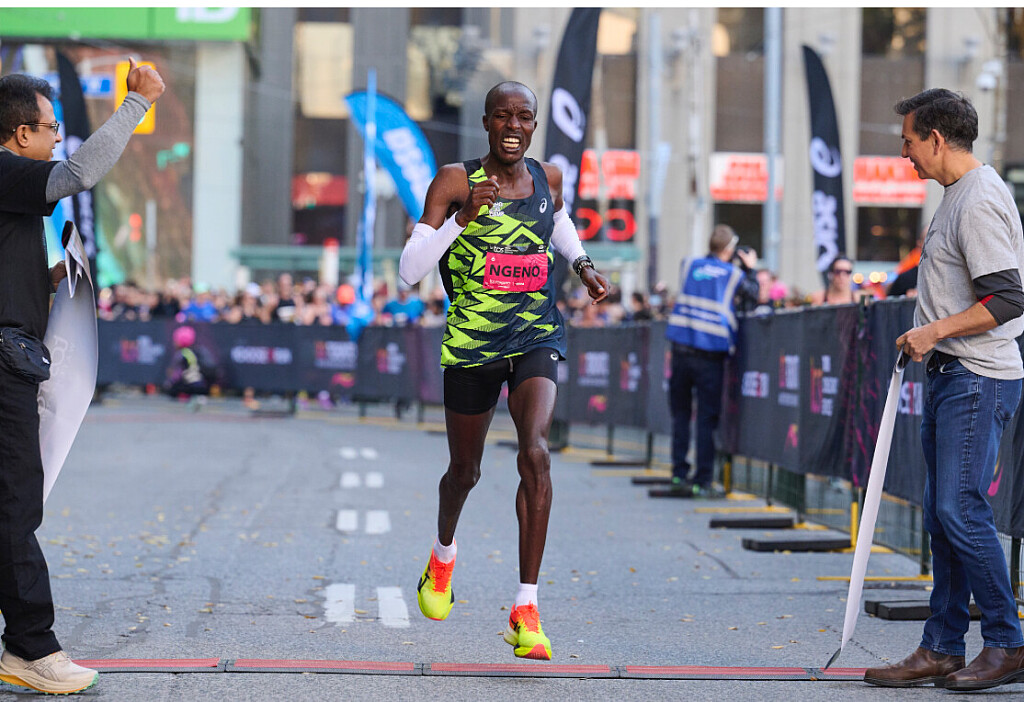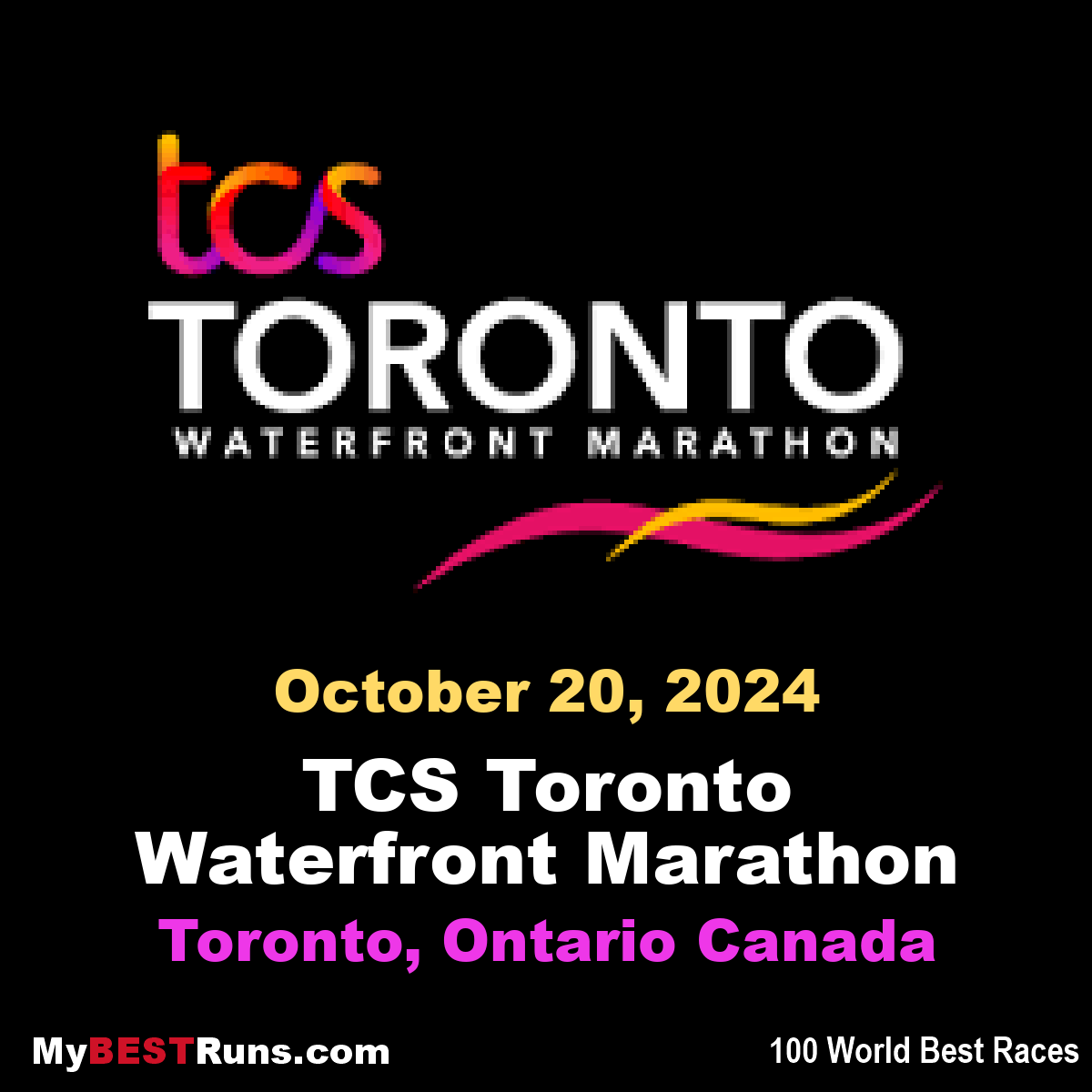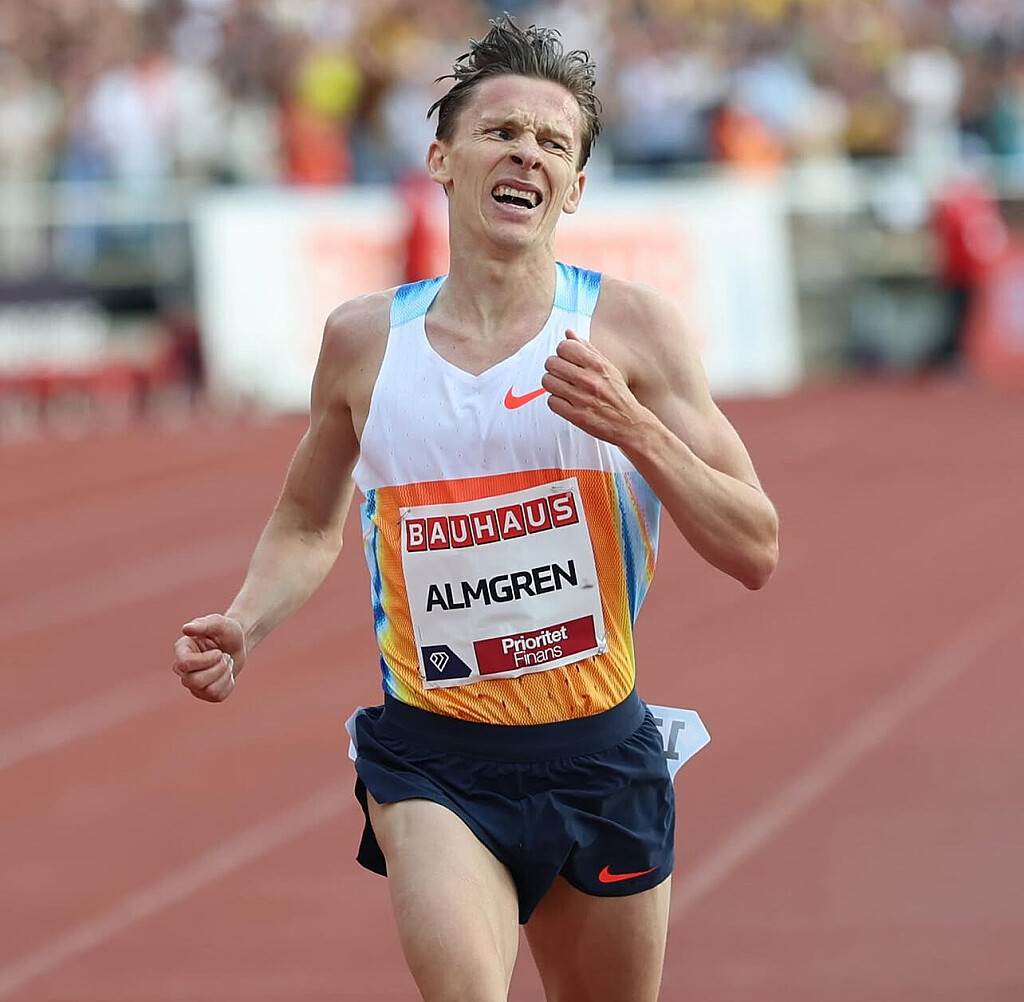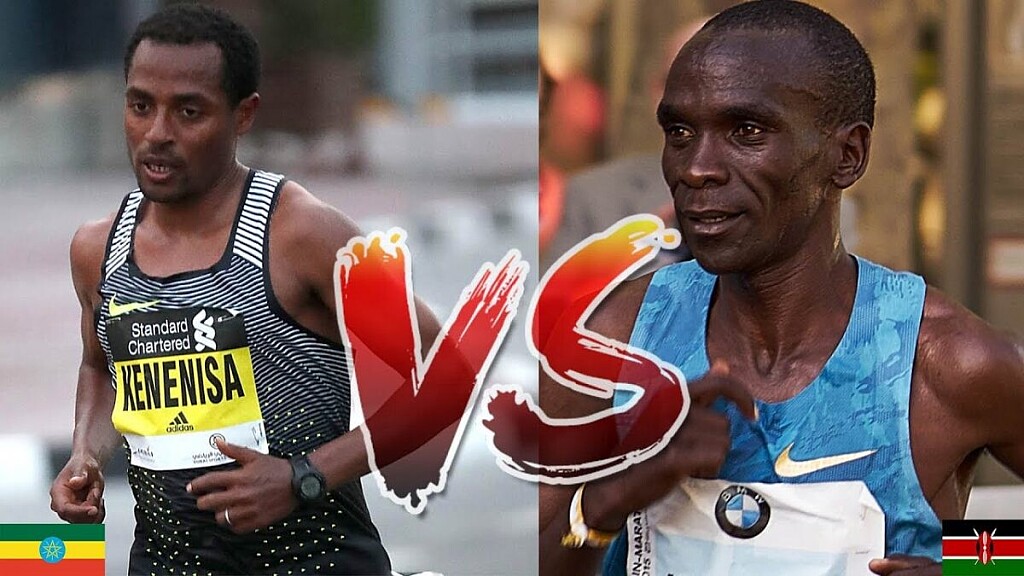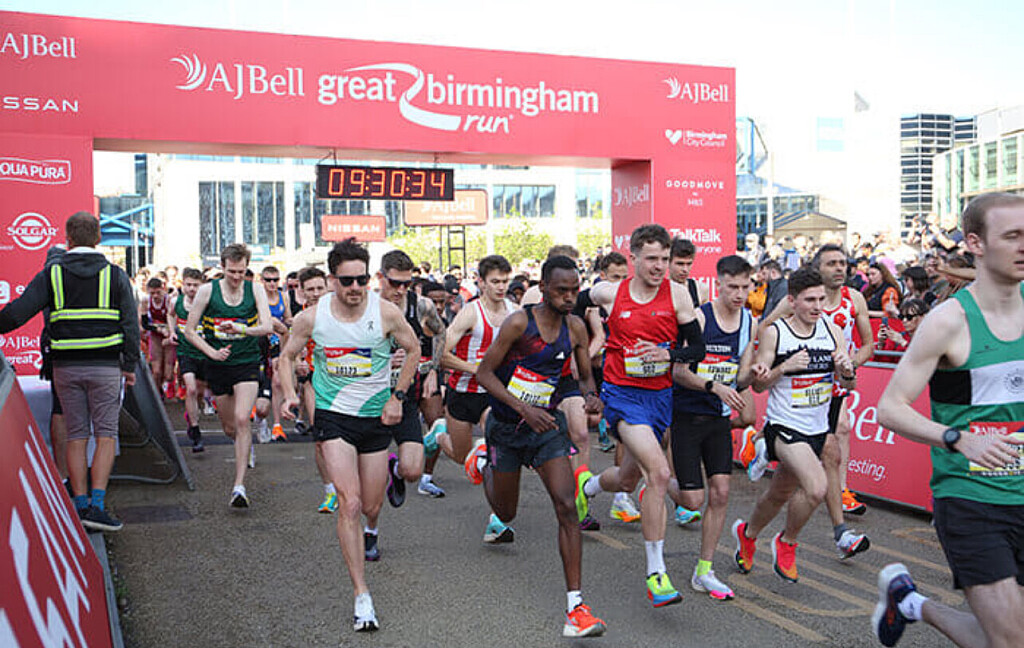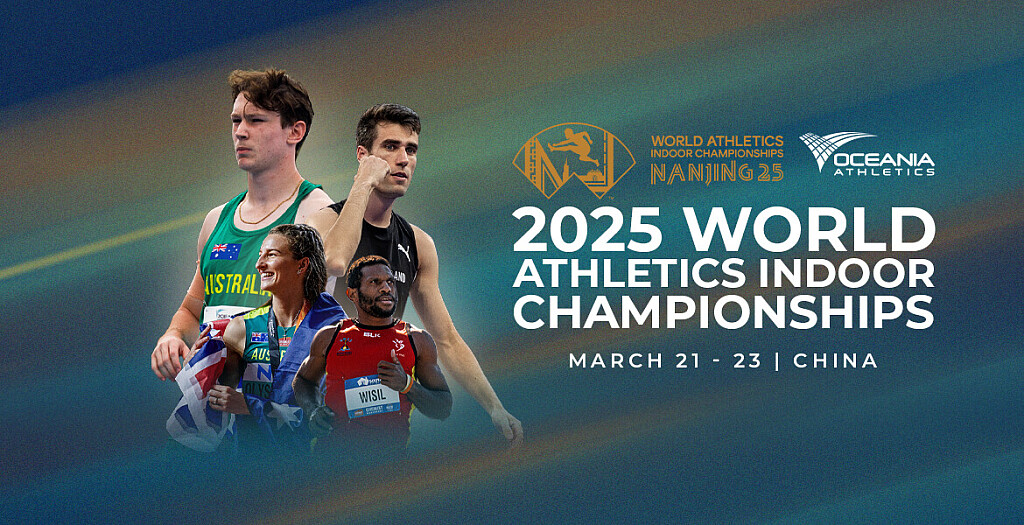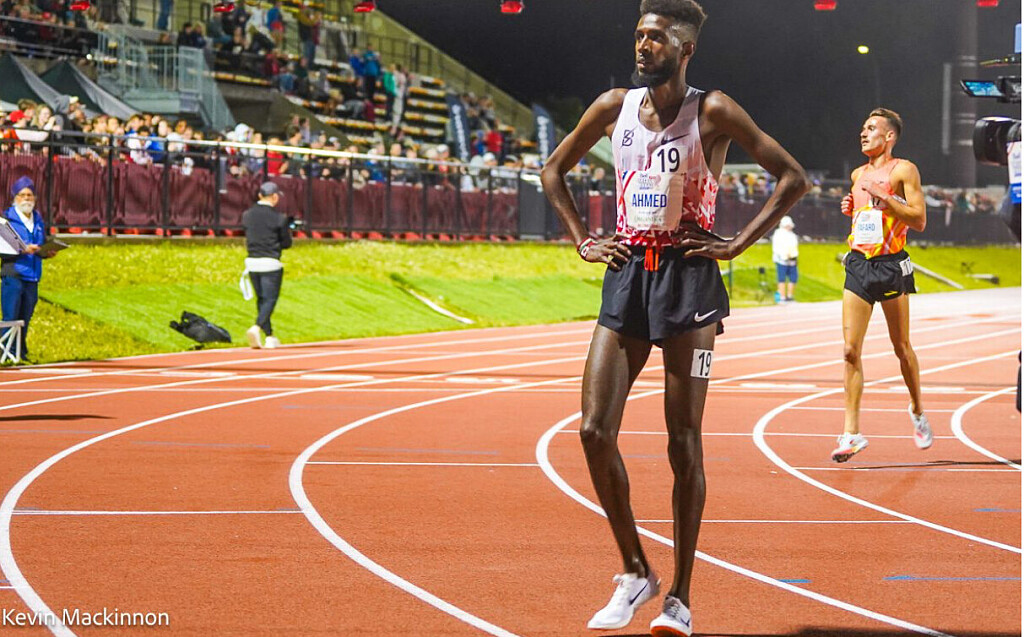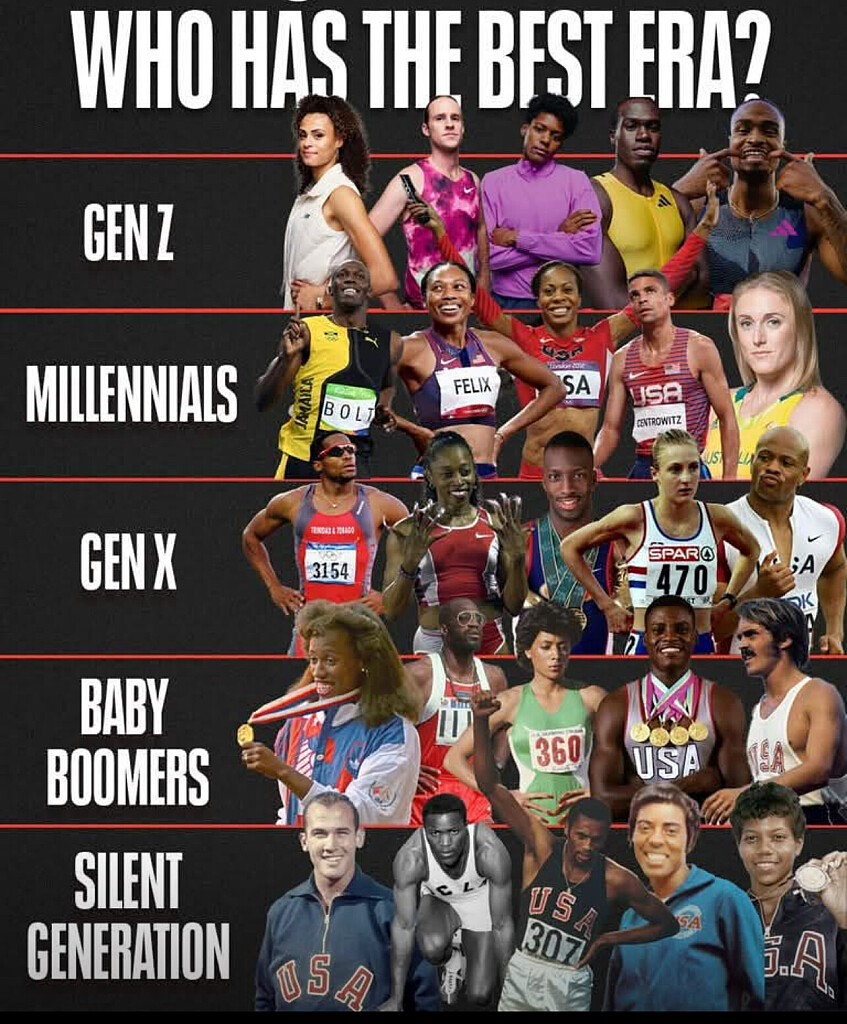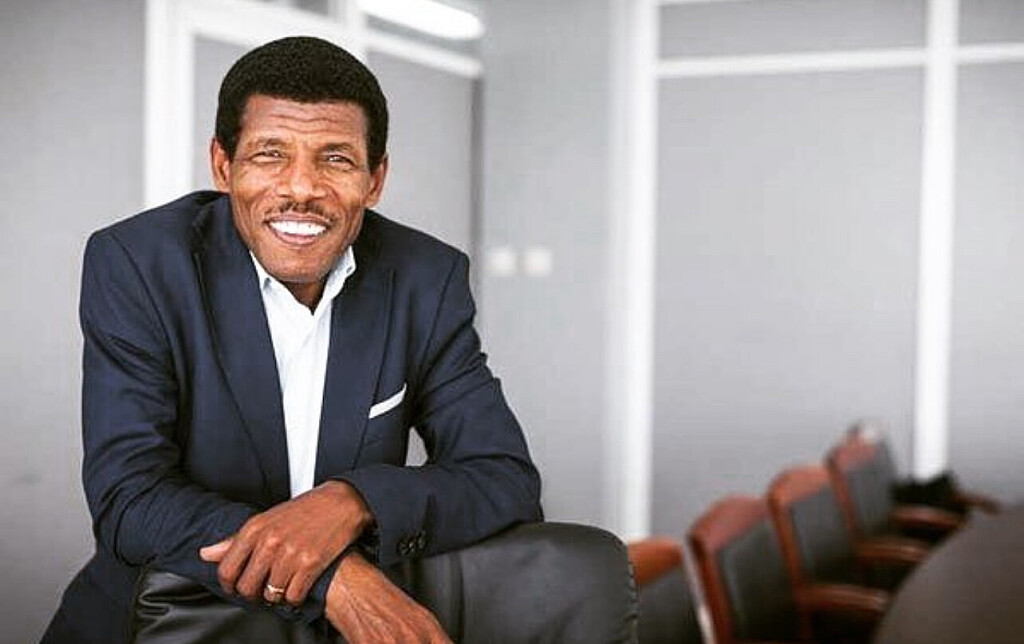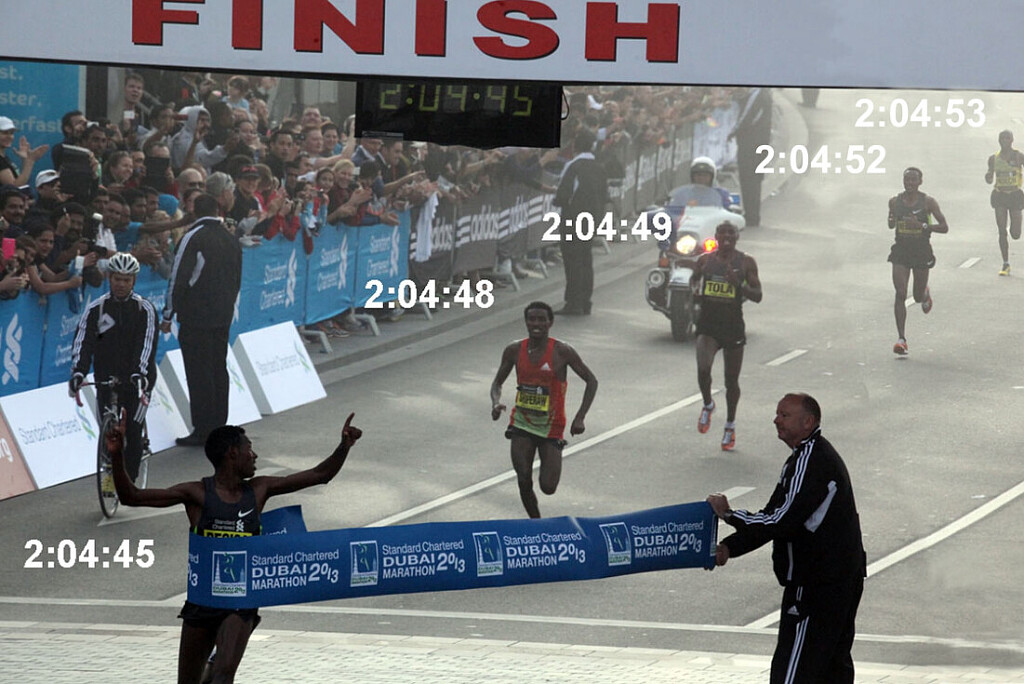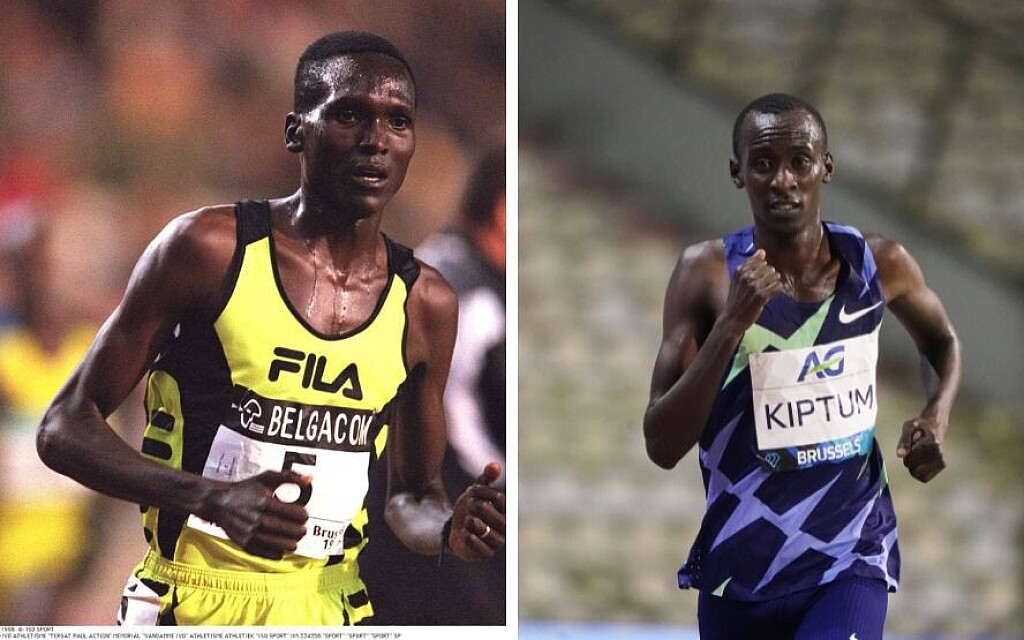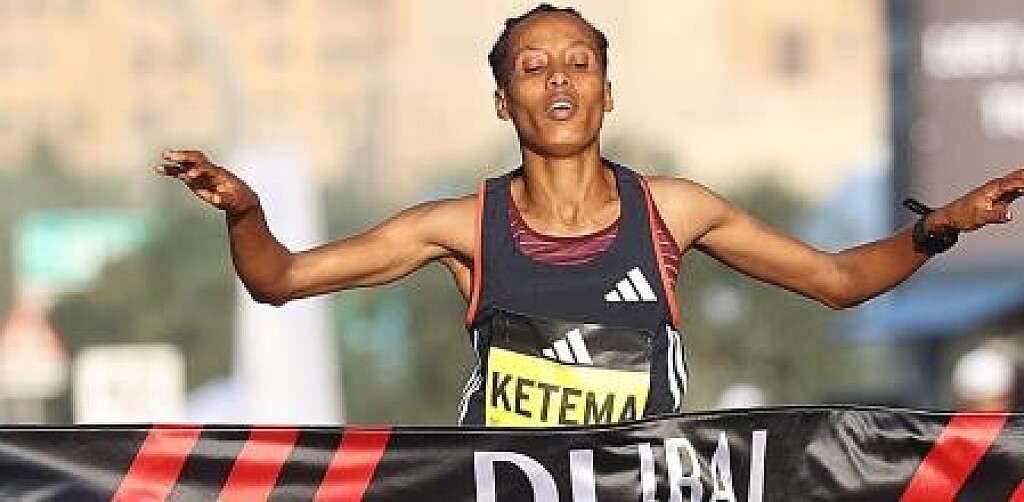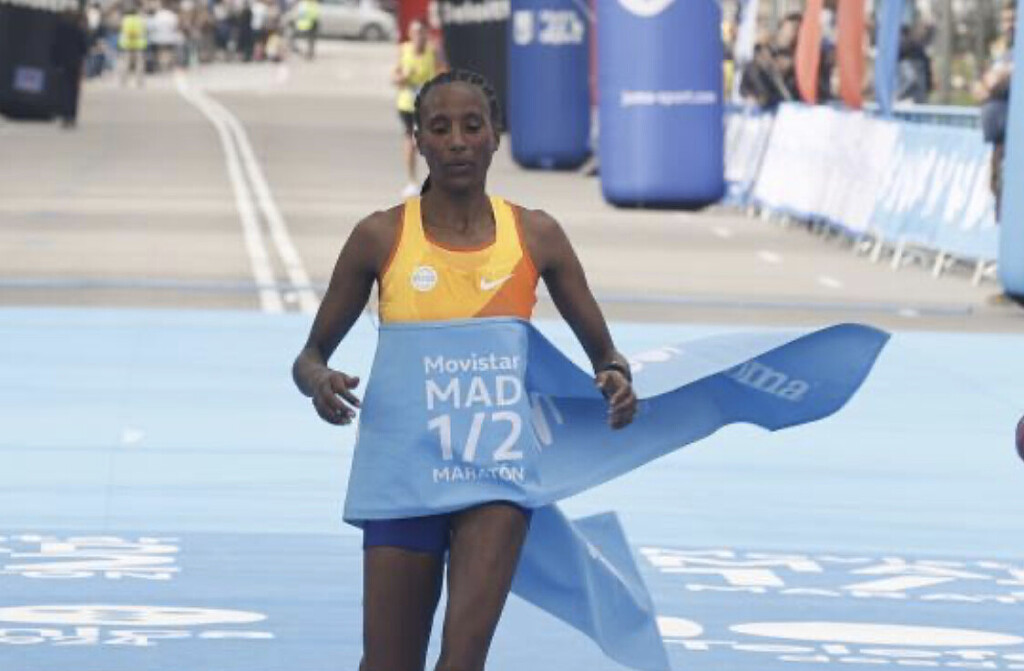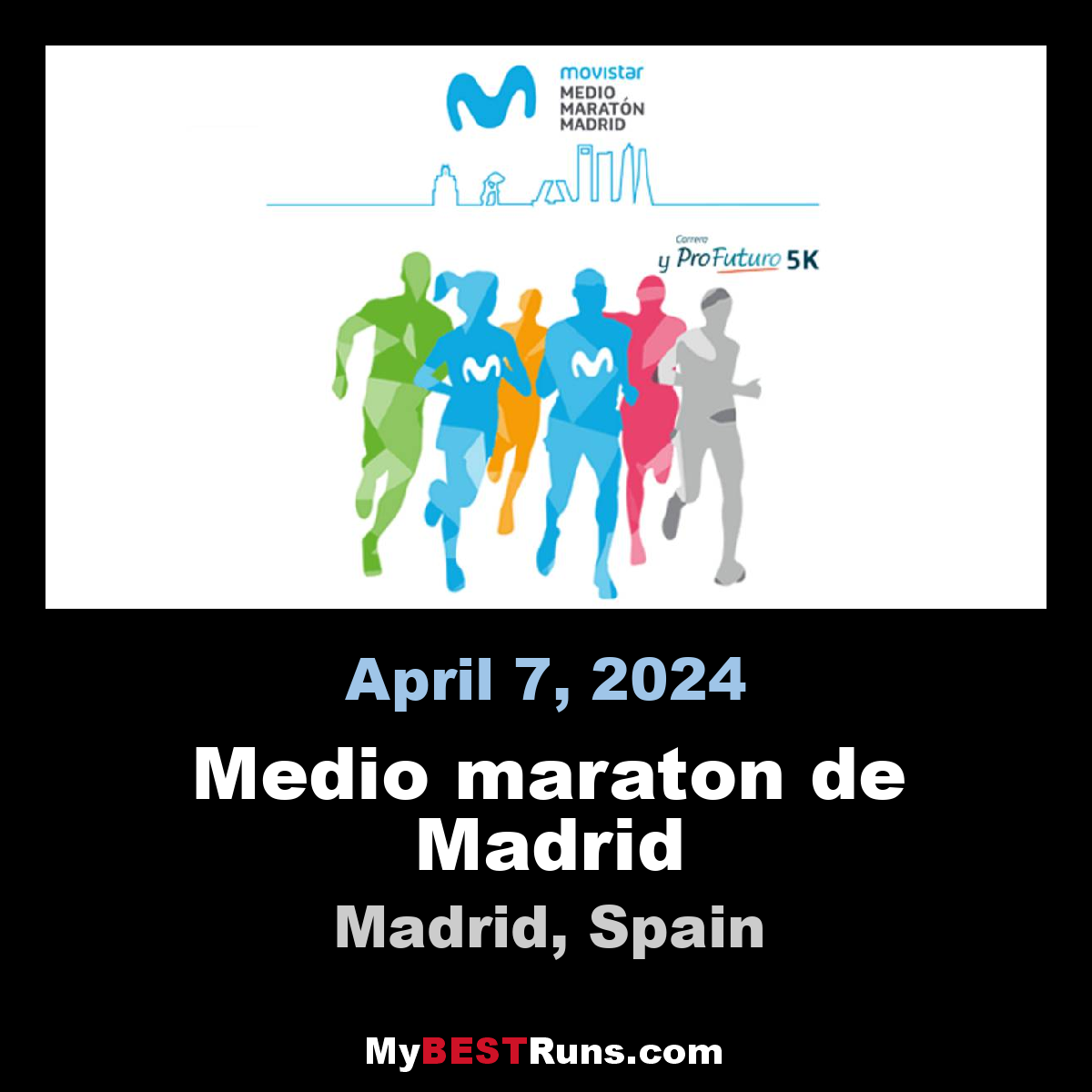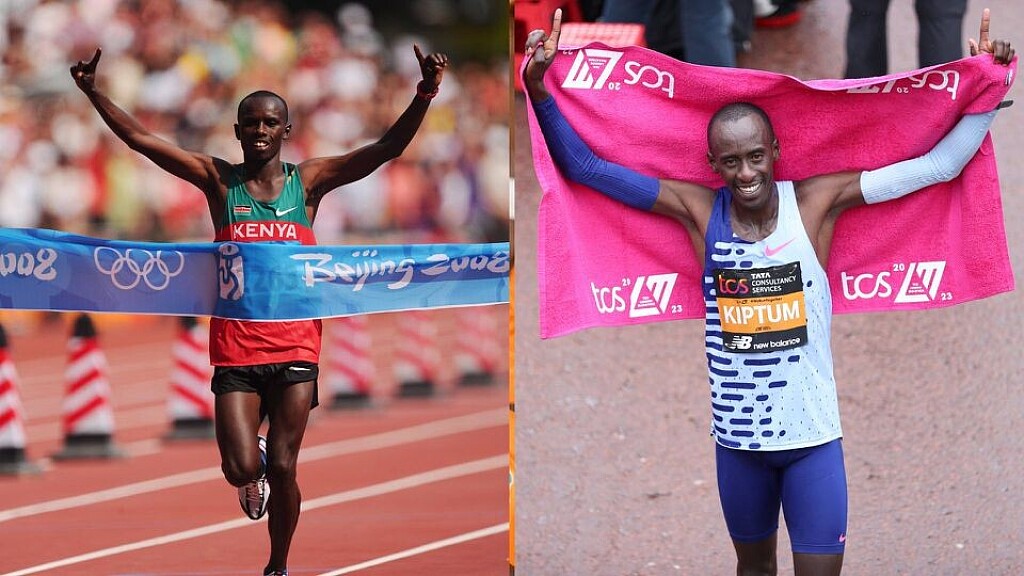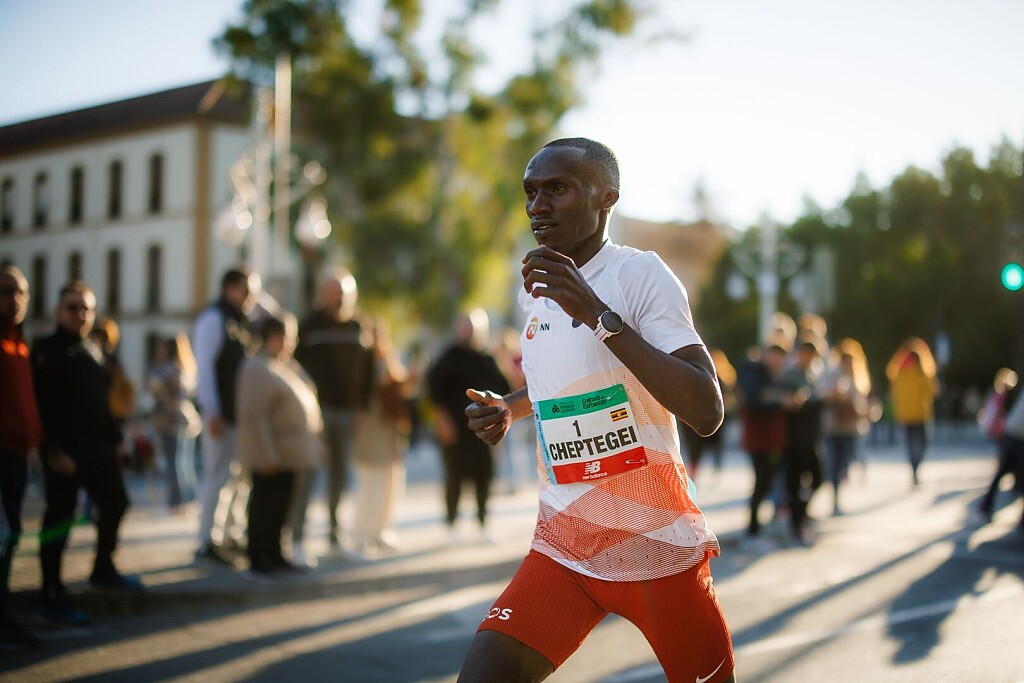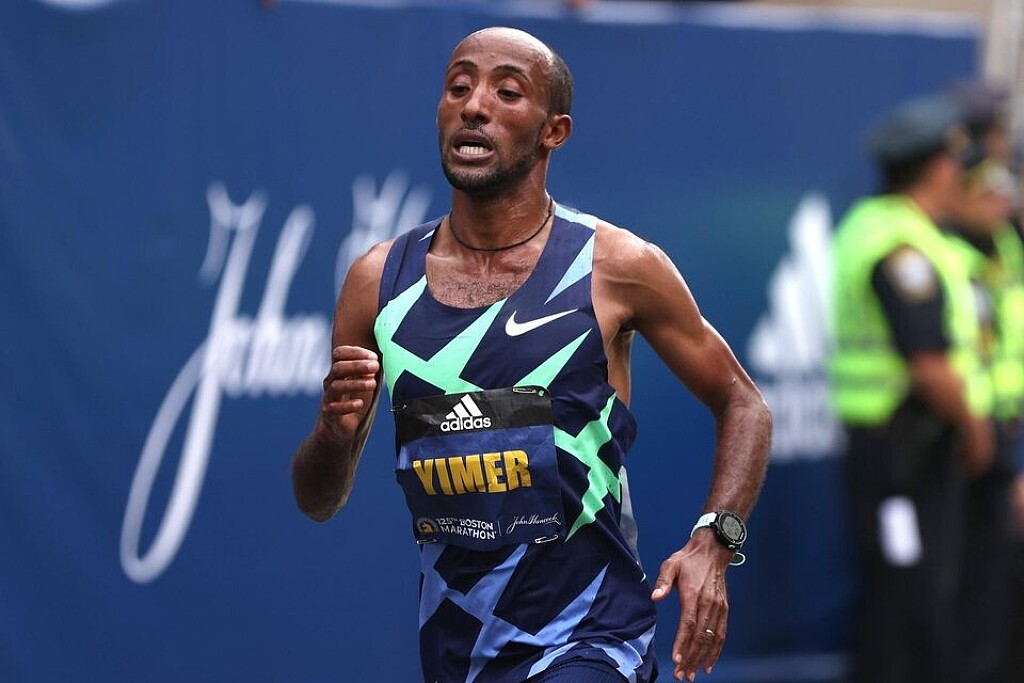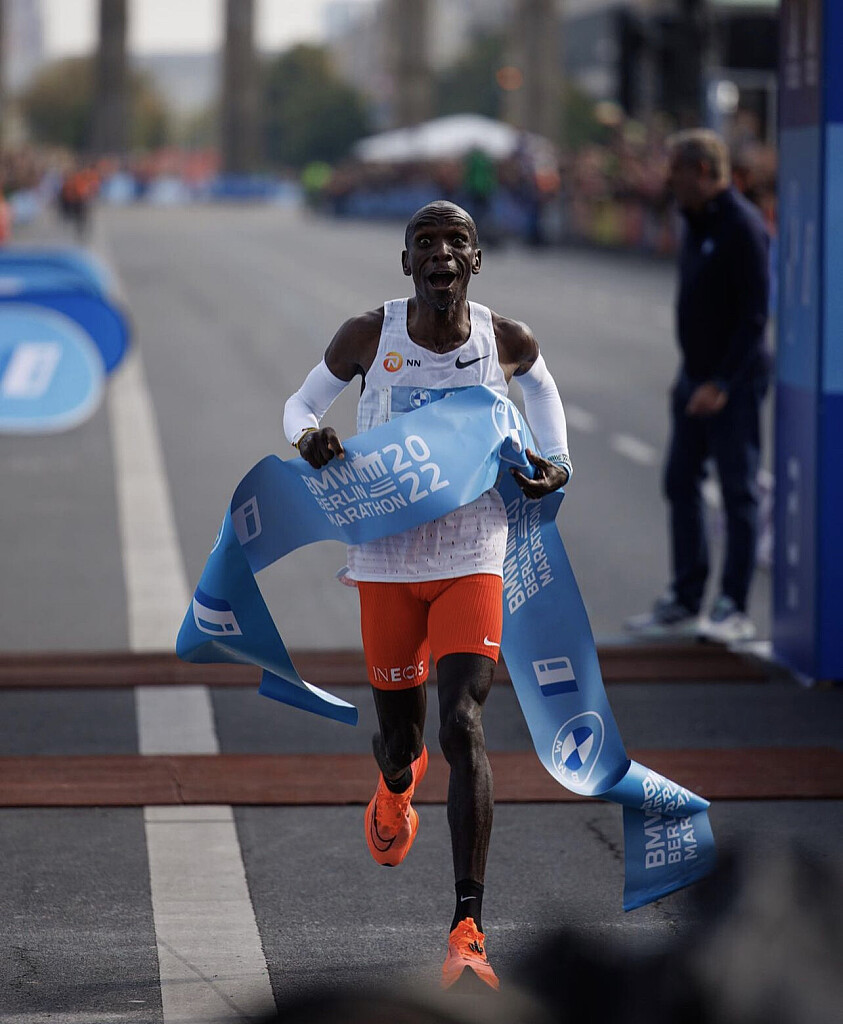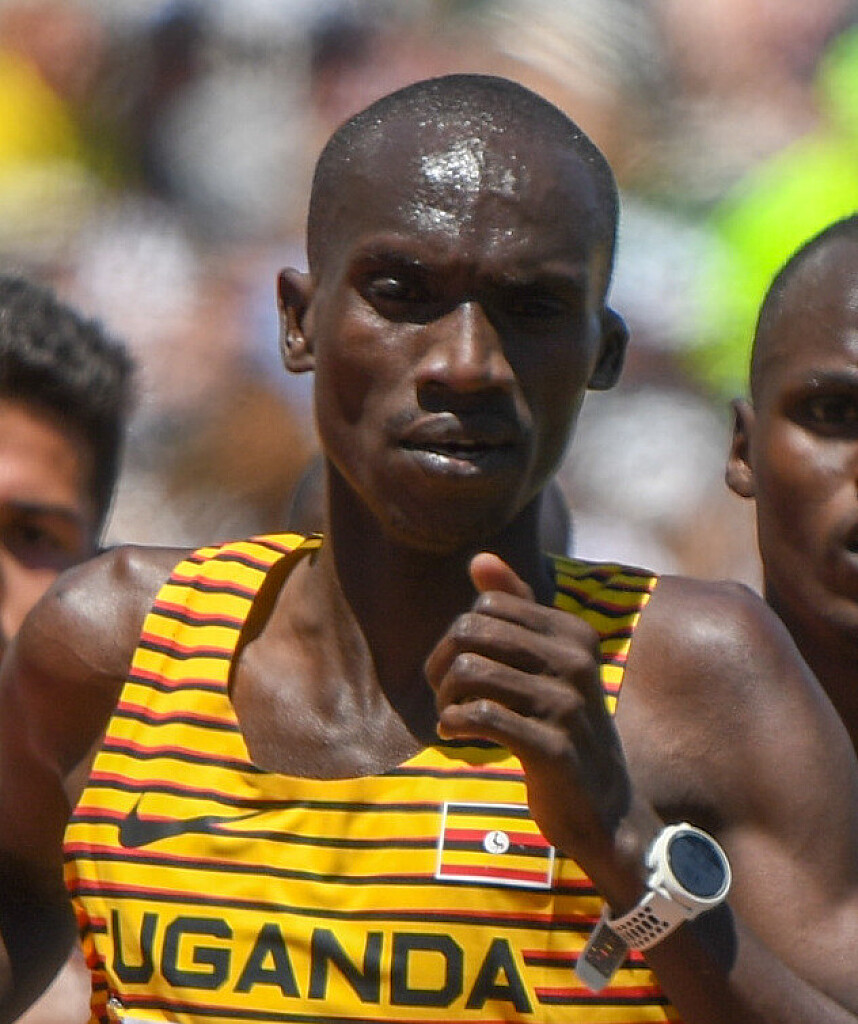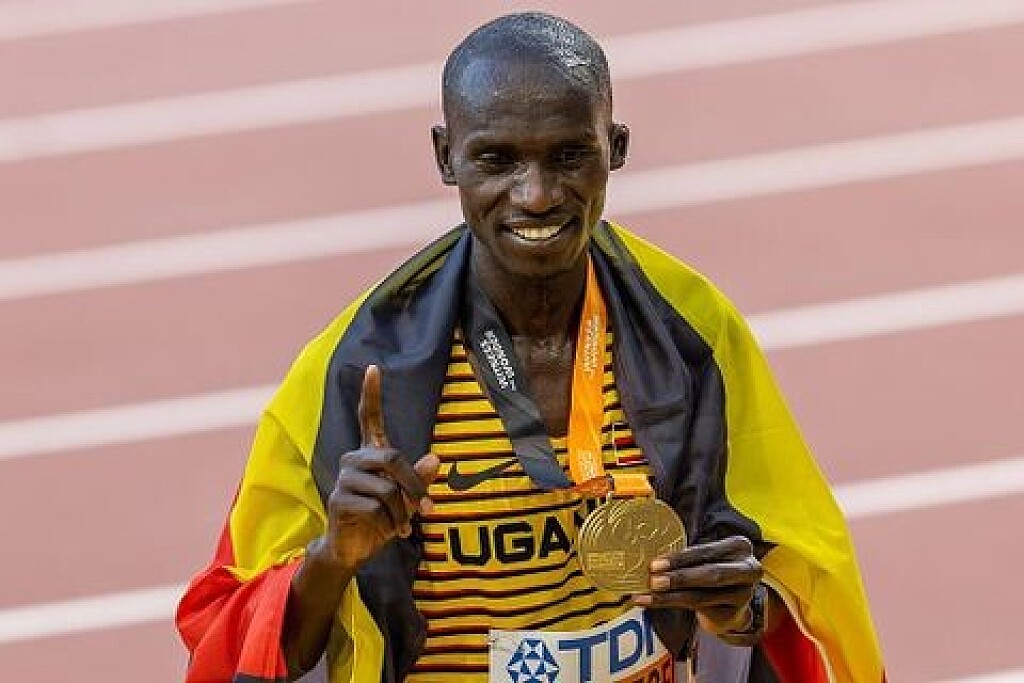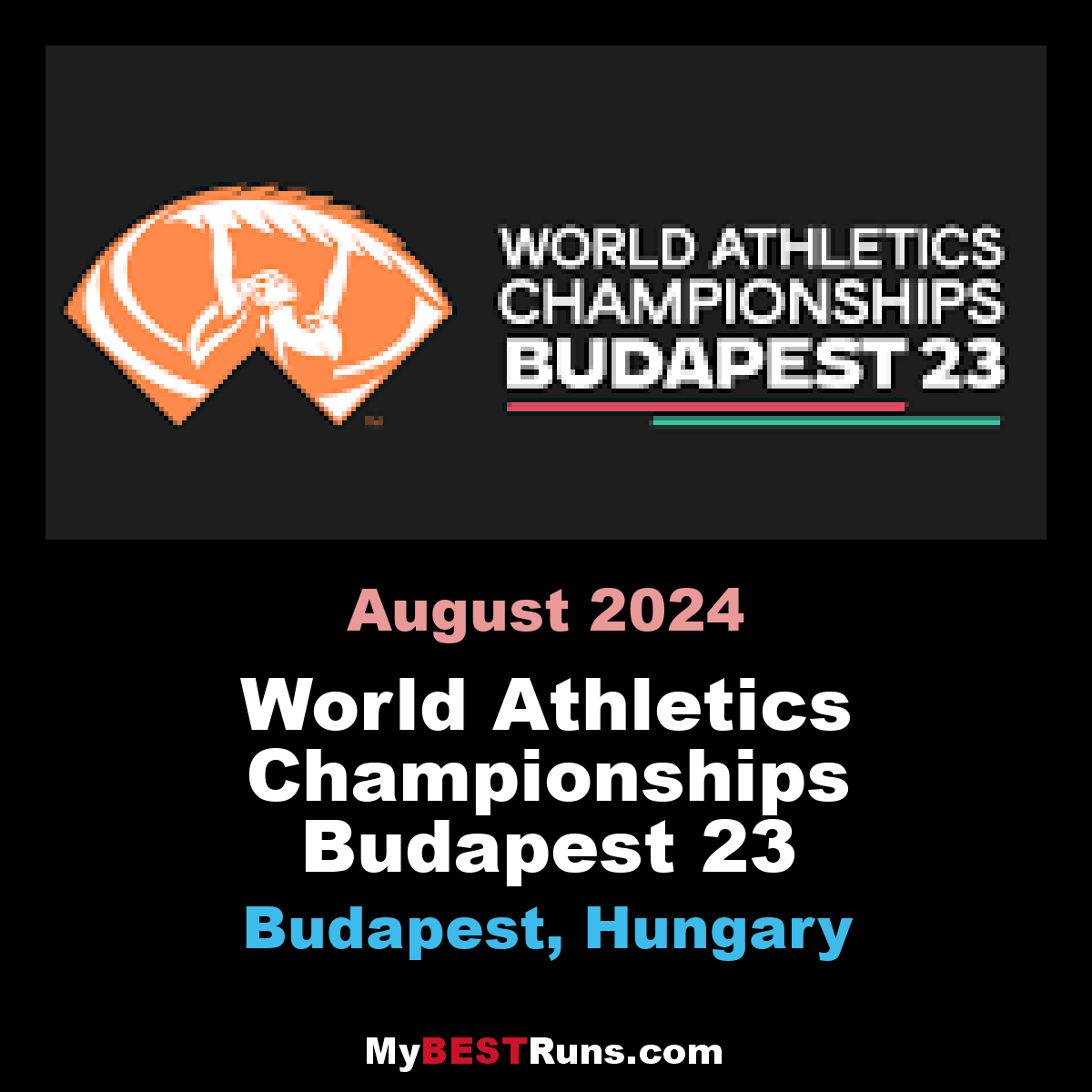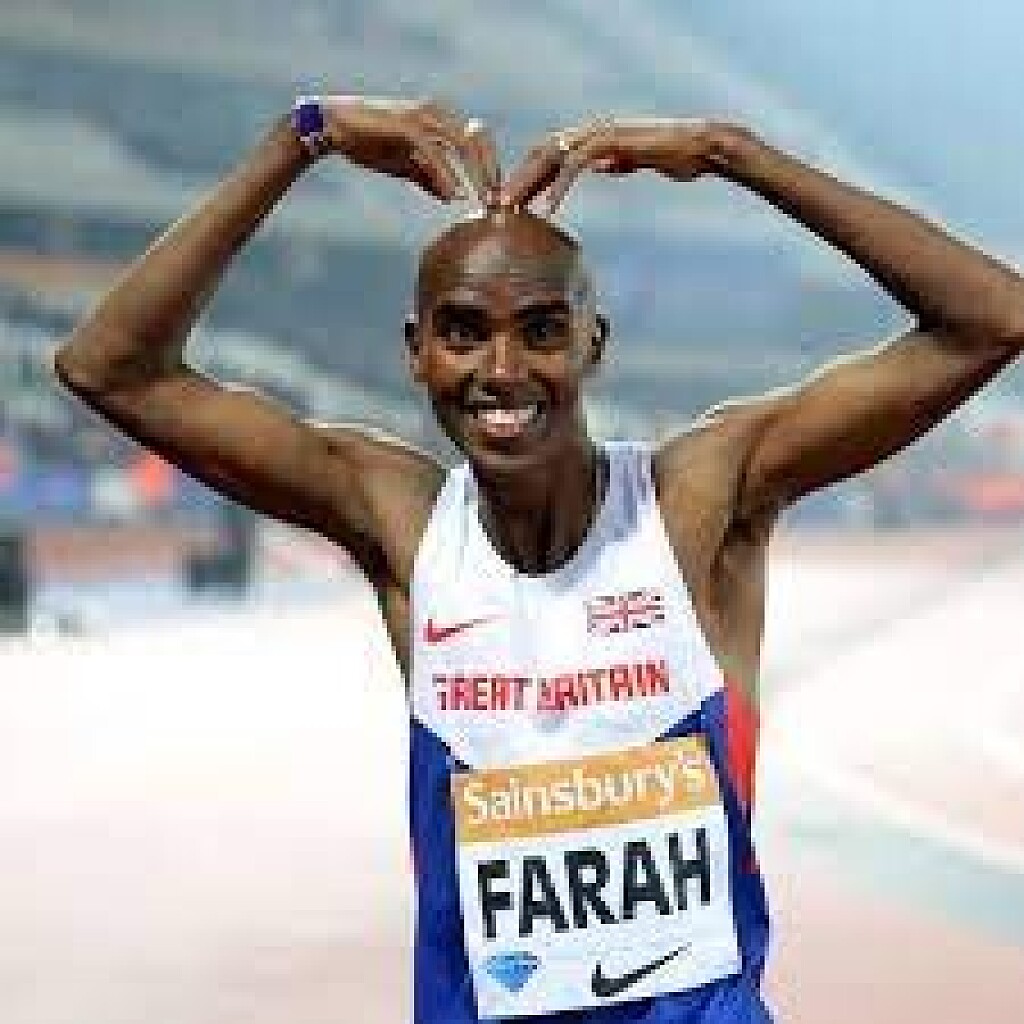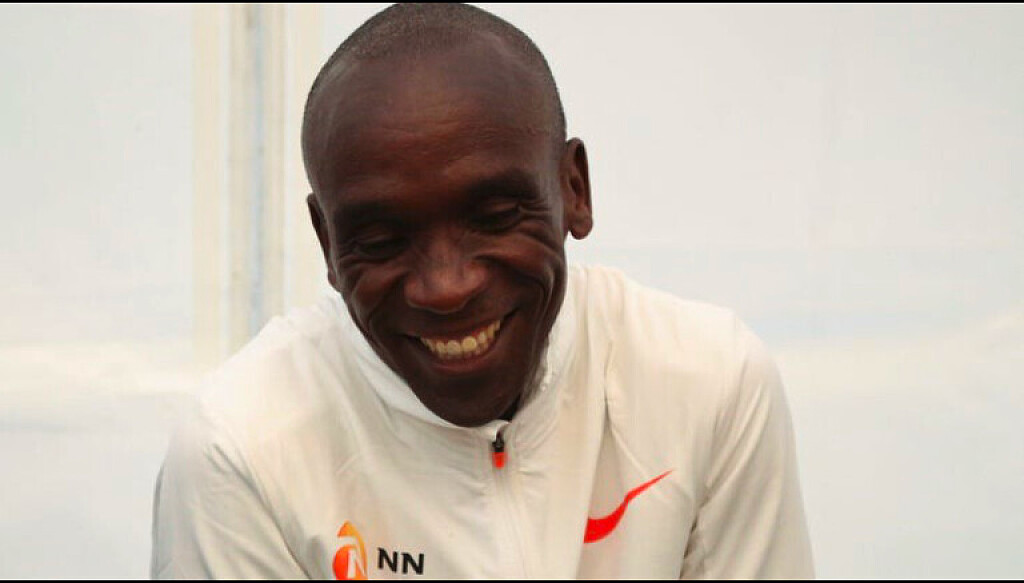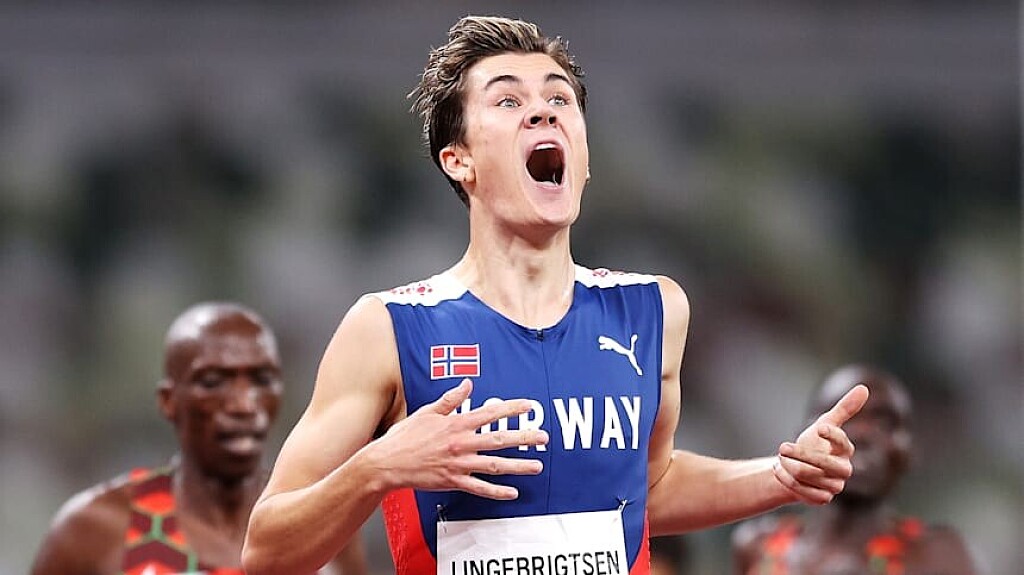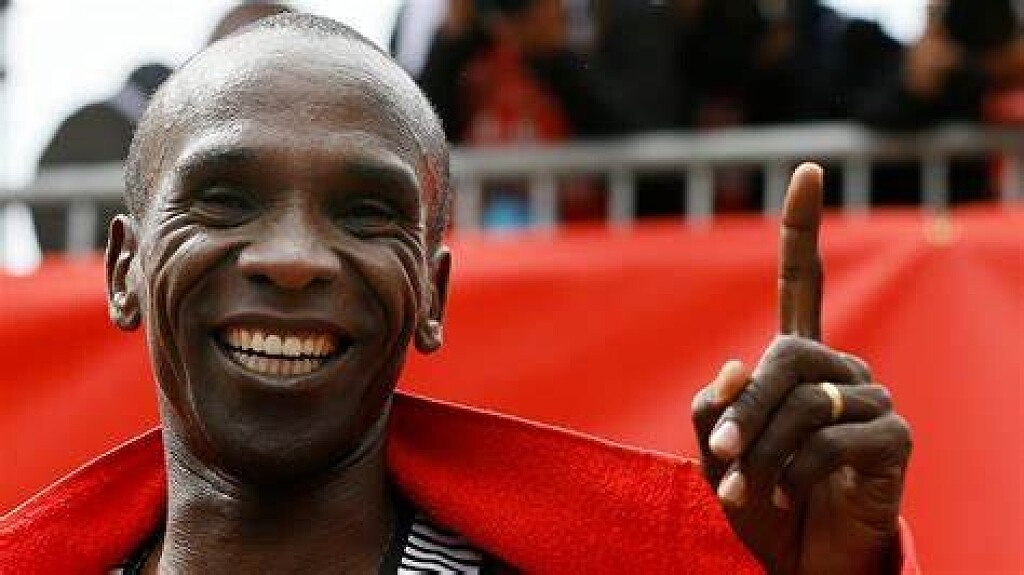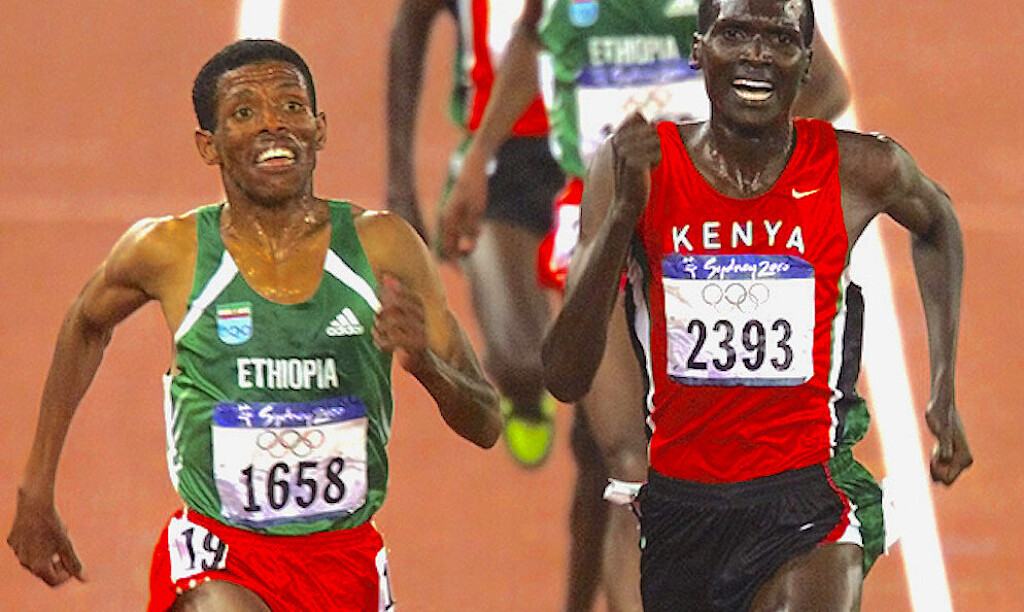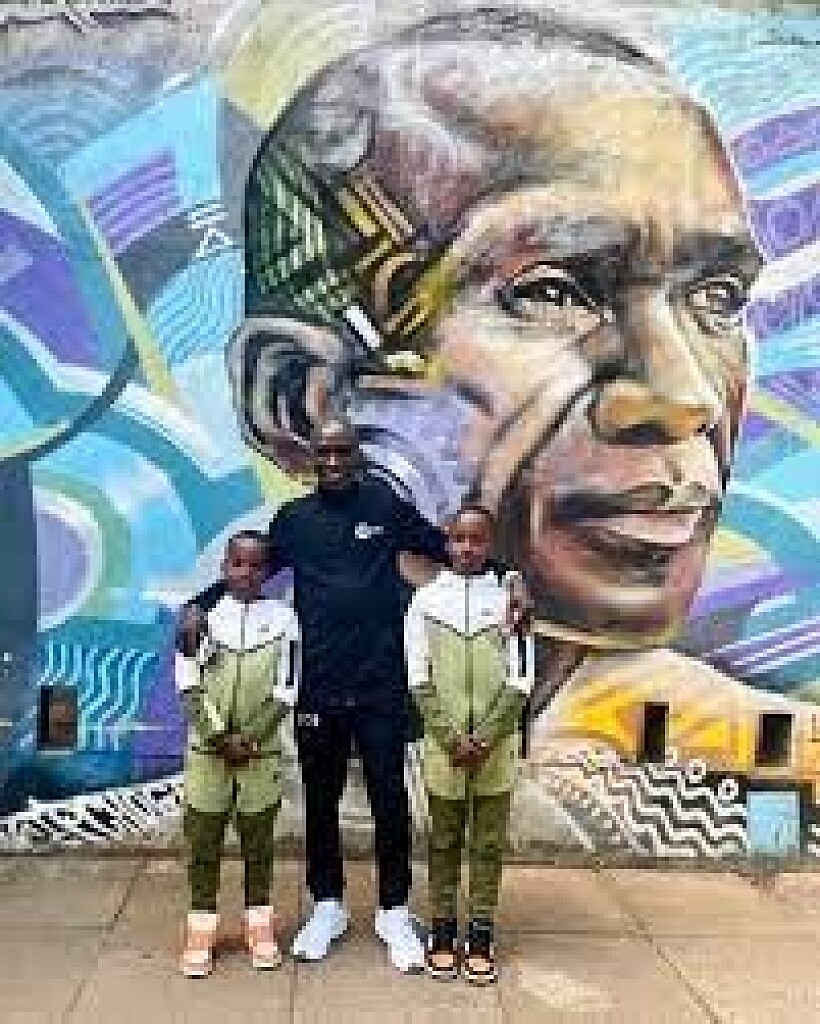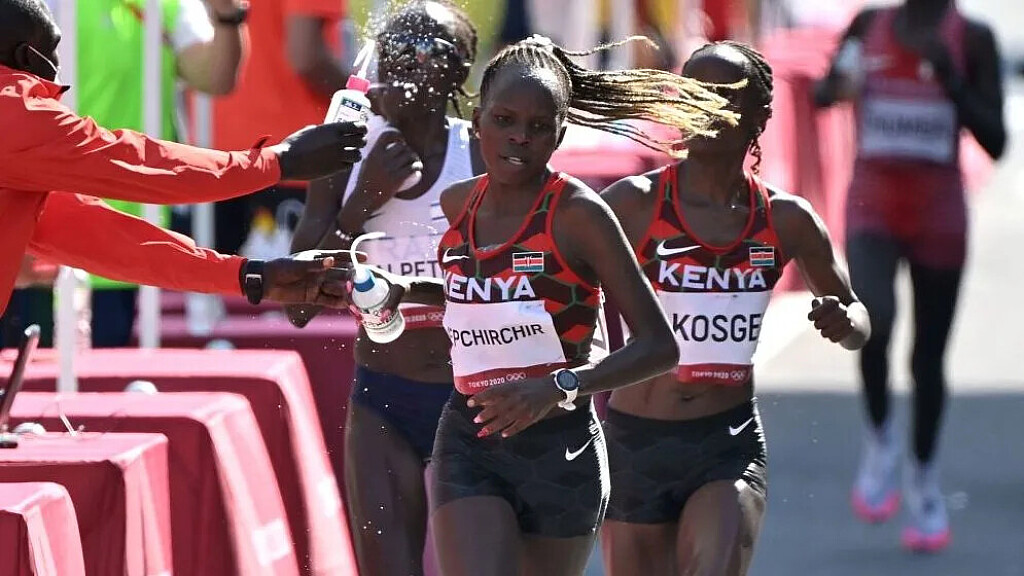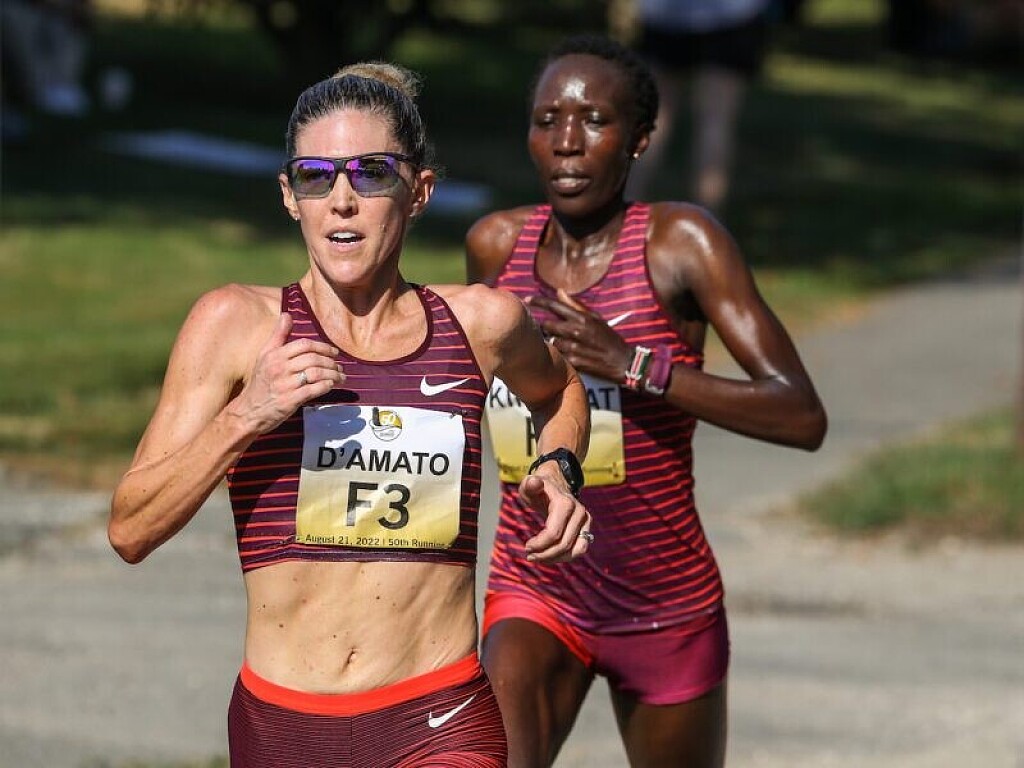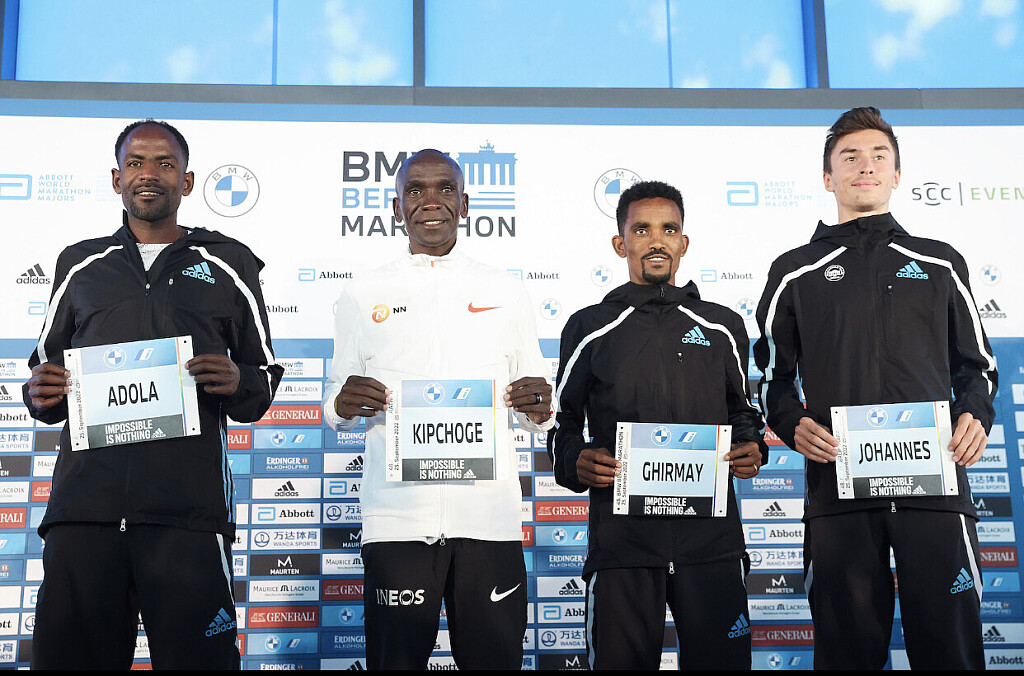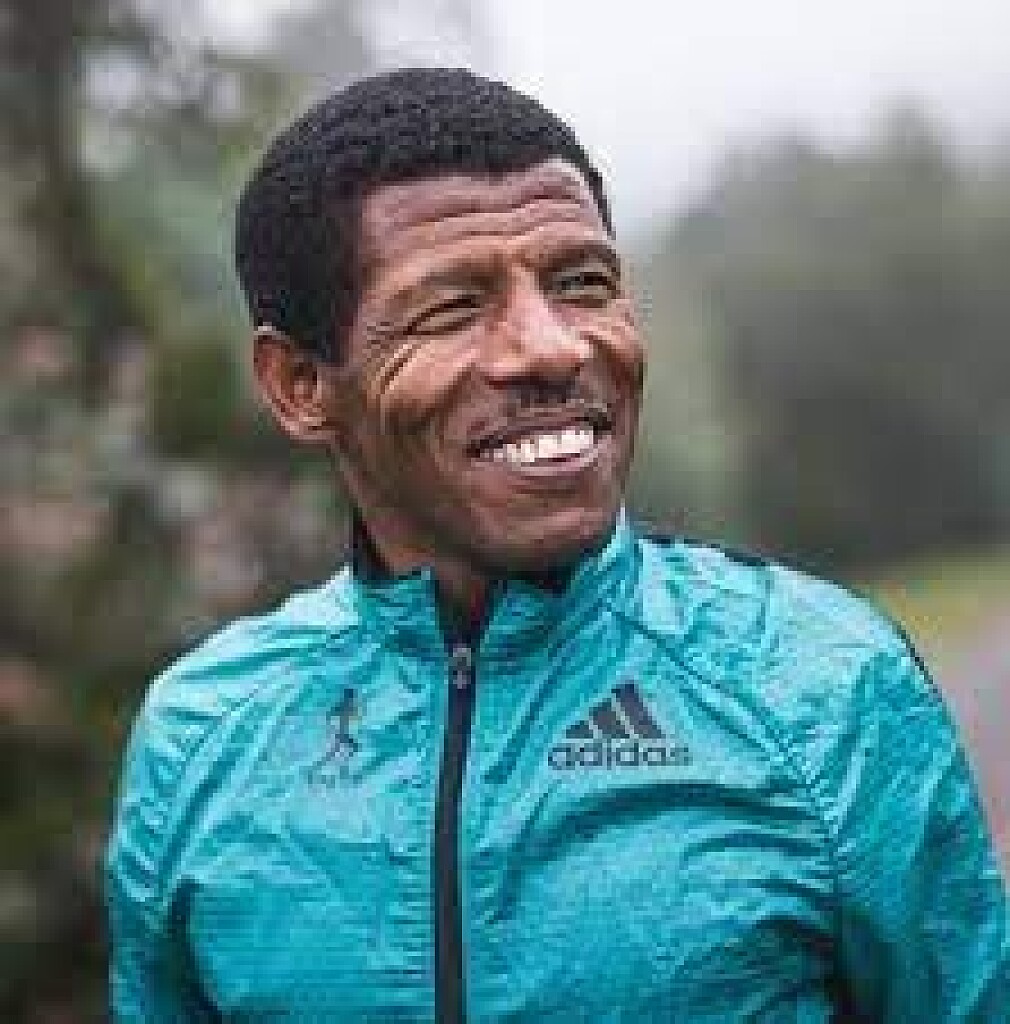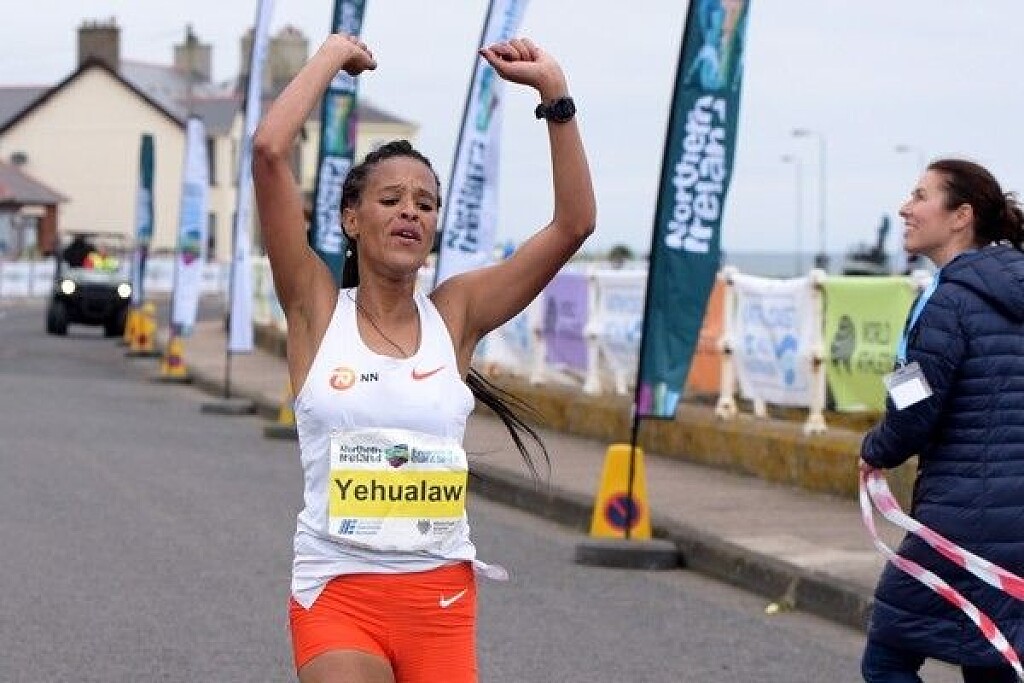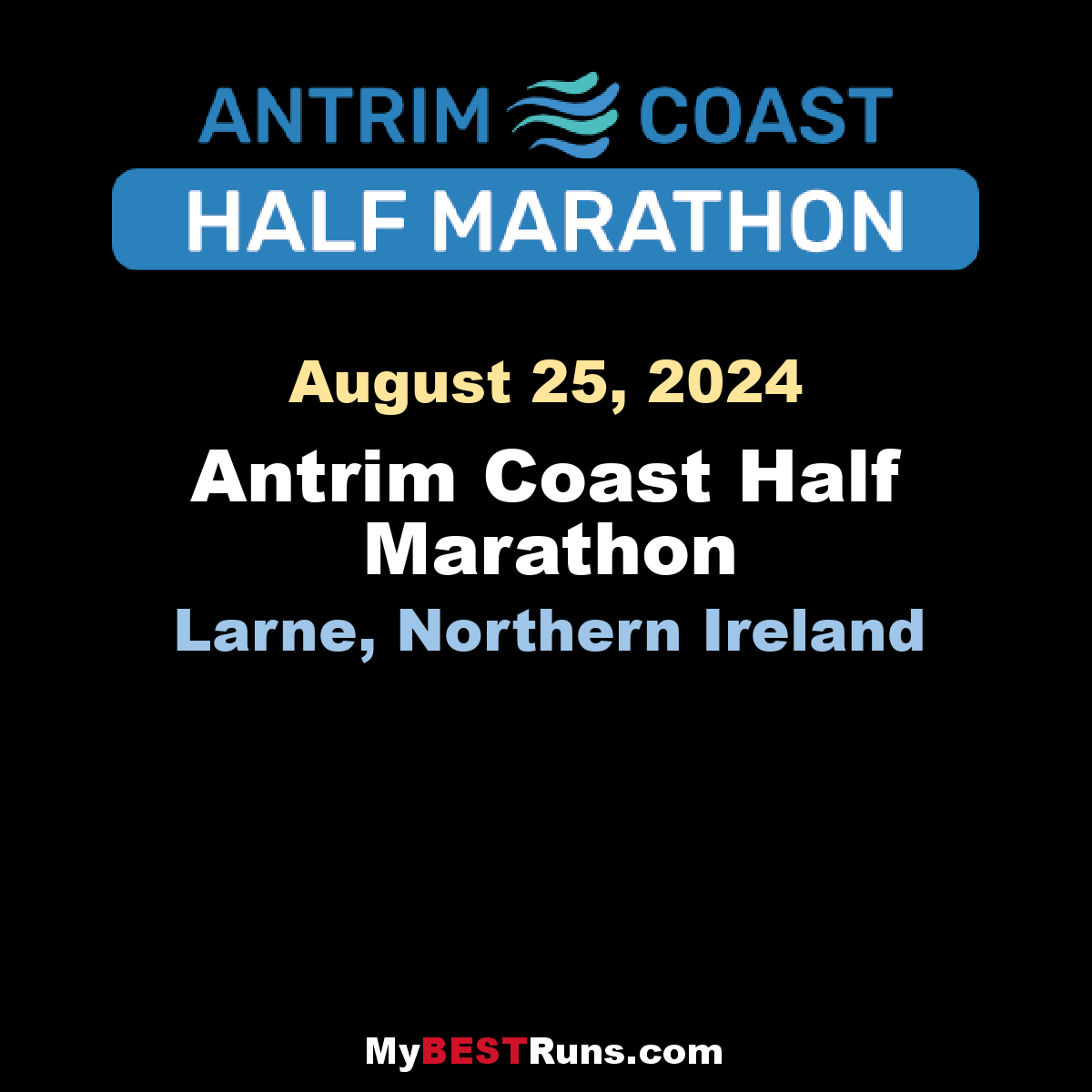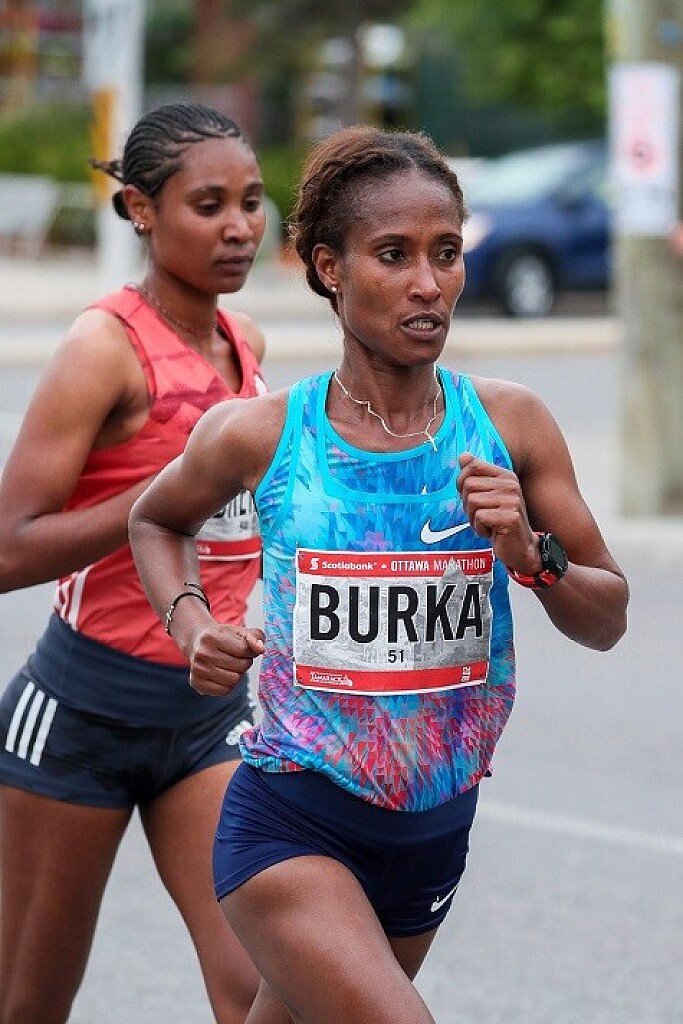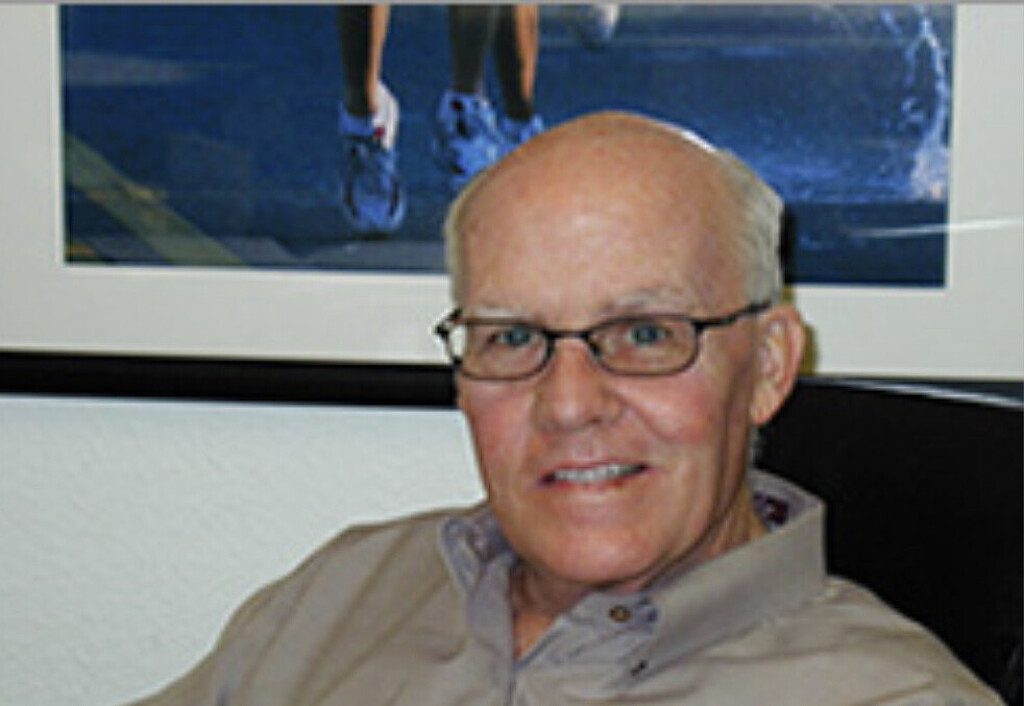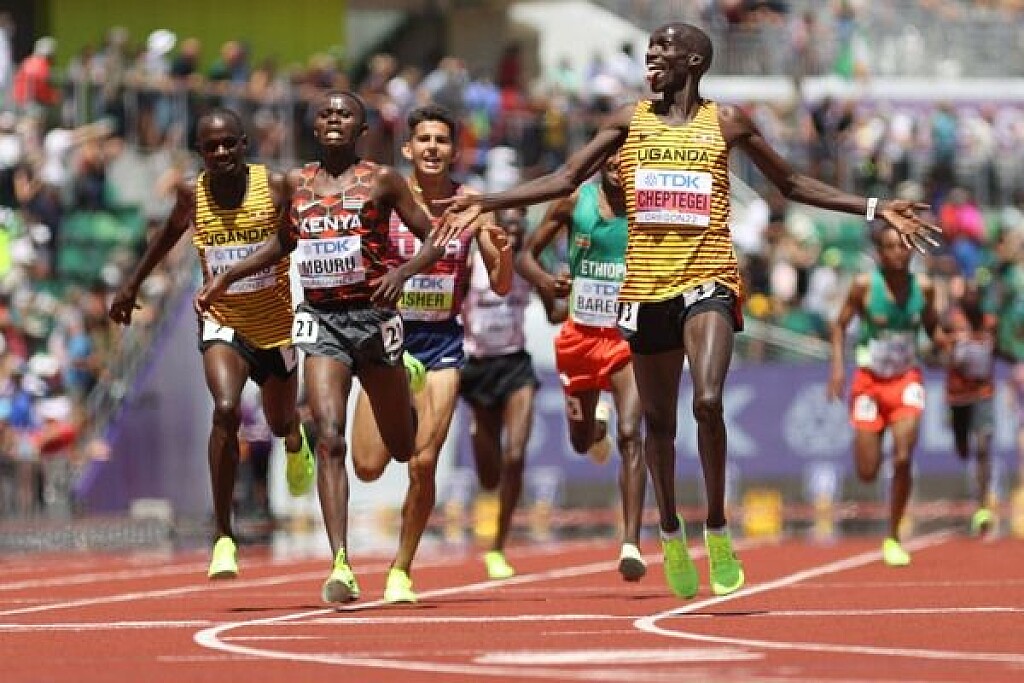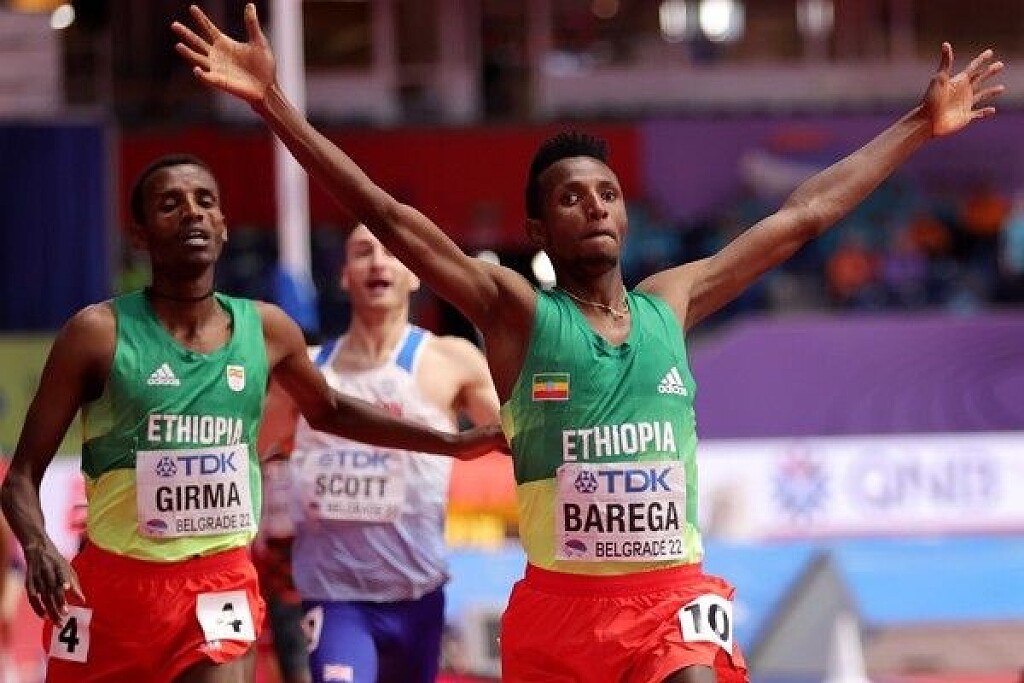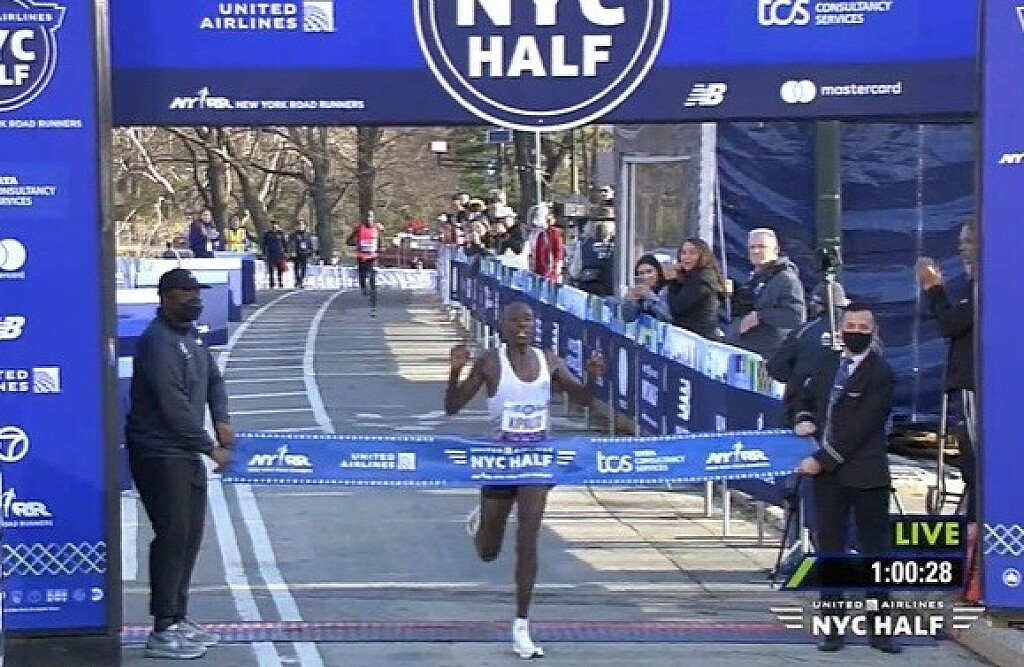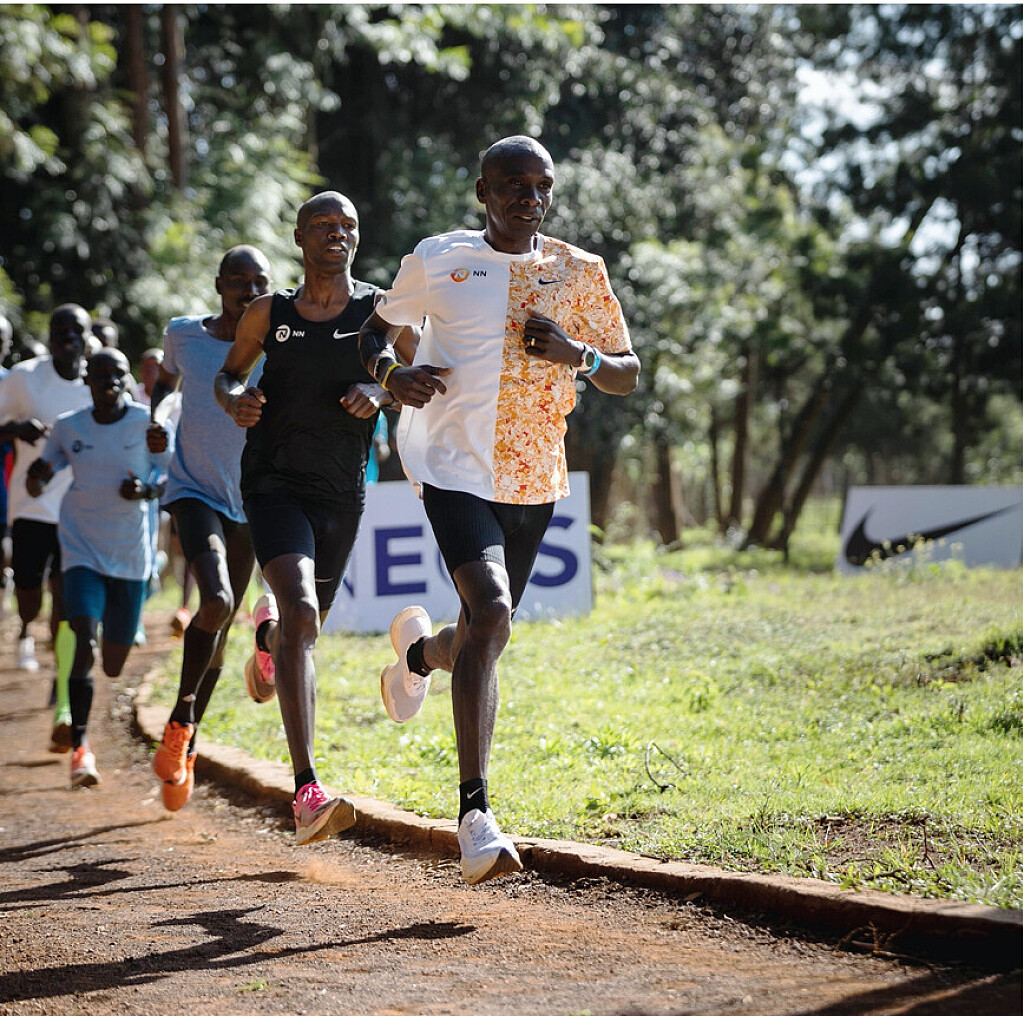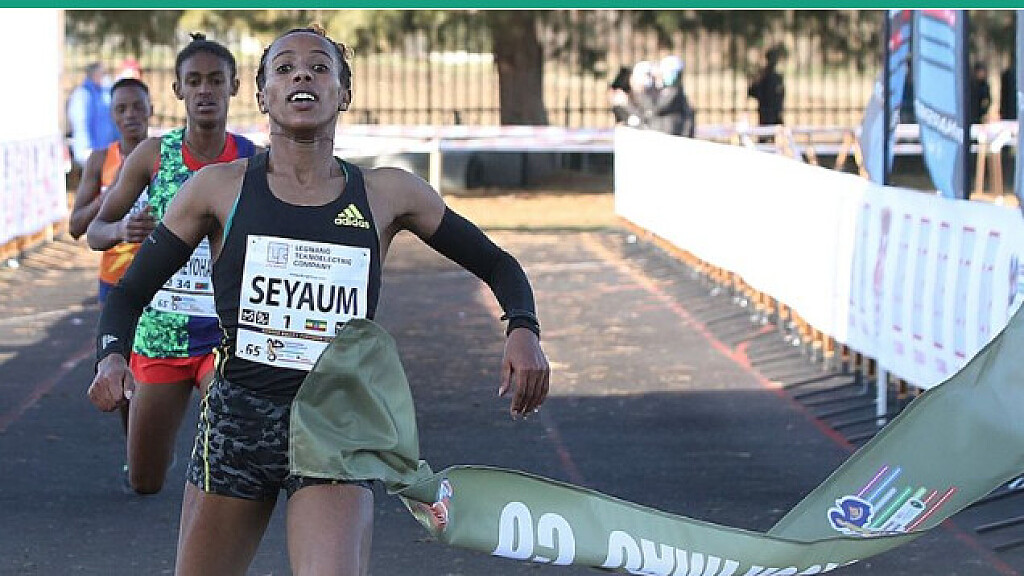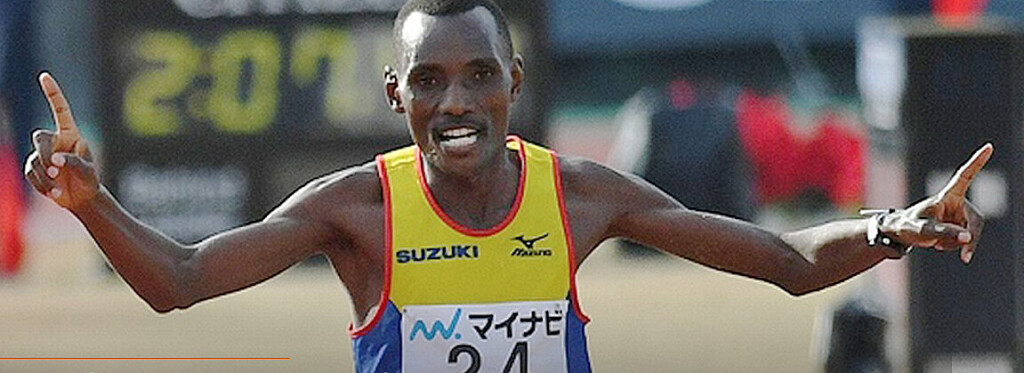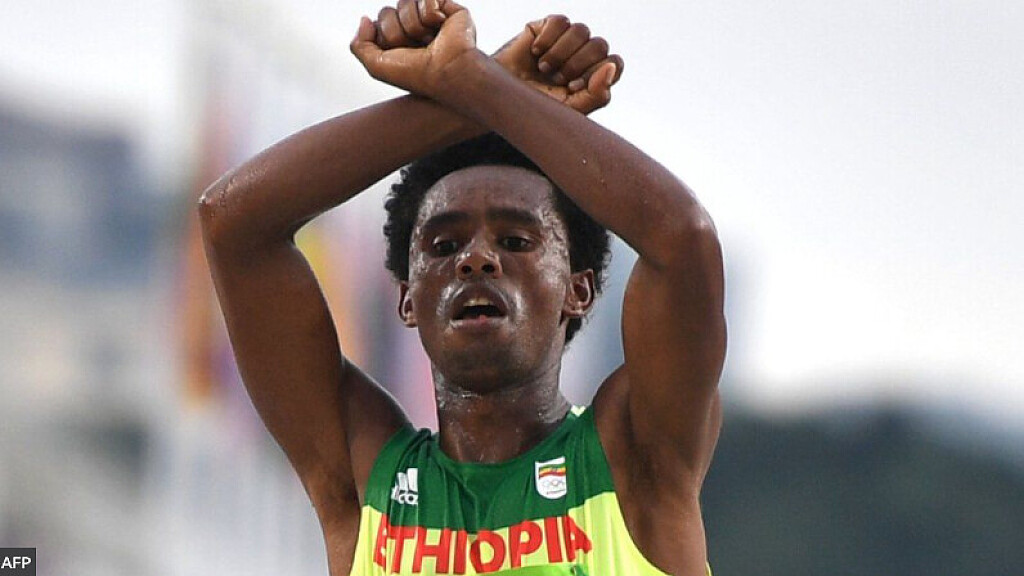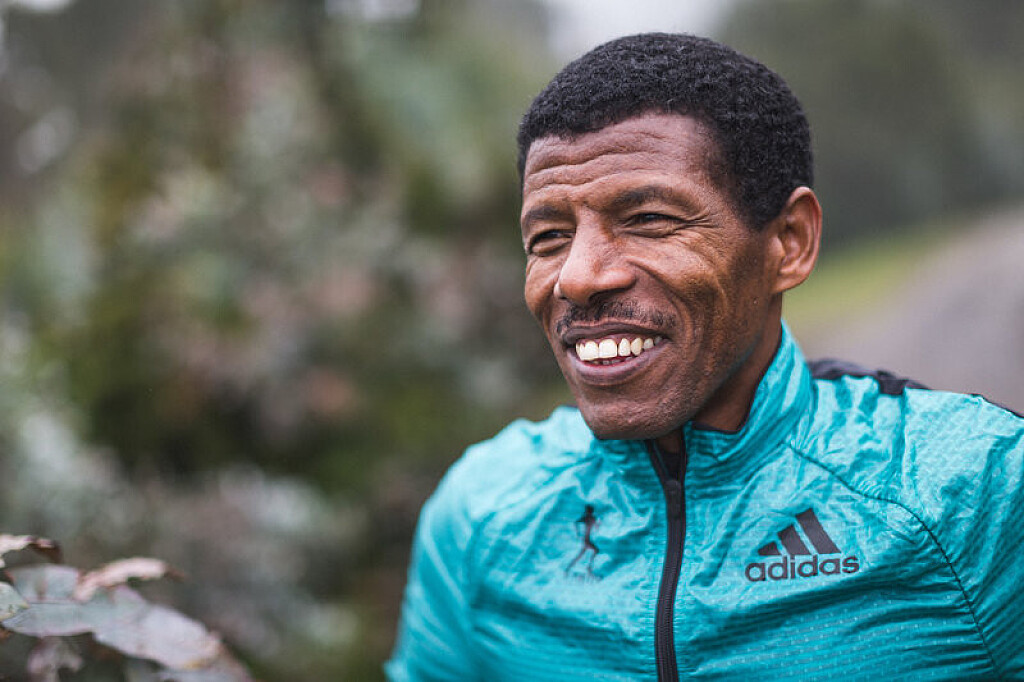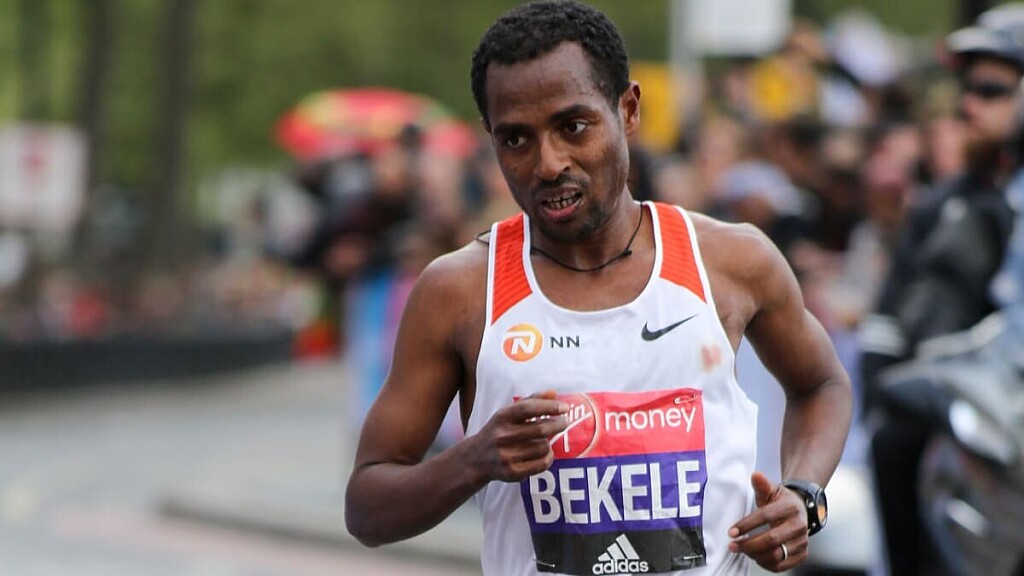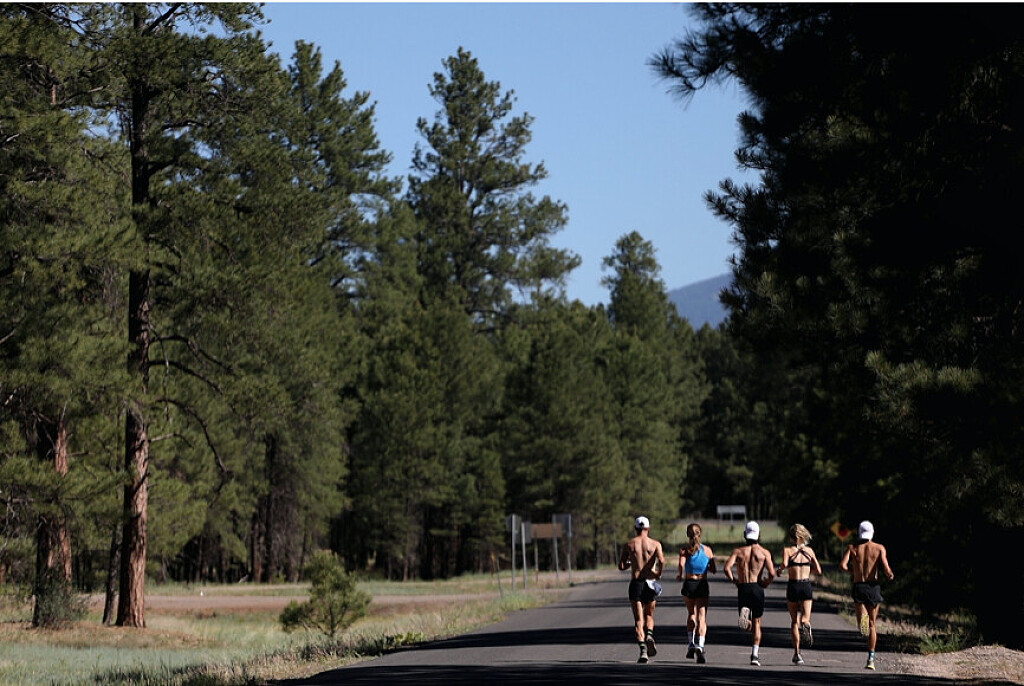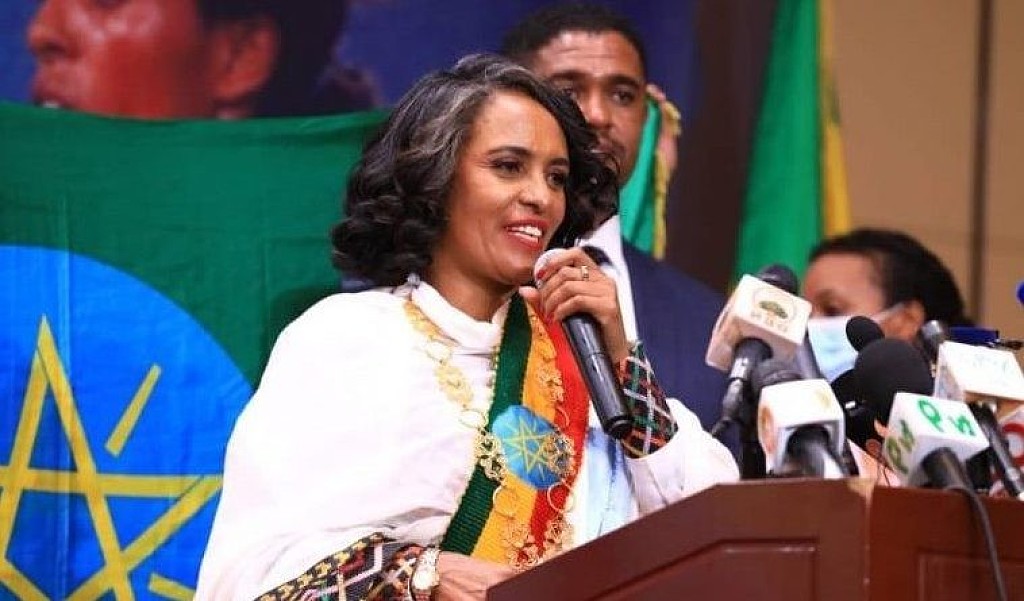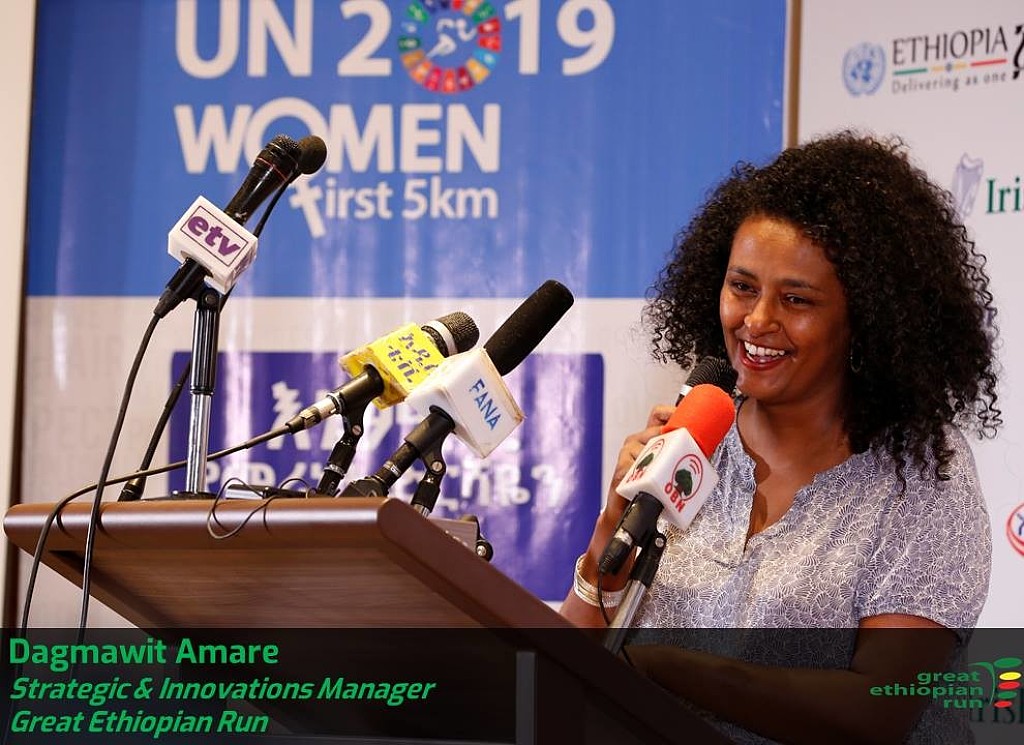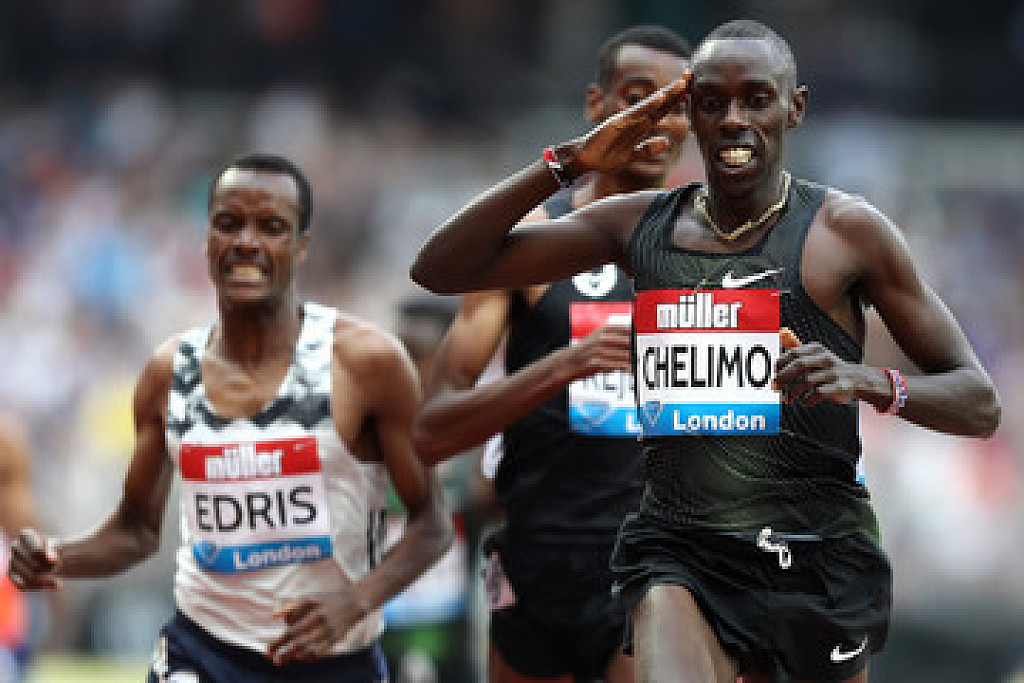Running News Daily
Running News Daily is edited by Bob Anderson. Send your news items to bob@mybestruns.com Advertising opportunities available. Train the Kenyan Way at KATA Kenya and Portugal owned and operated by Bob Anderson. Be sure to catch our movie A Long Run the movie KATA Running Camps and KATA Potato Farms - 31 now open in Kenya! https://kata.ke/
Index to Daily Posts · Sign Up For Updates · Run The World Feed
Articles tagged #Haile Gebrselassie
Today's Running News
Dubai at 25: A Proven Launchpad for Ethiopian Marathon Greatness
When the Dubai Marathon made its debut at the turn of the 21st century, the city itself was still compact—just a few square kilometres around the centuries-old trading settlement of Dubai Creek. Fewer than 200 runners lined up for that first marathon, with several hundred more opting for the half-marathon.
A quarter century later, Dubai has expanded dramatically toward Abu Dhabi, its metro stretching to the edges of the desert. The marathon has grown just as impressively, now standing as one of the world’s most prominent road races, drawing thousands across the marathon, 10K, and 4K events.
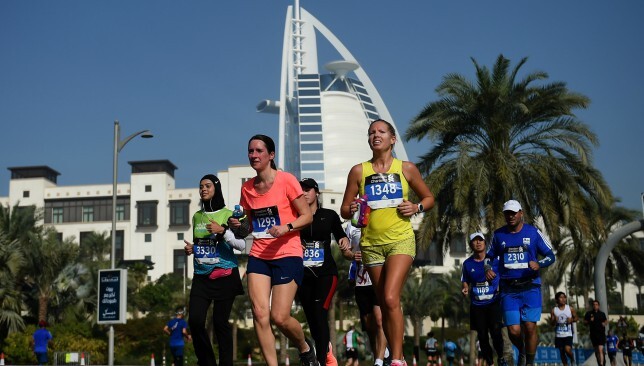
In its early years, winning times were respectable but modest—around 2:10 for men and the mid-2:30s for women. That changed decisively in 2008, when race director Peter Connerton and his partner Ahmad Al Kamali brought world record holder Haile Gebrselassie to Dubai for three consecutive years. Haile’s first appearance alone lowered the course record by more than five minutes, instantly propelling Dubai into the top tier of global marathons.
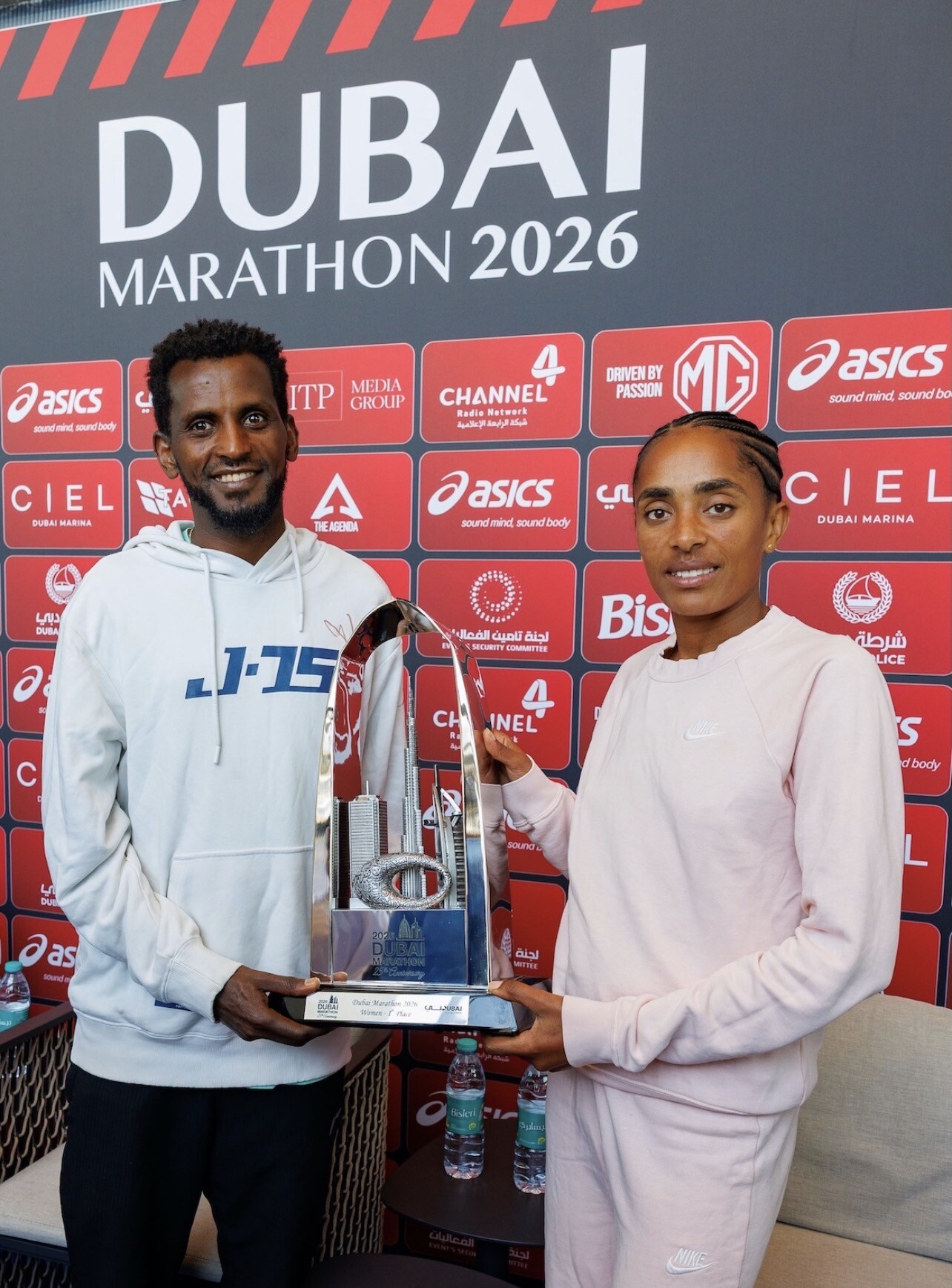
As the focus shifted toward debut runners, the race continued to redefine what was possible. In 2012, on a record-eligible course, four men finished under 2:05, ten under 2:07, and 17 under 2:10, while three women broke 2:20—achievements that came before supershoes and modern performance supplements pushed times even further.
Dubai’s reputation as a launchpad for greatness was reinforced in 2014, when 18-year-old Tsegaye Mekonnen of Ethiopia stunned the field with a debut victory in 2:04:32, an unofficial junior world record. In 2018, seven men broke 2:05 and four women dipped under 2:20—both unprecedented at the time. A year later, Ruth Chepngetich of Kenya claimed victory in 2:17:08, then the third-fastest women’s marathon ever, while Ethiopia’s Getaneh Molla won the men’s race in 2:03:34, setting a course record that still stands.
Time and again, Ethiopian runners have used Dubai’s exceptionally fast course—its total elevation change is only a few metres—as a springboard to world-class success. Remarkably, the men’s race has been won by debutants five times in a row. Two years ago, Tigist Ketema delivered another standout debut, winning the women’s race in a course-record 2:16:07, an unofficial debut world record that remains intact.
Several Dubai champions have gone on to achieve global success. Lelisa Desisa later became the 2019 Marathon World Champion, while Tamirat Tola captured Olympic gold in 2024. Dubai’s influence has also helped spark the growth of other major regional races, including the Abu Dhabi Marathon and the Ras Al Khaimah Half Marathon, now under the same management.
Sunday’s 25th-anniversary edition marks a milestone that reflects both longevity and resilience. The pandemic forced a two-year pause, but the event has re-established itself with strong prize money—$80,000 for the men’s and women’s winners—and performances that continue to rank among the world’s best.
Conditions appear ideal this year. With an earlier elite start time of 5:45 a.m., temperatures are expected to hover around a cool 16°C. Ethiopia’s Fantu Worku, who ran 2:21:57 in her Berlin debut four months ago, will welcome the change after racing in much warmer conditions. On the men’s side, Gadisa Birhanu arrives with a personal best of 2:04:59 from his 2023 Seville victory and a clear objective: contend for the win on one of the fastest marathon stages in the world.
A live stream of the Dubai Marathon will be available on race morning via the event’s official website.
Favourites with Personal Bests
Men
• Gadisa Birhanu (ETH) – 2:04:59
• Berehanu Tesgu (ETH) – 2:05:24
• Abera Kuma (ETH) – 2:05:50
• Deribe Robi (ETH) – 2:05:58
• Hailu Zewdu (ETH) – 2:06:31
• Belay Bezabeh (ETH) – 2:06:58
• Gadissa Tafa (ETH) – 2:07:02
• Gizealew Ayana (ETH) – 2:07:15
• Yasin Haji (ETH) – 2:07:45
• Nibret Melak (ETH) – Debut
• Semachw Sewnet (ERI) – Debut
Women
• Mimi Belete (BRN) – 2:21:22
• Fantu Worku (ETH) – 2:21:57
• Anchinalu Dessie (ETH) – 2:22:17
• Tigst Getnet (ETH) – 2:23:17
• Abebech Afework (ETH) – 2:23:33
• Sofia Assefa (ETH) – 2:23:33
• Zinash Mekonen (ETH) – 2:24:55
• Muliye Dekebo (ETH) – 2:25:35
• Maritu Ketema (ETH) – 2:25:55
• Tadelech Bekele (ETH) – 2:26:23
• Lemlem Hailu (ETH) – No mark
• Alemaddis Eyayu (ETH) – Debut
• Aberash Shilima (ETH) – Debut
by Race News Service
Login to leave a comment
Dubai Marathon
In its relatively brief history (the race was first held in 2000), the Dubai Marathon has become one of the fastest, most respected and the most lucrative marathon in the world in terms of prize money. Each year thousands of runners take to the roads in this beautiful city in the United Arab Emirates (UAE) for this extraordinary race starting...
more...When Time Finally Gave Way: Hobbs Kessler’s 4:48.79 and the Night Indoor History Fell
There are records that feel temporary, and then there are records that begin to feel permanent. For nearly nineteen years, Kenenisa Bekele’s 2000m indoor mark belonged to the second category—a time etched into the sport’s mythology, respected, feared, and largely left untouched. On a charged night at the New Balance Indoor Grand Prix 2026, Hobbs Kessler proved that even the most stubborn pieces of history eventually yield to courage, rhythm, and belief.
From the opening laps inside the packed arena, the race carried a different energy. The pace was honest, relentless, and daring, drawing the field into unfamiliar territory. Kessler, calm and composed beyond his 22 years, stayed patient as the laps unwound, shadowed closely by a deep cast of world-class talent. The moment arrived with one lap remaining. As the bell rang, Kessler shifted gears, surging past fellow American Grant Fisher with a move that felt both explosive and inevitable. There was no panic, no dramatic gesture—just precision, power, and an unbreakable line toward the finish.
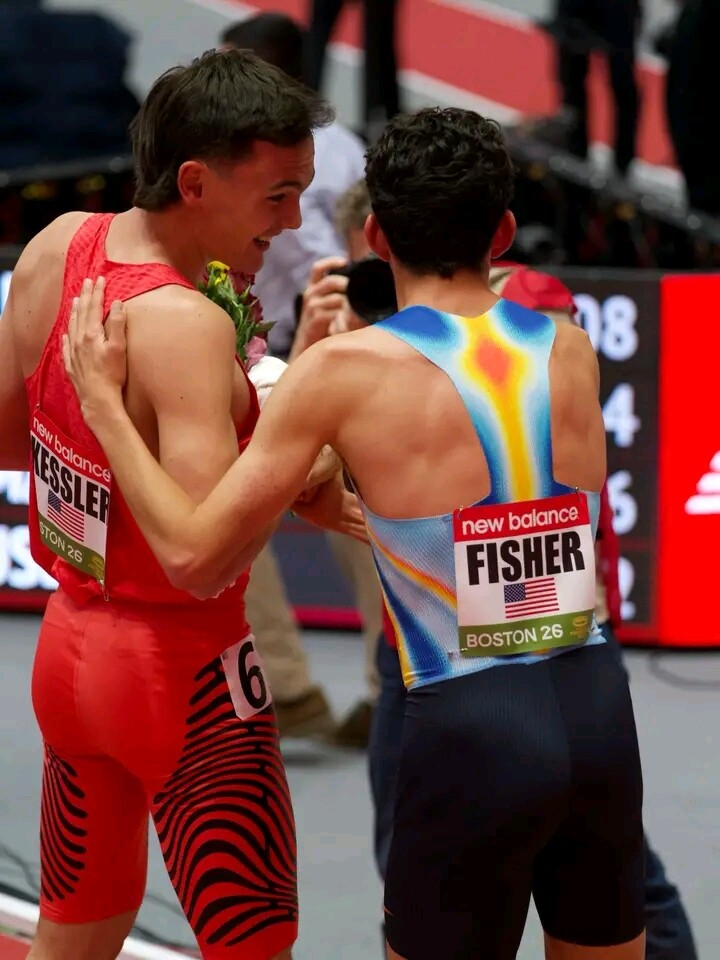
When Kessler crossed the line, the clock delivered the verdict: 4:48.79. Bekele’s long-standing 4:49.99 from 2007 was gone. Not chipped away, not narrowly surpassed—beaten decisively. In the same breath, Kessler claimed the American indoor record as well, eclipsing a mark that had been set just one day earlier by Olympic champion Cole Hocker, a detail that perfectly captured the extraordinary momentum of American middle-distance running.
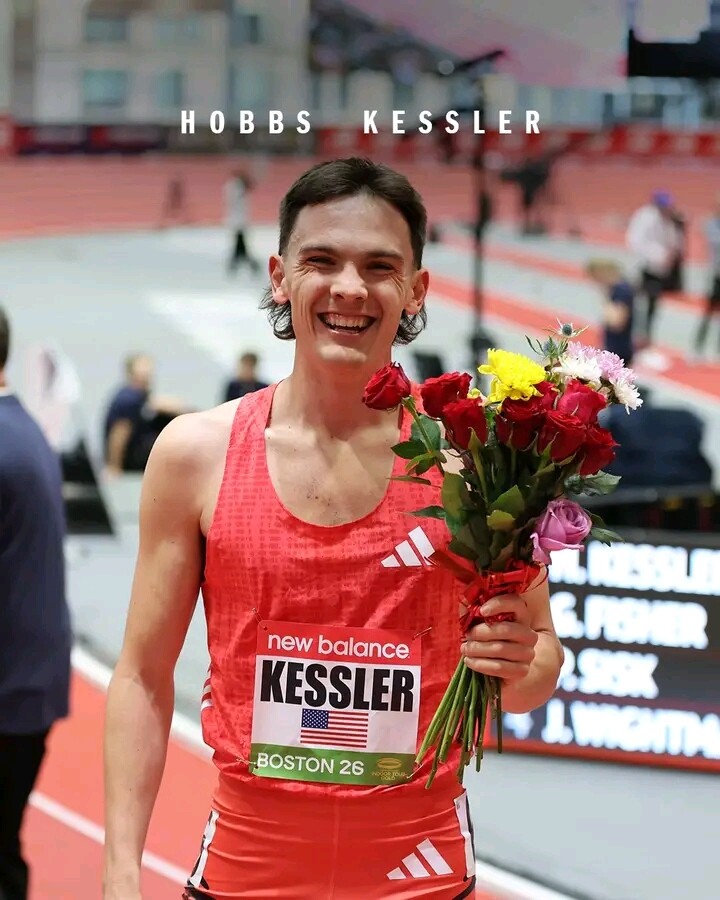
Behind him, Grant Fisher followed in 4:49.48, also inside the old world best, while Belgium’s Pieter Sisk and Great Britain’s Jake Wightman rounded out a race that will be remembered as one of the deepest and fastest in indoor history. Multiple careers were elevated in a single night, but it was Kessler who owned the moment.
The significance of the performance stretches far beyond one race. Kessler’s name now sits above a list populated by giants—Bekele, Haile Gebrselassie, Eamonn Coghlan, Bernard Lagat—athletes who shaped eras and redefined what was possible indoors. To surpass them at just 22 years old is not merely a breakthrough; it is a declaration.
The New Balance Indoor Grand Prix has long been a place where bold athletes chase ambitious ideas. On this night, ambition caught up with history. The record fell, the crowd roared, and time itself seemed to pause in respect.
Some performances win races. Others reshape belief. Hobbs Kessler’s 4:48.79 did both—and in doing so, reminded the world that no record is forever.
by Erick Cheruiyot for My Bestruns.
Login to leave a comment
Buze Diriba Eyes Greater Heights After Frankfurt Marathon Triumph
Ethiopia’s Buze Diriba could be the next major star in women’s marathon running, judging by her performance at the Mainova Frankfurt Marathon. On Sunday, the 31-year-old captured the biggest win of her road-running career, dominating the race from start to finish and clocking a personal best of 2:19:34 — making her the fifth-fastest woman in Frankfurt’s history.
Despite strong headwinds and the loss of her pacemaker with 10 kilometers to go, Diriba maintained control. “If that hadn’t happened and the wind hadn’t been so strong, I would have run 2:16 today,” she said after earning the €30,000 winner’s prize. “Next time I’ll aim to run around 2:16.”
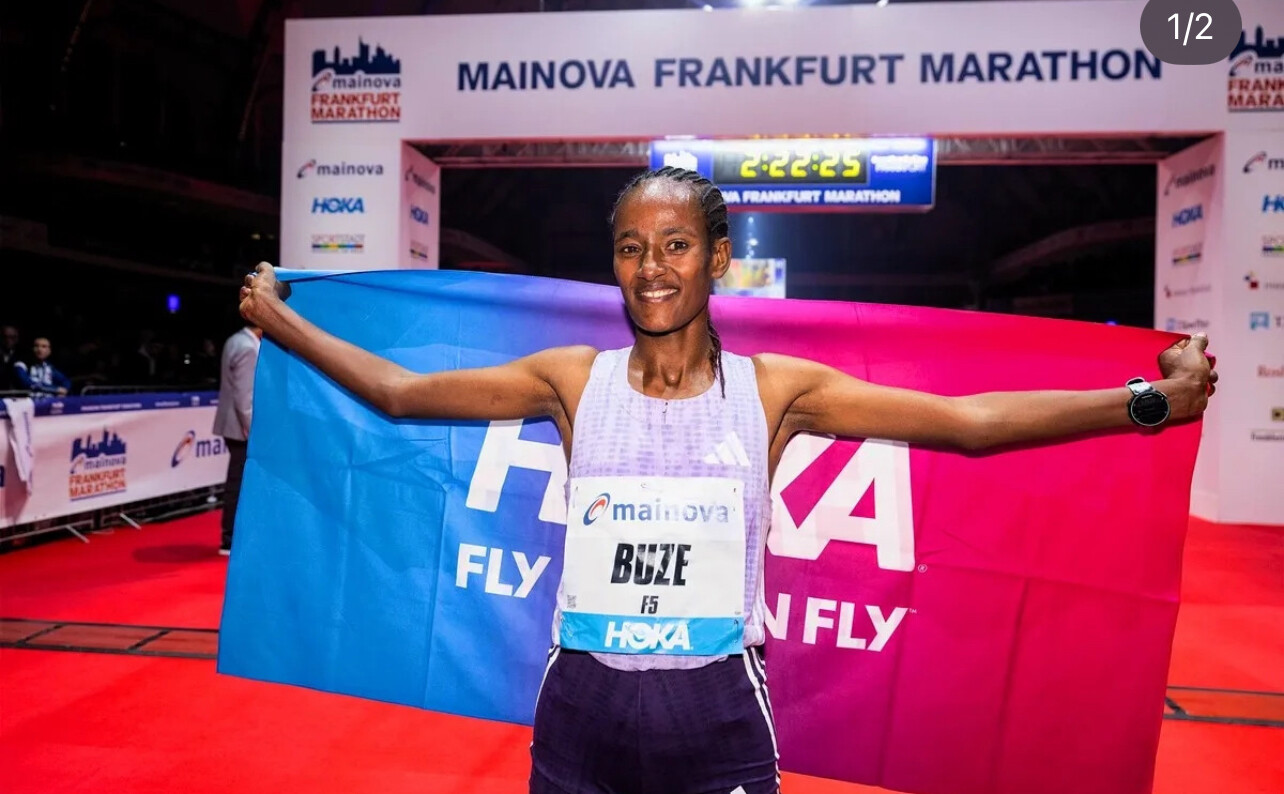
Ambitions Beyond Frankfurt
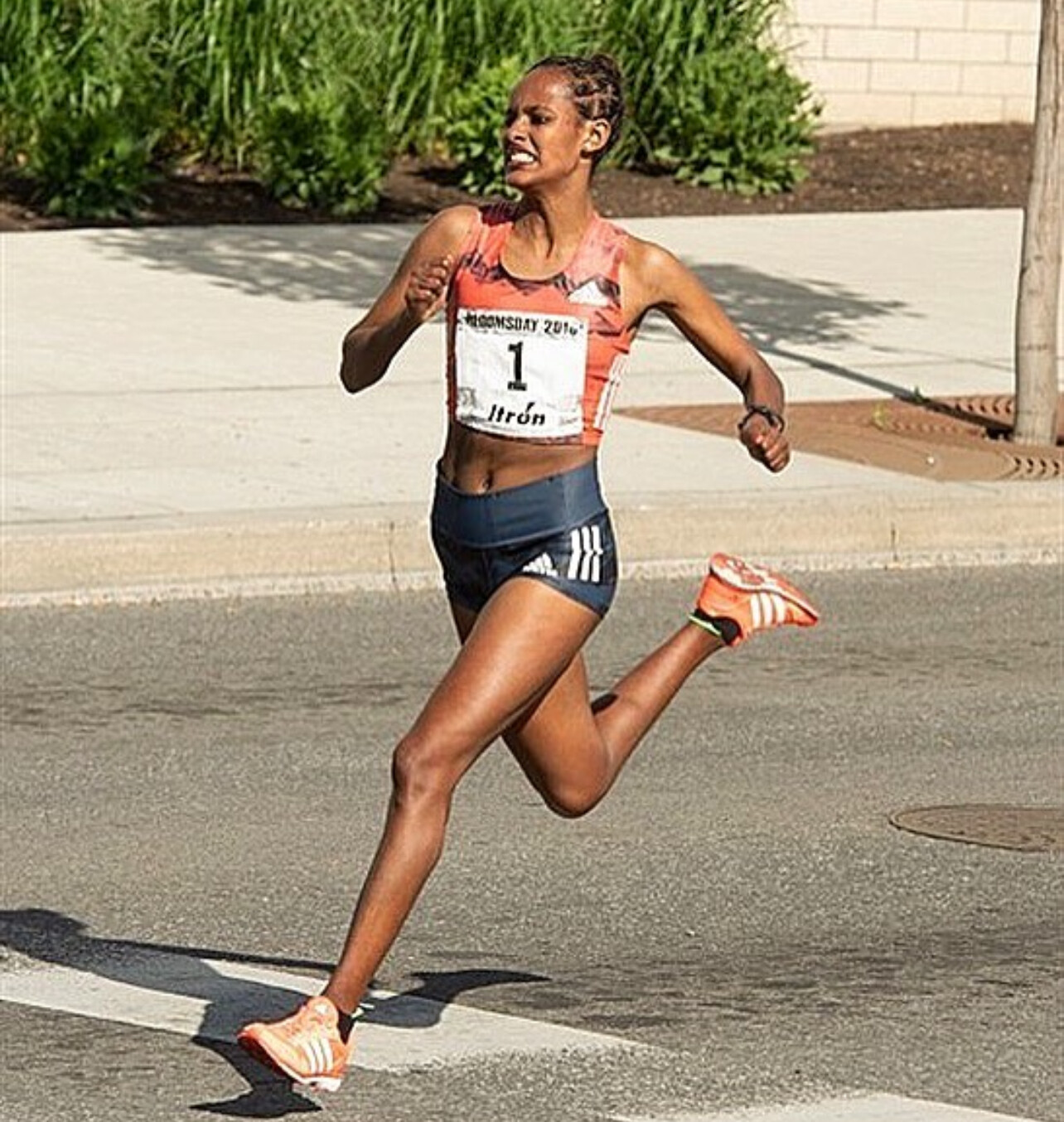
Diriba’s breakthrough in Frankfurt could mark the beginning of a new chapter. “I want to run in the World Championships and Olympic Games and win titles,” she said. Her goal is clear — to join the elite ranks of Ethiopia’s greatest distance runners.
She trains under Gedemu Dedefo in Addis Ababa, one of the most powerful marathon training groups in the world. The camp includes Olympic and World Championship silver medalist Tigst Assefa, Chicago Marathon champion Hawi Feysa, and Olympic marathon champion Tamirat Tola.
A year ago, Feysa used Frankfurt as her own launchpad to stardom, setting a course record of 2:17:25. Diriba came to this year’s edition determined to challenge that mark. “It helps me to have such strong training partners — it makes me stronger,” she explained. “I know I’ll need to run under 2:15 in the future to reach world-class level.”
From Arsi to the World Stage
Diriba hails from Asela, in Ethiopia’s famed Arsi region — the same area that produced legends such as Haile Gebrselassie. Her parents are farmers, and as a child she helped with chores before running to school each morning, “only about 20 minutes away.”
She began running competitively at 16, inspired by Ethiopian Olympic champions Meseret Defar and Tirunesh Dibaba. At 18, she captured the World Junior 5,000m title (2012), signaling her potential as a future great.
“Since then, Gemedu Dedefo has been my coach,” Diriba said. Now a mother of two young daughters, she credits her husband Guta Wami for keeping the household running while she trains and competes.
A Family of Runners
Athletic talent runs deep in the Diriba family. Her younger brother Boki Diriba, 21, is already making his mark, finishing 10th at the 2023 World Cross Country Championships and running 2:07:13 for sixth in Hamburg this April.
With Buze and Boki both rising fast, the Diriba name could soon become one of the most recognized in international road running — a new family dynasty emerging from Ethiopia’s storied highlands.
by Race News Service
Login to leave a comment
Ethiopian Asimarech Naga to Race TCS Toronto Waterfront Marathon
Two years ago, Asimarech Naga was a promising Ethiopian steeplechaser. Now, at 26, she’s set to contend for the $25,000 CDN first-place prize at the 2025 TCS Toronto Waterfront Marathon on October 19.
“If it is God’s will, I want to win as I am preparing well for it,” she said. “I know the Toronto Waterfront Marathon is the biggest marathon in Canada and the course is flat. I am so excited to be there for the first time and do something great.”
From Track to the Roads
Nagging injuries from track spikes pushed Naga to pivot in 2023, joining the legendary coach Haji Adillo’s marathon training group. The move quickly paid off: she won the Dublin Marathon in 2:24:13, setting a new course record, and followed up with a 2:24:21 runner-up finish at the Wuxi Marathon in China earlier this year.
Now, she heads to Toronto—a World Athletics Elite Label race—ready to test herself again. “I have so many strong athletes [to train with], and the coaching program is great. It is really helping me,” she said.
Her inspiration dates back to elementary school, crediting a supportive sport teacher and citing Olympic legend Derartu Tulu—the first Black African woman to win Olympic gold (1992 Barcelona, 10,000m)—as her role model.
Coach Haji’s Confidence
Accompanying her to Toronto will be Haji Adillo himself. Known for guiding Olympic and World champions, Haji believes Naga is ready for a breakthrough:
“If everything goes as planned, and with a good pacer, she will run 2:22 or 2:23.”
His training group has featured icons like Tirunesh Dibaba, Kenenisa Bekele, and Lelisa Desisa, and his most cherished coaching memory remains Mare Dibaba’s 2017 World Championships win—Ethiopia’s first women’s marathon world title.
Haji’s Own Path
Before coaching, Haji was a 2:12 marathoner and a classmate of Haile Gebrselassie. Health issues ended his racing career, but his athletes have since won countless medals:
“Too many to count… maybe over a thousand,” he said with a smile.
Rising Star in the Making?
With her sharp progression, proven ability to win big races, and Haji’s belief in her potential, Asimarech Naga arrives in Toronto as one of the most exciting marathon talents to watch.
Could she be the next Ethiopian star to break through on the world stage?
by Paul Gains
Login to leave a comment
From Rain to Heat: Sabastian Sawe and the New Chapter of Berlin’s Weather-Tested Records
Fifteen years ago, Patrick Makau braved torrential rain and deep puddles on the streets of Berlin, chasing Haile Gebrselassie’s marathon world record. The conditions ruined his attempt, but Makau still managed 2:05:08—the fastest marathon ever run in such relentless rain. A year later, with fair weather, he returned and broke the world record with 2:03:38.
On Sunday in Berlin, history echoed in a new way. This time, it wasn’t rain but unseasonable heat that stood between a Kenyan and marathon immortality. Sabastian Sawe, the 30-year-old rising star, had his sights set on Eliud Kipchoge’s 2:00:35 mark. Instead, he delivered what can only be called a “warm-weather world record,” blazing through the 26.2 miles in 2:02:16. Despite being 101 seconds off the record, it was the fastest time ever achieved in such high temperatures.
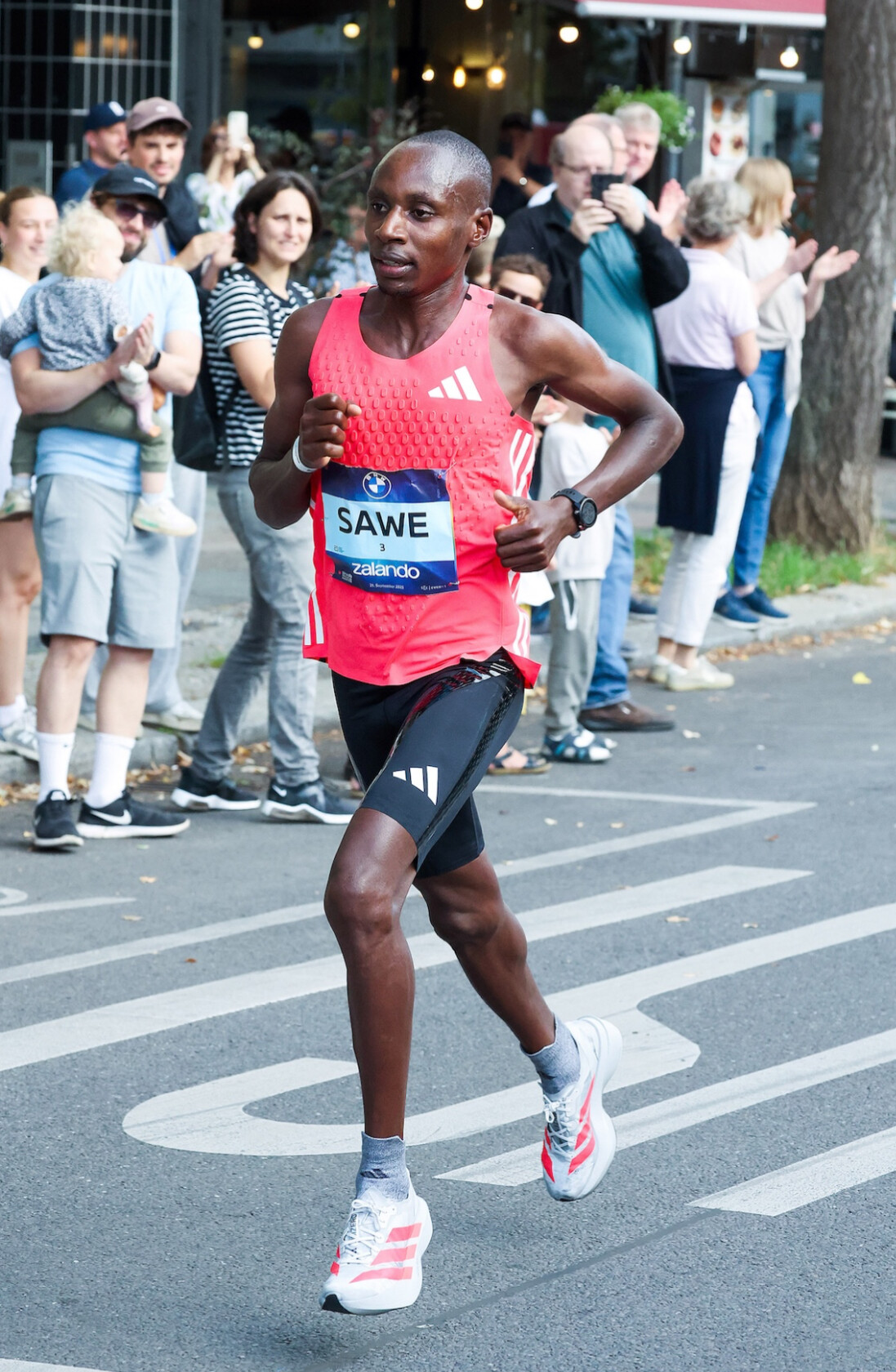
The What-Ifs of Berlin
Sawe, whose personal best stands at 2:02:05, was in career-best form. His coach, Italian veteran Claudio Berardelli, admitted the weather stripped away any chance of the extraordinary.
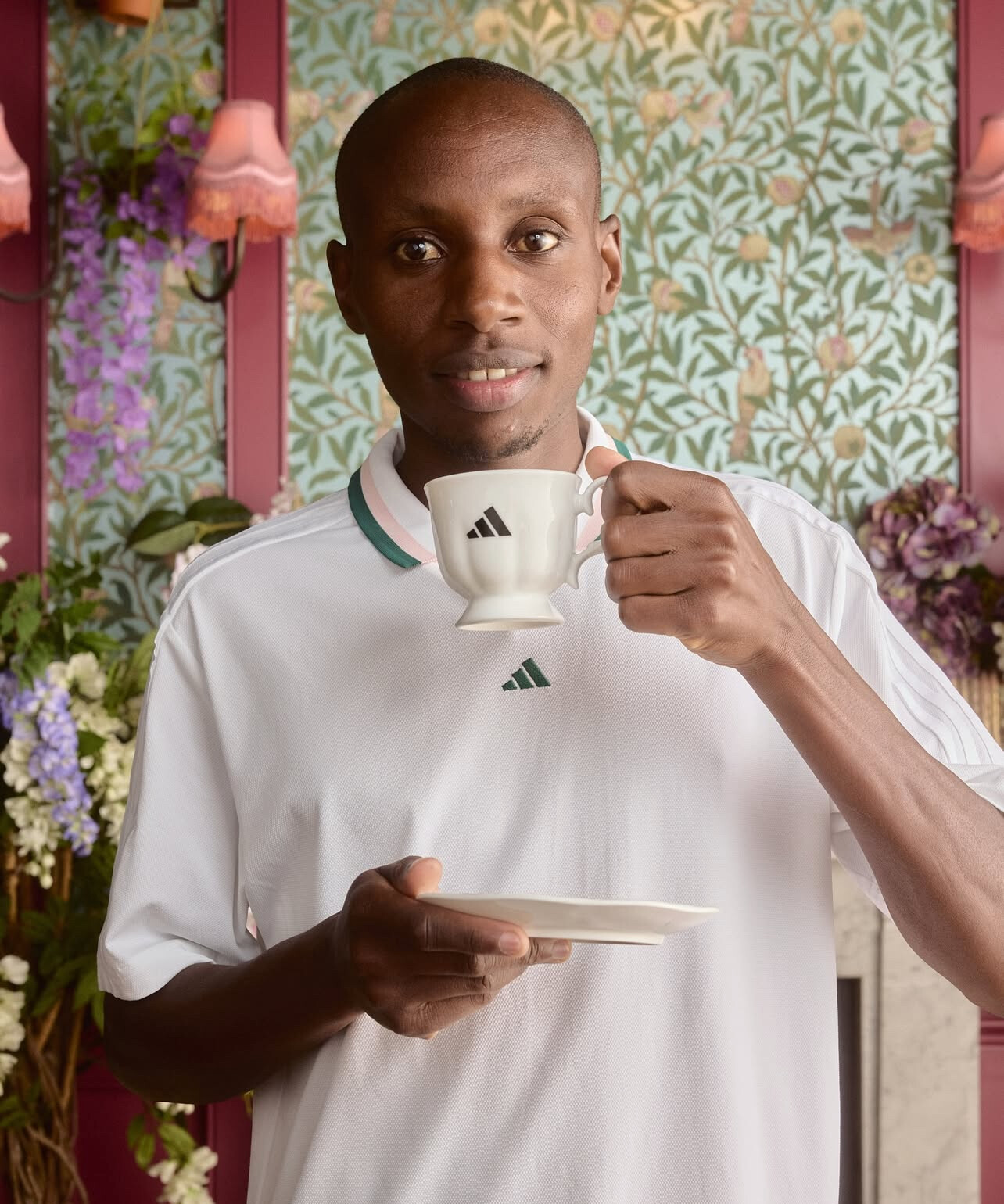
“I know he was in exceptionally good shape. But I do not know what would have been possible,” Berardelli reflected.
The what-if question will linger: how fast could Sawe have run under cooler skies?
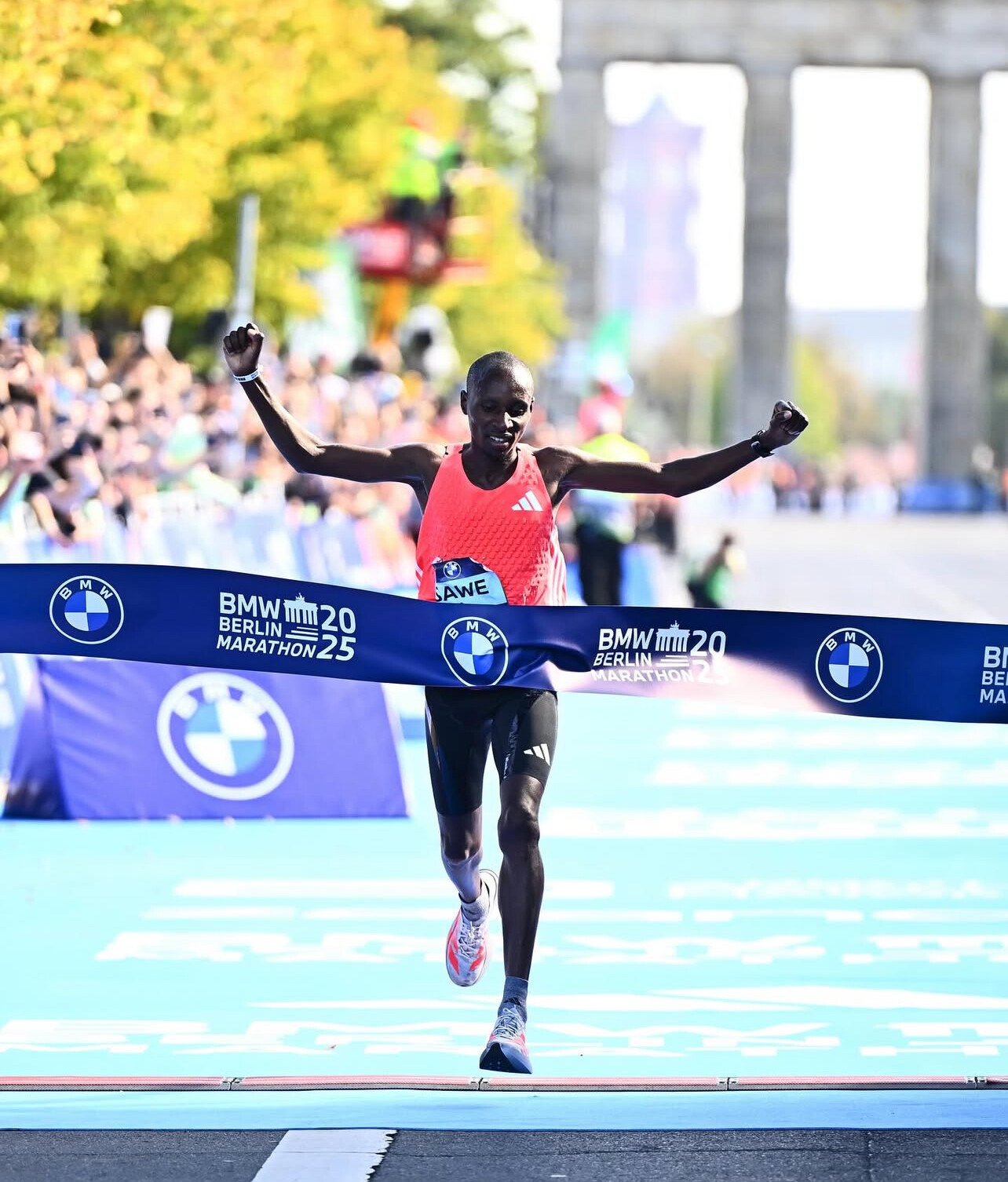
From Humble Beginnings to Global Stardom
Born in the village of Cheukta near Eldoret, Sawe’s story mirrors that of countless young talents in Kenya who struggle for recognition. Despite moving to Iten, the mecca of distance running, he was overlooked by managers and coaches. His breakthrough came only after turning to his uncle, Abraham Chepkirwok—Uganda’s 800m national record holder—and his neighbor Abel Mutai, the London 2012 Olympic steeplechase bronze medalist.
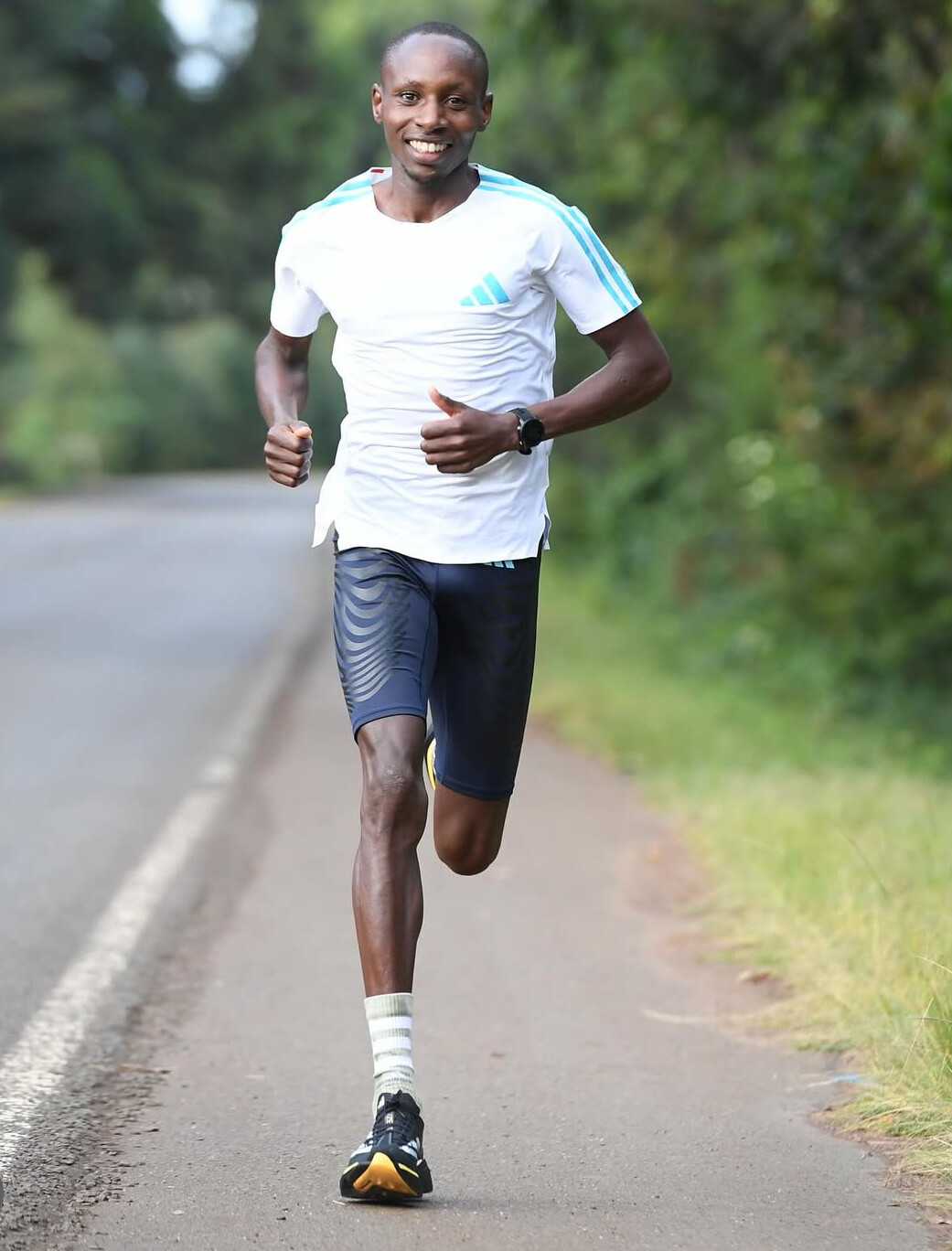
Mutai vouched for him with Berardelli, who placed Sawe in his Kapsabet camp. The rest unfolded quickly. Sawe stunned the field at the 2022 Seville Half Marathon, entering as a pacemaker but leaving with a victory and a world lead of 59:02.
A Gift of Talent and Humility
Berardelli is quick to highlight Sawe’s rare combination of physical and mental qualities:
“He has everything it takes—training ability, mental strength, and humility. I can’t predict what will be possible, but I’m looking forward to finding out.”
Sawe himself remained pragmatic after Berlin:
“I wanted to run really fast and gave it my best, but the weather was too hot. I hope I will have better weather next time. I liked the course, it is very good and fast.”
Berlin: Unfinished Business
Just as Makau returned after the rain to rewrite history, Sawe may yet come back to Berlin with the weather in his favor. With his trajectory and determination, the marathon world could witness a record chase for the ages in 2026.
Until then, Berlin 2025 will be remembered as the day Sabastian Sawe delivered a performance that stood not against the clock, but against the elements—proving once again why the city remains the crucible of marathon greatness.
by Race News Service
Login to leave a comment
World-Class Field Set for 2025 Great North Run on September 7
The Great North Run, the world’s largest half marathon, returns on Sunday, September 7, 2025, bringing together over 60,000 participants and a stellar elite field. The iconic 13.1-mile course, which stretches from Newcastle to South Shields, will once again showcase some of the sport’s top international talent.
Kipchumba Returns to Defend His Title
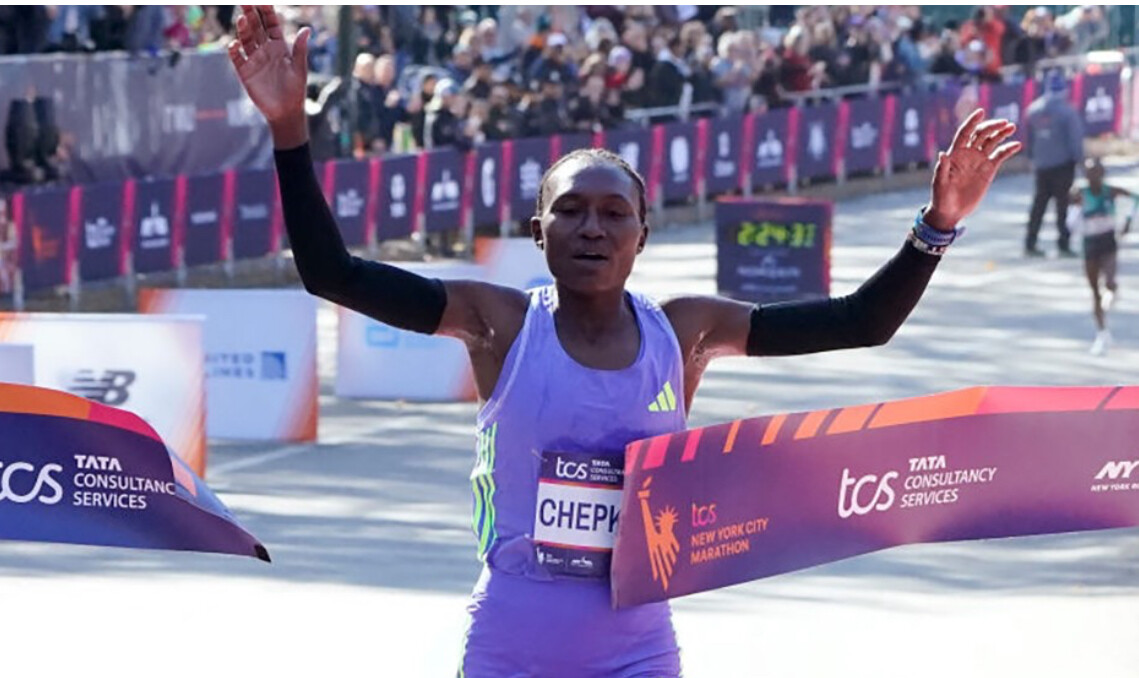
Kenya’s Kipchumba, last year’s men’s champion, is back with his sights set on a repeat victory.
“I’m very happy to return to the Great North Run again this year. It was a great honour to win one of the biggest half marathons in the world at my first attempt. I know I have tough competition this year but am ready for the challenge,” he said.
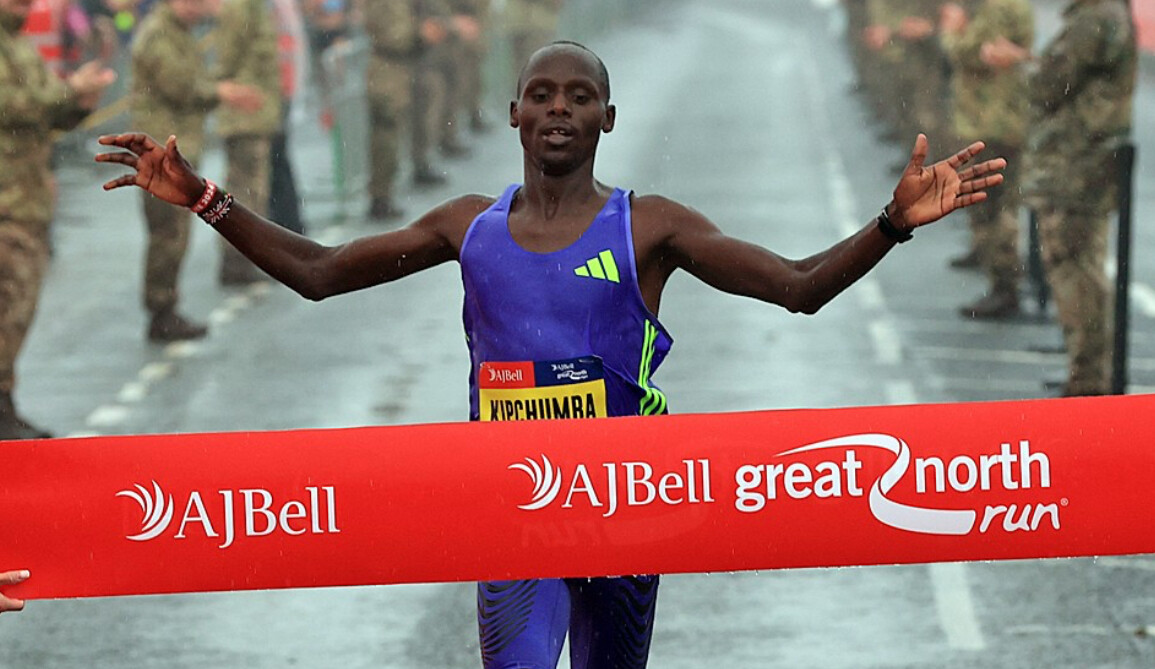
A successful defense would further establish Kipchumba among the premier road runners on the global stage.
McColgan vs. Chepkirui in the Women’s Race
The women’s race will feature a highly anticipated clash between Eilish McColgan of Great Britain and Kenya’s Sheila Chepkirui.
McColgan, the reigning European 10,000m champion and Commonwealth Games gold medalist, has been making a seamless transition from the track to the roads. A win here would be especially meaningful on home soil.
Chepkirui, meanwhile, has emerged as one of Kenya’s most versatile athletes. She earned bronze behind McColgan at the 2022 Commonwealth Games 10,000m, and in 2024 captured the New York City Marathon title, confirming her strength over longer distances.
Vivian Cheruiyot Brings Experience
Adding depth to the women’s field is Vivian Cheruiyot, a four-time Olympic medalist and two-time Great North Run champion (2016, 2018). Her return injects both experience and star power into what is already a world-class lineup.
A Race with History and Prestige
Since its founding in 1981 by Olympian Brendan Foster, the Great North Run has grown into the largest half marathon in the world. Its course—crossing the Tyne Bridge before finishing along the South Shields seafront—is lined with thousands of enthusiastic spectators.
The race has seen some of the sport’s greatest champions, including Mo Farah, Haile Gebrselassie, and Paula Radcliffe. The course records stand at 58:56 for men (Martin Mathathi, 2011) and 1:04:28 for women (Brigid Kosgei, 2019).
2025 at a Glance
• Date: Sunday, September 7, 2025
• Location: Newcastle upon Tyne to South Shields
• Elite Men: Kipchumba (defending champion)
• Elite Women: Eilish McColgan, Sheila Chepkirui, Vivian Cheruiyot
• Course Records: Martin Mathathi (58:56), Brigid Kosgei (1:04:28)
With Kipchumba aiming for back-to-back titles, McColgan and Chepkirui set for a dramatic head-to-head battle, and Cheruiyot returning to familiar ground, the 2025 Great North Run promises another unforgettable day in the history of distance running.
by Boris Baron
Login to leave a comment
Kenya’s Dominic Ngeno Returning to TCS Toronto Waterfront Marathon
It speaks volumes about a marathon when podium finishers are eager to come back. Last year, Kenya’s Dominic Ngeno finished runner-up at the TCS Toronto Waterfront Marathon. Now, from his home in Iten, he confirms he will return for this year’s edition on October 19.
“It was an amazing race last year and I learned a lot,” he says with a grin. “The race was good. I am coming now to combat. I was so happy that the fans were cheering us all the way in the streets. It was so amazing.”
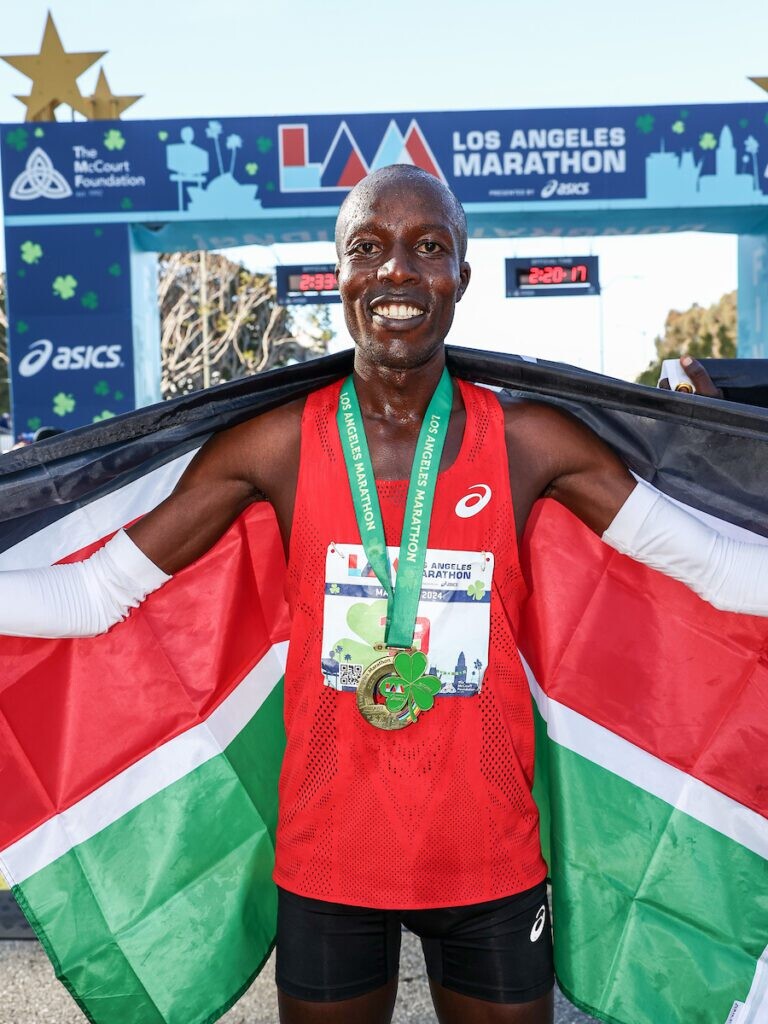
Finding his stride in Iten
In recent months, Ngeno has made some important changes. He left his training base in Kaptagat to return home to Iten, 2,400m above sea level — the famed “Home of Champions.” The switch has made him happier and, he believes, stronger. The proof came at the 2025 Paris Marathon, where he finished 5th in a new personal best of 2:06:37.
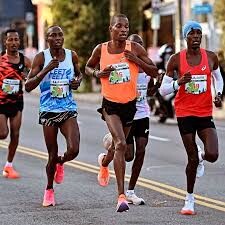
“I ran 2:06:37 in Paris and it is a hard course,” he explains. “It is not like Toronto. Last year I feared Toronto was tough because for a few years guys were running 2:09 or 2:10. But when I finished, I saw it was good. Paris compared to Toronto? Toronto is a nice course.”
Training with purpose
Speaking via WhatsApp video, he animatedly describes his training and credits his group of six training partners with pushing him forward. Just before the interview he had run 20km in the evening, then 10km the following morning, with a demanding session of 15 x 1km intervals planned later that day. Every couple of weeks he adds a 40km long run.
“When I am not training, I am resting in the compound — just sleeping,” he says with a smile. “Sleeping is part of the training program. After lunch I sleep, then go for training. When I come back, I take tea and wait for dinner.”
Like many Kenyan athletes, he still makes time to follow English Premier League football.
“Yeah, I am a big fan of Chelsea — the Blues,” he laughs. “My favourite player used to be Didier Drogba, but now it is Cole Palmer.”
A latecomer with big dreams
Ngeno turns 28 on September 3rd, still relatively new to the marathon. After high school he played soccer, then studied in Eldoret for two years, where he met some of Kenya’s top runners. But it was a chance encounter at a 2021 cross country meet with Amos Kipruto — the 2022 London Marathon champion and 2019 world bronze medalist — that shifted his focus.
“We had some small interactions,” Ngeno recalls. “He really inspired me because he didn’t run so many half marathons, and his dream came true after he started running marathons. That inspired me. I ran only two half marathons before deciding to be a marathoner full time.”
Building a future beyond running
Professional running offers him a chance to secure a brighter future. A contract with Asics helps, but he is also investing wisely.
“There is life after running so you need to invest whatever you get,” he says. “Now I have a small business — I have electronics stores and I am also farming. After running I will work with my family and grow that. I have shops and people who work for me. Whenever someone needs something like a television, they can go there.”
Looking ahead
Some of the greatest marathoners — Haile Gebrselassie, Kenenisa Bekele, Eliud Kipchoge — have thrived well into their late 30s. Ngeno believes he has another decade at the top and is motivated by the possibility of representing his country.
“First, I love running, and because I love running I want to run my best and change my life,” he declares. “I want to be the best. I have that dream of running for Kenya. This year when they were selecting the team I was not far from selection. I believe soon I will run for Team Kenya — maybe at the World Championships or Olympic Games.”
For now, his focus is firmly on the TCS Toronto Waterfront Marathon, where he aims to take on a world-class field and turn last year’s second place into victory.
by Paul Gains
Login to leave a comment
TCS Toronto Waterfront Marathon
The Scotiabank Toronto Waterfront Marathon, Half-Marathon & 5k Run / Walk is organized by Canada Running Series Inc., organizers of the Canada Running Series, "A selection of Canada's best runs!" Canada Running Series annually organizes eight events in Montreal, Toronto and Vancouver that vary in distance from the 5k to the marathon. The Scotiabank Toronto Waterfront Marathon and Half-Marathon are...
more...Andreas Almgren Stuns the World with 12:44.27 in Stockholm 5000m, Smashing European Record and Entering All-Time Top 10
Swedish distance star Andreas Almgren delivered the race of his life at the Stockholm Diamond League, clocking a breathtaking 12:44.27 to win the men’s 5000m and send shockwaves through the global distance running world. His time not only shattered the European Record (ER) and the meet record, but it also catapulted him into the top 10 fastest performers in history, now ranking #8 all-time.
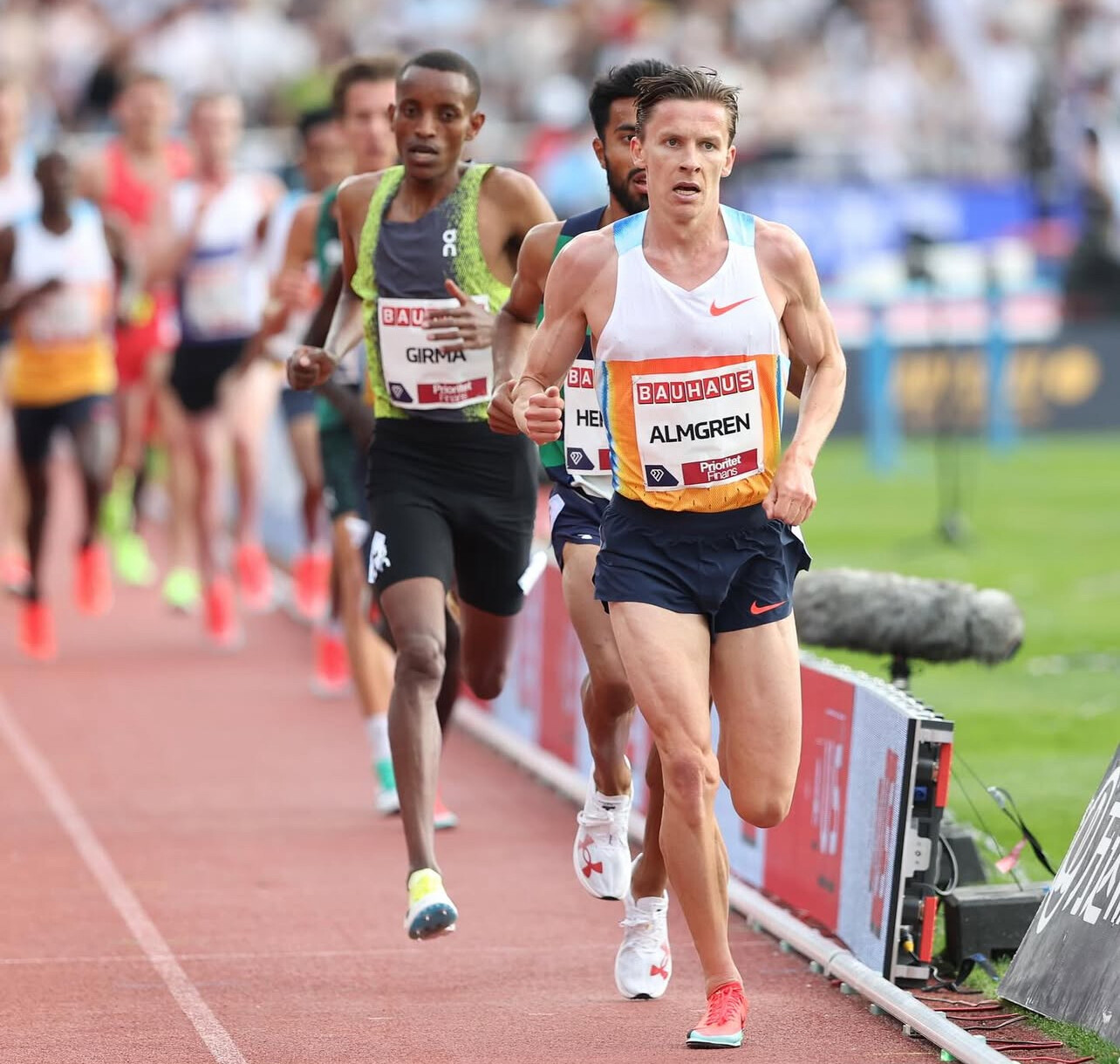
The home crowd in Stockholm witnessed a historic moment as Almgren, traditionally known for his prowess over 800m and 1500m, made a stunning statement in the long-distance arena. He became the first European ever to dip under 12:45 and now holds the fastest 5000m time ever run by a European athlete, surpassing Spain’s Mohamed Katir (12:45.01 from 2023).
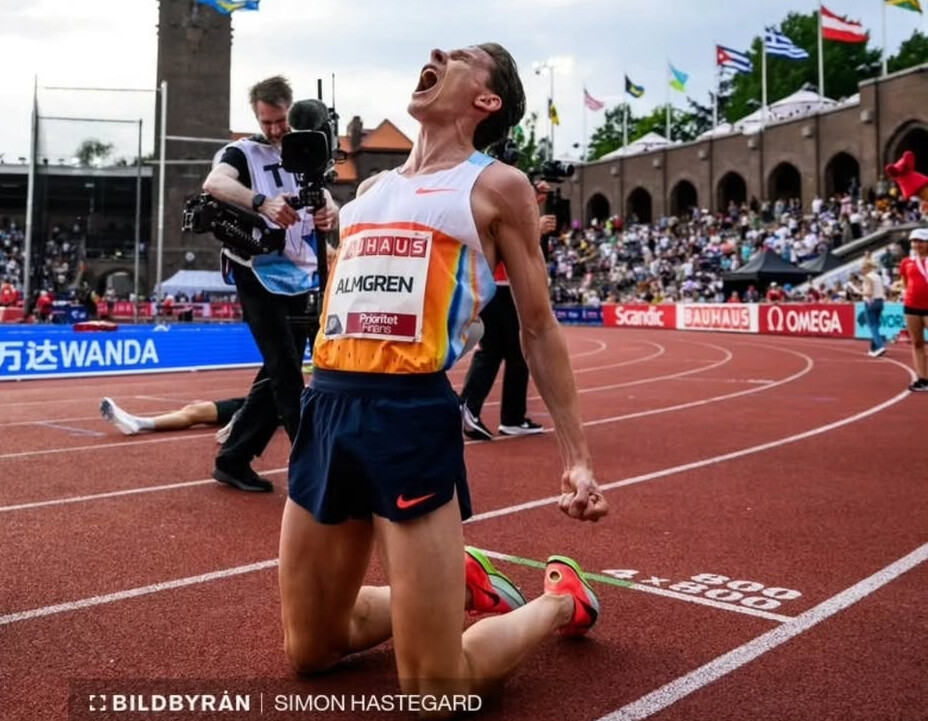
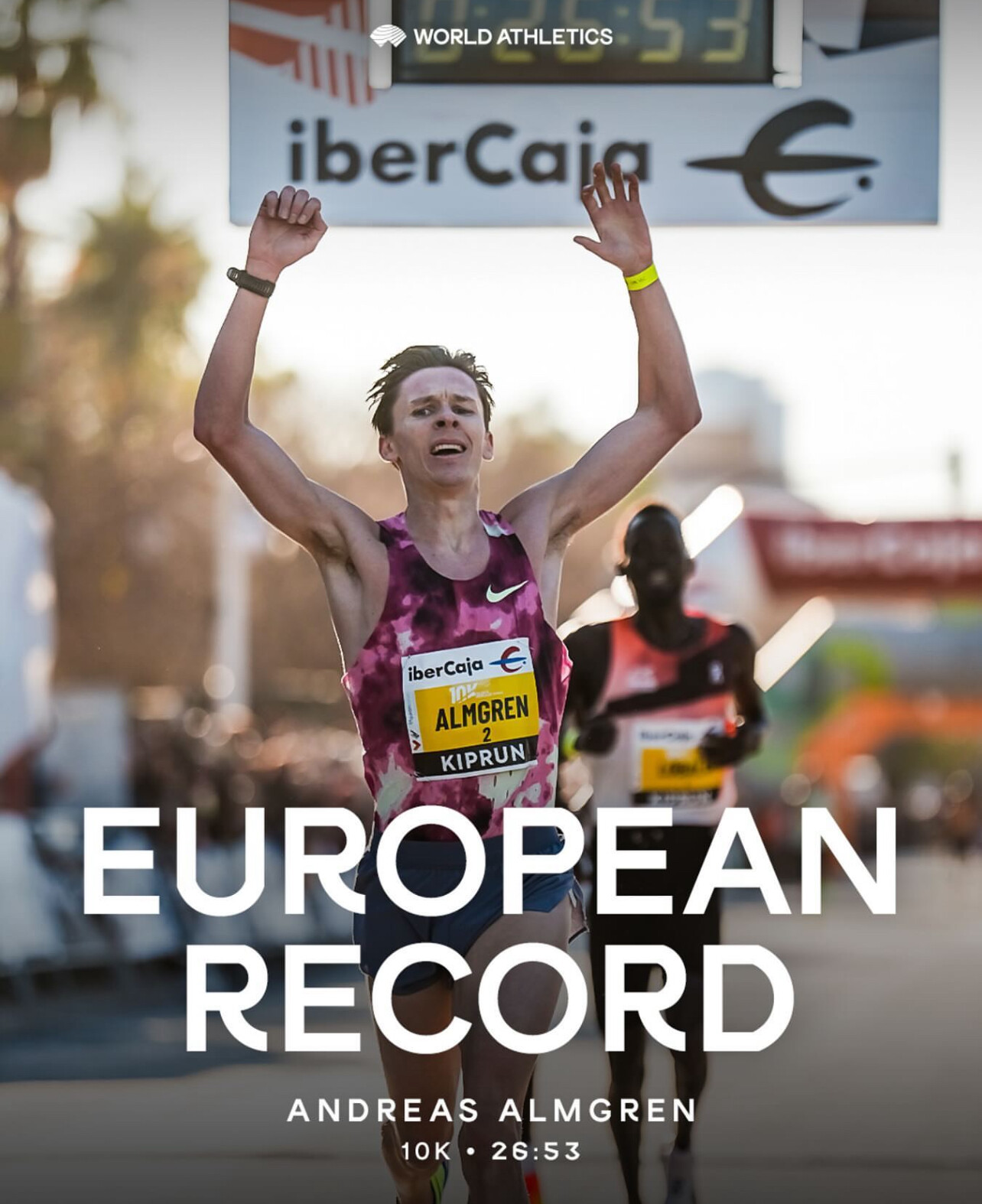
? Top Results – Men’s 5000m (Stockholm Diamond League)
1. Andreas Almgren (Sweden) – 12:44.27 ?? ER MR
2. Kama Girma (Ethiopia) – 12:57.46 ??
3. Ky Robinson (Australia) – 12:58.38 ??
4. Mike Foppen (Netherlands) – 13:02.43 ??
5. Kenneth Kiprop (Uganda) – 13:02.69 ??
6. Denis Kipkoech (Kenya) – 13:07.02 ??
All-Time Men’s 5000m Rankings (As of June 2025)
Andreas Almgren now stands 8th on the all-time global list, behind legends like Cheptegei, Bekele, and Gebrselassie.
|
Rank |
Athlete |
Country |
Time |
Year |
|
1 |
Joshua Cheptegei |
UGA |
12:35.36 |
2020 |
|
2 |
Kenenisa Bekele |
ETH |
12:37.35 |
2004 |
|
3 |
Haile Gebrselassie |
ETH |
12:39.36 |
1998 |
|
4 |
Daniel Komen |
KEN |
12:39.74 |
1997 |
|
5 |
Hagos Gebrhiwet |
ETH |
12:42.18 |
2023 |
|
6 |
Selemon Barega |
ETH |
12:43.02 |
2018 |
|
7 |
Mohamed Katir |
ESP |
12:45.01 |
2023 |
|
8 |
Andreas Almgren |
SWE |
12:44.27 |
2025 ✅ |
|
9 |
Yomif Kejelcha |
ETH |
12:46.79 |
2023 |
|
10 |
Berihu Aregawi |
ETH |
12:46.91 |
2021 |
Pace Breakdown – Almgren’s 12:44.27
• Per kilometer: 2:32.85/km
• Per mile: 4:05.57/mile
(12:44.27 = 764.27 seconds total
5000 meters = 5 kilometers or 3.10686 miles)
A New Era in Distance Running?
The Stockholm performance underscores a growing shift in elite distance running. For decades, Kenya, Ethiopia, and Uganda have been dominant in the 5000m and 10,000m, but Almgren’s performance—alongside strong finishes by Australia’s Ky Robinson and the Netherlands’ Mike Foppen—suggests a broader international resurgence.
As the World Championships in Tokyo loom, Almgren’s breakout raises the stakes. Can the Swede replicate this form against the likes of Cheptegei and Barega on the biggest stage of all?
One thing is clear: the race to the podium in global distance running is no longer limited to East Africa. Andreas Almgren has kicked open the door—and the world is watching.
by Boris Baron
Login to leave a comment
Kenya vs Ethiopia What Sets Their Runners Apart
When it comes to distance running, no two countries are more dominant—or more frequently compared—than Kenya and Ethiopia. From 5Ks to marathons, athletes from these East African nations consistently top podiums and rewrite record books. But while the results may look similar, the paths to victory are often quite different.
Altitude Advantage, Different Terrains
Both Kenya and Ethiopia benefit from high-altitude environments that naturally boost endurance. Kenya’s top training hubs, like Iten and Eldoret, sit between 7,000 and 8,000 feet. Ethiopia’s Bekoji and Sululta offer similar elevations. But terrain matters too: Kenya’s roads are often red clay or uneven gravel, ideal for building strength and resilience. Ethiopia’s runners more frequently train on hills and mountain trails, with steeper and more demanding climbs integrated into daily runs.
Training Philosophies Diverge
Kenyan training is rooted in simplicity and rhythm. Athletes often meet for large group sessions, with a strong focus on tempo runs, long-distance efforts, and unstructured fartleks. The vibe is community-oriented and competitive—if someone surges, the group follows.
In contrast, Ethiopia’s elite training tends to be more individualized and coach-driven. Athletes follow structured schedules with clearly defined paces, recovery sessions, and high-intensity track workouts. The approach is more scientific, and recovery days are strictly observed.
Daily Life and Recovery
Kenyan runners typically live together in camps, waking early to train, followed by long periods of rest. A second run often comes in the late afternoon, and the lifestyle emphasizes minimal distractions.
Ethiopian runners may train in smaller groups and return home between sessions. There’s more variety in how the day is structured, though the focus on discipline remains.
(Photos) Kenyan Training in Iten and Eldoret
1. Mass Training Run in Iten
A striking image capturing a large group of Kenyan runners during a typical morning session on the red dirt roads of Iten, known as the “Home of Champions.”
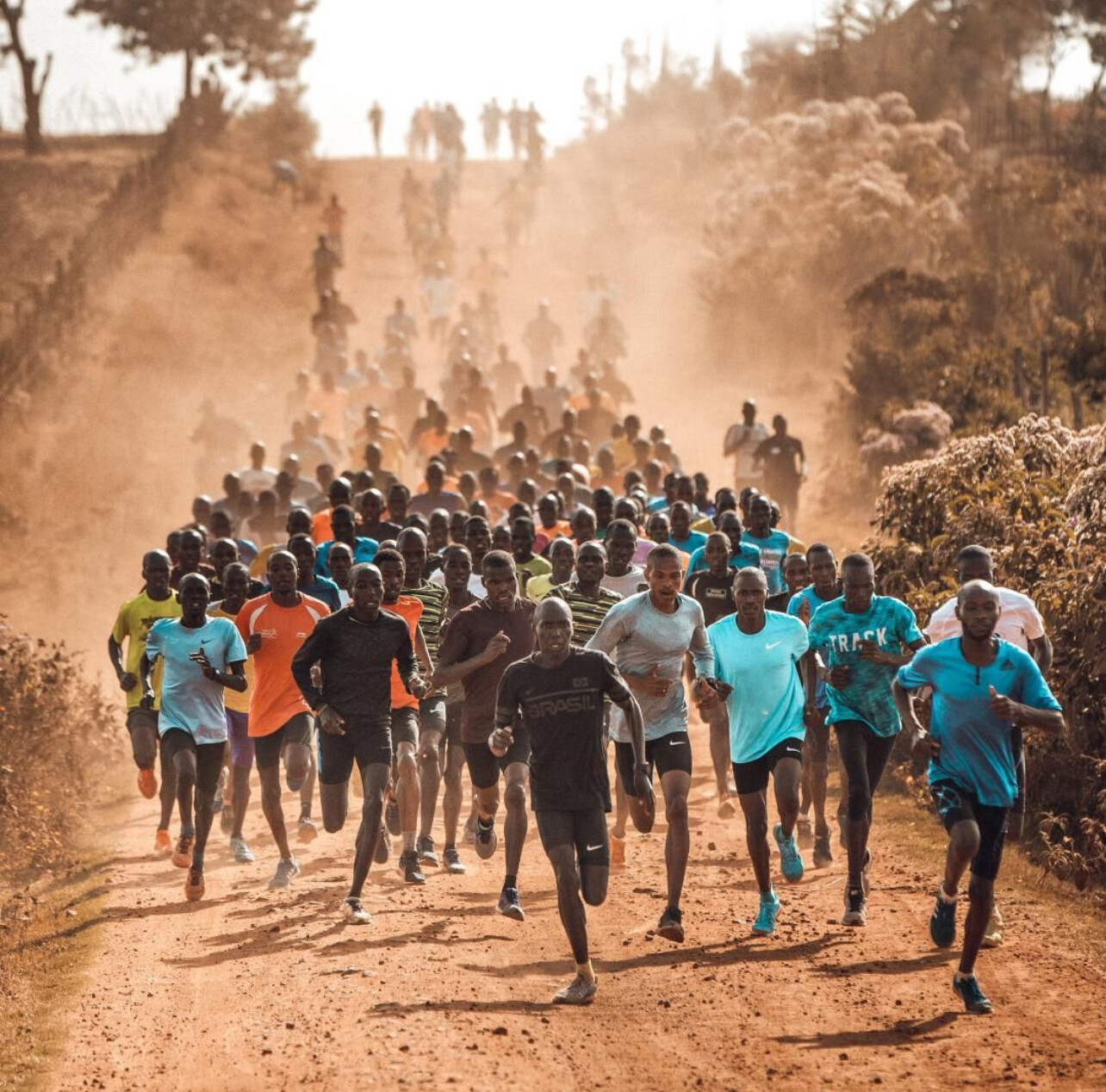
2. Track Workouts in Eldoret
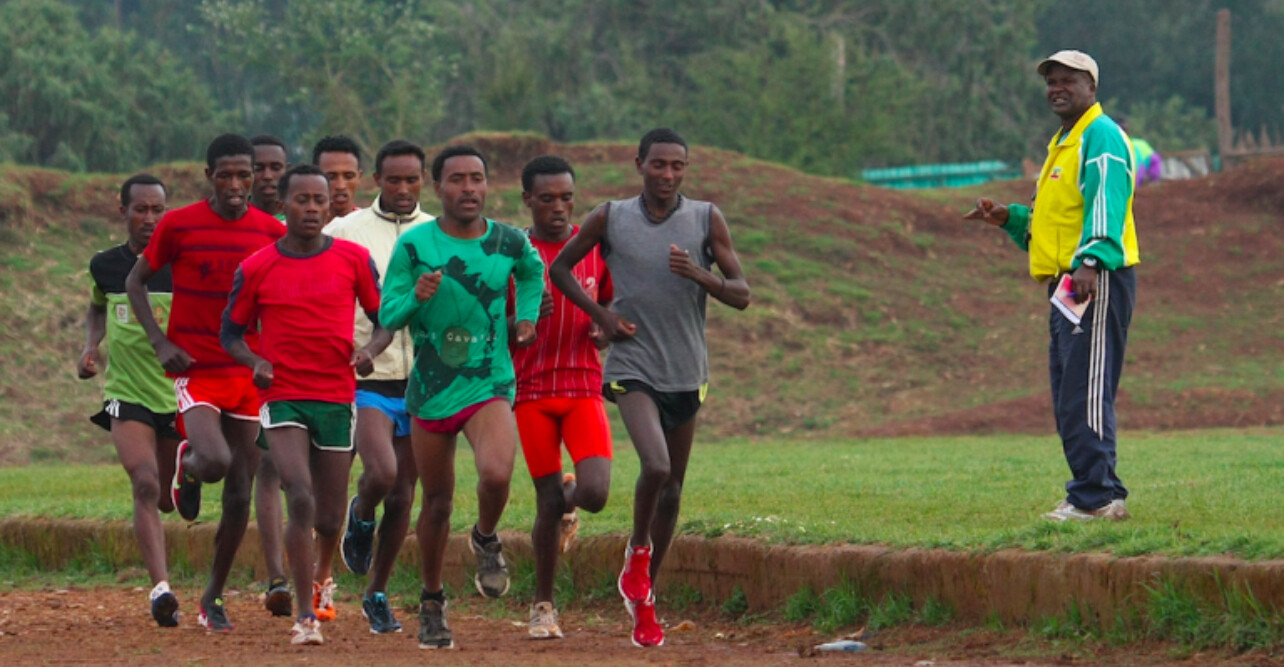
Kenyan marathon runners engaging in interval training at the athletics track in Eldoret, highlighting their emphasis on group cohesion and endurance.
(Photos) Ethiopian Training in Bekoji and Sululta
3. Group Training in Bekoji
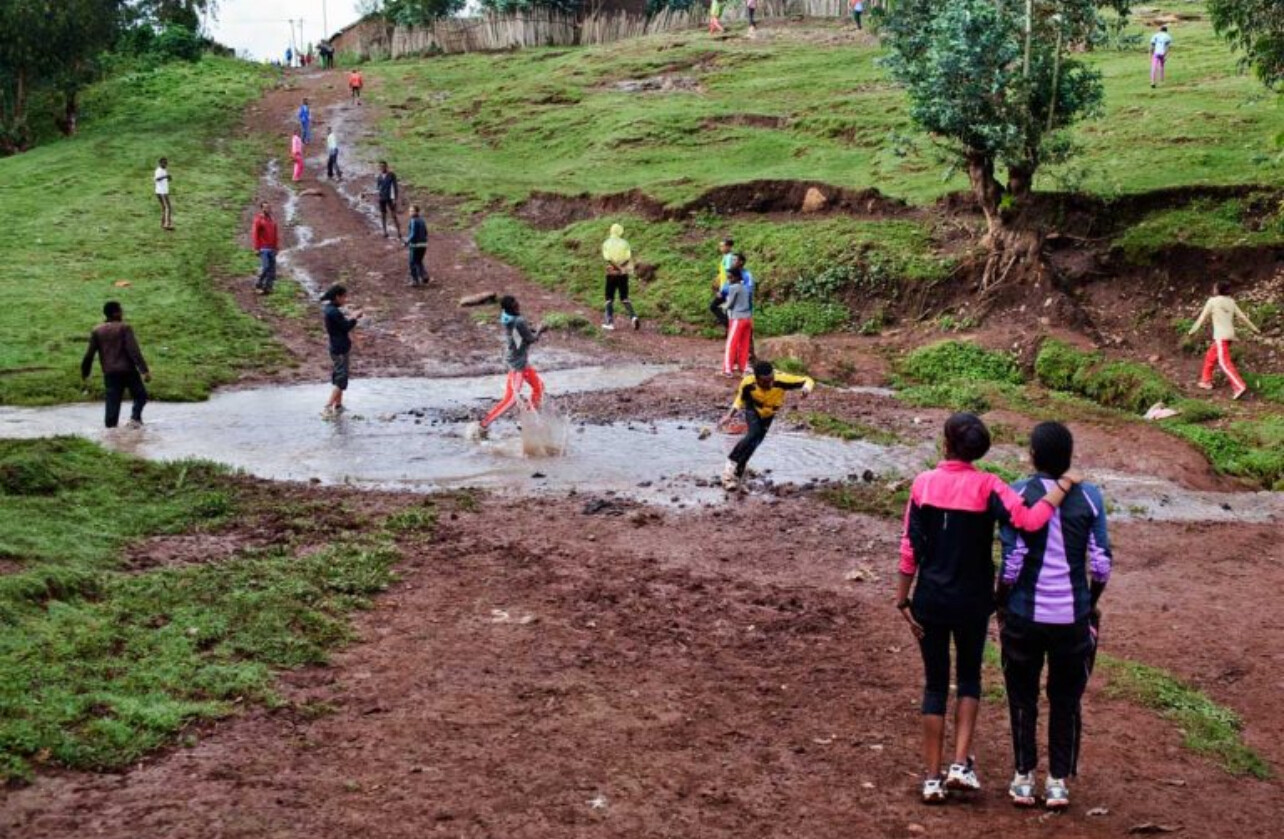
A glimpse into a training session in Bekoji, Ethiopia, showcasing runners on a dirt track, emphasizing their structured and coach-led routines.
4. Trail Running in Sululta
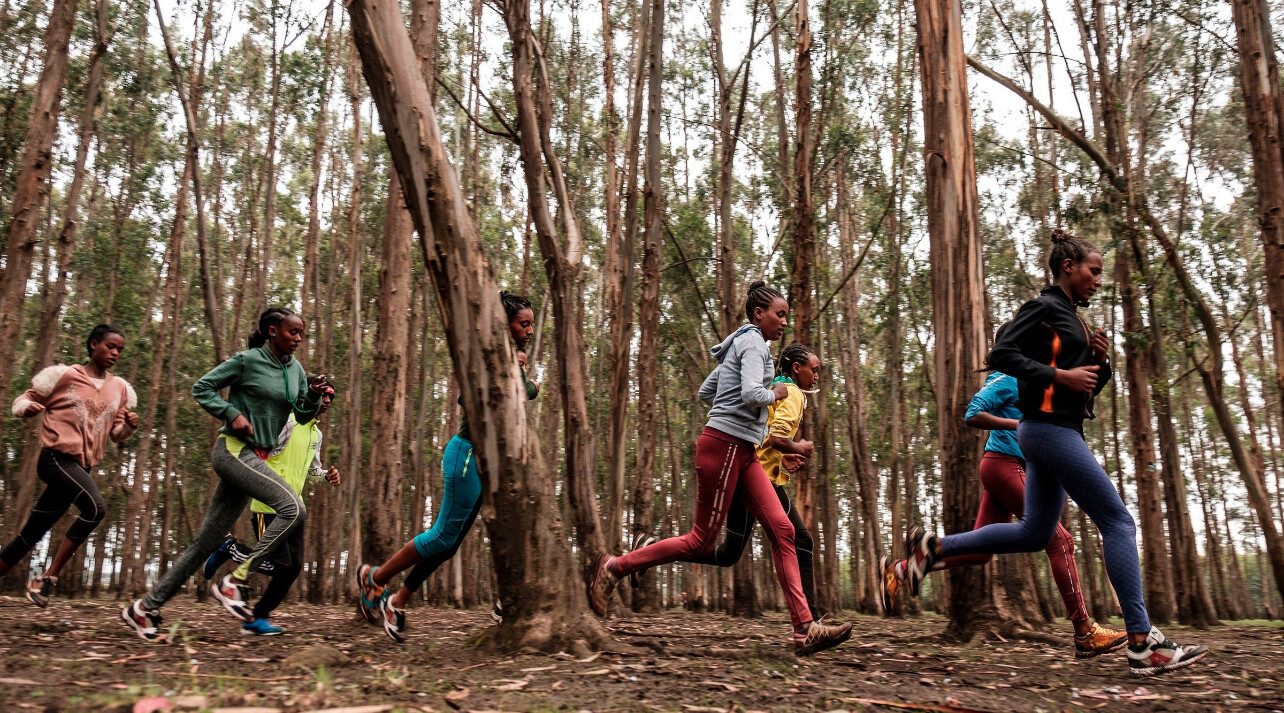
Ethiopian athletes navigating through forested trails in Sululta, reflecting their focus on varied terrains and natural environments.
Fueling for Success
Diet is another point of contrast. Kenyan athletes often eat ugali, a maize-based dish, with sukuma wiki (collard greens) and beans. Meals are consistent, simple, and heavy on carbohydrates. Hydration includes local teas and water, with little emphasis on supplements.
In Ethiopia, injera (a sour flatbread made from teff) is the foundation, served with protein-rich stews like shiro or doro wat. Teff is rich in iron and slow-digesting carbs—making it a valuable fuel for endurance.
Cultural and Coaching Influence
In Kenya, many athletes are inspired by runners from their own village or region—legends like Eliud Kipchoge or David Rudisha have inspired thousands. Training is often passed down through generations informally.
In Ethiopia, there’s a more centralized coaching system and support from the national federation. Greats like Haile Gebrselassie and Kenenisa Bekele have helped shape a more formal pathway from local clubs to the world stage.
Different Roads, Same Finish Line
Despite the differences, the results speak for themselves: both countries continue to dominate. Kenya may have the edge in the marathon, while Ethiopia consistently excels in 10K and track events. Together, they’ve redefined what’s possible in distance running.
by Boris Baron
Login to leave a comment
The AJ Bell Great Birmingham Run 2025: A Citywide Celebration of Running and Community
This Sunday, 4 May 2025, Birmingham will host the AJ Bell Great Birmingham Run, welcoming over 16,000 runners to the city’s streets. As part of the esteemed Great Run Series, this event offers both 10K and Half Marathon distances, attracting participants of all levels to experience Birmingham’s dynamic atmosphere.
Event Overview
• Date: Sunday, 4 May 2025
• Distances: 10K and Half Marathon
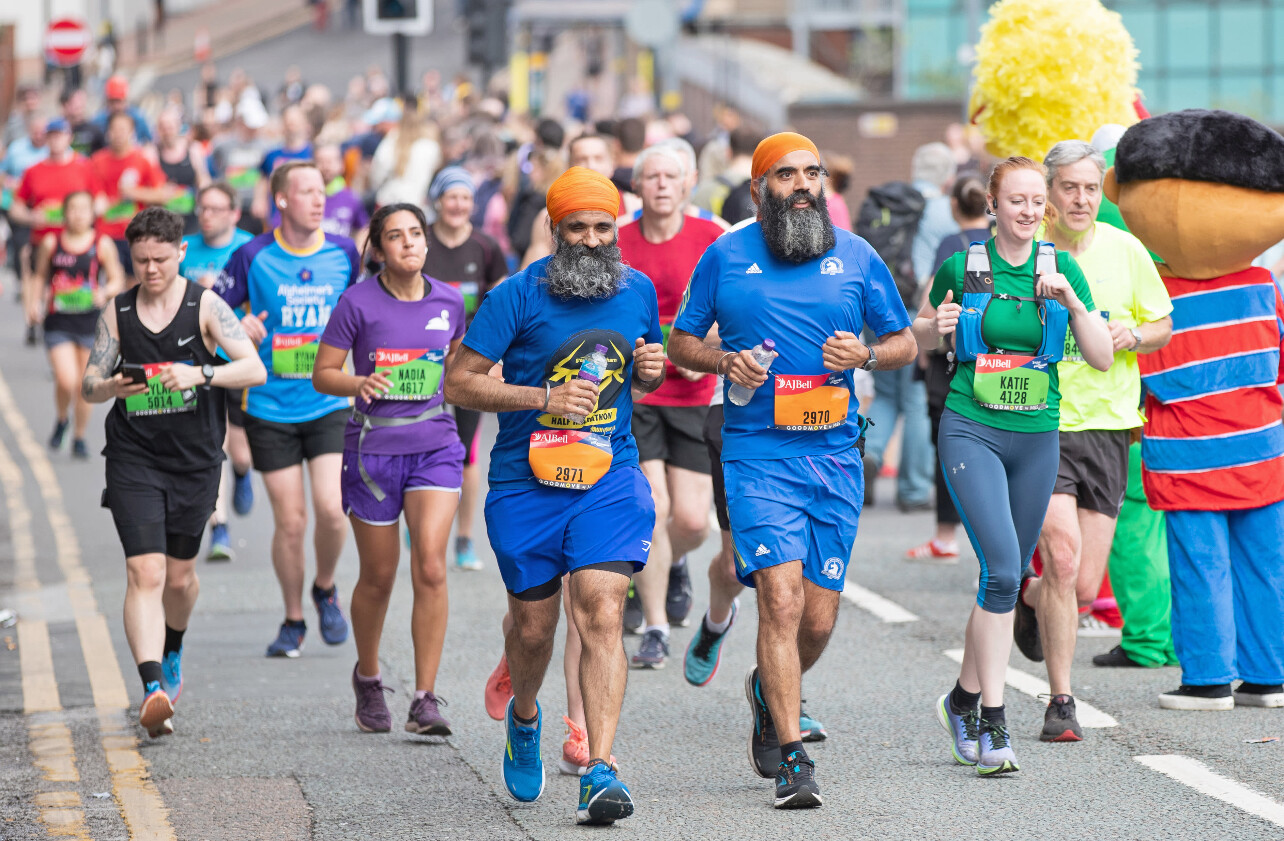
• Start Location: Centenary Square, Birmingham
• Finish Location: Smithfield, Birmingham city centre
• Start Times: Wave starts beginning at 8:30 AM
• Participants: Over 16,000 runners expected
The event is renowned for its electric atmosphere, with live music zones, charity cheer buses, and enthusiastic spectators lining the streets. The event village at Smithfield will feature food stalls, live DJs, and a festive post-run celebration.
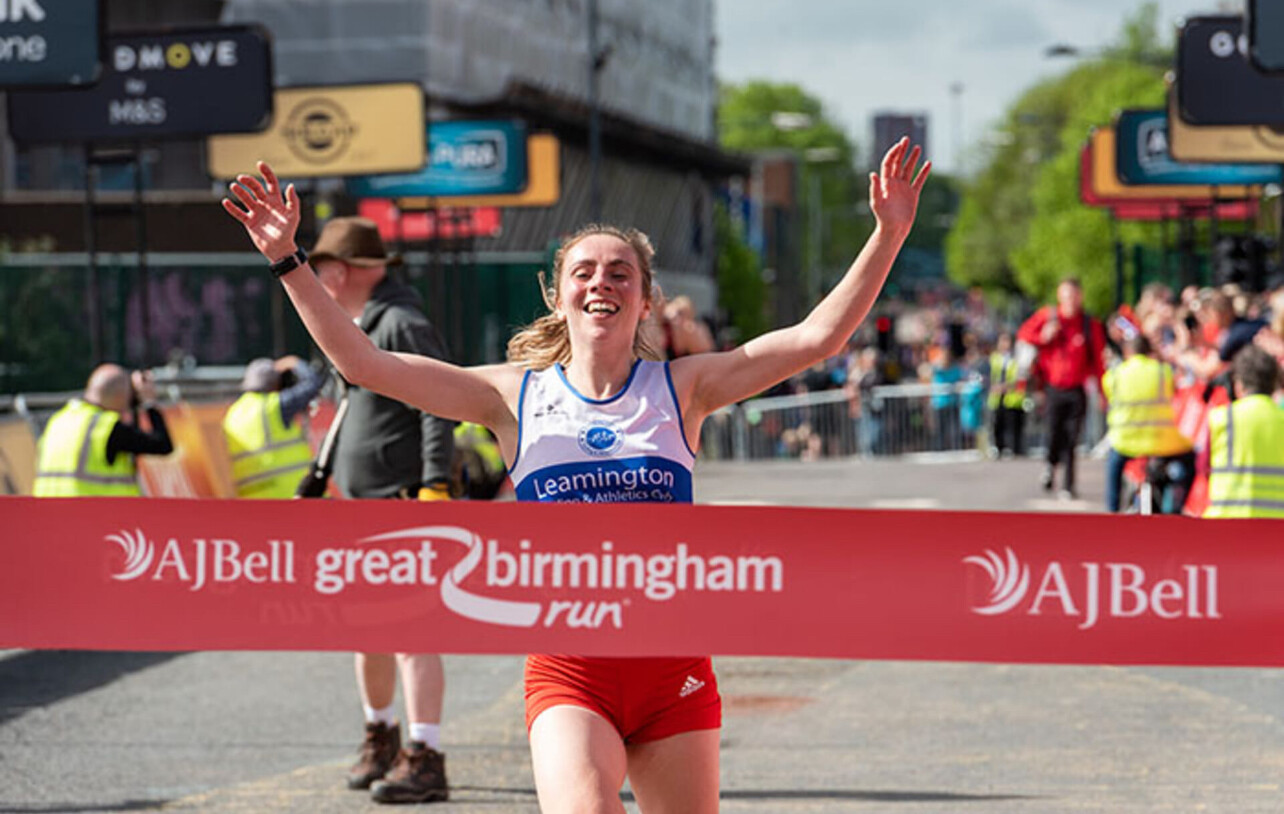
Course Highlights
The race courses showcase Birmingham’s rich heritage and modern landmarks. Runners will pass through iconic sites such as the Jewellery Quarter, St. Paul’s Square, the Mailbox, Grand Central at New Street Station, and Digbeth. Half Marathon participants will also enjoy scenic views of Cannon Hill Park and Edgbaston Stadium.
Course Records
The Great Birmingham Run has seen impressive performances over the years. The current course records are:
• Men’s Half Marathon: Micah Kogo (Kenya) – 1:00:17 (2012)
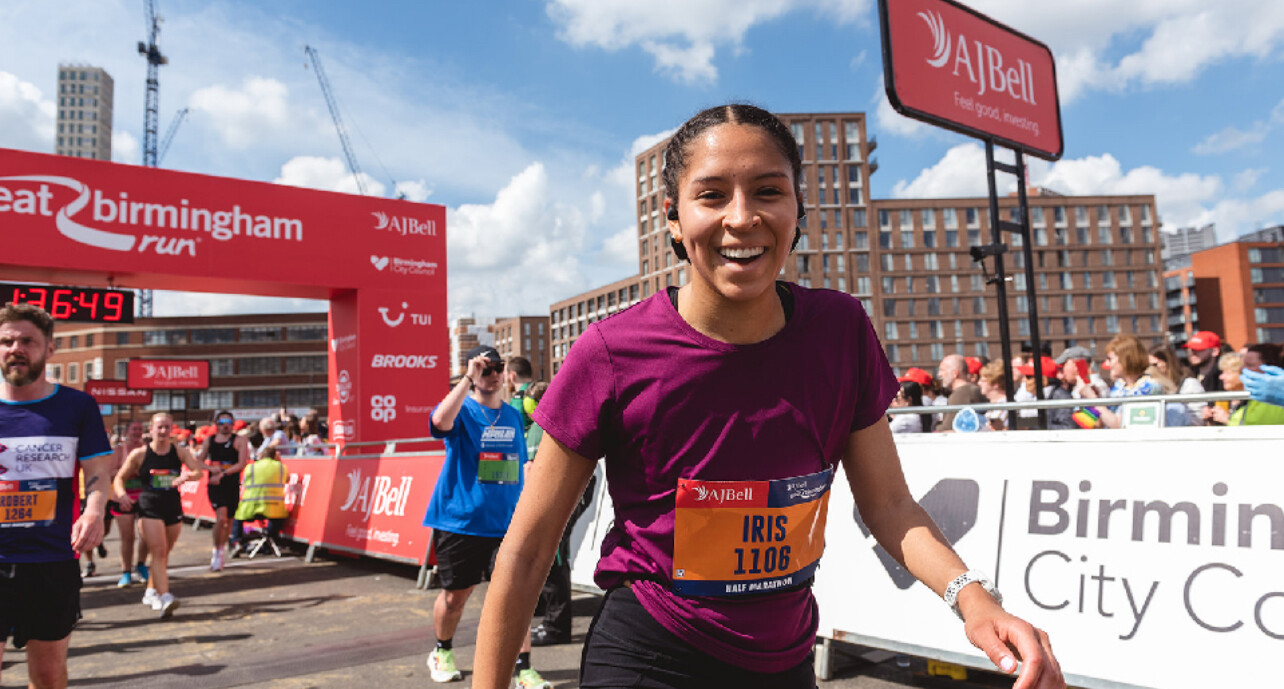
• Women’s Half Marathon: Gemma Steel (UK) – 1:10:19 (2013)
Elite Participation
While the 2025 elite field has not been officially announced, the Great Run Series typically attracts top-tier athletes. Notable past participants include Haile Gebrselassie and Gemma Steel, who have both delivered memorable performances on Birmingham’s streets.
Junior & Mini Runs
On Saturday, 3 May 2025, young runners can participate in the Junior & Mini Great Birmingham Run at Alexander Stadium. This family-friendly event offers a fantastic introduction to running in a fun and supportive environment.
Final Thoughts
Whether you’re aiming for a personal best, supporting a charity, or simply soaking in the city’s vibrant atmosphere, the Great Birmingham Run 2025 promises an unforgettable experience. With its combination of challenging courses, enthusiastic crowds, and festive celebrations, it’s a highlight of the UK’s running calendar.
by Boris Baron
Login to leave a comment
Great Birmingham Run
The Great Birmingham Run event held in Birmingham, UK. For security reasons the 2019 race was not a full half marathon. The distance was 11.07 miles. It forms part of the Great Run British Marathon Series. The first event was held on October 15, 2017 on the same day as the existing Great Birmingham Run in the city center. Whether...
more...Distance Running Takes the Spotlight at the World Indoor Championships in China
After years of delays and anticipation, the 2025 World Athletics Indoor Championships will finally unfold in Nanjing, China, from March 21 to 23. While sprints and field events always generate buzz, this edition promises to be a landmark for distance running—with some of the world’s best athletes converging to test themselves against the clock, the field, and history.
At the center of it all is Jakob Ingebrigtsen, Norway’s Olympic gold medalist and world champion, who will attempt an ambitious and rare double in the 1500 meters and 3000 meters. If successful, he will join Ethiopian legend Haile Gebrselassie, who last accomplished the feat in 1999. Ingebrigtsen’s smooth stride, iron pacing, and fierce final kick have made him one of the most dominant middle-distance runners of the past decade. But with Ethiopian and Kenyan contenders lining up with fast times and bold strategies, neither race will be a solo effort.
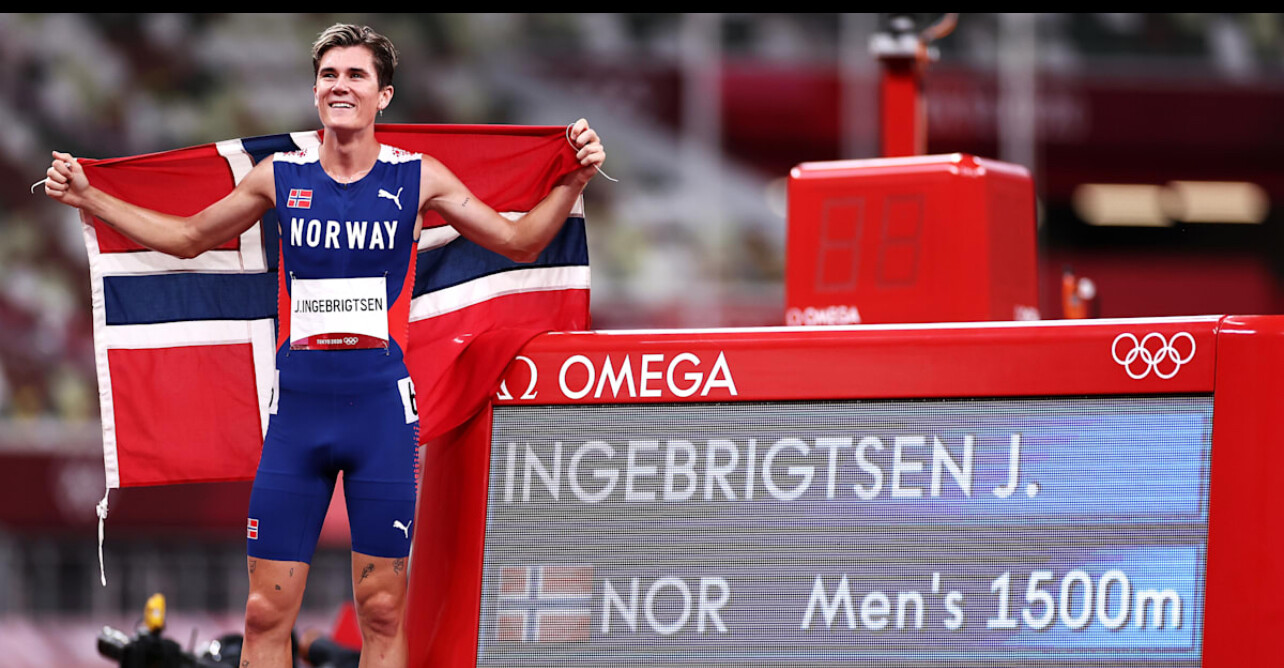
The 3000 meters is shaping up as one of the most exciting events of the meet. Alongside Ingebrigtsen, Ethiopia’s Selemon Barega—Olympic 10,000m champion—and Kenya’s Jacob Kropbring serious range and championship pedigree. With indoor tracks amplifying the tactical element and crowd energy, fans can expect a thrilling mix of surges, positioning, and all-out finishing kicks in the final laps.
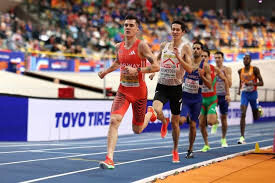
In the 800 meters, the men’s race is wide open. With no clear dominant figure, the door is open for rising stars from Spain, Algeria, and the United States to make a breakthrough. Indoors, the 800 is a physical, high-stakes affair, with tight turns and strategic jostling—where positioning is just as important as speed. The women’s 800 features a mix of veterans and rising talent, with sub-2:00 runners all seeking to time their peak perfectly for Nanjing.
The women’s 1500 meters could become a showcase for a new era of stars. While no single name stands above the rest going in, there are multiple women capable of taking the crown, including contenders from Great Britain, Ethiopia, and Australia. As with the men’s race, the tight indoor track places a premium on tactical patience and decisive moves.
Also featured is the distance medley relay, a relatively new but fan-favorite event that brings a unique blend of speed and endurance. Countries with depth across the 400, 800, 1200, and 1600-meter legs will have the advantage, and the energy in the building is expected to be electric when teams hand off for the final mile leg.
Nanjing’s fast indoor surface and tightly packed arena create the perfect environment for records, surprises, and heroic runs. After years of waiting, the distance events at these World Indoor Championships promise to be the heart of the competition—where strategy, stamina, and raw speed will collide on the world stage.
by Boris Baron
Login to leave a comment
World Athletics Indoor Championships
World-Class Competition Lands in China: 2025 World Athletics Championships The global spotlight shines on China as it hosts the 2025 World Athletics Championships, bringing together the planet’s most elite runners, jumpers, and throwers. This prestigious event, organized by World Athletics, represents the pinnacle of track and field competition—where national pride, personal records, and world titles are on the line. ...
more...Moh Ahmed Makes Half Marathon Debut A New Chapter for Canadas Distance Running Star
For elite runners, moving up in distance as they age is a natural progression History has shown this with legends like Kenenisa Bekele Haile Gebrselassie and Eliud Kipchoge all of whom transitioned from middle distance events to dominate the 5000m 10000m and eventually the marathon Now following a similar trajectory Canadian distance running star Moh Ahmed is set to make his highly anticipated half marathon debut at the United Airlines NYC Half Marathon on Sunday March 16 2025
From the Track to the Roads
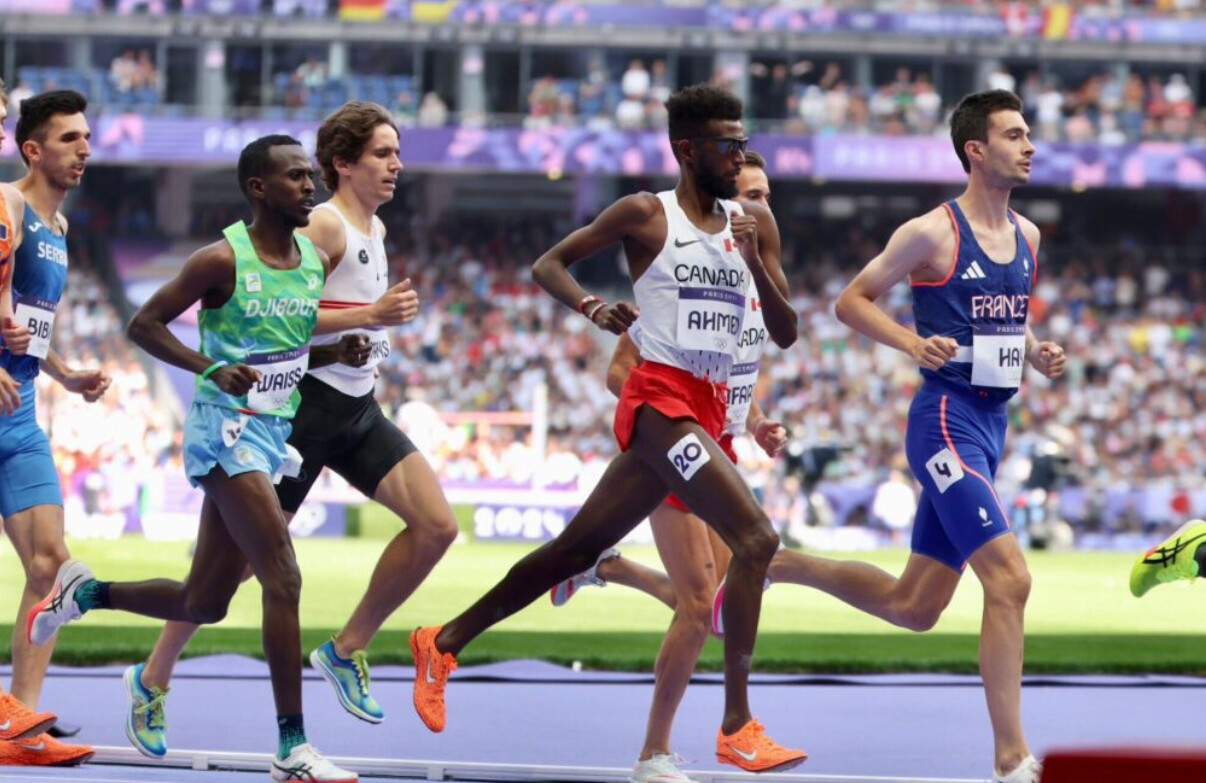
Ahmed a native of St Catharines Ontario has been a force in international athletics for over a decade He has built an impressive résumé earning
• Olympic Glory Silver in the 5000m at the Tokyo 2020 Olympics
• World Championship Medals Bronze in the 5000m at the 2019 and 2022 World Championships
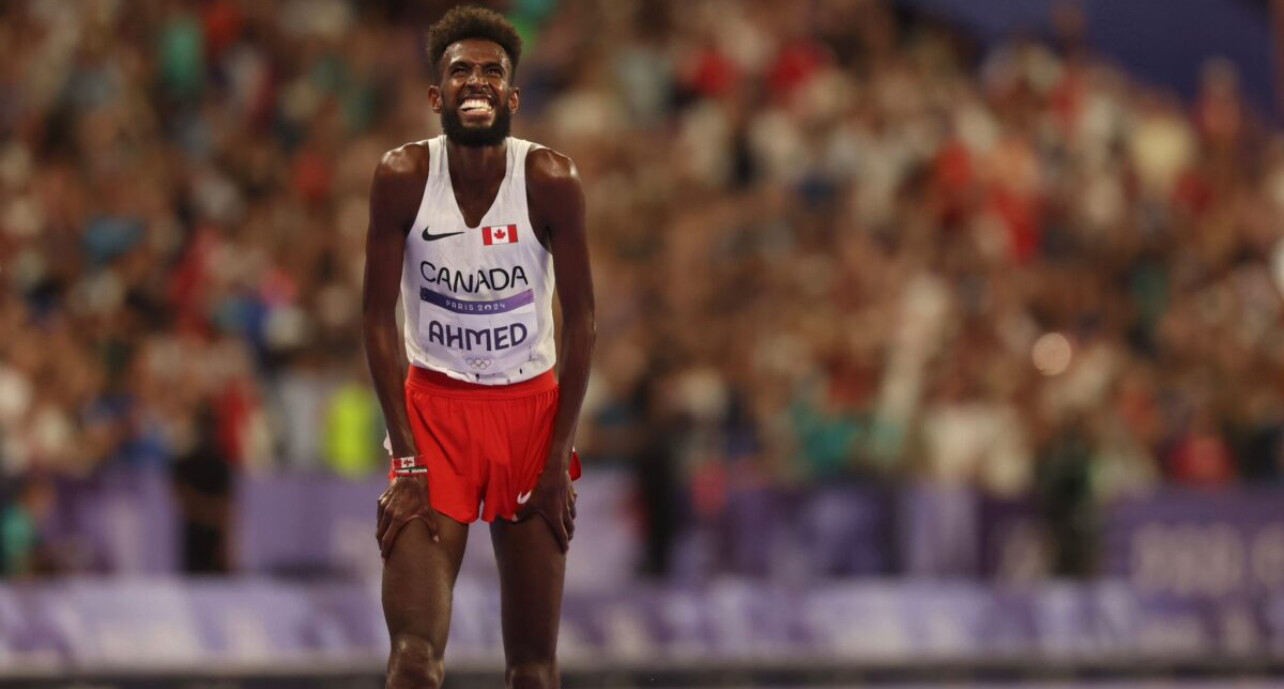
• National Records Holding Canadian records in the 5000m 124720 and 10000m 263414
As he transitions from the track to road racing Ahmed joins a long list of elite runners who have sought new challenges over longer distances His decision to step up to the half marathon has generated excitement as fans and analysts eagerly anticipate how his track speed will translate to 131 miles
The NYC Half A Premier Road Racing Test
The United Airlines NYC Half Marathon is one of the most prestigious half marathons in the world drawing elite and amateur runners alike The race begins near the Brooklyn Museum passes through Times Square one of the only times the area is closed to traffic for a race and finishes in the heart of Central Park The course presents a challenging mix of hills and fast sections making it an excellent test for Ahmeds road racing debut
Ahmed will face a strong field that includes fellow Canadian Olympian Ben Flanagan a national record holder and a formidable competitor in the event The race will be a major test of Ahmeds endurance and strategic racing skills against some of the best long distance runners in the world
Breaking Barriers in the Big Apple
To date only three runners have broken the 60 minute barrier at the NYC Half Marathon a testament to the courses difficulty If Ahmed can challenge this mark in his debut it will further solidify his potential as a future marathon star With a background of blistering track times and world class endurance his performance in New York could signal the beginning of a new era for Canadian distance running
A New Beginning
As Ahmed takes on this new challenge all eyes will be on him to see how he adapts to the demands of road racing Whether this debut is a stepping stone toward future marathon ambitions or simply an exciting new test one thing is certain Moh Ahmeds journey is far from over His transition to the half marathon is just the beginning of another thrilling chapter in his already legendary career
by Boris Baron
Login to leave a comment
United Airlines NYC Half-Marathon
The United Airlines NYC Half takes runners from around the city and the globe on a 13.1-mile tour of NYC. Led by a talent-packed roster of American and international elites, runners will stop traffic in the Big Apple this March! Runners will begin their journey on Prospect Park’s Center Drive before taking the race onto Brooklyn’s streets. For the third...
more...Who Had the Best Era in Track & Field? A Generational Showdown
Track and field has long been the stage for some of the most electrifying athletic performances in history. Each generation has produced legends who have redefined what is possible in sprinting, distance running, and field events. But which era stands above the rest?
From the Silent Generation pioneers to the Gen Z record-breakers, every period has contributed to the evolution of the sport. Let’s break down each era’s greatest stars and their lasting impact on track and field.
Gen Z (Born 1997 - 2012): The Future of Track & Field
The newest generation of elite athletes is already making waves on the world stage. With the benefit of cutting-edge training, nutrition, and recovery techniques, these young stars are smashing records at a rapid pace.
Notable Sprinters & Field Athletes:
• Sydney McLaughlin-Levrone (USA) – 400m hurdles world record holder and Olympic champion
• Mondo Duplantis (Sweden) – Pole vault world record holder
• Erriyon Knighton (USA) – One of the fastest teenagers ever in the 200m
Notable Distance Runners:
• Jakob Ingebrigtsen (Norway) – Olympic 1500m champion, European mile record holder
• Joshua Cheptegei (Uganda) – 5000m and 10,000m world record holder
• Jacob Kiplimo (Uganda) – Half marathon world record holder (57:31)
• Gudaf Tsegay (Ethiopia) – World champion in the 1500m, dominant in middle distances
Gen Z athletes are not only breaking records but also shaping the future of the sport through their influence on social media and global visibility. With their combination of speed, endurance, and access to modern sports science, they may soon surpass all who came before them.
Defining Traits: Explosive, record-breaking, tech-savvy
Millennials (Born 1981 - 1996): The Superstars of the Modern Era
No discussion of dominant track and field generations is complete without mentioning Usain Bolt. The Jamaican sprinting legend captured the world’s attention with his charisma and untouchable world records.
Notable Sprinters:
• Usain Bolt (Jamaica) – Fastest man in history (100m: 9.58, 200m: 19.19)
• Allyson Felix (USA) – Most decorated female Olympian in track history
• Shelly-Ann Fraser-Pryce (Jamaica) – One of the most dominant sprinters of all time
Notable Distance Runners:
• Eliud Kipchoge (Kenya) – The greatest marathoner of all time, first to break two hours in a marathon
• Mo Farah (UK) – Dominated the 5000m and 10,000m at two Olympic Games
• Genzebe Dibaba (Ethiopia) – 1500m world record holder
• Ruth Chepngetich (Kenya) – First woman to break the 2:10 barrier in the marathon, setting a world record of 2:09:56 at the 2024 Chicago Marathon
Millennials excelled across all track and field disciplines. They ushered in an era of professional distance running dominance, with African runners setting standards in middle and long distances. Meanwhile, Kipchoge’s sub-2-hour marathon attempt was a historic milestone in human endurance.
Defining Traits: Charismatic, dominant, endurance revolutionaries
Gen X (Born 1965 - 1980): The Tough and Versatile Competitors
Gen X athletes were the bridge between the amateur days of track and the fully professional era. They pushed the sport forward with fierce rivalries and new records, while also seeing the globalization of track and field.
Notable Sprinters:
• Maurice Greene (USA) – Former world record holder in the 100m (9.79)
• Marion Jones (USA) – One of the most dominant sprinters of the late ‘90s
Notable Distance Runners:
• Haile Gebrselassie (Ethiopia) – Olympic and world champion, former marathon world record holder
• Paul Tergat (Kenya) – Pioneered marathon running dominance for Kenya
• Tegla Loroupe (Kenya) – First African woman to hold the marathon world record
This era marked a golden age for distance running, with Gebrselassie and Tergat setting the stage for the marathon revolution that would come in the next generation. With increased sponsorships, the road racing circuit became more competitive, and Kenyan and Ethiopian dominance solidified.
Defining Traits: Tough, globalized, long-distance pioneers
Baby Boomers (Born 1946 - 1964): The Golden Age of Track & Field
The Baby Boomers took track and field into the modern Olympic era, producing some of the most iconic figures in the sport’s history.
Notable Sprinters:
• Carl Lewis (USA) – Nine-time Olympic gold medalist across sprints and long jump
• Florence Griffith-Joyner (USA) – 100m (10.49) and 200m (21.34) world record holder
Notable Distance Runners:
• Sebastian Coe (UK) – 800m and 1500m Olympic champion, middle-distance legend
• Steve Prefontaine (USA) – One of the most influential distance runners in history
• Miruts Yifter (Ethiopia) – 5000m and 10,000m Olympic champion
This era brought middle and long-distance running into the mainstream, with rivalries like Coe vs. Ovett and Prefontaine vs. the world captivating fans. The Baby Boomers were the first generation of professional-level training and saw athletes truly dedicated to their craft year-round.
Defining Traits: Bold, revolutionary, multi-talented
Silent Generation (Born 1928 - 1945): The Pioneers of Kenya’s Dominance
This generation laid the foundation for modern track and field, producing legends whose influence still resonates today.
Notable Distance Runners:
• Kip Keino (Kenya) – The pioneer of Kenya’s dominance in distance running, winning Olympic gold in the 1500m (1968) and 3000m steeplechase (1972)
• Emil Zátopek (Czechoslovakia) – Triple gold in 5000m, 10,000m, and marathon at the 1952 Helsinki Olympics
• Paavo Nurmi (Finland) – Nine-time Olympic gold medalist in long-distance events
Kip Keino’s triumph over Jim Ryun in the 1500m final at the 1968 Mexico City Olympics is considered one of the greatest upsets in Olympic history. Competing at high altitude, Keino used a fast early pace to break Ryun, ushering in an era of Kenyan middle-distance dominance that continues today.
Defining Traits: Groundbreaking, resilient, visionary
Which Generation Had the Greatest Impact?
Each generation of track and field athletes has contributed to the sport’s evolution in unique ways:
• Millennials brought global superstardom (Bolt, Felix, Fraser-Pryce, Kipchoge, Chepngetich)
• Gen X athletes were fierce competitors in a rapidly changing sport (Greene, Gebrselassie, Tergat)
• The Baby Boomers set records that still stand today (Carl Lewis, Flo Jo, Coe, Prefontaine)
• The Silent Generation laid the foundation for modern track and field (Owens, Zátopek, Kip Keino)
• Gen Z is already breaking records and shaping the future of the sport (McLaughlin-Levrone, Ingebrigtsen, Cheptegei)
While it’s hard to declare one era the best, one thing is certain: the sport of track and field continues to evolve, with each generation pushing the limits of human performance.
Which generation do you think is the greatest? Let us know in the comments!
by Boris Baron
Login to leave a comment
Haile Gebrselassie’s Journey from Track Legend to Business Mogul
Haile Gebrselassie, renowned for his extraordinary achievements in long-distance running, has seamlessly transitioned into a successful entrepreneur, establishing a diverse business empire that significantly contributes to Ethiopia’s economy.
Athletic Achievements
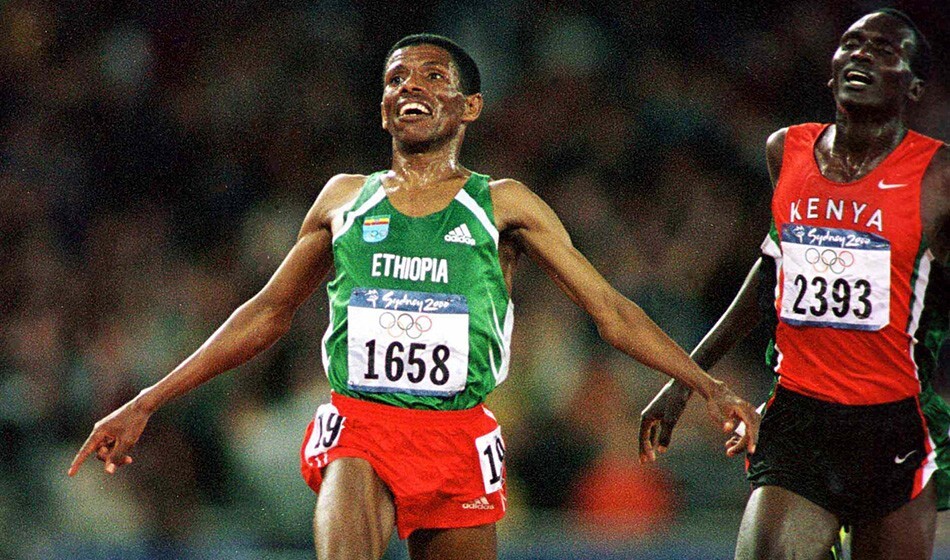
Gebrselassie’s athletic career is adorned with numerous accolades:
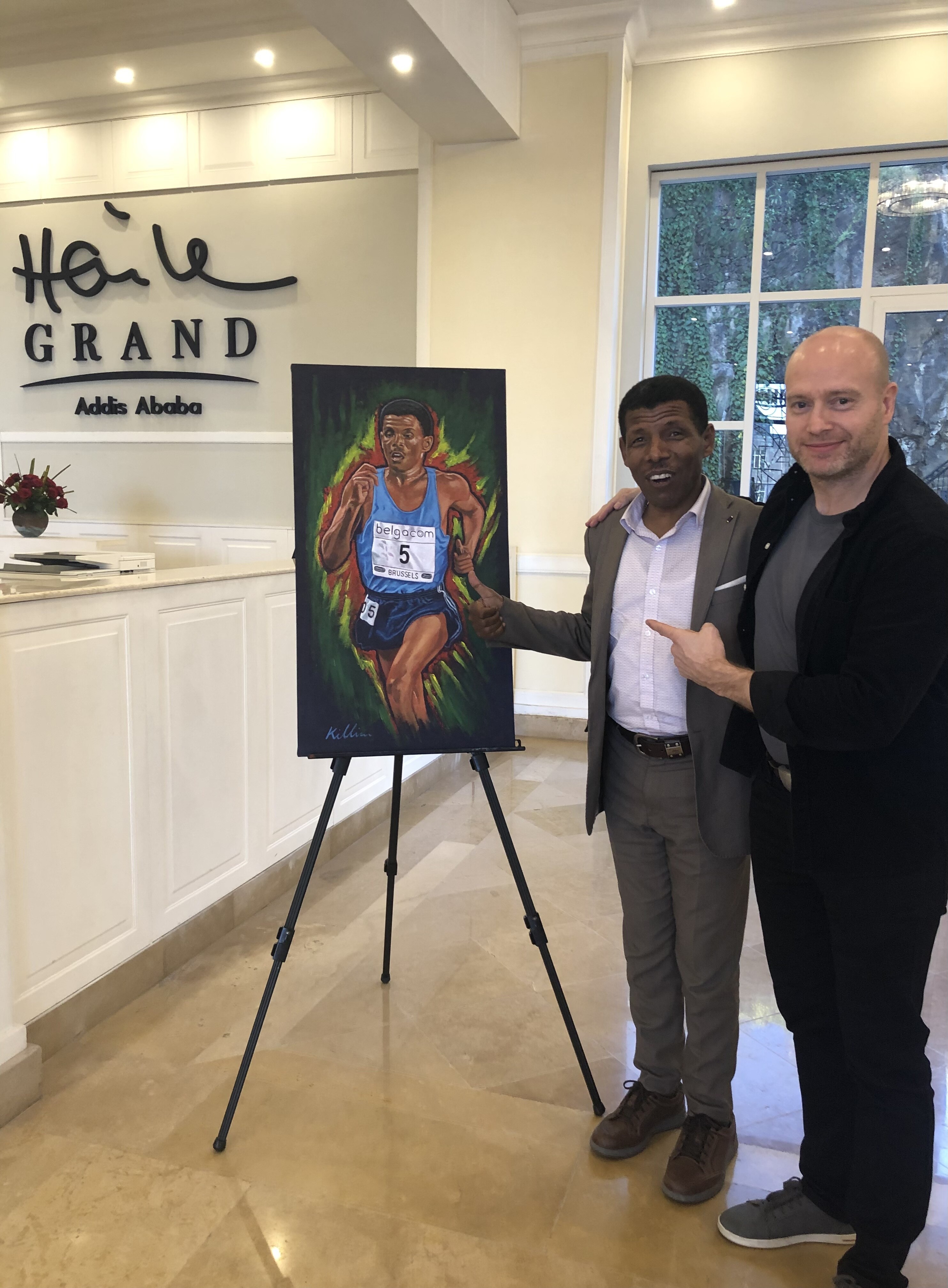
• Olympic Gold Medals: He secured gold in the 10,000 meters at both the 1996 Atlanta and 2000 Sydney Olympics.
• World Championships: Gebrselassie clinched four World Championship titles in the 10,000 meters in 1993, 1995, 1997, and 1999.
• World Records: Throughout his career, he set 27 world records across distances ranging from 1,500 meters to the marathon. Notably, he set a marathon world record of 2:03:59 at the 2008 Berlin Marathon.
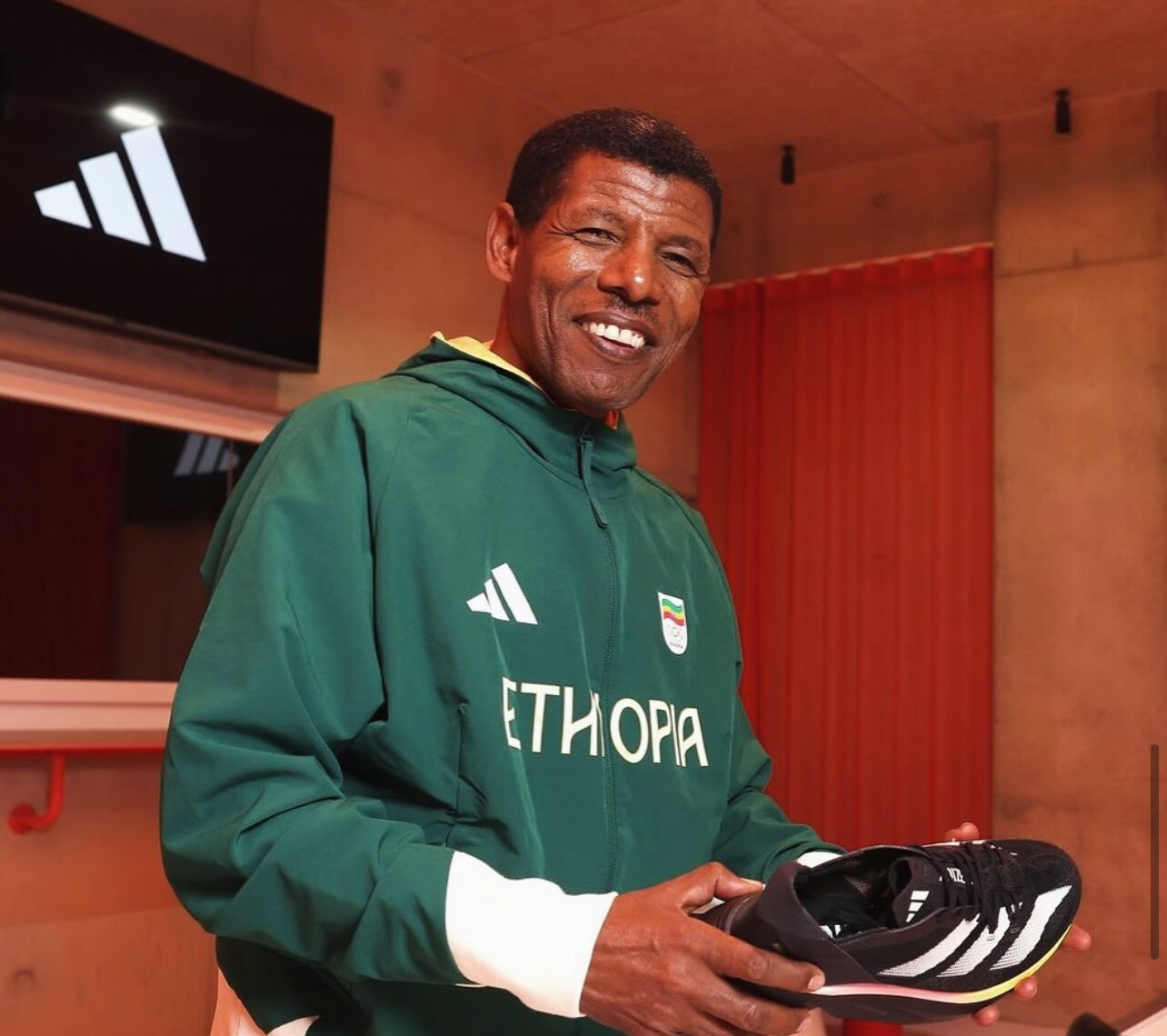
Haile Hotels and Resorts: A Fusion of Hospitality and Athletics
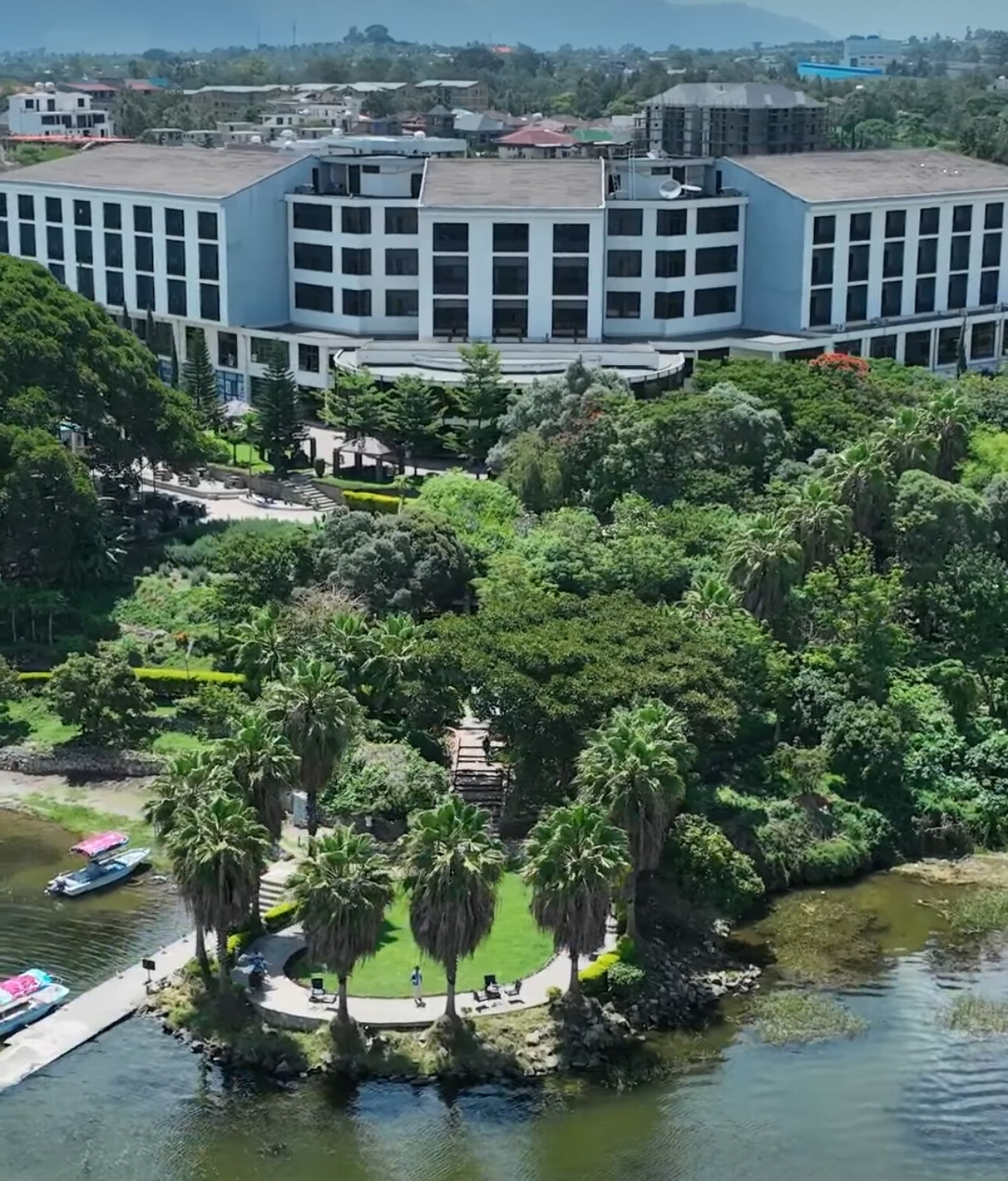
In 2010, Gebrselassie founded Haile Hotels and Resorts, launching the flagship resort in Hawassa. The chain has since expanded to several Ethiopian cities, including Shashemene, Ziway, Arba Minch, Gondar, Adama, and Addis Ababa. These establishments are distinguished by their integration of athletic facilities, reflecting Gebrselassie’s dedication to promoting sports and wellness. Amenities such as state-of-the-art gyms, running tracks, and sports complexes cater to both professional athletes and fitness enthusiasts, embodying a harmonious blend of luxury and athleticism.
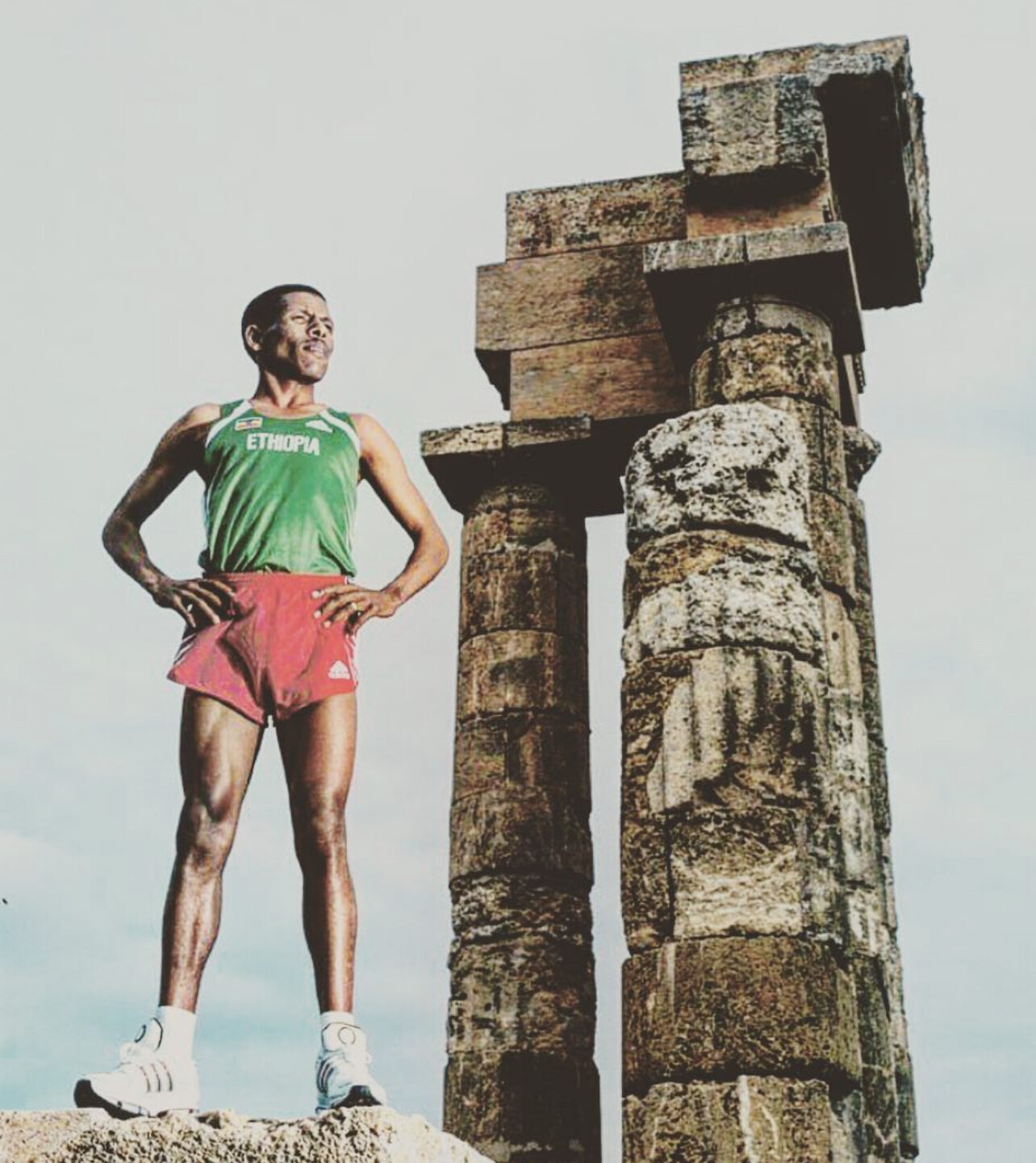
Diverse Business Ventures
Beyond hospitality, Gebrselassie has diversified his investments:
• Automotive Industry: He owns Marathon Motors, the exclusive distributor of Hyundai vehicles in Ethiopia. The company has also ventured into assembling electric cars locally, marking a significant step in the nation’s automotive sector.

• Coffee Farming: Gebrselassie owns a coffee farm in the Masha region of Ethiopia. The 1,500-hectare farm, known as Yeppo Village, includes 200 hectares dedicated to conservation forest land. The farm produces organic and Rainforest Alliance–certified coffee, reflecting Gebrselassie’s commitment to sustainable agriculture.
• Real Estate and Education: His investments include real estate projects and the establishment of educational institutions, such as the Ayelech Degefu Memorial School, named in honor of his late mother.
Leadership and Family Involvement
Gebrselassie serves as the Chief Executive Officer (CEO) of Haile and Alem International PLC, the parent company overseeing his diverse business ventures. His wife, Alem Gebrselassie, plays an active role in their joint business endeavors, contributing to the strategic direction and management of their enterprises. The couple’s collaboration extends beyond business, reflecting a partnership deeply rooted in mutual support and shared vision.

Continued Involvement in Athletics
Although Gebrselassie retired from competitive running in 2015, he remains actively involved in the athletic community. He serves as a mentor to emerging athletes and participates in various initiatives aimed at promoting sports in Ethiopia. His enduring commitment to athletics is evident in his business ventures, particularly his hotels, which serve as hubs for athletic training and events.
Haile Gebrselassie’s journey from an illustrious athletic career to a successful businessman exemplifies the potential of leveraging sports fame into impactful entrepreneurship. His ventures not only contribute to economic growth but also foster a culture of health and fitness, reflecting his enduring legacy both on and off the track.
Login to leave a comment
The second coming of Lelisa in Dubai?
Former world champion Lelisa Desisa is returning to the Dubai Marathon, scene of his debut triumph, hoping that the second coming on 12th January will bring him as much success as the first. Desisa’s sprint to victory in Dubai 2013 with four pursuers strung out closely behind him was the first time five men had gone under 2hr 5mins for a marathon anywhere. With 2.04.45, one of the fastest debuts in history the 22 year old Desisa underlined his new elite status by winning Boston barely three months later, and finishing second in the world championships in Moscow in the summer.
The Ethiopian endeared himself to the Boston public that year of the bombing tragedy by returning to the city two months after the event, dedicating his victory to the victims, and presenting his framed medal to the mayor in a much lauded public ceremony. He endorsed his status as a favourite adopted son by winning Boston again in 2015, then finishing second the following year. He may not be as famous as some, but his record after that suggests he had a good case to be considered male marathoner of the decade – he won in New York in 2018, after a second and third in earlier years; all of which led up to his apotheosis as IAAF world champion in the torrid midnight heat of Doha 2019.
Then came the pandemic, a respite after the efforts of the previous six years; and an opportunity to spend time with his young family and start a business back in Ethiopia. According to his manager Hussein Makke, he is now raring to go again. “Desisa took time off to start his business and put staff in place, to ensure if you like his post-racing career,“ said Makke. “He and his wife also welcomed two children. But he is well rested and he told me he is far from finished in competitive running. He’s back to full force training and looking to return to podiums in 2025.“
“It’s great to have such an illustrious winner back,“ said Dubai race director Peter Connerton this week. “Although we’ve had all-time greats like Haile Gebrselassie here in the past, current Olympic champion Tamirat Tola, and women’s world record holder Ruth Chepngetich, all winning in fast times, we’ve also built up a reputation as a race for debutants; and Lelisa and others have certainly proved that point.“
“We suffered with the pandemic, as did all marathons worldwide, but we’re getting back to pre-pandemic interest and entry levels, and looking to make Dubai 2025 the best ever.“
Login to leave a comment
A look into the men's marathon world record progression from legendary Paul Tergat to the late Kelvin Kiptum
Kelvin Kiptum’s untimely passing leaves his sub-two-hour marathon goal unfulfilled, but the evolution of marathon times, Kenyan dominance, and technological advancements signal the likelihood of sub-two-hour marathons becoming common.
The men’s marathon has experienced major shifts and if not for the untimely passing of Kelvin Kiptum, the world could have seen a sub-two-hour marathon this year.
The late Kelvin Kiptum had plans to shatter his own world record at the NN Rotterdam Marathon earlier this year but unfortunately, the world might never know the Kenyan’s full potential.
However, with the emergence of super shoes and strong athletes will definitely see the shift in times and very soon, the world might witness runners posting very fast times and sub-two-hour marathons might just be the order of the day.
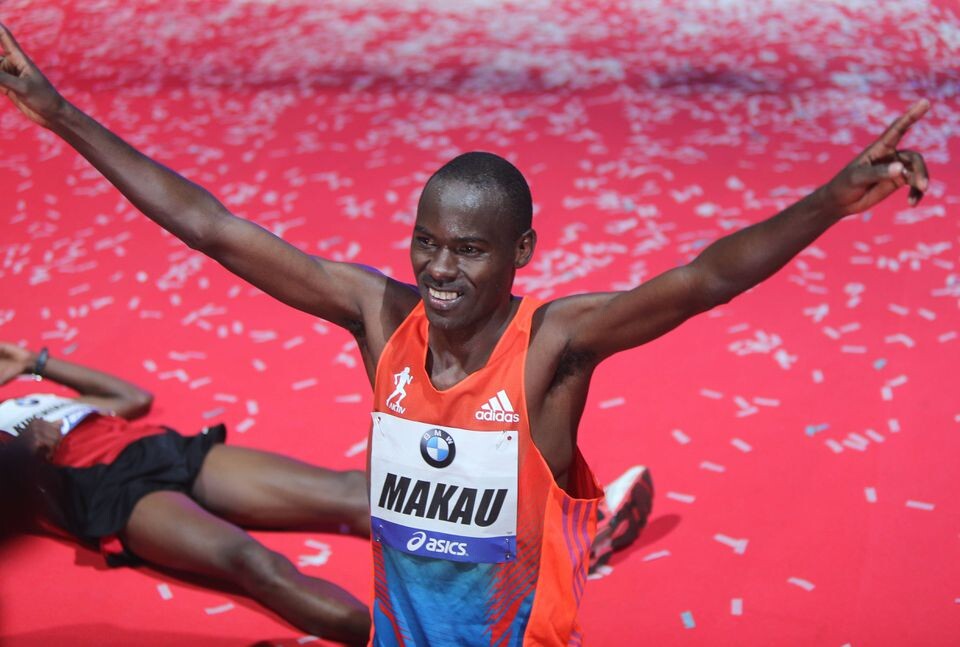
Kenyans have been so dominant in the long-distance races and out of the nine fastest times from 2003, there is only one Ethiopian who has managed to penetrate through Kenyan dominance. Paul Tergat broke the world record in 2003 and since then, times have changed drastically with the late Kelvin Kiptum now having the world record.
1) Paul Tergat (2003)
It is not a surprise that Paul Tergat paved the way for Kenyan dominance as long as the marathon is concerned. Tergat proved to Kenyans and the whole world at large, that anything is possible and from his performance, marathon running became Kenya’s business.
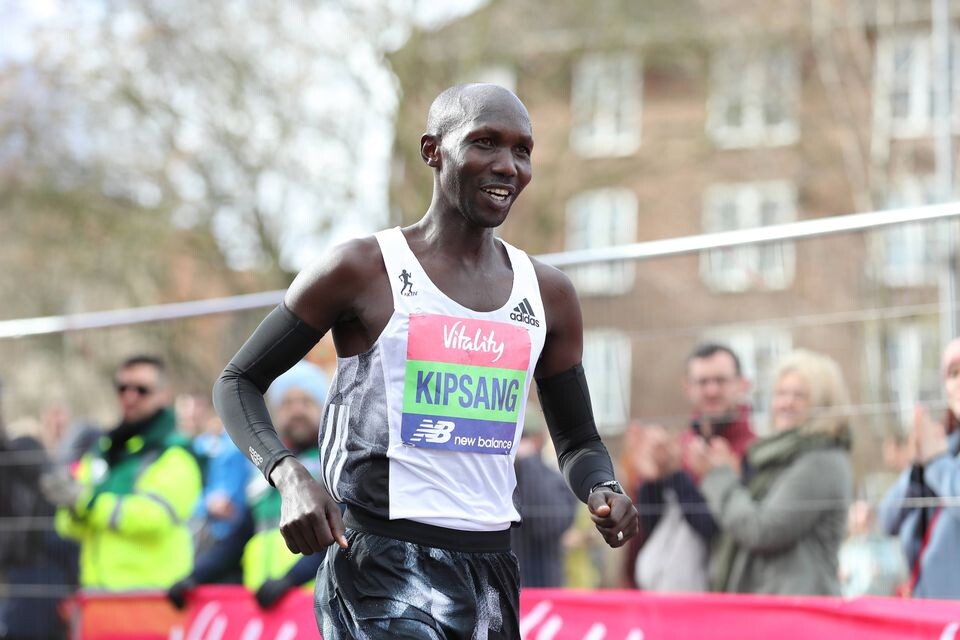
At the 2003 Berlin Marathon, Paul Tergat clocked a stunning 2:04:55 to win the race and his time was the first world record for the men's marathon ratified by World Athletics.
Haile Gebrselassie threatened Kenya’s dominance in the marathon with his two world records over the distance. He first shattered the world record at the 2007 Berlin Marathon, clocking a stunning 2:04:26 to cross the finish line.
The legendary marathon runner then proceeded to shatter his own world record at the 2008 Berlin Marathon, clocking an impressive 2:03:59 to cross the finish line. However, his reign was not for long as another Kenyan rose to prominence.
The Berlin Marathon seemed to be a suitable course for breaking the world record as Patrick Makau shattered Haile Gebrselassie’s record at the 2011 edition of the event. Makau clocked a blistering 2:03:38 to cross the finish line.
Another Kenyan, Wilson Kipsang proceeded to shatter Patrick Makau’s world record at the 2013 Berlin Marathon. Wilson Kipsang clocked a stunning 2:03:23 to cross the finish line in one of the most historic showdowns.
Wilson Kipsang’s world record did not stay for long as a year later, Dennis Kimetto completely destroyed the record, becoming the first man to clock under two hours and three minutes to win a marathon.
Competing at the 2014 Berlin Marathon, Dennis Kimetto clocked 2:02:57 to win the race with his world record being one of the most long-standing records before Eliud Kipchoge’s rise to the top.
6) Eliud Kipchoge
In his prime, Eliud Kipchoge was undoubtedly one of the most consistent marathon runners and it was just a matter of when he would break the world record.
Eliud Kipchoge made his dream a reality at the 2018 edition of the Berlin Marathon where he clocked an astonishing 2:01:39 to cross the finish line and take top honours in the race, becoming the first man to clock under two hours and two minutes.
Eliud Kipchoge was not done with his dominant exploits as he proceeded to claim top honours at the 2022 Berlin Marathon in a new world record time of 2:01:09.
7) Kelvin Kiptum
The late Kelvin Kiptum was a rare talent and he would be the one to define marathon running following his resilience and hard work. In his debut at the 2022 Valencia Marathon, Kelvin Kiptum clocked the fastest time ever by a debutant. He crossed the finish line in a time of 2:01:53.
The world class marathoner then proceeded to claim the win at the London Marathon, clocking a personal best time and the second-fastest time then. He clocked 2:01:25 for a win.
Kelvin Kiptum was not done writing history as he shattered Eliud Kipchoge’s world record at the 2023 Chicago Marathon. He clocked 2:00:35 to win the race and before his demise, Kiptum was actually looking to run under two hours in the 42km distance.
by Abigael Wafula
Login to leave a comment
Ketema and Takele head entries for 50th Berlin Marathon
Ethiopia’s Tigist Ketema and Tadese Takele start as the fastest in the fields and will be hoping to lead the way when they line up for the BMW Berlin Marathon, a World Athletics Platinum Label road race, on Sunday (29).
Ketema, previously better known as an 800m and 1500m specialist, made her mark in the marathon in Dubai in January as she ran 2:16:07, a time that places her ninth on the women’s world marathon all-time list. She then ran 2:23:21 to place seventh in London in April and Berlin will be her first race since then.
“I have prepared for a personal best and plan to run the first half on Sunday in around 68 minutes,” she said. “I hope it won't be too cold because I prefer to run in slightly warmer weather.”
Ketema is one of three women with sub-2:20 PBs on the entry list, as her competition includes her compatriots Genzebe Dibaba and Yebrugal Melese, who have respective PBs of 2:18:05 and 2:19:36.
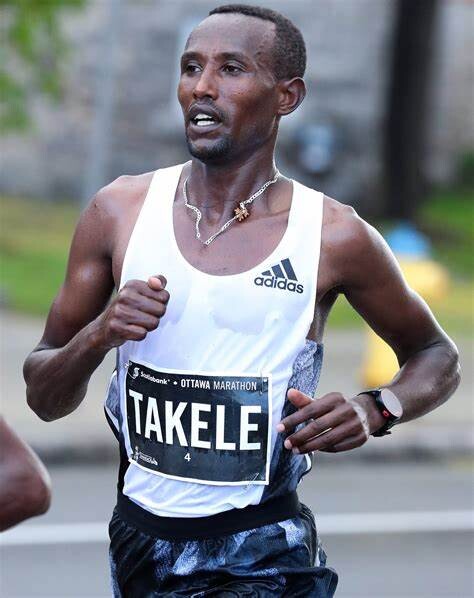
Dibaba ran that PB on her debut in Amsterdam in 2022 and she clocked 2:21:47 in Chicago a year later. “I saw Haile Gebrselassie run two world records in Berlin on TV and since then I've always wanted to run in Berlin,” she said. “Now the time has come. It would be a success for me if I ran a personal best.”
Another eight women on the entry list have dipped under 2:22 for the marathon in their careers so far, including Mestawot Fikir (2:20:45), Azmera Gebru (2:20:48), Sisay Gola (2:20:50), Fikrte Wereta (2:21:32) and Aberu Ayana (2:21:54), as well as Japan’s Mizuki Matsuda (2:20:52) and Ai Hosoda (2:21:42).
Germany’s Melat Kejeta is also part of that group, having clocked 2:21:47 in Dubai in January. She placed sixth at the Tokyo Olympics but was unable to finish the Olympic marathon in Paris due to stomach problems.
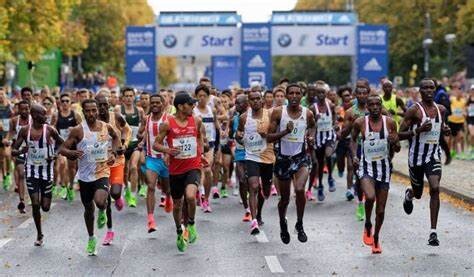
A total of 13 world records have so far been set in the Berlin Marathon, the most recent being the 2:11:53 by Tigist Assefa – a training partner of Ketema – in last year’s women’s race.
The men’s title on that occasion was won by Eliud Kipchoge, as he claimed a record fifth victory.
Kipchoge does not return this year but Takele does, following his third-place finish in last year’s race in a PB of 2:03:24. That was his most recent race due to injury, but he says he is now fit and ready to run. “I’ve trained very well,” he said, “and expect to run a strong race.”
Another four men to have dipped under 2:05 feature on the entry list, including Kenya’s Cybrian Kotut, who ran his PB of 2:04:34 when finishing second in Amsterdam last year, and Ethiopia’s Hailemaryam Kiros and Bazezew Asmare, who respectively clocked 2:04:41 in Paris in 2021 and 2:04:57 in Amsterdam in 2022.
Kenya’s former world half marathon record-holder Kibiwott Kandie races the marathon for the third time and will be looking to build on the PB of 2:04:48 he set in Valencia last year as he hunts for a first win over the distance.
They will be joined by athletes including Kenya’s Samwel Mailu, the world half marathon bronze medallist who set a course record of 2:05:08 to win the Vienna City Marathon last year and continues his comeback after injury, and Ethiopia’s Milkesa Mengesha, who finished sixth at the World Championships last year and has a best of 2:05:29.
Elite fields
Women
Tigist Ketema (ETH) 2:16:07
Genzebe Dibaba (ETH) 2:18:05
Yebrugal Melese (ETH) 2:19:36
Mestawot Fikir (ETH) 2:20:45
Azmera Gebru (ETH) 2:20:48
Sisay Gola (ETH) 2:20:50
Mizuki Matsuda (JPN) 2:20:52
Fikrte Wereta (ETH) 2:21:32
Ai Hosoda (JPN) 2:21:42
Melat Kejeta (GER) 2:21:47
Aberu Ayana (ETH) 2:21:54
Calli Hauger-Thackery (GBR) 2:22:17
Bekelech Gudeta (ETH) 2:22:54
Lisa Weightman (AUS) 2:23:15
Betelihem Afenigus (ETH) 2:23:20
Veronica Maina (KEN) 2:24:46
Bosena Mulatie (ETH) 2:26:59
Alisa Vainio (FIN) 2:27:26
Sonia Samuels (GBR) 2:28:04
Nora Szabo (HUN) 2:28:25
Philippa Bowden (USA) 2:29:14
Pauline Esikon (KEN) debut
Men
Tadese Takele (ETH) 2:03:24
Cybrian Kotut (KEN) 2:04:34
Hailemaryam Kiros (ETH) 2:04:41
Kibiwott Kandie (KEN) 2:04:48
Bazezew Asmare (ETH) 2:04:57
Samwel Mailu (KEN) 2:05:08
Milkesa Mengesha (ETH) 2:05:29
Haymanot Alew (ETH) 2:05:30
Philimon Kipchumba (KEN) 2:05:35
Josphat Boit (KEN) 2:05:42
Dejene Megersa (ETH) 2:05:42
Enock Onchari (KEN) 2:05:47
Oqbe Ruesom (ERI) 2:05:51
Justus Kangogo (KEN) 2:05:57
Haimro Alame (ISR) 2:06:04
Ashenafi Moges (ETH) 2:06:12
Asbel Rutto (KEN) 2:07:04
Samuel Tsegay (SWE) 2:06:53
Yohei Ikeda (JPN) 2:06:53
Stephen Kiprop (KEN) 2:07:04
Hendrik Pfeiffer (GER) 2:07:14
Kento Kikutani (JPN) 2:07:26
Melaku Belachew (ETH) 2:07:28
Godadaw Belachew (ISR) 2:07:45Y
uhei Urano (JPN) 2:07:52
Guojian Dong (CHN) 2:08:12
Filimon Abraham (GER) 2:08:22
Haftom Welday (GER) 2:08:24
Sebastian Hendel (GER) 2:08:51
Olonbayar Jamsran (MGL) 2:08:58
Haftamu Gebresilase (ETH) debut
by World athletics
Login to leave a comment
BMW Berlin Marathon
The story of the BERLIN-MARATHON is a story of the development of road running. When the first BERLIN-MARATHON was started on 13th October 1974 on a minor road next to the stadium of the organisers‘ club SC Charlottenburg Berlin 286 athletes had entered. The first winners were runners from Berlin: Günter Hallas (2:44:53), who still runs the BERLIN-MARATHON today, and...
more...Kipkorir and Kebeda win a record Madrid Half Marathon
The Kenyan and the Ethiopian claimed victory in the 23rd edition of the event, marked by the record number of participants with 21,000 runners
Kipkorir and Ethiopian Aberash Shilima Kebeda were awarded victory at the twenty-third edition of the Madrid Movistar Half Marathon, marked by the participant record with 21,000 runners and the presence as godparents of Portuguese Rosa Mota and Ethiopian Haile Gebrselassie
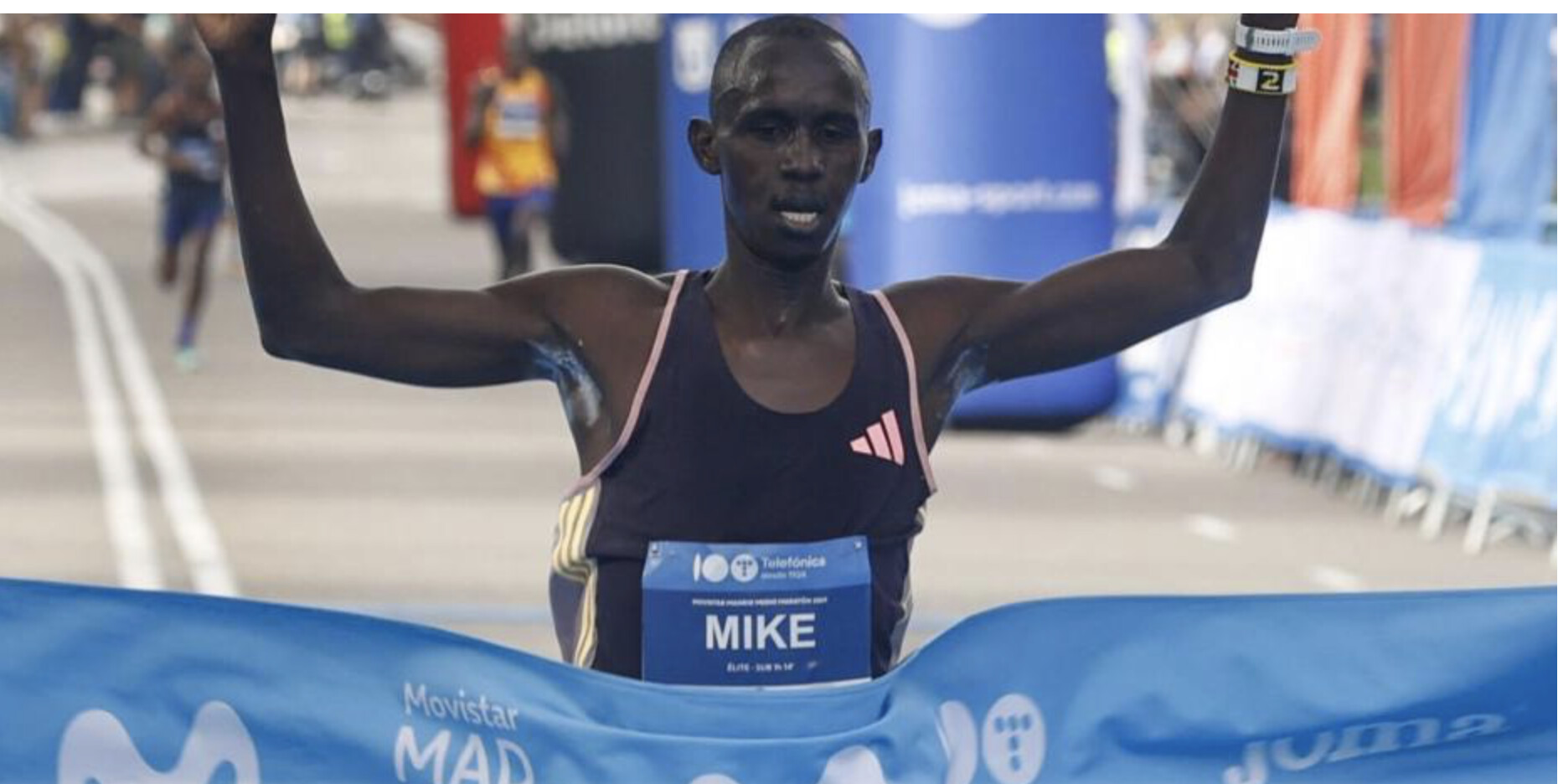
The Kenyan Mike Kipkorir and the Ethiopian Kikkorir took the victory in the men's category after a final attack that found no response from their pursuers, reaching the finish line in 1h01:07, thirteen seconds less than the Ugandan Ezekiel Mutai.
The first Spaniard at the finish line was Ayad Lamdassem, tenth at the finish line, with 1h06:45.
In the women's category, the Ethiopian Aberash Shilima Kebeda dominated the test quite well to take the victory with 1h08:31, almost a minute and a half ahead of her pursuers, the Kenyans Beatrice Nyaboke Begi and Vivian Jerotich Kosgei, second and third, respectively.
Clara Simal from Madrid, from the Marathon Sports Group, organizer of the event, was once again the first Spanish finisher, also repeating the ninth place overall that she already achieved in 2023.
ProFuturo Career
The ProFuturo 5km Race was also held parallel to the Movistar Madrid Half Marathon. This solidarity test was born in 2016 with a clear objective: running for education.
The victory went to Claudia Moreno (20:15) in the women's category and to Sergio Salinero (17:20) in the men's category
The Paralympic athlete Lorenzo Albaladejo, considered the best athlete with cerebral palsy in the history of Spain in speed events, also completed the test, as did Rosa Mota, the Portuguese marathon runner, holder of the triple crown with an Olympic, World Cup and European marathon.
Login to leave a comment
Medio Maraton de Madrid
Live running as ever. There is no insurmountable barrier in the Half Marathon of Madrid! The most spectacular and well-known Half Marathon is back. Lace up your running shoes and test yourself against the clock around the city centre. Dream with your goals and make them come true! ...
more...Striking similarities between Kelvin Kiptum and Samuel Wanjiru who both died in tragic fashion
Pulse Sports explains how the careers of marathon sensations Kelvin Kiptum and Samuel Wanjiru followed the same path before they met their death in tragic fashion.
The world is still coming to terms with the untimely death of world marathon record holder Kelvin Kiptum, who passed away alongside his coach, following a road accident on Sunday.
Kiptum and his Rwandan coach Gervais Hakizimana had big plans for the year that included an attempt at running a sub-two at the Rotterdam Marathon as well as winning Olympics gold but that is now water under the bridge.
The athlete’s death has robbed not just Kenya but the world an incredible talent who was set to dominate the marathon, bringing back memories of the late Samuel Wanjiru, who passed away similarly in tragic fashion in May 2011.
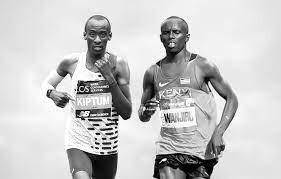
The two men’s careers and the manner in which they died have very striking similarities which will leave many surprised.
Died in tragic fashion
While Kiptum lost control of his car before hitting a tree, along the Elgeyo Marakwet-Ravine road, killing him on the spot, Wanjiru died following a mysterious fall off a balcony at his house in Nyahururu on May 15, 2021.
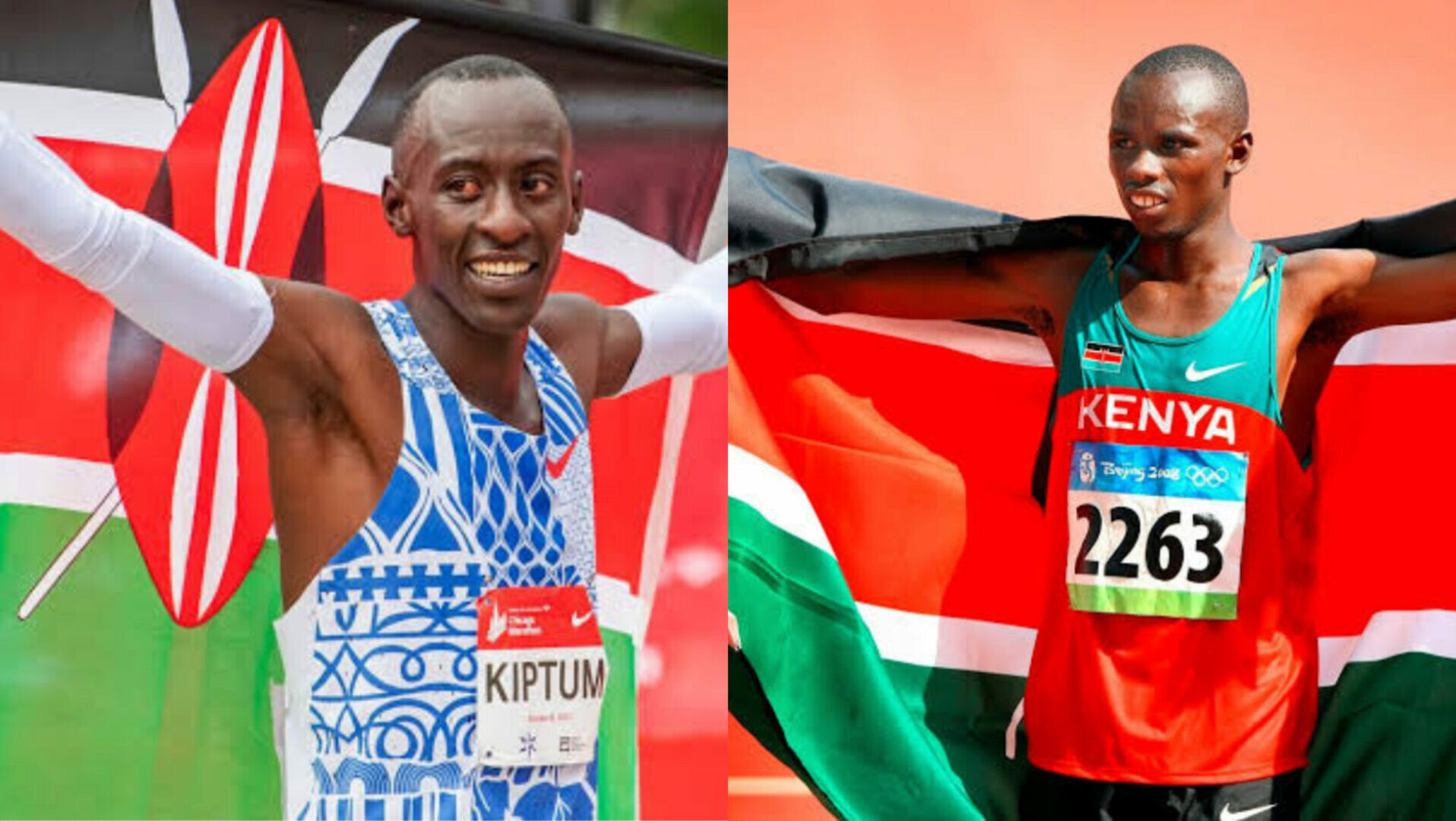
Just like Kiptum, the incident happened at night and his death remains a mystery that is yet to be unraveled to date.
Both died at 24
What is more heartbreaking is that the two runners died aged just 24 when they were just getting started.
Wanjiru had won the Chicago Marathon in 2009 and 2010 as well as the London Marathon (2009).
He was also the reigning Olympic marathon champion after winning gold in Beijing 2008 in an Olympic record time of 2:06:32.
For Kiptum, he held three of the six fastest times by the time he died, having broken the world marathon record in Chicago last year, clocking 2:00:35.
That came after an incredible win in London last April where he timed 2:01:25, coming close to the world record. Kiptum had run the fastest debut marathon in history when he won in Valencia in December 2022 in a time of 2:01:53.
Careers just taking off
Following their heroics in a short period of time, the two had the world at their feet by the time they died.
Wanjiru had been seen as the next big thing in marathon and was tipped to break the world record as well as retaining his Olympics gold in London the following year but he did not live to do it.
Kiptum was similarly tipped to be the man to take the mantle from legendary Eliud Kipchoge, especially after his astonishing run in London.
He was also seen as the man who would make history by running an official marathon under two hours and considered favourite to win Olympics gold in Paris, France this year.
Course records in London
In April 2009, Wanjiru won the London Marathon in a time of 2:05:10, a new personal record and also a new course record. That achievement saw him state that he was going to break Haile Gebrselassie's world record in the near future.
Fourteen years later in the English capital, Kiptum did the unthinkable, winning decisively with the second-fastest mark in history at 2:01:25, a course record which was only 16 seconds outside Kipchoge’s world record.
He would break the world record six months later in Chicago.
Sub-two-hour ambitions
Back in February 2008, Wanjiru declared he would become the first man to run a marathon under two hours.
"In five years' time, I feel capable of clocking a sub two hour-time for the marathon,” Wanjiru said at the Granollers Half Marathon which he won.
Meanwhile, since last year, the world has been waiting for Kiptum to run an official marathon under two hours.
He had already expressed his intentions of doing it at the Rotterdam Marathon in April.
“He had told me that he was feeling his body was in good shape and ready to run 1:59 or 1:58,” his heartbroken father Samson Cheruiyot told Citizen TV on Monday while recounting his last conversation with his son.
Last race in Chicago
The other striking similarity between Wanjiru and Kiptum is that Chicago Marathon was their last race before they died.
Wanjiru went to Chicago in October 2010 bidding to retain his title but a stomach problem had affected his preparations and his camp were just hoping for a podium finish.
He, however, surprised them when he defended his crown in a time of 2:06:24.
For Kiptum, Chicago was his third race in under a year and while he had set incredible times, not many expected a world record.
He delivered in style, clocking 2:00:35, to become the first man to break the 2:01 barrier, igniting hope that a sub-two-hour race was on the cards before death struck.
by Joel Omotto
Login to leave a comment
Marathon debut behind him, Cheptegei turns focus back to 10,000m for Paris
Just a few miles away from the site of his world 10,000m record three years prior, Joshua Cheptegei stumbled towards the finish line of the Valencia Marathon.
On the track, the Olympic 5000m gold medallist and three-time world 10,000m champion is renowned for his unbeatable finishing strength. But in what was his debut over the marathon distance, with each foot somehow supporting a tired body on the brink, the Ugandan had to be content with 37th place in the Spanish city, clocking 2:08:59.
Cheptegei wasn’t too disappointed or surprised, though. Supported by race organiser Marc Roig, Cheptegei hobbled to the elite finishers’ tent immediately after the race, beaming from ear to ear.
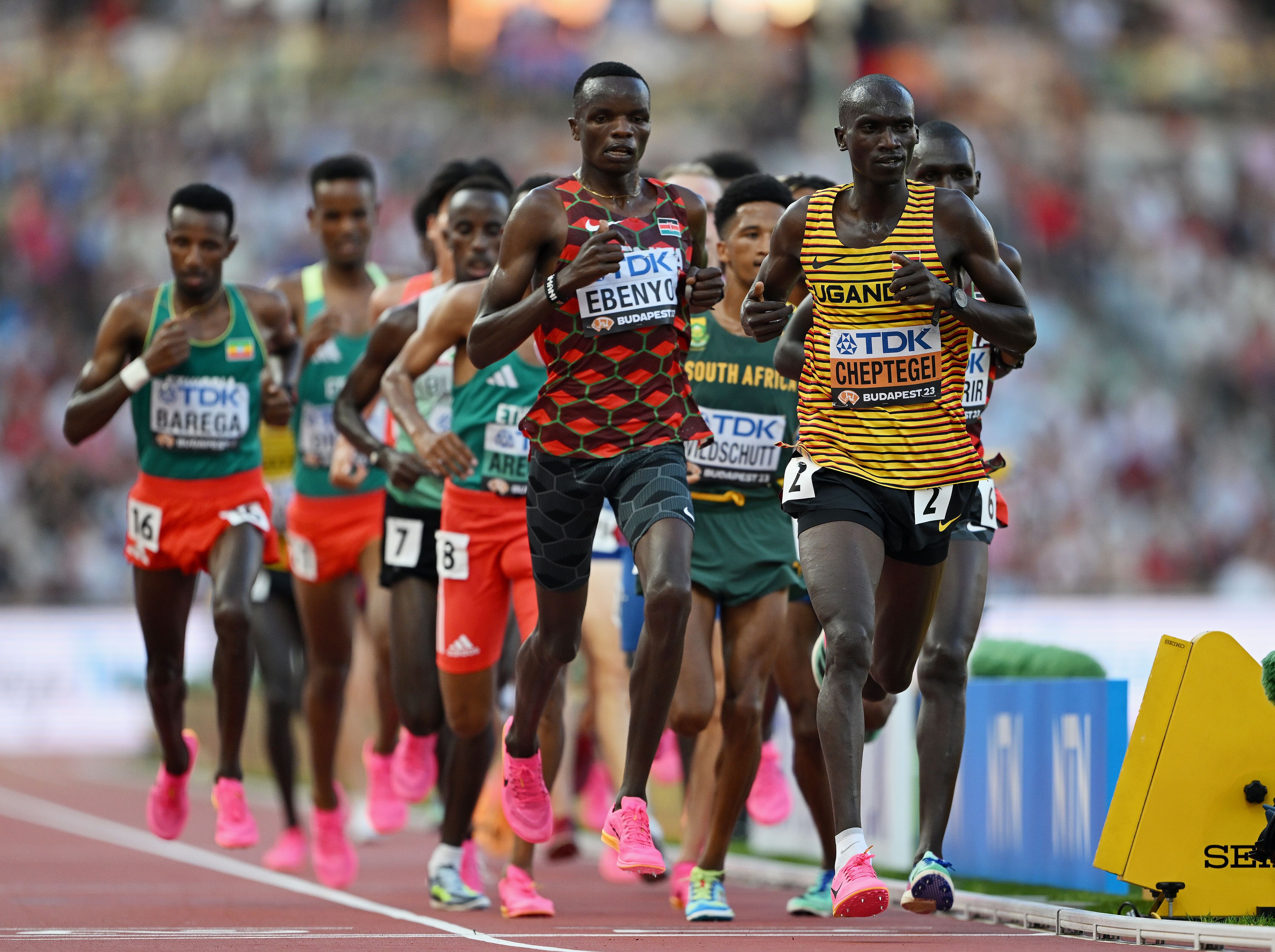
A few days before, Cheptegei had prophetically warned: "The marathon has no respect for people.”
Not even Olympic champions, it would seem.
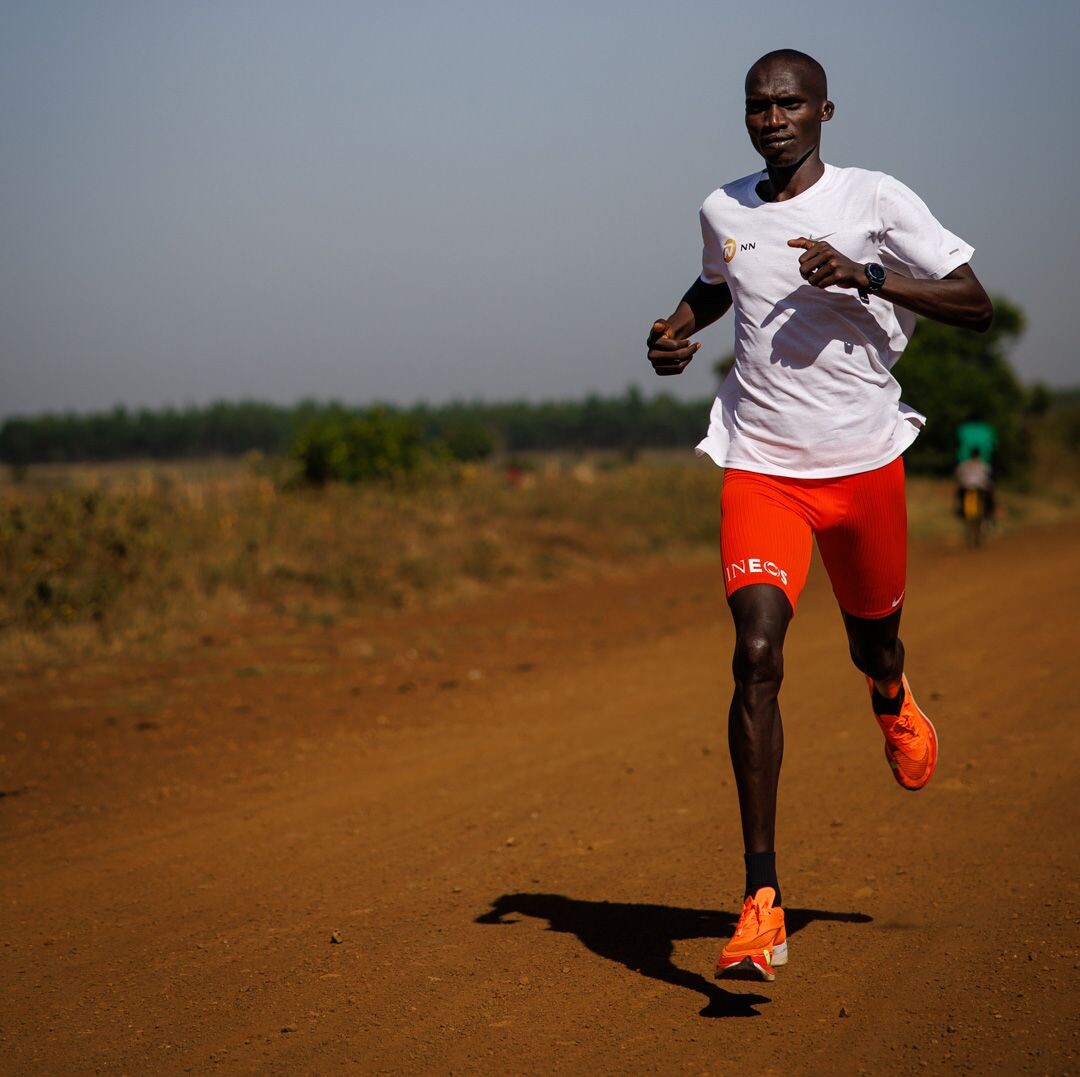
Fans have grown used to Cheptegei finding his rhythm in a leading pack, so it was no surprise to see him there at halfway. Going through 13.1 miles in 1:00:36 wasn’t part of the plan – not that there necessarily was one.
When asked in the build-up to the race what he wanted from his debut, Cheptegei simply said: “I want to learn.”
Collapsing over the line with a rueful smile, Cheptegei made it clear that his objective had been achieved.
He knew that his preparation for the event had been far from perfect. It started with pulling out of the Wanda Diamond League final due to a reaction to wearing spikes in defending his world 10,000m crown in Budapest. Once he did return, the weeks that followed saw his usual runs around the rolling hills of Kapchorwa deemed too dangerous due to constant deluges.
Cheptegei never ran more than 160km a week – which, by the standards of most current marathon specialists, was a light schedule.
Yet in Valencia, he still chose to go with the pace. Many would expect little else from a world 5000m and 10,000m record holder consistently pushing the margins of the possible.
For many fans, their first clear memory of Cheptegei at a senior level was his performance at the 2017 World Cross Country Championships on home soil in Kampala.
That day, the 2016 Olympic 10,000m sixth-place finisher ripped the senior race apart, striding away through the middle section and building a huge lead into the final kilometer.
The Ugandan fans chasing him in bursts around the course almost went as far as to hand over the red, yellow and black flag.
As the commentators proclaimed his title, Cheptegei had pushed himself to the limit, a smooth stride rolling to a wayward struggle.
Defending champion Geoffrey Kamworor – a former mentor to Cheptegei during his time in Kenya in 2015 – silenced the crowds, passing the struggling Ugandan in a fleeting second and going on to win. Cheptegei eventually finished 30th.
“Joshua had a great belief and a great determination in running,” Kamworor commented on his Ugandan rival. “Whenever you talk with him, you could see in his mind that he had great aspirations in life.
“He's even becoming one of my mentors.”
Cheptegei won the senior title at his next attempt in Aarhus in 2019, the year of the first of three consecutive world 10,000m titles. An Olympic silver in Tokyo in that event accompanied 5000m gold.
Risks taken, lessons learnt all in a bid to break new ground. It's core to Cheptegei’s philosophy as a runner and ultimately role model to those that follow him around the world but perhaps most importantly back home in Uganda.
It’s also followed him since his first days as a professional.
While training with Kamworor, Eliud Kipchoge and the rest in Kaptagat, barely aged 20, the 2014 world U20 10,000m champion made a difficult but bold decision.
“I told my management that I wanted to go back home and build a running culture, and to inspire the young generation here in Uganda.”
As a young athlete – and although it happened 24 years before Cheptegei was born – Cheptegei was made aware of the fact that John Akii-Bua earned Uganda's first Olympic athletics medal when taking 400m hurdles gold in Munich in 1972.
It’s clear that Cheptegei now feels a sense of responsibility when it comes to developing the sport in his country, in much the same way Akii-Bua did more than 50 years ago.
“It’s a privilege to have had great guys like him open the way for us, especially in a difficult time where the country was unstable,” says Cheptegei.
Akii-Bua was forced to live out a large part of his life outside Uganda, moving to Kenya towards the final days of the Idi Amin dictatorship.
Likewise, Uganda’s next Olympic gold medalist, Stephen Kiprotich, trained for much of his career in their eastern neighbor.
The then 15-year-old Cheptegei admits taking a break from kicking a football around the schoolyard to watch Kiprotich win Olympic marathon gold in 2012, that being the moment he made his own plans for global success.
“I was like, ‘right it’s in my heart. I want to become a champion, a national hero like him’.”
Cheptegei has developed those ambitions. For better or worse, he aims to deliberately show the next generation they need not leave home. No altitude camps elsewhere, high tech facilities or trips to some winter sun.
“I have always trained in Uganda, always and always," he reiterates.
Despite the world records, Olympic gold and world championship titles, Cheptegei still feels that to prove that emphatically, one achievement remains left to tick off.
It's all about the number 10.
“2024, it’ll be 10 years running internationally,” he says. “10 years at a high level.
“I'm still in love with the 10,000m, the special distance. I still want to go to Paris and win.”
Only Kenenisa Bekele and Haile Gebrselassie have won more world 10,000m titles than Cheptegei. Both won two Olympic golds in the event.
Cheptegei will head to the French capital hungry to find his first, motivated in the knowledge that in doing so he'll send a message to that young Ugandan watching, hoping to follow in his path.
by George Mallett for World Athletics
Login to leave a comment
Paris 2024 Olympic Games
For this historic event, the City of Light is thinking big! Visitors will be able to watch events at top sporting venues in Paris and the Paris region, as well as at emblematic monuments in the capital visited by several millions of tourists each year. The promise of exceptional moments to experience in an exceptional setting! A great way to...
more...Always learning, Jemal Yimer refocuses after Riga with marathon success in his sights
For as long as he can remember, Jemal Yimer has been a student of the sport.
The 27-year-old grew up in the Amhara region of Ethiopia, without any running background in his family, but that didn’t stop him idolising the greats. “Haile Gebrselassie,” he says quickly, when asked about his childhood heroes.
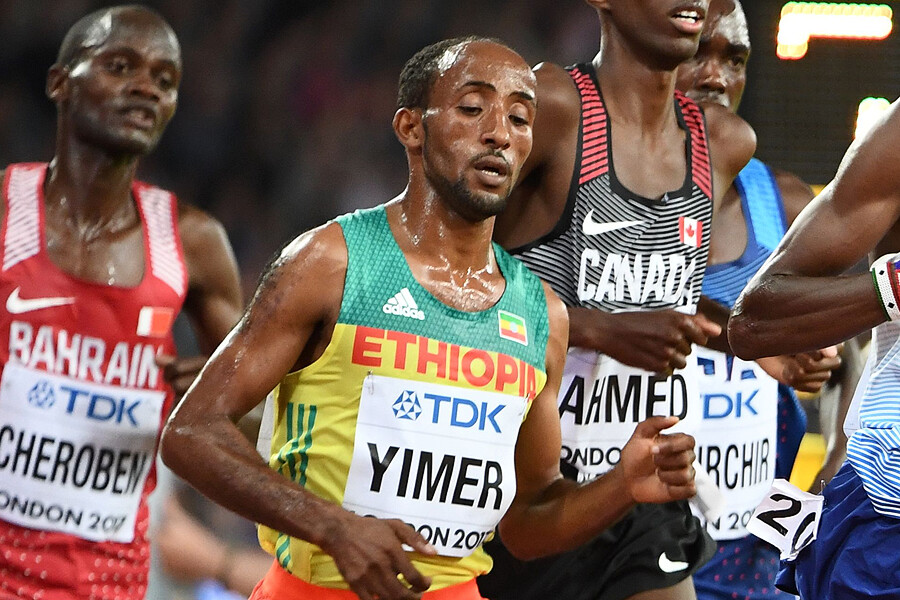
Yimer began running at school, juggling football and athletics in his teenage years before deciding to give the latter his full focus. Since 2016, it has consumed him and when he’s not running twice a day – which he does every day except Sunday – one of his hobbies is to watch documentaries about the greats of the sport.
“Sometimes it’s (Eliud) Kipchoge, Gebrselassie, or Kenenisa (Bekele) – we see the life history of strong athletes, their races,” he says. “That is the backbone of me; it’s motivation for me.”
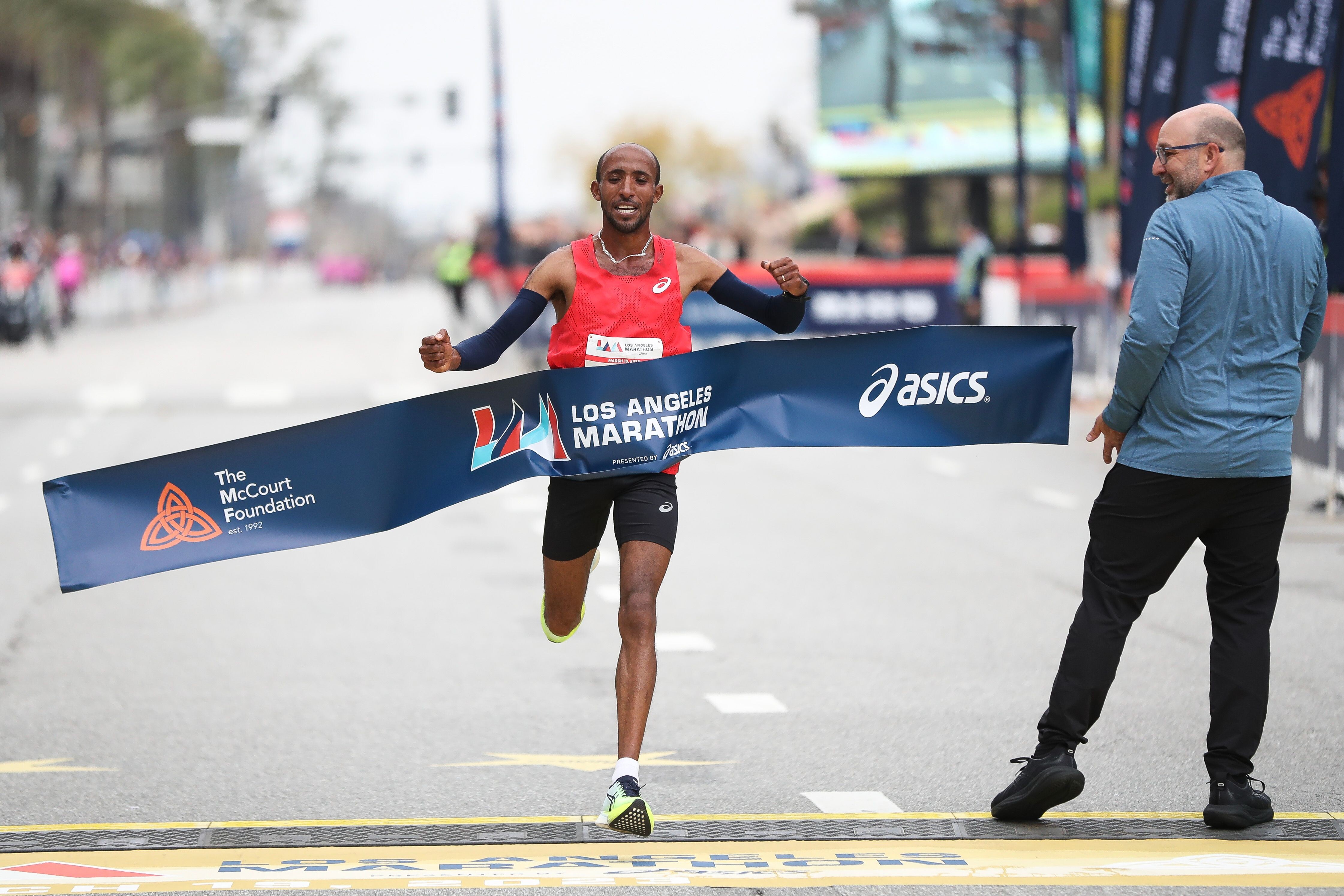
Yimer earned his first international vest in 2016, finishing fourth at the African Championships over 10,000m. The following year he hit a new level, finishing fourth at the World Cross Country Championships in Uganda, helping Ethiopia to team gold, and he went on to finish fifth in the 10,000m at the 2017 World Championships in London, clocking 26:56.11.
In 2018, there was another near-miss at a major podium, Yimer finishing fourth at the World Half Marathon Championships in Valencia, just one second behind the bronze medallist. Later that year, he returned to Valencia and performed like a man possessed, winning in a then Ethiopian half marathon record of 58:33.
As his focus turned from the track to the roads, he also changed coaches, coming under the guidance of Getamesay Molla, who works with a number of Ethiopia’s best marathoners. Molla had been a good athlete himself, if not quite a champion, and he’d trained alongside many of the country’s best, such as Kenenisa Bekele, before turning his hand to coaching in 2010.
He began working with Yimer in 2019 and has long been impressed by his protege. “Jemal is a very strong athlete, and he’s versatile,” says Molla. “He’s tough, especially for races. He’s confident in himself.”
They train at various venues on the outskirts of Addis Ababa, doing long runs at high altitude and dropping to medium altitude for faster interval sessions. Yimer typically runs about 200km per week. What impresses the coach most about Yimer?
“His consistency,” says Molla. “Every session, he does not miss.”
In 2020, Yimer made his long-awaited marathon debut. It was due to come at the Boston Marathon in April but after that race was cancelled due to the pandemic, it ended up being at the Valencia Marathon in December, but Yimer was unable to finish, having suffered an early fall.
In 2021, Boston was back on the calendar and Yimer turned in a superb debut performance there, finishing third in 2:10:38, just one second behind Lemi Berhanu in second. “My expectation for him was winning,” says Molla with a smile. “But the podium was not bad; it was good.”
The transition to the marathon was “not difficult”, says Yimer, but given his stride was better suited to shorter distances, he “had challenges after 15km, 20km” on hard long runs. In 2022, Yimer returned to Boston and finished eighth in 2:08:58, and earlier this year he claimed victory at the Los Angeles Marathon in 2:13:13. In August he finished second at the Antrim Coast Half Marathon in Northern Ireland in 58:38, teeing him up beautifully for a podium tilt at the World Athletics Road Running Championships Riga 23.
The journey to Latvia proved an eventful one, with the Ethiopian team stranded in Germany for close to a full day just two days before the race. Still, Yimer wasn’t going to use that as an excuse.
“This was not the first time for such a long journey; travelling is always up and down and that is not a reason for how I will perform in the race,” he said on the eve of the championships. “I will focus totally.”
That’s exactly what he did, with Yimer launching himself into contention at the key moment of the half marathon, when Kenya’s Daniel Simiu Ebenyo surged to the front after 16km. Yimer was the only man to go with him, but he soon found the pace too hot to handle.
Ebenyo also began to falter in the final kilometre, giving way to his teammate Sabastian Kimaru Sawe, but Yimer paid an even heavier price, dropping back to fourth. Try as he might, he was unable to summon the finish needed to overhaul Samwel Nyamai Mailu for the bronze medal, coming home fourth in 59:22.
It was a sign of how hard he’d run that Yimer had to be assisted through the mixed zone by a medic afterwards, his very best coming up just shy of a medal on the day. Still, he has a chance to make amends soon. On November 5, Yimer will line up at the New York City Marathon against a top-class field. His PB of 2:08:58 ranks him 13th, though his rivals know that’s not a true reflection of his ability.
“We can expect a good result in New York,” says Molla. “I expect he’ll be on the podium.”
A father to a two-year-old boy, Yimer will sometimes bring his son along to training and the toddler is starting to get a grasp on what his dad does for a living. Yimer knows a race like New York offers a golden opportunity to provide a better future for his family, which is part of his motivation.
“First I focus on training, then I have many plans on the business end for the future,” he says. Yimer isn’t shy about making them public: “My goal is to run fast times, to run all the major marathons, and to win world and Olympic medals.”
by Cathal Dennehy for World Athletics
Login to leave a comment
TCS New York City Marathon
The first New York City Marathon, organized in 1970 by Fred Lebow and Vince Chiappetta, was held entirely in Central Park. Of 127 entrants, only 55 men finished; the sole female entrant dropped out due to illness. Winners were given inexpensive wristwatches and recycled baseball and bowling trophies. The entry fee was $1 and the total event budget...
more...Eliud Kipchoge is ready for a fast race in Berlin
Once again the best marathon runner of all time will be on the start line of the BMW BERLIN-MARATHON. The double Olympic champion from Kenya, who brought his own world record down to 2:01:09 a year ago in Berlin, will be almost compelled to go all out for a fast time on Sunday, such is the enormously competitive running scene among his compatriots where only an extremely fast time within the Olympic qualifying mark will secure one of the three places for the Kenyan men’s team in the Olympic Marathon in Paris next year.
Eliud Kipchoge’s ambition in Paris is to become the first runner in history to win three Olympic Marathon titles. The Kenyan is aiming to use the BMW BERLIN-MARATHON almost as a springboard to book his place in Paris. While Eliud Kipchoge could strike up a world record pace at the head of the field, Germany’s marathon star Amanal Petros seeks an unprecedented achievement in the history of the BMW BERLIN-MARATHON by becoming the first to set a men’s national record here, a feat so far never accomplished in the previous 48 editions of the event.
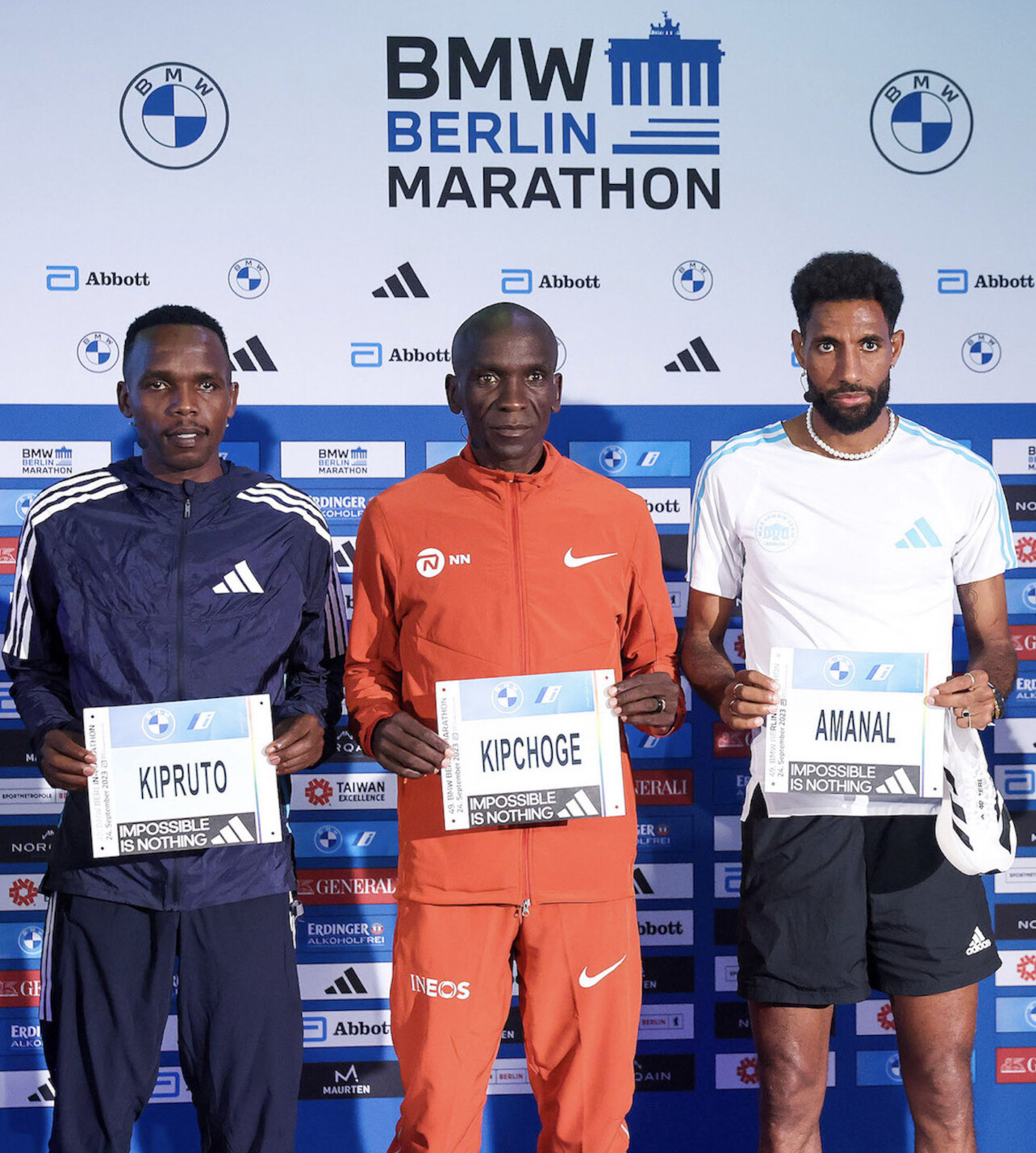
A record number of 47,912 runners from 156 nations have entered the 49th edition of the BMW BERLIN-MARATHON. Germany’s most spectacular road race is part of the Abbott World Marathon Majors (AWMM) and is also a Platinum Label Road Race of World Athletics.
“We feel honoured that the best marathon runner in sporting history, Eliud Kipchoge, has decided to run the BMW BERLIN-MARATHON for a sixth time. This confirms the outstanding status of the event and raises hopes for an exceptional result,” said race director Mark Milde, who has organized Kipchoge’s previous five races in Berlin.
“Berlin for me is like home. Looking at the Olympic Games in Paris next year, I considered which races would be the best preparation for me and Berlin was the best option,” explained Eliud Kipchoge. A year ago his pace for much of the early stages of the race suggested he might even break two hours. “But that was 2022, it’s a different year now and a different race,” said the 38-year-old. Winning in Berlin for the fifth time would give him more titles here than any other champion. He is currently level with the legendary Ethiopian Haile Gebrselassie on four victories.
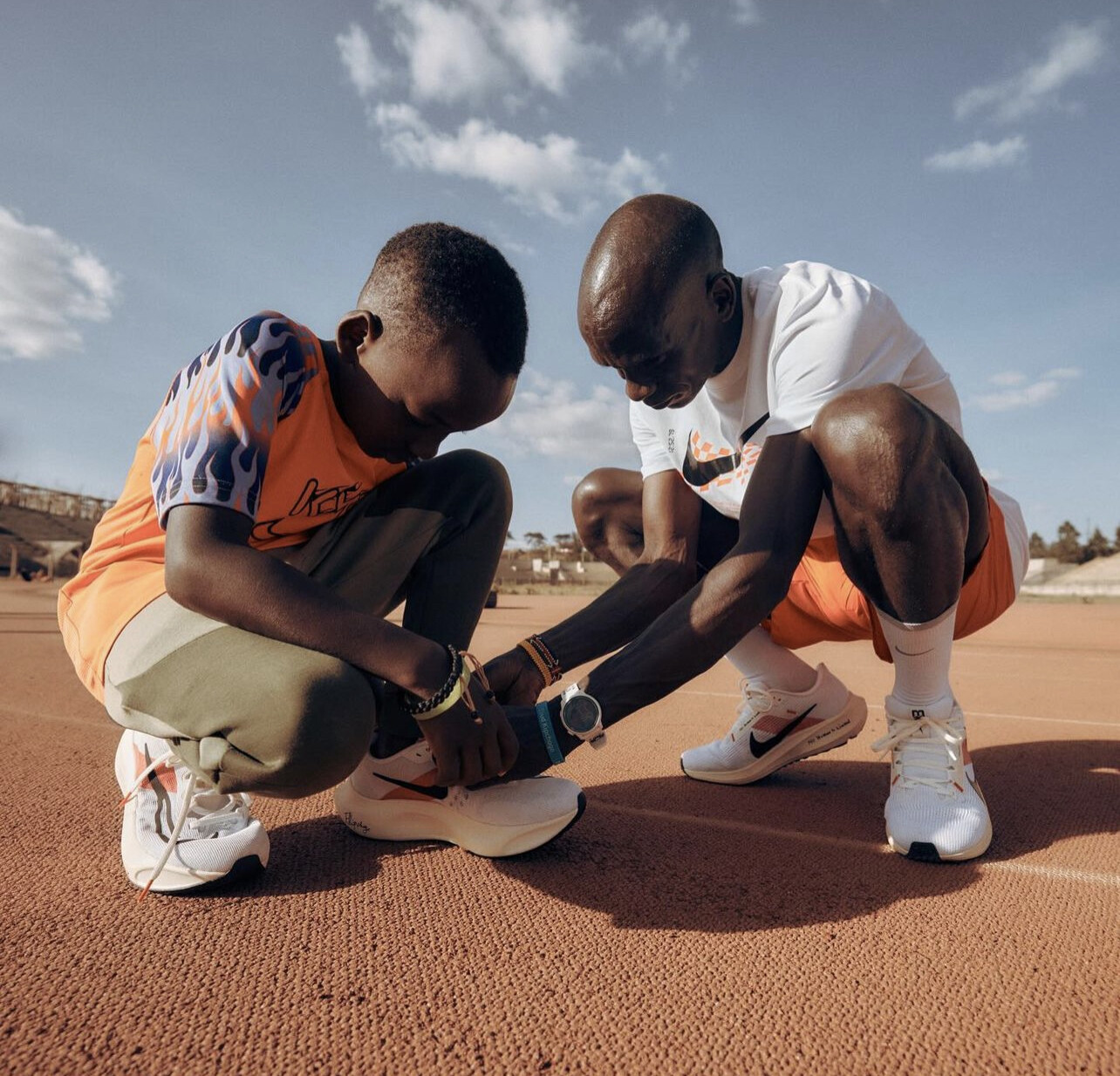
It is not beyond the bounds of possibility that Eliud Kipchoge breaks the world record for the third time in Berlin, although he did not announce any definite goals at the press conference. “I’m nervous, but that shows I’m ready,” said Kipchoge. “I’ll try to run a good time.” Of his 20 marathons, Eliud Kipchoge has emerged victorious in all but three, in itself a unique achievement.
The man with the second fastest time going into the race is also Kenyan, Amos Kipruto. He ran his personal best of 2:03:13 in Tokyo last year, finishing runner-up to Eliud Kipchoge. “My aim on Sunday is to run a personal best,” stated Amos Kipruto, whose career highlight so far is winning the London Marathon last year.
A dozen men on the start list show best times of under 2:06, proof of the strength in depth among the elite in this year’s BMW BERLIN-MARATHON. “It would be fair to say that every elite runners comes to Berlin to run their personal best,” admitted Mark Milde.
Amanal Petros has as his goal in his BMW BERLIN-MARATHON debut that of breaking his own German record of 2:06:07 by a clear margin. “I’ve trained in Kenya for almost four months at altitude of 2,400 metres, concentrating entirely on Berlin. That was very challenging,” said the 28-year-old. “Going through halfway in around 62 minutes is feasible but we can adjust the pace at any time.”
Not only the German but the Swiss national record for the marathon could come under pressure. Tadesse Abraham improved his best to 2:06:38 as a 39-year-old last year in Zurich. Now turned 41, he might even threaten the world masters record of none other than Kenenisa Bekele, who ran 2:05:53 in London last year.
Men’s elite runners with personal bests
Eliud Kipchoge KEN 2:01:09
not record eligible:1:59:40,2
Amos KiprutoKEN2:03:13
Jonathan MaiyoKEN2:04:56
Eliud Kiptanui KEN 2:05:21
Ghirmay Ghebreslassie ERI 2:05:34
Ronald KorirKEN2:05:37
Tadu Abate ETH 2:05:38
Philemon KiplimoKEN2:05:44
Enock Onchari KEN 2:05:47
Mark Korir KEN 2:05:49
Andualem ShiferawETH2:05:52
Haftu TekluETH2:05:53
Amanal PetrosGER2:06:27
Josphat BoitKEN2:06:34
Tadesse Abraham SUI 2:06:38
Okubay Tsegay ERI2:06:46
Abel KipchumbaKEN2:06:49
Yusuke Ogura JPN2:06:51
Denis ChirchirKEN2:07:17
Eyob Faniel ITA 2:07:19
Justus KangogoKEN2:07:40
Titus Kipkosgei KEN2:07:46
Godadaw BelachewISR2:07:54
Dominic Nyairo KEN2:08:13
Derseh Kindie ETH 2:08:23
Guojian Dong CHN2:08:28
Liam Adams AUS 2:08:39
Scott FaubleUSA2:08:52
Hendrik Pfeiffer GER 2:10:18
Samuel Fitwi GER 2:12:14
Konstantin Wedel GER 2:13:02
Login to leave a comment
BMW Berlin Marathon
The story of the BERLIN-MARATHON is a story of the development of road running. When the first BERLIN-MARATHON was started on 13th October 1974 on a minor road next to the stadium of the organisers‘ club SC Charlottenburg Berlin 286 athletes had entered. The first winners were runners from Berlin: Günter Hallas (2:44:53), who still runs the BERLIN-MARATHON today, and...
more...Joshua Cheptegei: It’s time to transition to the marathon
Three time World 10,000m champion Joshua Kiprui Cheptegei has announced his intention to transition from track events to marathon races, saying that the time has come for him to embrace a new chapter in his athletic career.
Cheptegei’s decision comes after securing his third consecutive world title in the challenging 10,000-meter race at the prestigious stage of Budapest.At 26 years, Cheptegei, who holds world records for both the 10,000-meter and 5,000-meter distances, displayed incredible determination despite sweltering temperatures, completing the race in 27 minutes and 51.42 seconds.
His exceptional performance saw him outshine competitors like Kenya’s Daniel Simiu Ebenyo, who finished with a time of 27:52.60, and his long-time rival, Selemon Barega from Ethiopia, who crossed the line in 27:52.72.Speaking after his gold-winning race, Cheptegei mentioned that it was a special moment for him to defend his title, especially considering his return from an injury.
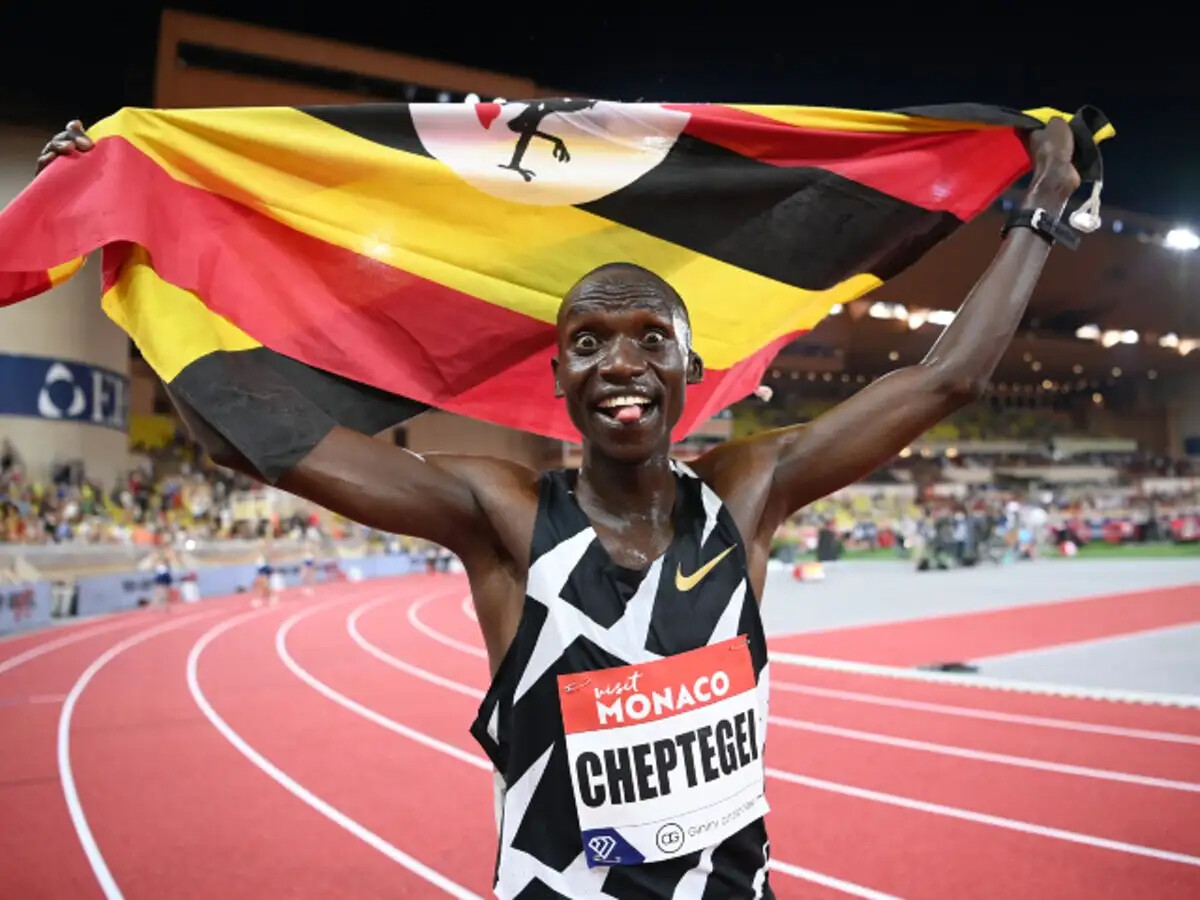
He expressed his belief that it’s time for him to transition to marathons, as he feels his journey in the middle-distance races has been a successful one.
Cheptegei’s return to the 10,000-meter race marked his first participation since 2022, a year in which he faced an injury setback during the 5000-meter event.
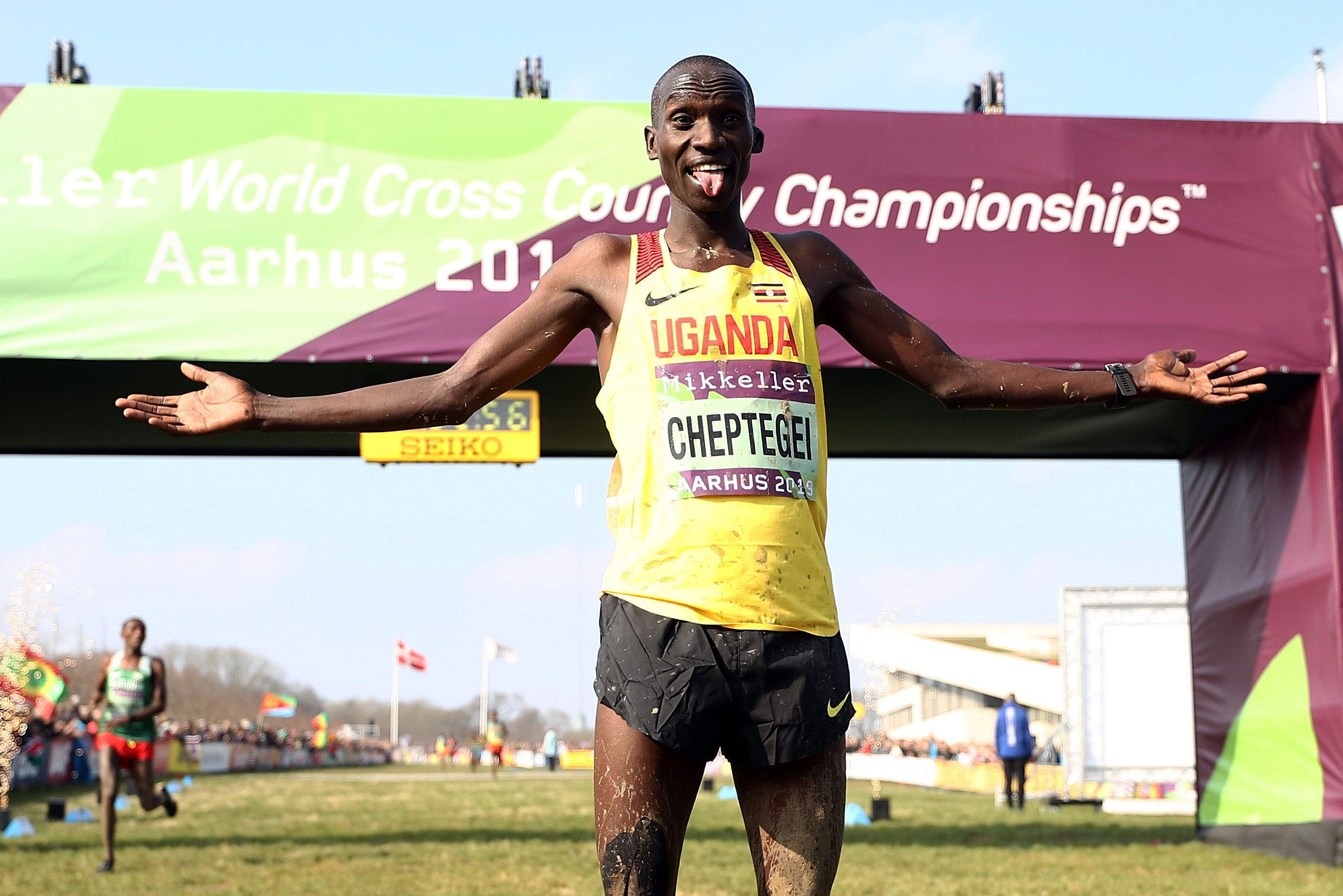
However, this did not diminish his ability to outcompete a strong field of 27 athletes in Budapest. Prior to his victory in Budapest, Cheptegei encountered an unexpected challenge when his fellow athlete Jacob Kiplimo, a prominent figure on the track, had to withdraw due to a hamstring injury.Despite the increased pressure, Cheptegei rose to the occasion and emerged triumphant.
This latest gold medal signifies Cheptegei’s remarkable achievement of securing three consecutive world titles in the 10,000-meter race, a distinction previously attained by legendary athletes like Great Britain’s Sir Mo Farah and Ethiopian icons Haile Gebrselassie and Kennenisa Bekele.
This accomplishment solidifies Cheptegei’s status as one of the foremost athletes of his generation.Benjamin Njia, the coach of the Uganda Athletics Federation, expressed his support for Cheptegei’s decision to venture into marathons.
He explained that while Cheptegei will be using a marathon race in December to assess his potential, this doesn’t immediately mark his departure from track events.Cheptegei will still have two more years to compete, including the 2024 Paris Olympic Games, where he aims to win gold in the 10,000-meter race while continuing to excel in the 5,000-meter event.
by The Independient
Login to leave a comment
Cheptegei joins all-time greats after winning third world 10,000m title in Budapest
As in Oregon last year, and as in Doha in 2019, there was no stopping Joshua Cheptegei when it came to the crunch in a World Championships 10,000m final.
The fastest man in history over 5000m and 10,000m might have been outfought by Selemon Barega on the final lap of the Olympic final in Tokyo two years ago, but when the bell sounded in Budapest Uganda’s golden boy found his Midas touch to land the decisive blow in a gripping East African slugfest.
Cheptegei had already made what proved to be the decisive move by then, overtaking the Ethiopian wind-up merchant Berihu Aregawi with 600 metres to go.
Aregawi, who finished one place ahead of him as the silver medallist at the World Athletics Cross Country Championships in Bathurst in February, had upped the pace with a succession of 64-second laps from six laps out but was burned off when Cheptegei launched his pre-emptive strike.
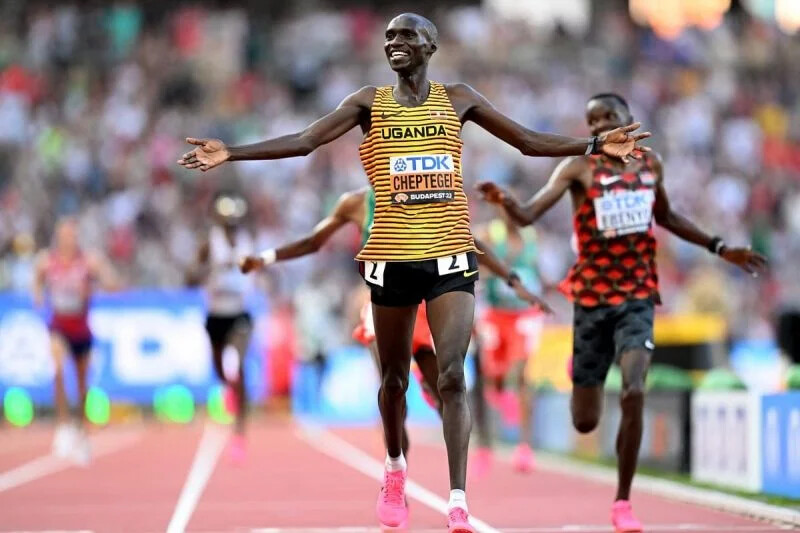
In Oregon he struck at the bell and stayed there, resisting a challenge from Barega, who ultimately faded to fifth. This time the Olympic champion was his prime chaser again, closing down the back straight and cutting the gap to a metre with 200 metres left.
Gritting his teeth as he rounded the final turn, the Ethiopian prepared to launch a grandstand finish but Cheptegei pulled clear up the home straight, crossing the line a clear winner in 27:51.42.
Such was Barega’s sense of deflation, the wind evacuated his sails. Easing down as the line approached, he was pipped for second place by Daniel Ebenyo, the Kenyan claiming a silver to match his Commonwealth runners-up prize of last year in 27:52.60.
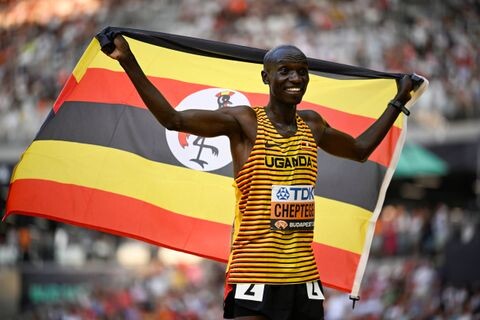
Barega took bronze in 27:52.72, followed home by compatriot Aregawi, fourth in 27:55.71, and Kenyan Benard Kibet, fifth in 27:56.27. Canada’s Mo Ahmed came next in 27:56.43, a lifetime best.
For Cheptegei, who closed with a 53.46-second final lap – near identical to his Eugene split of 53.42 – it was as momentous as any of his growing number of victories. At the age of 26, he entered the record books as the fourth man to claim a hat-trick of world 10,000m titles, following in the spikemarks of the Ethiopian greats Haile Gebrselassie and Kenenisa Bekele, who both won four, and Britain’s supreme championship performer, Mo Farah.
“I am very excited and proud that I have succeed in winning my third world title in a row, “said Cheptegei, who has had to contend with injury since his Oregon victory. “This was the best possible way to end the season.
“This might be my last championships on the track. That's why this gold medal means even more.”
With a marathon debut to come in December in Valencia, the city where he set his 10,000m world record three years ago, who knows what the future might hold for the man who has broken the traditional East African distance running stranglehold of the Ethiopians and Kenyans?
For the time being, he can content himself on a job well done in a curious race that was clearly dictated by clammy, humid conditions reminiscent of Osaka in 2007.
Cheptegei and the rest of the leading lights kept their powder dry as his Ugandan teammate Joel Ayeko set off on his lonesome in the phoney war of the opening 3km.
Passing 400m in 62.86 and 1km in 2:46.69, the 30-year-old was more than five seconds clear at one stage before Cheptegei steadily whittled it down, with Ebenyo and Kibet in his slipstream.
Kibet and Aregawi traded places at the front before 5km was reached in a pedestrian 14:21.75. The cat-and-mouse continued, Kibet also taking a turn in pole position.
All the while, Cheptegei kept his cool, literally and metaphorically. Having run out of gas at the end of the World Athletics Cross Country Championships on home ground in the humidity of Kampala back in 2017, he veered out to collect a sponge at a water station – then bided his time when Aregawi started injecting some meaningful pace.
In the end, it was his class that told. Once again. In three seasons, he has run just three 10,00m races. He has won Olympic silver and two more world golds.
by World Athletics
Login to leave a comment
World Athletics Championships Budapest 23
From August 19-27, 2023, Budapest will host the world's third largest sporting event, the World Athletics Championships. It is the largest sporting event in the history of Hungary, attended by athletes from more than 200 countries, whose news will reach more than one billion people. Athletics is the foundation of all sports. It represents strength, speed, dexterity and endurance, the...
more...Sir Mo Farah confirms final race in London before Olympic hero's retirement
Four-time Olympic gold medalist Sir Mo Farah has announced the Big Half will be his last race in London before retiring.
Farah, who won back-to-back Olympic golds in the 5,000m and 10,000m, revealed ahead of the London Marathon in April that 2023 would be his final year as a competitive athlete. The 40-year-old cited injuries as the reason behind his decision, admitting: "My body is not allowing me."
And it has now been confirmed his final competitive race in London, the city where he won his first two Olympic golds in 2012, will be the Big Half on September 3. It is an event he has won three times, most recently in 2022.
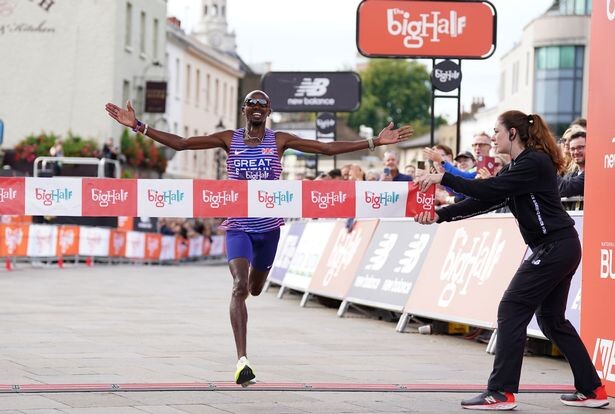
"I'm excited to run my last ever London race at The Big Half," Farah said. "It will be bittersweet, knowing it will be the last time I race competitively in my hometown but it's always such a great day and I know the London crowds will be cheering me on, as they always do. I look forward to being back in London and hope to bring home the win one final time."
Spencer Barden, Head of Elite Athletes at London Marathon Events which organises the Big Half, added: "It's fantastic to have Sir Mo leading the field at this year's The Big Half. Mo has had a phenomenal career and everyone at London Marathon Events wishes him all the best in his retirement.
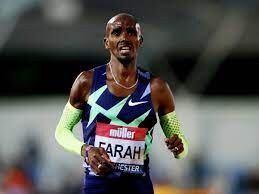
"Before that though, we hope he signs off his racing career in London with another record-breaking win at The Big Half." However, the Great North Run on September 10 will be Farah's final race altogether.
"I have so many incredible memories of racing at the Great North Run, my first ever race there in 2013 was billed as one of the greatest men’s half marathons in history," he said. "It was a special experience to line up against Ethiopia's Kenenisa Bekele and the iconic Haile Gebrselassie.
"Kenenisa took the top spot that day, but there was so much support for me all along the course. Even at the finish line in the pouring rain, all I can remember was people shouting my name, it made me even more determined to come back and do them proud.
"From 2014 onwards I won the event in front of that incredible crowd six times. There were some really tough races, but the phenomenal support always saw me through.
"It's fitting the AJ Bell Great North Run will be my last ever race as an elite athlete. It will definitely be emotional, but I’m so happy to have the opportunity to celebrate the end of my professional career on that famous finish line."
by Matthew Cooper
Login to leave a comment
The Vitality Big Half
Created by London Marathon Events Ltd, in partnership with Sported,The Vitality Big Half is a community running festival, taking place in London in March. This one-day event offers a host of running distances, from a challenging half marathon to a free one-mile course, as well as a family-friendly festival of food, music and activities. What’s happening? Take part with friends...
more...When Will Eliud Kipchoge Slow Down?
What we can learn from the world’s greatest distance runner of all-time while he’s still in his prime
Eliud Kipchoge has expanded the universe of what’s humanly possible in the marathon, and he will forever remain a legend in the sport of long-distance running.
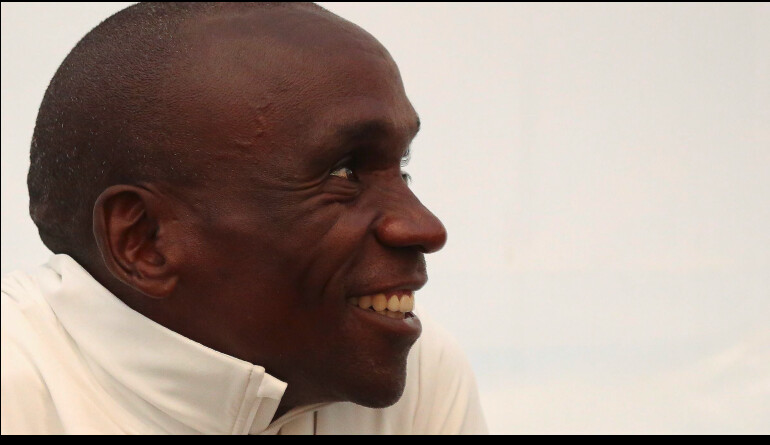
Not only for himself, but especially for those who have come after him. That includes everyone, both elite and recreational runners, who are preparing a marathon this fall or some distant point in the future. His current 2:01:09 world record and his barrier-breaking 1:59:40 time-trial effort in 2019 are legendary feats, both for the current generation of runners and for all time.
The 38-year-old Kenyan marathoner is a once-in-a-lifetime athlete, but time waits for no one, and especially not a long-distance runner. Like all elite athletes, his time at the top is limited, but fortunately, there is still time to immerse in the inspirational examples he’s providing.
Kipchoge recently announced he’ll return to the Berlin Marathon on September 24, where, last year, he won the race for the fourth time and lowered the world record for the second time. It is most likely what will be the beginning of a grand denouement as he goes for another gold medal at the 2024 Olympics next summer in Paris.
Given that he won his first global medal in the City of Light—when, at the age of 18, he outran Moroccan legend Hicham El Guerrouj and Ethiopian legend-in-the-making Kenenisa Bekele to win the 5,000-meter run at the 2003 world championships—it would certainly be one of the greatest stories ever told if he could win the Olympic marathon there next year when he’s nearly 40.
Certainly he’ll run a few more races after the Olympics—and maybe through the 2028 Olympics in Los Angeles—but, realistically, it is the start of a farewell tour for a runner who will never be forgotten.
Don’t get me wrong: I’m not at all writing Kipchoge off. In fact, I am excited to see him run in Berlin and can’t wait to watch next year’s Olympic marathon unfold. But just as we’ve watched Michael Jordan, Tiger Woods, Serena Williams, Shalane Flanagan, Usain Bolt, Allyson Felix, and other elite athletes succumb to the sunsetting of their peak performance level, so too will Kipchoge eventually suffer the same fate.
What I’m saying here is that we still have time to watch and appreciate Kipchoge eloquently working his magic and continue to be inspired in our own running and other pursuits in life. Remember how we marveled at Michael Jordan’s greatest in “The Last Dance” more than 20 years after his heyday? This is the start of the last dance for Kipchoge, who, like Jordan, is much, much more than a generational talent; he’s an all-time great whose legacy will transcend time.
Running has seen many extraordinary stars in the past 50 years who have become iconic figures— Frank Shorter, Joan Benoit Samuelson, Ted Corbitt, Carl Lewis, Steve Jones, Paul Tergat, Catherine Ndereba, Paula Radcliffe, Haile Gebrselassie, Kenenisa Bekele, Mary Keitany, Brigid Kosgei, and Kilian Jornet, to name a few—but none have come close to the body of work and global influence of Kipchoge.
Not only is Kipchoge one of the first African athletes to become a household name and truly command a global audience, but he’s done more than other running champions because of he’s been able to take advantage of this advanced age of digital media to deliberately push positive messages and inspiring content to anyone who is willing to receive it.
Kipchoge has won two Olympic gold medals, set two world records, and won 17 of the 19 marathons he entered, but he’s so much less about the stats and bling and more sharing—to runners and non-runners alike—that “no human is limited” and also that, despite our differences, we’re all human beings faced with a lot of the same challenges in life and, ultimately, hard work and kindness are what put us on the path to success.
How can an average runner who works a nine-to-five job and juggles dozens of other things in daily life be inspired by an elite aerobic machine like Kipchoge?
He is supremely talented, no doubt, but many elite runners have a similar aerobic capacity to allow them to compete on the world stage. What Kipchoge uniquely possesses—and why he’s become the greatest of all-time—is the awareness and ability to be relentless in his pursuit of excellence, and the presence and good will of how beneficial it is to share it.
If you haven’t been following Kipchoge or heard him speak at press conferences or sponsor events, he’s full of genuine wisdom and encouragement that can inspire you in your own running or challenging situation in life. His words come across much more powerfully than most other elite athletes or run-of-the-mill social media influencers, not only because he’s achieved at a higher level than anyone ever has, but because of his genuine interest in sharing the notion that it’s the simplest values—discipline, hard work, consistency, and selflessness—that make the difference in any endeavor.
This is not a suggestion to idolize Kipchoge, but instead to apply his wisdom and determination into the things that challenge you.
“If you want to break through, your mind should be able to control your body. Your mind should be a part of your fitness.”
“Only the disciplined ones in life are free. If you are undisciplined, you are a slave to your moods and your passions.”
“If you believe in something and put it in your mind and heart, it can be realized.”
“The best time to plant a tree was 25 years ago. The second-best time to plant a tree is today.”
Those are among the many simple messages that Kipchoge has lived by, but he also openly professess to giving himself grace to take time for mental and physical rest and recovery. It’s a simple recipe to follow, if you’re chasing your first or fastest marathon, or any tall task in life.
Kipchoge seems to defy age, but his sixth-place finish in the Boston Marathon in April proved he’s human. As much as it was painful to watch him falter, it was oddly refreshing and relatable to see him be something less than exceptional, and especially now that he’s tuning up for Berlin. He has nothing left to prove—to himself, to runners, to the world—but he’s bound to keep doing so just by following the same simple, undaunted regimen he always has.
There will be other young runners who will rise and run faster than Kipchoge and probably very soon. Fellow Kenyan Kelvin Kiptum—who has run 2:01:53 (Valencia) and 2:01:25 (London) in his first two marathons since December—seems to be next in line for Kipchoge’s throne of the world’s greatest runner. But even after that happens, Kipchoge’s name will go down in history alongside the likes of Paavo Nurmi, Abebe Bikila, Emil Zátopek, Grete Waitz, Shorter and Samuelson because of how he changed running and how he gave us a lens to view running without limits.
Berlin is definitely not the end of Kipchoge’s amazing career as the world’s greatest long-distance runner. I fully expect him to win again in an unfathomable time. But the sunset is imminent and, no matter if you are or have ever been an aspiring elite athlete at any level, a committed recreational runner, or just an occasional jogger trying to reap the fruits of consistent exercise, his example is still very tangible and something to behold.
by Outside Online
Login to leave a comment
Going for the Two mile world record on June 9th
Jakob Ingebrigtsen doesn’t like talking about world records. But many others in the world of athletics are doing just that as the Norwegian prepares to compete in the non-Olympic distance two-mile event at the 2023 Paris Diamond League on 9 June.
Everything is set up for Ingebrigtsen to attempt to beat Daniel Komen’s time of 7:58.61 - a record that has stood since 1997. Not only will an elite field of pacers set the tempo, but the athletes racing will also have the benefit of Wavelight technology, which uses lights on the inside of the track to show the pace of the world record in real time.
If Ingebrigtsen breaks the record, he will have succeeded where many other of the world’s most celebrated distance runners have failed.
Mo Farah, Eliud Kipchoge and Joshua Cheptegei are just some of the big name athletes to have attempted the distance yet failed to beat Komen’s mark, with the nearest time an 8:01.08 set by the great Ethiopian Haile Gebrselassie less than two months before Komen’s historic run.
Login to leave a comment
Six Best Marathon Runners of all time
The marathon is one of the toughest running events. This event is set at 26.2 miles or 42.195 kilometers, as presented by the International Association of Athletic Federations (IAAF) in 1921.
It's a significantly long-distance race that most people could not complete. It takes lots of training. One of the most famous marathon is Boston coming up Monday April 17. And one of our top six will be running, Eliud Kipchoge. So here are our six marathoners as the best of all time. What are your top six?
Eliud Kipchoge
Eliud Kipchoge easily tops this list as being the GOAT (greatest of all time!) in marathon history. He's a Kenyan runner that participated in marathons and used to specialize in the 5000-meter distance. Kipchoge has already made history and set a world record last September 2018 in Berlin after he completed the distance set for the Olympic men's race with 2:01:39.
No one else was able to defeat the record for several years until Eliud Kipchoge himself broke his own record at his fifth Berlin marathon last year, September 2022 with 2:1:9. It's a 30-second gap from his initial world record, which is a significant improvement already as a runner.
Not only that but he's also been a three-time London and Berlin champion since 2015! At 38 years old, he's already achieved so much, and he's not stopping just yet. Kipchoge also informed everyone that he'll be aiming for the Paris 2024 games, so you should also wait for that and check the updates on FanDuel Sports online.
Haile Gebrselassie
Next on the list is truly one of the marathon legends who dominated the industry when he was still active. Haile Gebreselassie is an Ethiopian long-distance runner who retired last 2015 after over 20 years of long-distance running. He's been active from the late 90s to the early 2000s, and a few of his astonishing achievements include consecutively winning the Berlin Marathon four times and the Dubai Marathon three times.
He also has four World Championship titles (1993 Stuttgart, 1995 Gothenburg, 1997 Athens, and 1999 Seville) and two Olympic golds (1996 Atlanta and 2000 Sydney) in a 10,000-meter distance run. Although he's no longer in the running scene, his legendary achievements will live long.
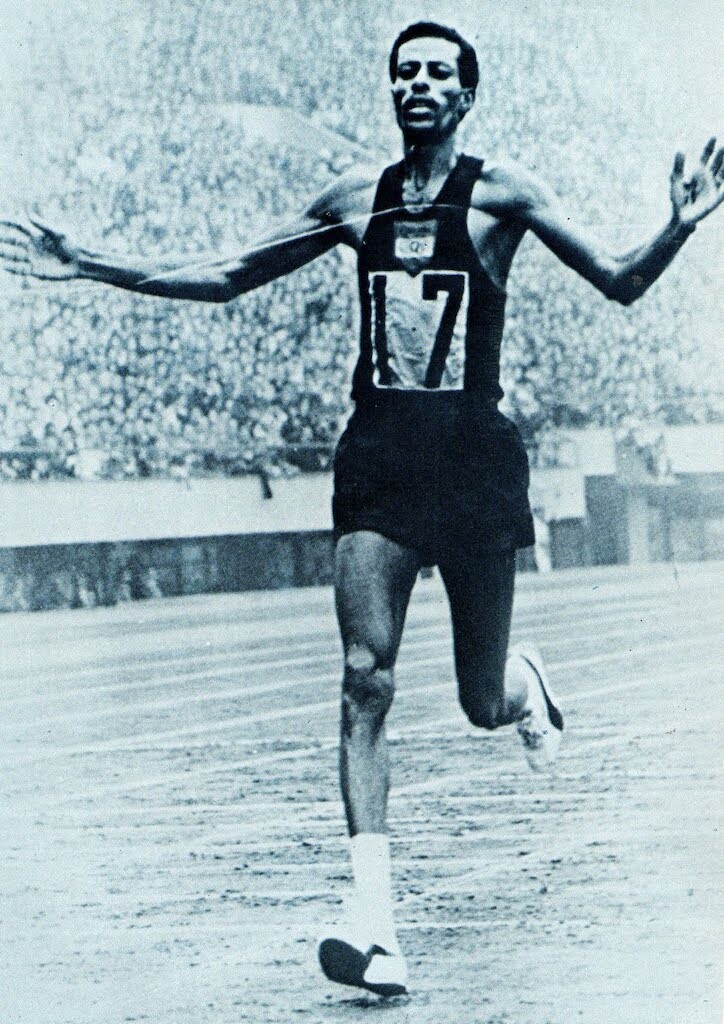
Abebe Bikila
If you're a huge fan of marathon events, you should already know about Abebe Bikila by now. He's a pioneer marathon runner that made significant feats in the history of the marathon. To start, he's the only athlete who ran barefoot during the Rome 1960 Olympics. He faced the cobblestones head-on, won a gold, and even set a world record. Bikila became the first Black African that ever topped at the Games in a 42.195km race.
Furthermore, his amazing barefoot run made it to the Guinness World Record as the fastest marathon run in bare feet at the 1960 Olympic Games with 2:15:16.2. Additionally, Abebe Bikila was also the first runner to win two Olympic marathon events after he grabbed another gold at Tokyo 1964
Mo Farah
Mo Farah is a British marathon runner who's only the second athlete to win 10,000-meter and 5,000-meter titles at successive Olympic Games. Throughout his athletic career, he accumulated 19 gold with nine silvers and two bronzes.
Moreover, he initially planned to retire but then changed his mind and participated in the Tokyo Olympics in 2020 and was even tipped by the excellent Eliud Kipchoge. He's still active to this day, but Farah shared with everyone that 2023 will be his final year after confirming that he will be participating in the London Marathon this April and giving it "one more shot."
Catherine Ndereba
Catherine, the Great Ndereba, is the first woman on this list, and she deserved it. She's one of the marathon runners that other athletes should recognize. The Olympics even regarded her achievement as one of the great.
In 2005, she was even awarded by the former Kenya president Mwai Kibaki with the Order of the Golden Aware due to her excellent accomplishments. Not only that, but she was also awarded 2004 and 2005 Kenyan Sportswoman of the Year.
Although she couldn't bring home gold from participating in the Olympic Games, she got to win silver awards for the 2004 Athen Games and 2008 Beijing Games. Additionally, she also has eight gold wins in World Championships and World Marathon Majors combined.
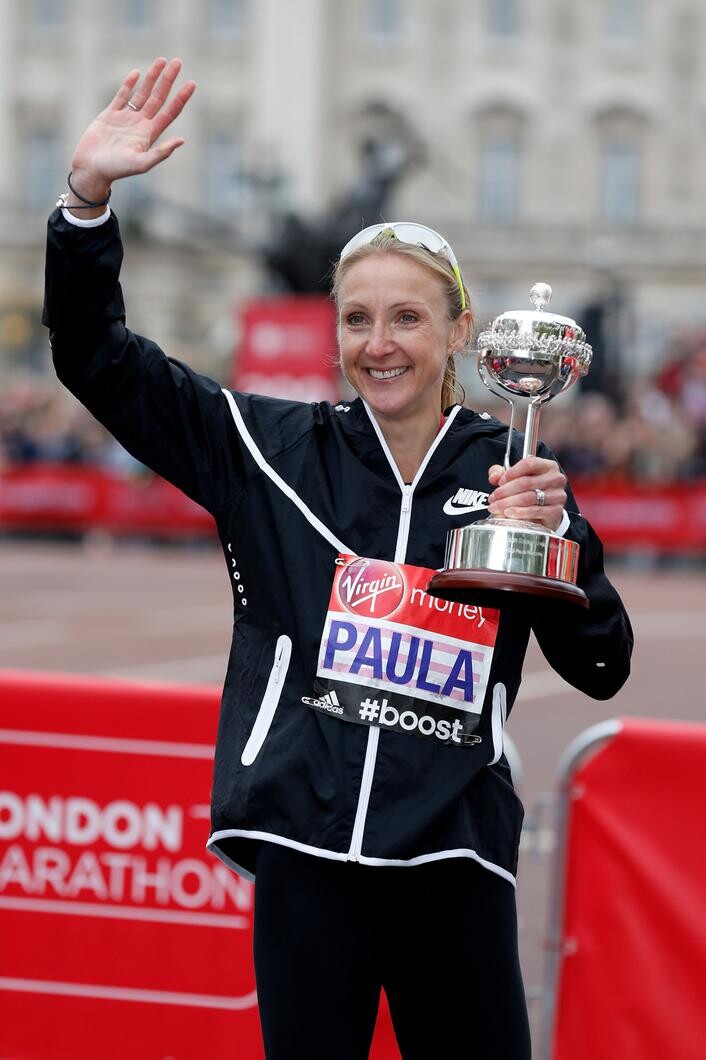
Paula Radcliffe
Paula Radcliffe is also one of the marathon runners that overcame her health issues as a child and became a successful athlete as an adult. Growing up, she struggled with anemia and asthma, but these were just a few bumps in the road as she continued to work hard and brought home several gold awards.
This British long-distance runner was the women's world record holder for over 16 years (2003 to 2019) for being the fastest female marathon runner with 2:15:25 until Brigid Kosgei broke it in 2020. Aside from that, she's also able to win New York City and London marathons three times and won 15 gold awards in total.
Final Thoughts
Marathon is an exciting sport, and no regular person can participate. It takes great understanding that a marathon is more than just running. Being as powerful as the runners mentioned above takes months of training and endurance. Although there are still other remarkable marathon runners, these six, in particular, made significant achievements in this field.
Login to leave a comment
Paul Tergat named ambassador for World Athletics Cross Country Championships Bathurst 23
Paul Tergat has been announced as ambassador of the World Athletics Cross Country Championships Bathurst 23, with one month to go until the 44th edition of the global showpiece in Australia.
Kenya’s multiple world cross country gold medallist will be in Bathurst for the competition on 18 February, when some of the world’s current best athletes will descend on Mount Panorama looking to emulate him as a world cross country champion.
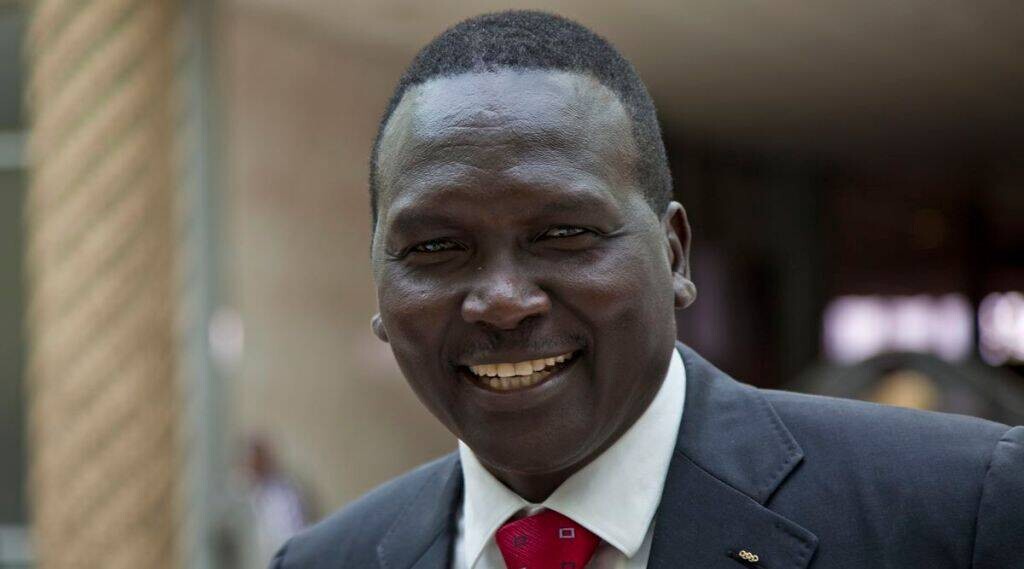
Tergat is one of the greats of long-distance running and it was in cross country that his success story really began. The first of his five individual world cross country crowns was claimed in Durham in 1995 and he would go on to gain gold at the next four editions – in Stellenbosch in 1996, Turin in 1997, Marrakech in 1998 and Belfast in 1999.
Cross country running paved the way for his achievements on the road and track, which included multiple world records, two world half marathon titles, two Olympic 10,000m silver medals, and three 10,000m medals – two silvers and a bronze – at the World Championships.
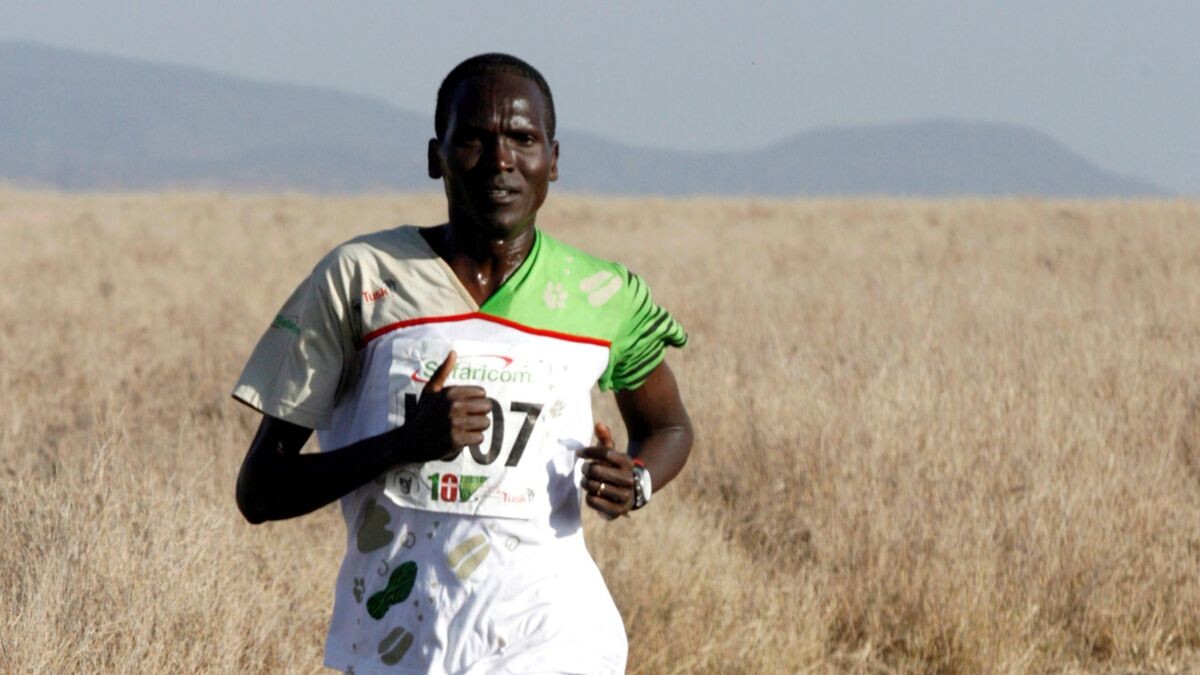
The singlet he wore when winning in Turin in 1997 is on display in the Museum of World Athletics.
“Cross country will always be a special event in my athletics career,” said Tergat. “It evokes very nostalgic and fond memories, because this is really where my long athletics career was birthed, developed and blossomed, with the crowning of five straight World Cross Country Championships titles between 1995 and 1999."
“In cross country running, I picked up lifelong lessons after conquering diverse conditions, twists and turns, terrains, wetlands and barriers that define the athletics event.”
Tergat has experience of racing in Australia; the 10,000m final at the 2000 Sydney Olympic Games – where he pushed Haile Gebrselassie all the way before ultimately ending up with silver – was perhaps the most iconic race of Tergat's career.
As current world-class and mass runners prepare to take on the challenging Bathurst course, Tergat – who won individual and team titles for Kenya at each of those five editions of the World Cross Country Championships – reflected on the event in 1999 as his own competitive standout.
“Belfast remains an iconic race for its challenging, muddy course,” he explained, “but, most importantly, as the race in which I attained my historic fifth consecutive senior men’s title and a 14th successive team title for my country. This is the reason I have declared that race as ‘the toughest yet, but the best’.
“For these and many other reasons, I never hesitate to make any contribution towards raising the profile of cross country as a central event for every athlete, from track to road running.”
by World Athletics
Login to leave a comment
World Athletics Cross Country
Athletes from across the globe will descend on Australia for the World Athletics Cross Country Championships Bathurst 2021. Mount Panorama is better known as the home of Australia’s premier endurance motor race, but in one year from now, it will welcome the world’s best endurance runners for what will be Australia’s first World Athletics Series event in...
more...Kenyan graffiti artist Bankslave creates a mural for the GOAT in downtown Nairobi
The marathon world record holder, Eliud Kipchoge, was on hand with his kids for the unveiling of a mural in the Kenyan capital of Nairobi in his honor.
Kipchoge posted the mural on his social media with his two sons, Griffin and Jordon. The mural was created by renowned Kenyan graffiti artist Bankslave, who is well known in Nairobi as a voice of social change and expressionism.
The mural is located on Nairobi’s Kenyatta Avenue, which is the main road that enters the city’s central park (Nairobi National Park). In the past, Bankslave has also created murals of Barack Obama and Muhammed Ali. This isn’t the first time Bankslave has sketched the Kenyan marathon star—he made a mural of him and Ethiopia’s Haile Gebrselassie inside a coffee shop in 2021.
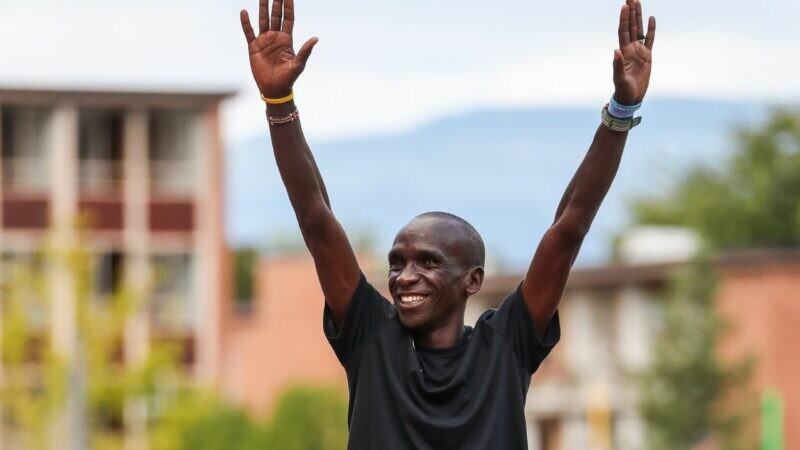
The 38-year-old marathoner is a two-time Olympic champion with 10 Abbott World Marathon Major victories to his resume. Kipchoge has won four of the six majors and is set to compete at the Boston Marathon for the first time in April 2023 before setting his sight on the 2024 Olympic Marathon in Paris.
The bottom of the mural reads 1:59:40, representing Kipchoge’s mind-boggling sub-two-hour time at the INEOS-1:59 event in 2019, where he became the first man to (unofficially) break the two-hour barrier. The top of the mural has his famous inspirational quote, “No Human is Limited.”
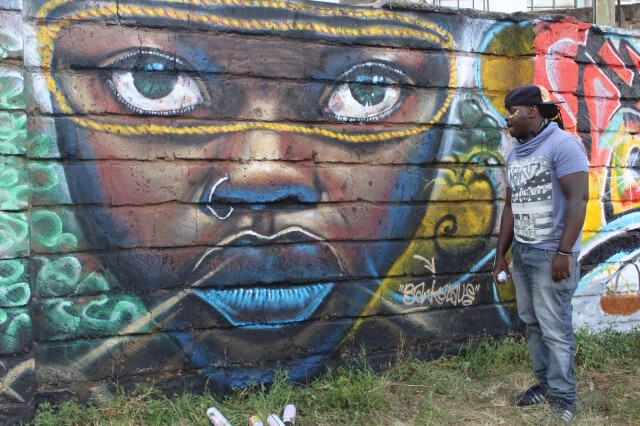
An NFT (non-fungible token) of the Kipchoge mural is up for sale on the blockchain website OpenSea and has been listed for three Ethereum coins (approximately $5,100).
by Running Magazine
Login to leave a comment
Peres Jepchirchir named chief guest for Great Ethiopian Run
Reigning Olympic marathon champion Peres Jepchirchir is the guest of honor for this years’ edition of the Sofi malt Great Ethiopian Run International 10km road race set for Sunday in Addis Ababa, Ethiopia.
The race will see up to 500 elite athletes compete in both men and women categories with more than 40,000 participants expected to run in three waves of red, green and yellow which symbolises the Ethiopian flag.
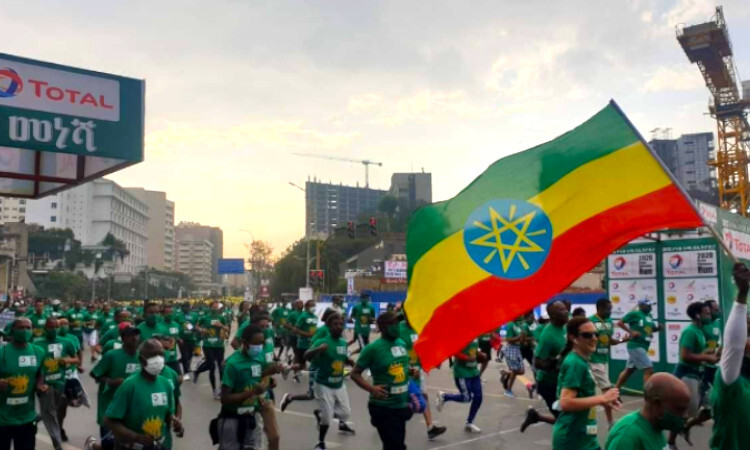
Ethiopian athletics legend Haile Gebrselassie, who is a two-time Olympic 10,000m champion started the race 20 years ago with the first edition taking place in 2001. Local athletes have dominated all editions since then.
Jepchirchir, who is also the Boston Marathon champion, is excited to be gracing the race in what will be her first visit to Ethiopia.
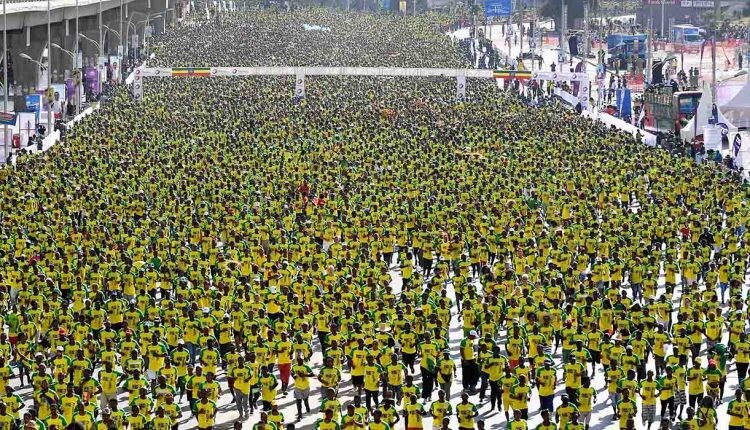
“I’m glad to be invited for the Great Ethiopian Run International 10km road race as a guest of honour and I would love to meet with Haile and get some tips from him. I have not been to Ethiopia and I’m looking forward to also interact with my competitors and share one or two things concerning the sport,” said Jepchirchir.
Race General Manager Dagmawit Amare told Nation Sport the race is a symbol of unity and they are happy to host another event.
“Every year in November, is the month that we are proud to be Ethiopians and in the past 21 years, the race has brought joy and unity in athletics. This year we expect more than 40,000 participants including 500 elite athletes from Uganda, Kenya, and Eritrea,” said Dagmawit.
According to the Runners World, the race held in Addis Ababa annually is possibly one of the best in the world where there is a mix of elite and fun runners.
The Great Ethiopian Run also organizes Hawassa Half Marathon, Women 5km race in March, Europe Day children races in May and Entoto Park Predator Run, which is held every month in Addis Ababa, IFH Relay Races and Great Bokoji Run.
Also invited for the event is two-time Boston Marathon champion Moses Tanui. He is expected to hold discussions for a partnership between Great Ethiopian Run and the Eldoret City Marathon, which is his brainchild.
by Bernard Rotich
Login to leave a comment
the Great ethiopian 10k run
The Great Ethiopian Run is an annual 10-kilometerroad runningevent which takes place inAddis Ababa,Ethiopia. The competition was first envisioned by neighbors Ethiopian runnerHaile Gebrselassie, Peter Middlebrook and Abi Masefield in late October 2000, following Haile's return from the2000 Summer Olympics. The 10,000 entries for the first edition quickly sold out and other people unofficially joined in the race without...
more...Are records going to be broken at the Berlin Marathon this weekend?
The fall marathon season kicks off this Sunday, Sept. 25, in Germany for the 48th annual Berlin Marathon, which is the first of four Abbott World Marathon Majors over the next six weeks. The biggest name is distance running Eliud Kipchoge returns to the course he set the world record on four years ago, but the question everyone is asking is whether he can run 2:01:39 again?
He also looks to become the second man to win four Berlin Marathon titles, joining the great Haile Gebrselassie, who won four consecutive between 2006 and 2009.
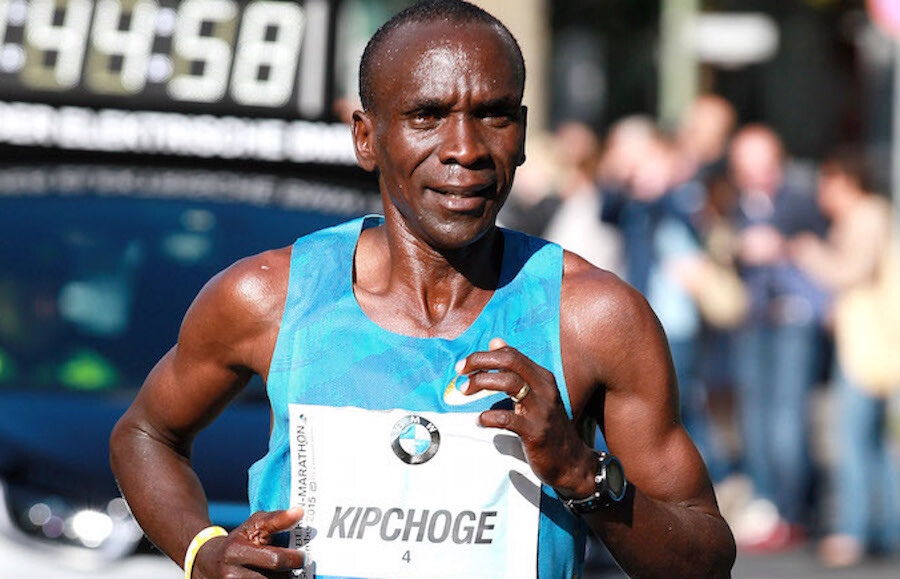
Kipchoge isn’t the only athlete chasing a record in Berlin. U.S. marathon record holder Keira D’Amato has made a quick turnaround from her eighth place finish at World Championships and has her eyes on the American record of 2:19:12, which she ran in Houston earlier this year.
Vancouver’s Natasha Wodak is the lone Canadian in the elite field, and she is looking to take advantage of the fast Berlin course. In 2020, Wodak ran the second fastest marathon time by a Canadian woman, 2:26:19, at The Marathon Project in Arizona. She followed up that performance with an impressive 13th place finish in the marathon at the 2020 Olympics Games.
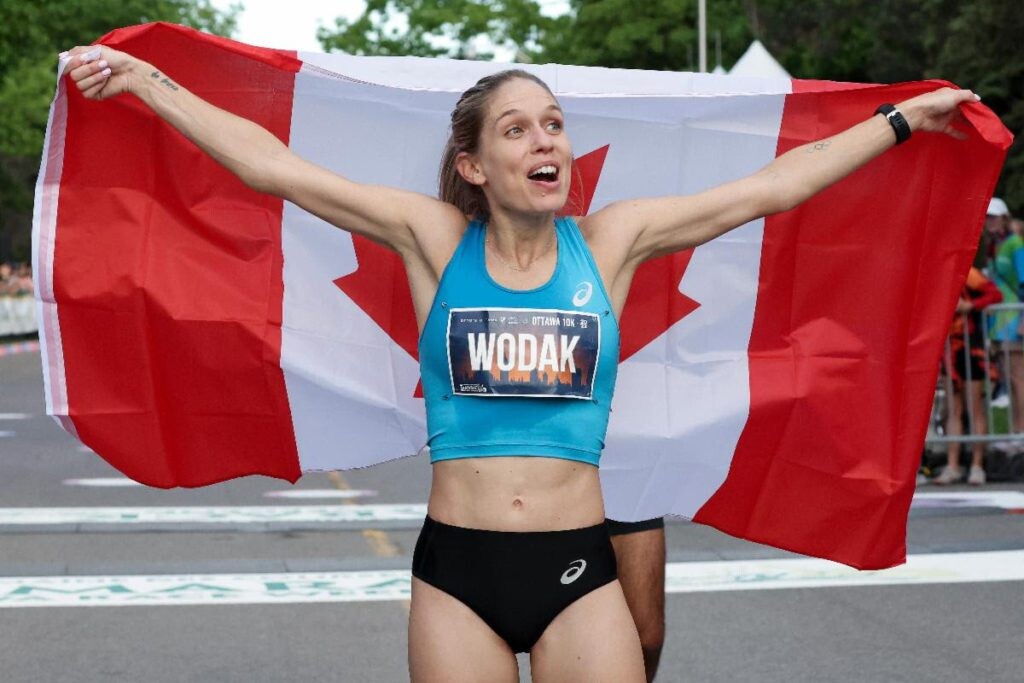
Wodak hopes to shake 90 seconds off her marathon PB Sunday to challenge Malindi Elmore’s Canadian record of 2:24:50 from 2019.
The weather
The race starts at 9:15 a.m. local time on Sunday (which is 3:15 a.m. E.T. in Canada). The temperature looks to be perfect for marathoning — between 10 C and 14 C, with next to no wind.
Men who hope to finish near Kipchoge
It is well-known that Kipchoge is the favorite, but who are the guys most likely to finish second or stick with him until 30K?
Ethiopia’s Guye Adola, who was second to Kipchoge in 2017, won Berlin last fall in 2:05:45. The win marked his first major victory after struggling with injury earlier in his career. Like Kipchoge, Adola is fast and knows what it takes to win on this course. In 2017, he ran the fastest marathon debut in history on this course but since has not run near 2:03.
Adola is the only other sub-2:05 runner, which Kipchoge is bound to finish under. If anyone else wins this race, it would take a miracle, or mean both Kipchoge and Adola have blown up.
Ghirmay Ghebreslassie of Eritrea won the 2015 World Championships in Beijing and the New York Marathon in 2016 after missing the podium at the Rio Olympics. Although Ghebreslassie has the experience, in a sub-2:05 race, he may not have the speed to keep up with Adola and Kipchoge.
Marley’s Pick: Eliud Kipchoge (KEN) – 2:02:29
Can Keira D’Amato become the first American winner?
D’Amato has the fastest time out of the 24 runners in the women’s elite field with a time of 2:19:12, but she has only had nine weeks to prepare for Berlin after her 2:23:34 at the World Championships in Eugene. She was only selected for the U.S. team after Molly Seidel dropped out a few weeks before the championships.
To run 2:23 at worlds off not much training is impressive and should be a confidence booster for D’Amato on a faster Berlin course.
Many of the top Kenyan and Ethiopian runners will be competing later this fall, but there are other sub-2:22 runners in Berlin. Kenya’s Nancy Jelagat Meto (2:19:31 – Valencia) and Vibian Chepkirui, the winner of the Vienna City Marathon in 2:20:59 in April, have the experience and speed to deny D’Amato the title.
Rosemary Wanjiru of Kenya, a 65:34 half marathoner, is making her marathon debut here in Berlin. Although this is her first marathon, she will likely be in contention most of the race.
Marley’s Pick: Rosemary Wanjiru (KEN) – 2:18:39.
by Marley Dickinson
Login to leave a comment
BMW Berlin Marathon
The story of the BERLIN-MARATHON is a story of the development of road running. When the first BERLIN-MARATHON was started on 13th October 1974 on a minor road next to the stadium of the organisers‘ club SC Charlottenburg Berlin 286 athletes had entered. The first winners were runners from Berlin: Günter Hallas (2:44:53), who still runs the BERLIN-MARATHON today, and...
more...Eliud Kipchoge ready for fast times in Berlin
Eliud Kipchoge is ready for a very fast race in the BMW BERLIN-MARATHON on Sunday which may well lead him to break the world record here for the second time.
The double Olympic champion, who set the current world record of 2:01:39 in Berlin four years ago and also broke the two-hour barrier when he ran 1:59:40.2 in a race in Vienna in 2019 which did not conform to regulations, will start as the clear favourite.
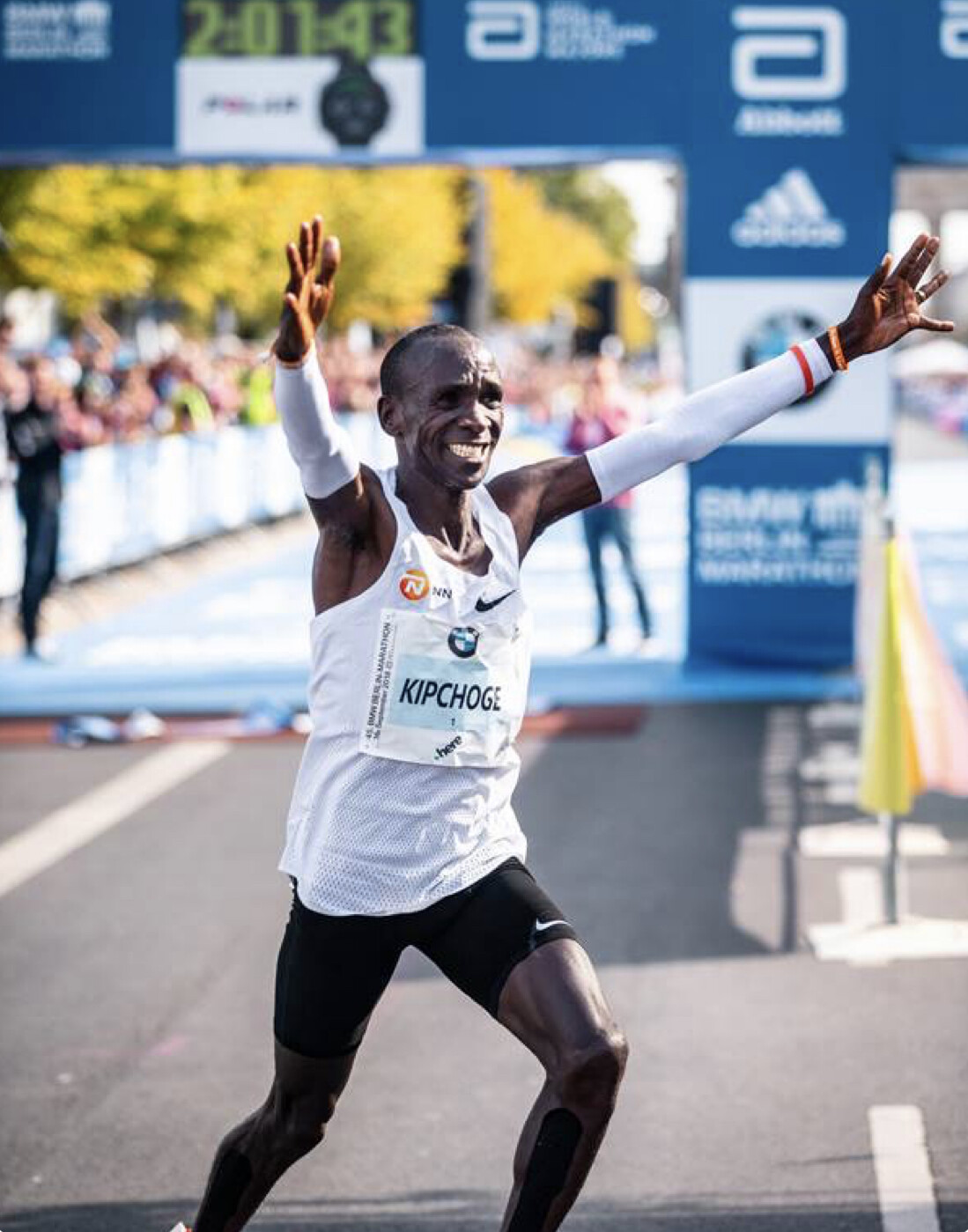
Organisers of the BMW BERLIN-MARATHON have registered 45,527 runners from 157 nations for the 48th edition of the event. Germany’s most spectacular road race is part of the Abbott World Marathon Majors (AWMM) and is also a Platinum Label Road Race of the international athletics federation, World Athletics.
The 37-year-old Kenyan held back from making any hard and fast promises when he spoke two days before the BMW BERLIN-MARATHON. “I’d like to thank the organisers for letting me race again in Berlin after four years and expect a very good race. I’ve trained well as usual – every training day is a challenge.”In response to the question at the press conference, what would be “a very good race” for him, Eliud Kipchoge answered: “A very good race is a good race.”
That got the audience on his side before he added: “I want to inspire people and if a course record comes out of this at the end, I will appreciate it,” added this outstanding athlete. It should be noted that the course record is, of course, the world record, but Eliud Kipchoge was careful not to utter these words.
The world record holder, whose career so far has brought him victory in all but two of his 18 marathons, could well achieve his fourth win in Berlin after taking the title in 2015, 2017 and 2018. That would bring him equal with the Ethiopian legend Haile Gebrselassie as the two men with most wins in Berlin. If the world athlete of the year for 2018 and 2019 is in world record form, Eliud Kipchoge should prove unbeatable on Sunday.
On the other hand, the elite field has plenty of strength in depth. Heading the list of challengers is last year’s champion Guye Adola from Ethiopia, winning the title in unseasonably warm conditions in 2:05:45 and beating the Ethiopian superstar Kenenisa Bekele into the bargain.
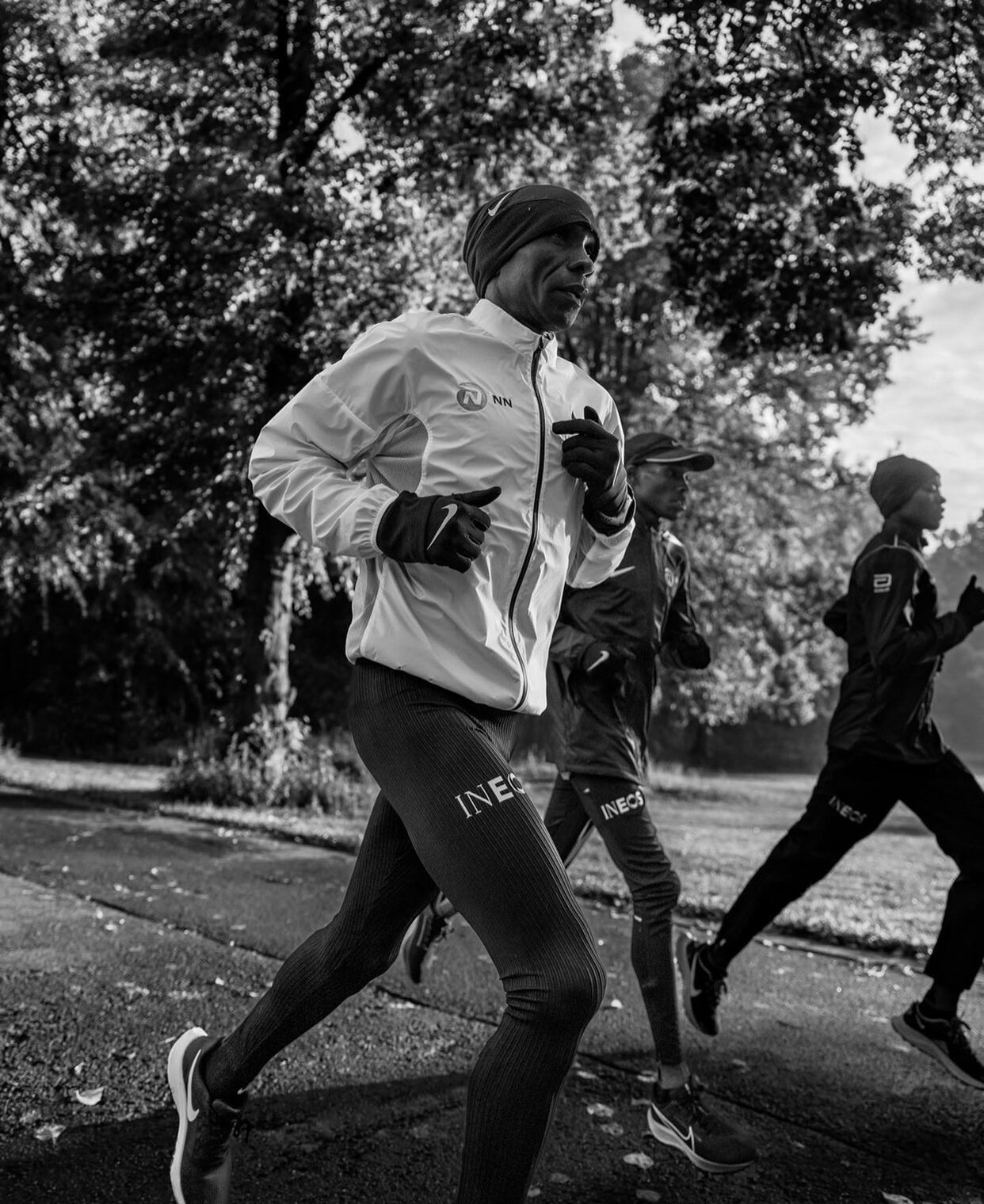
It was in Berlin in 2017 that Guye Adola ran what remains his personal best of 2:03:46 and on his debut at the distance. Only Eliud Kipchoge finished ahead of him though from time to time Adola took the lead. “I have prepared well and look forward to the race,” said the 31-year-old, who described Kipchoge as “a hero.”
The BMW BERLIN-MARATHON has greater strength in depth among the men’s elite field than ever before. As many as 18 runners have personal bests under 2:08. Among them is Ghirmay Ghebreslassie who caused a surprise when winning the world title in 2015 and also won in New York the following year. The Eritrean athlete has a best of 2:05:34 which he set in finishing third in Seville in February.
“It’s a big challenge to run in such a field and against Eliud Kipchoge. I’ll do my best and my aim is a place on the podium,” said Ghirmay Ghebreslassie.
An unusually large number of Japanese runners will be among the elite starters, the reason being that they are trying to qualify for the 2024 Olympics. There will be 13 of them with personal bests of under 2:10 in the BMW BERLIN-MARATHON. The fastest of them is Ryu Takaku with a best of 2:06:45.
The leading German in the field is Johannes Motschmann, who was a member of the German team at the European Championships which won the silver medal in Munich. Despite a short recovery time of six weeks since that competition, the 28-year-old wants to improve his personal best of 2:12:18 in the direction of 2:10.
The race in Berlin is the biggest of my career so far. Since I’m a hometown boy here, I’d even rate it above the European Championship marathon,” said Motschmann, who runs for the Marathon Team Berlin.
The Austrian record holder, Peter Herzog, will also be aiming to take advantage of conditions at the BMW BERLIN-MARATHON and run faster than ever before. His current best is 2:10:06 and his ambition is to become the first Austrian.
While a double world athlete of the Year in Eliud Kipchoge will take centre stage, a former star of world sport will be running some way behind him: the Brazilian football legend Kaká, a member of the team which won the World Cup in 2002, and also a Champions League winner and Footballer of the Year.
“I definitely wanted to run a major marathon and asked friends who recommended Berlin to me. That’s why I’m here. On Sunday I want to run 3:40. The marathon is something very special in that we, as mass runners, run together with the elite. I’m very excited,” admitted Kaká at the press conference.
Elite runners with personal bests
Eliud Kipchoge KEN 2:01:39
Guye Adola ETH 2:03:46
Ghirmay Ghebreslassie ERI 2:05:34
Dejene Debela ETH 2:05:46
Mark Korir KEN 2:05:49
Ashenafi Moges ETH 2:06:12
Tadu Abate ETH 2:06:13
Bethwel Yegon KEN 2:06:14
Awet HabteERI2:06:25
Ryu TakakuJPN2:06:45
Limenih Getachew ETH2:06:47
Hiroto InoueJPN2:06:47
Zablon Chumba KEN 2:07:18
Kenya Sonota JPN 2:07:23
Kento Kikutani JPN 2:07:26
Kazuki Muramoto JPN 2:07:36
Tadashi Isshiki JPN2:07:39
Atsumi Ashiwa JPN 2:07:54
Daisuke DoiJPN2:08:13
Rintaro TakedaJPN2:08:48
Yuki Matsumura JPN 2:09:01
Peter Herzog AUT 2:10:06
Johannes Motschmann GER 2:12:18
Third photo: Kipchoge's first run in Berlin
Login to leave a comment
BMW Berlin Marathon
The story of the BERLIN-MARATHON is a story of the development of road running. When the first BERLIN-MARATHON was started on 13th October 1974 on a minor road next to the stadium of the organisers‘ club SC Charlottenburg Berlin 286 athletes had entered. The first winners were runners from Berlin: Günter Hallas (2:44:53), who still runs the BERLIN-MARATHON today, and...
more...Haile Gebrselassie to be the International Event Ambassador at the Vedanta Delhi Half Marathon 2022
Haile Gebrselassie, one of the greatest distance runners in history, will be the International Event Ambassador at the Vedanta Delhi Half Marathon 2022 on Sunday October 16.
The Ethiopian legend won the 10,000m gold medal at both the 1996 and 2000 Olympic Games as well as four successive World Athletics Championships 10,000m titles from 1993-99.
In addition, Gebrselassie won a further four world indoor gold medals and the 2001 World Athletics Half Marathon Championships title, and set no less than 15 world records outdoors and on the roads, and a further five world indoor records, revising the record books over a stunning range of distances from 1500m to the marathon.
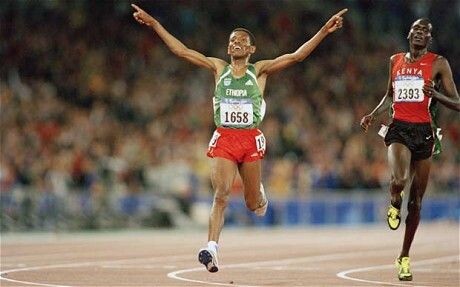
“There are few things more inspiring and joyful than seeing a city run together. When we run together, we stay together, we win together,” said Gebrselassie, whose activities in Delhi will include motivating and inspiring the thousands of runners who will take to the streets of the Indian capital next month, as well as promoting the event in the final days before the gun goes.
"Running and the community are the two things that are most important to me, and an event like the Vedanta Delhi Half Marathon brings them together in a special way.
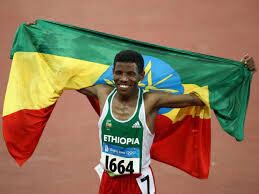
“The enthusiasm of the host city inspires something special in everyone involved in making this beautiful event possible. I’m going to be cheering all the runners as we celebrate the different hues of Delhi,” he added.
Uganda’s Jacob Kiplimo, the reigning world half marathon champion and world record holder over the distance, will headline the elite field for the 17th edition of the Vedanta Delhi Half Marathon 2022.
The Vedanta Delhi Half Marathon 2022 is a World Athletics Elite Label Race and one of the world's most prestigious half marathons.
by Runners Web
Login to leave a comment
Vedanta Delhi Half Marathon
The Airtel Delhi Half Marathon is a haven for runners, creating an experience, that our citizens had never envisaged. The streets of Delhi converted to a world-class running track. Clean, sanitized road for 21.09 kms, exhaustive medical support system on the route, timing chip for runners, qualified personnel to ensure smooth conduct of the event across departments. The race...
more...Ethiopians Yehualaw and Yimer look for fast times at Antrim Coast Half
British distance runners Marc Scott and Callum Hawkins are also set to race 13.1 miles while Haile Gebrselassie and Jo Pavey will run the one mile fun run this weekend.
Ethiopian distance running stars Ethiopians Yalemzerf Yehualaw and Jemal Yimer lead a world-class line-up at the ‘Mid & East Antrim’ Antrim Coast Half Marathon in Larne, Northern Ireland, on Sunday (Aug 28). There is plenty of British interest too with Marc Scott and Callum Hawkins among the entries.
The event, which is set to be covered live on BBC online from 8.55am, sees Yehualaw coming into this year’s race having broken the women’s world record over 10km with 29:14 in Castellon, Spain, earlier this year, in addition to running the fastest female debut marathon ever of 2:17:23 in Hamburg in April.
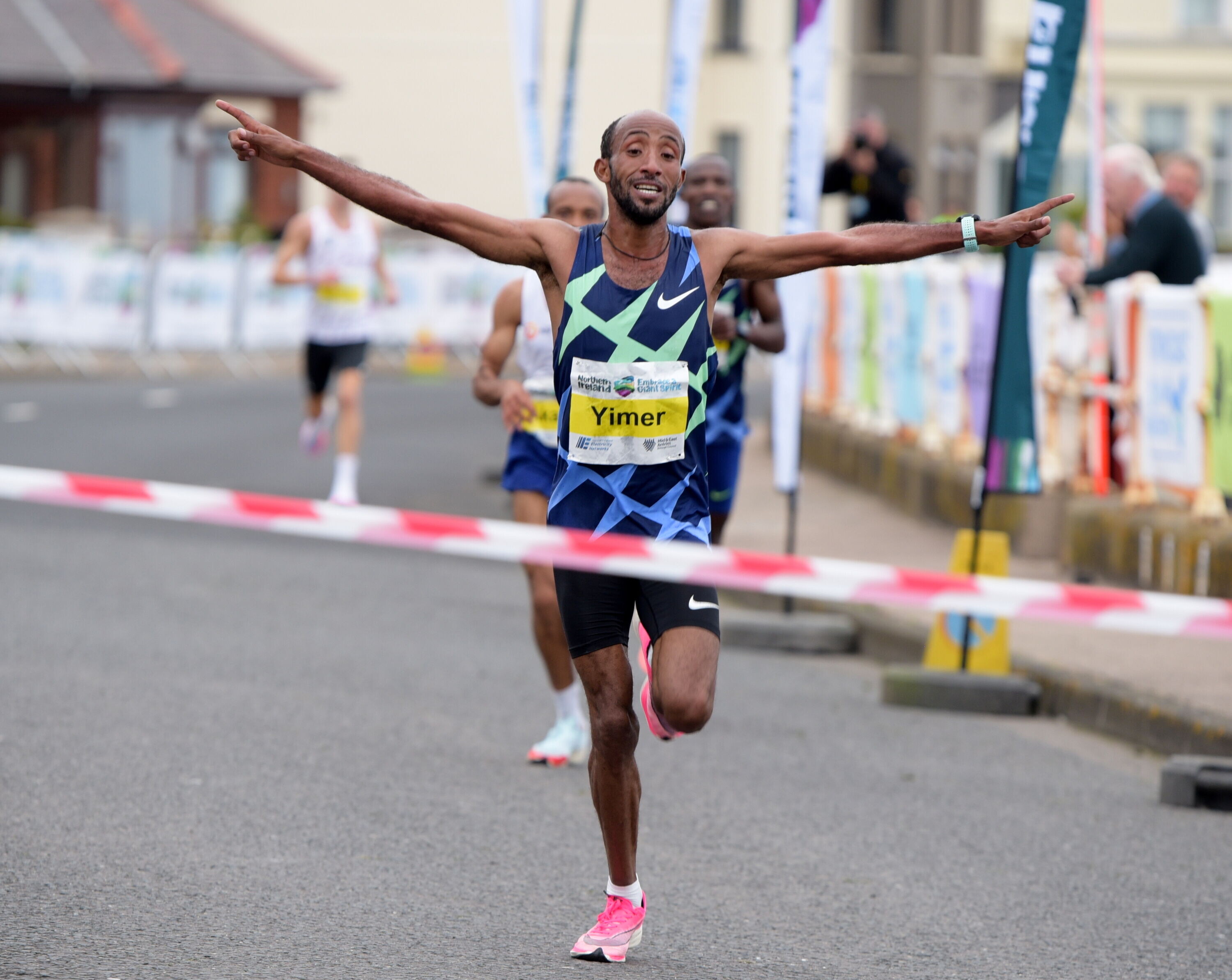
At the Antrim Coast event last year she appeared to break the world record for 13.1 miles with 63:43 but was denied the mark due to the course being found to be 54 metres short.
Yehualaw will be joined at this year’s Antrim Coast event by her training partner Tsehay Gemechu. The 23-year-old Ethiopian comes to this year’s with a personal best of 65:08 and has been winner of the Lisbon Half-Marathon two years in a row and Copenhagen Half-Marathon in 2021.
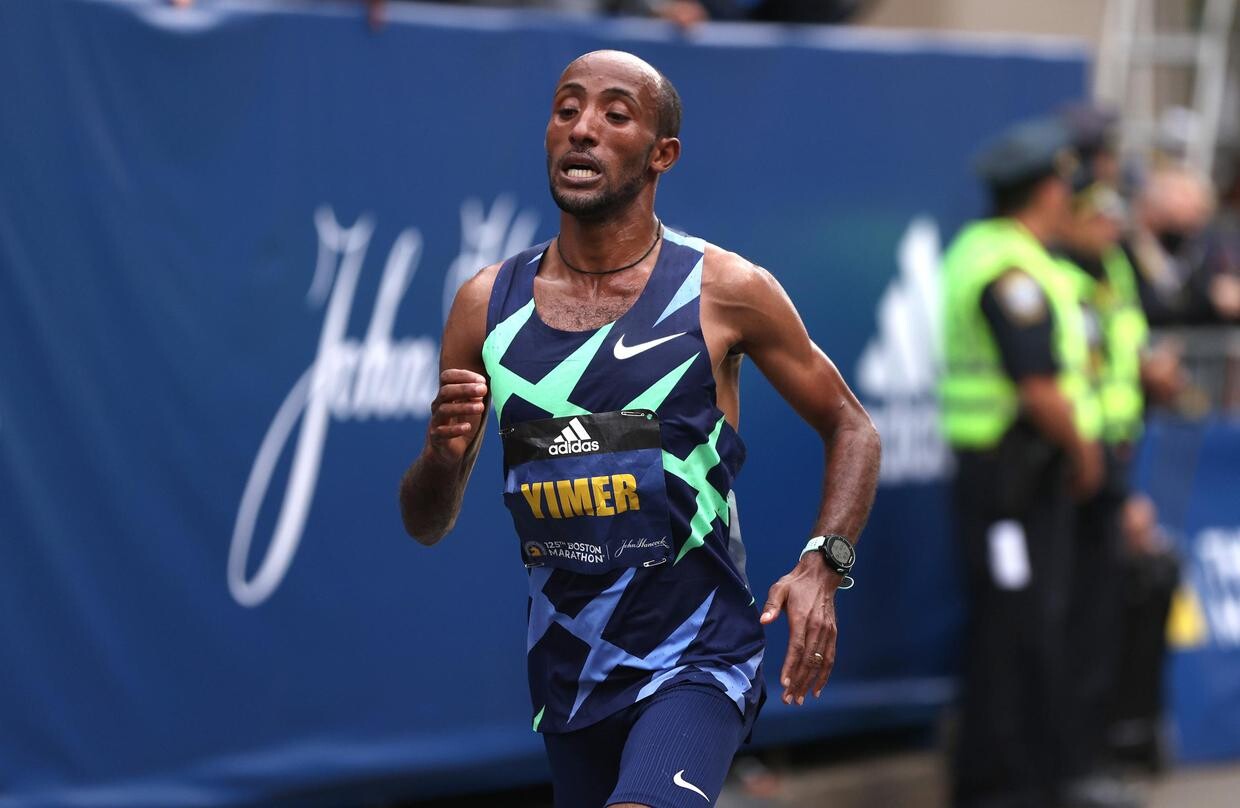
In addition for this World Athletics Elite Label road race there is Gete Alemayehu, who recorded 66:37 for second in Barcelona Half-Marathon in April. Beatrice Chepkemoi of Kenya, who has a PB of 67:29, will make it four women who have run under 67:30.
Three male pacemakers have been lined up and there is Northern Ireland interest courtesy of Emma Mitchell, Fionnuala Ross and Hannah Irwin.
The men’s field is led by Ethiopian record-holder and last year’s winner, Yimer. He is the quickest in the race with a PB of 58:33 but faces fellow Ethiopian Tesfahun Akalnew, who was was runner-up in Larne 12 months ago and has subsequently recorded a 2:06:55 marathon in Amsterdam.
Bethwel Birgen of Kenya is set to set the pace with Scott in particular hoping to be dragged under the 60 minute barrier. The Brit was not at his best in this summer’s track championships but has great pedigree on the roads after having won the Great North Run last year.
Could he get close to Mo Farah’s British record of 59:32 set in Lisbon seven years ago?
Also in the line-up are Shadrack Kimining of Kenya, Huseydin Mahamed of Ethiopia and Gizealew Ayana of Kenya, all of whom have broken the 60-minute barrier in the past.
Northern Ireland’s Stephen Scullion is also due to run plus Omar Ahmed of Birchfield Harriers.
The event has also secured a major coup with the signing of Haile Gebrselassie. The 49-year-old, who won multiple global titles during his career, will run the inaugural Antrim Coast Classic Street Mile for fun with Jo Pavey, young athletes and parents on Saturday evening (Aug 27) before joining race director James McIlroy to commentate on a half-marathon the next day.
by Jason Henderson
Login to leave a comment
MEA ANTRIM COAST HALF MARATHON
The MEA Antrim Coast Half Marathon 2022 has been approved by World Athletics as an Elite Event. The World Athletics certified course takes in some of the most stunning scenery in Europe, combined with some famous landmarks along the route. With it's flat and fast course, the race is one of the fastest half marathons in the world. Starting...
more...Gelete Burka will be running the 2022 TCS Toronto Waterfront Marathon on October 16th
A three-time Olympian for her country, Gelete was also the 2008 World Indoor 1,500m champion and 2006 World Cross Country champion. But when she won the 2017 Ethiopian World Championships 10,000m trials and was not selected for London, she turned to the marathon. Her results in the classic distance have been sublime.
Her curriculum vitae includes a personal best time of 2:20:45 (2018 Dubai Marathon) and a splendid 3rd place finish in the 2019 Chicago marathon (2:20:55). Dipping under 2 hours 20 minutes remains a tangible objective.
This will be only the second time the 36-year-old star has raced in Canada. On her previous occasion in 2018 she set a Canadian All Comers’ marathon record of 2:22:17 in Ottawa, despite running with stomach cramps and completely alone for much of the race.
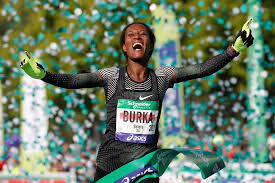
That record was beaten by one second at the Toronto Waterfront Marathon by Kenya’s Magdalyne Masai in 2019. The pair will battle in Toronto.
“My training is going well and I am so happy with my training,” Burka says from her home in Addis Ababa, the Ethiopian capital. The WhatsApp call had been delayed by a couple of hours when the lights went off during a power outage.
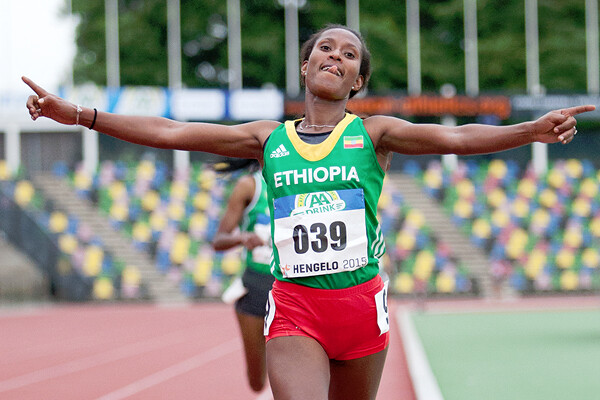
“We have two months until the race and I’m just working hard,” she adds. “It is sometimes raining here. We look at the weather and choose training places. We are working hard in Sendafa, Entoto, Sululta, Arafat. We train in five or six different places.”
Coached by Getamesay Molla, the group of elite runners she belongs to meet in those various locations all within half an hour of Addis by car. In a radical departure, Gelete even spent most of the month of July in Colorado Springs, Colorado where she joined Kenyan born US coach Haron Lagat. It is the rainy season in Ethiopia and heavy rains adversely affected the dirt roads back home.
“It’s nice for training there,” she says of the Colorado Rocky Mountains. “I was with some friends in the US Army Athletics (group). Do you know Haron Lagat? I was with him working there in Colorado Springs before the marathon training.”
Gelete had expected to race Ottawa earlier in May but although her Canadian visa was approved, she did not receive her passport in time to travel to Canada. After training for six months specifically for the race, the disappointment was enormous. It is not easy to train to peak for a specific marathon and then have to find an alternative. In any case, Ottawa is among the final spring marathons.
“One week I was sick. I was so heartbroken,” she reveals with a smile. “I haven’t any business, my only business is working in athletics. I just focus on my running. A little bit I was angry because I worked so hard. It is not like track racing.
“It was a big disappointment but sometimes you forget something that happened in life. I have forgotten it and now am only focused on Toronto.”
Gelete comes from Kofele in Arsi district of south-central Ethiopia. It’s the same region from where national hero, Haile Gebrselassie, originates.
Family is everything to her and currently her youngest sister together with her niece, Deborah, and nephew, Muse, share her home in Addis. After returning from Colorado, one of the first things she did was travel back to visit her mother and her other siblings in Shashamane, one of the main towns in Arsi. It is also known for its large Rastafarian community.
A devoted Christian, Gelete is also a member of the 40-member choir at the Glorious Life Church in Addis. They sing in Amharic, Oromo and English at two weekly services. In addition, she is an usher at the church and so must attend meetings and choir practices when called. Her faith is important enough that following her 2018 Ottawa victory she sought out an Ethiopian church to attend.
Given the news that Magdalyne Masai shaved a second off her Canadian All Comers record in 2019 - and will face her on the Toronto starting line - Gelete smiles. Asked whether Masai’s 2:22:16 standard will now be a target, she thinks for a moment.
“You have to see in the race how you are feeling and also what she is feeling,” Gelete explains. “In a race you think of records when your body feels ok. For now I am not sure. I will look inside the race for what I can do.”
Ethiopians were overjoyed with the performance of their 2022 World Championships team in Eugene, Oregon. With 10 medals, Ethiopia finished second in the medal table behind the host USA. Seeing her compatriot Gotytom Gebreslase take the women’s marathon gold was extra special.
“It is still in my head that I want to run under 2:20,” she says, “because you see the world championships I am so happy (Gotyom) ran 2:18. After you see in championships they are running 2:18 then I think under 2:20 (is possible) if the body is ok and the weather is ok. And, if the others want to run a very good time.”
Clearly this Ethiopian superstar has bold intentions for her future. Her race against Masai in this World Athletics Elite Label race is a tantalizing prospect.
About the TCS Toronto Waterfront Marathon
One of only two World Athletics Elite Label races in Canada, the TCS Toronto Waterfront Marathon is Canada’s premier running event and the grand finale of the Canada Running Series (CRS). Since 2017, the race has served as the Athletics Canada Canadian Marathon Championship and has doubled as the Olympic trials. During the 2021 event, participants raised over $3.08 million for 151 community charities. Using innovation and organization as guiding principles, Canada Running Series stages great experiences for runners of all levels, from Canadian Olympians to recreational and charity runners. With a mission of “building community through the sport of running,” CRS is committed to making sport part of sustainable communities and the city-building process.
by Paul Gains
Login to leave a comment
TCS Toronto Waterfront Marathon
The Scotiabank Toronto Waterfront Marathon, Half-Marathon & 5k Run / Walk is organized by Canada Running Series Inc., organizers of the Canada Running Series, "A selection of Canada's best runs!" Canada Running Series annually organizes eight events in Montreal, Toronto and Vancouver that vary in distance from the 5k to the marathon. The Scotiabank Toronto Waterfront Marathon and Half-Marathon are...
more...Tim Murphy founder of San Diego Elite Racing Inc has died at age 77
Tim Murphy, founder of San Diego’s Elite Racing, Inc., the man who reinvented running, not once but three times, succumbed to pneumonia Wednesday night (August 17, 2022) passing in hospice care at his home in San Diego, California. He was 77 years old.
Today, though smaller than it once was, the Rock ‘n’ Roll Marathon Series remains the largest purveyor of running events in the world, with 29 events in 16 U.S. states, Washington D.C., and seven foreign countries. But a quarter century ago, who knew what lay ahead in the wild open spaces of the first Rock `n` Roll Marathon?
Some observers even questioned the concept of rock bands strung along the marathon course altogether. What does rock`n` roll have to do with San Diego, much less with running a marathon, the ultimate test of endurance?
Well, on June 21, 1998 the world got its answer. With the snarl of a blistering guitar solo, the tight syncopation of a snare drum, and the slap of millions of accompanying footfalls, the second-wave running boom announced its arrival in San Diego with a carnival of music, endorphins, and sweat. It’s like Tim turned over the calendar two years early to introduce the new century.
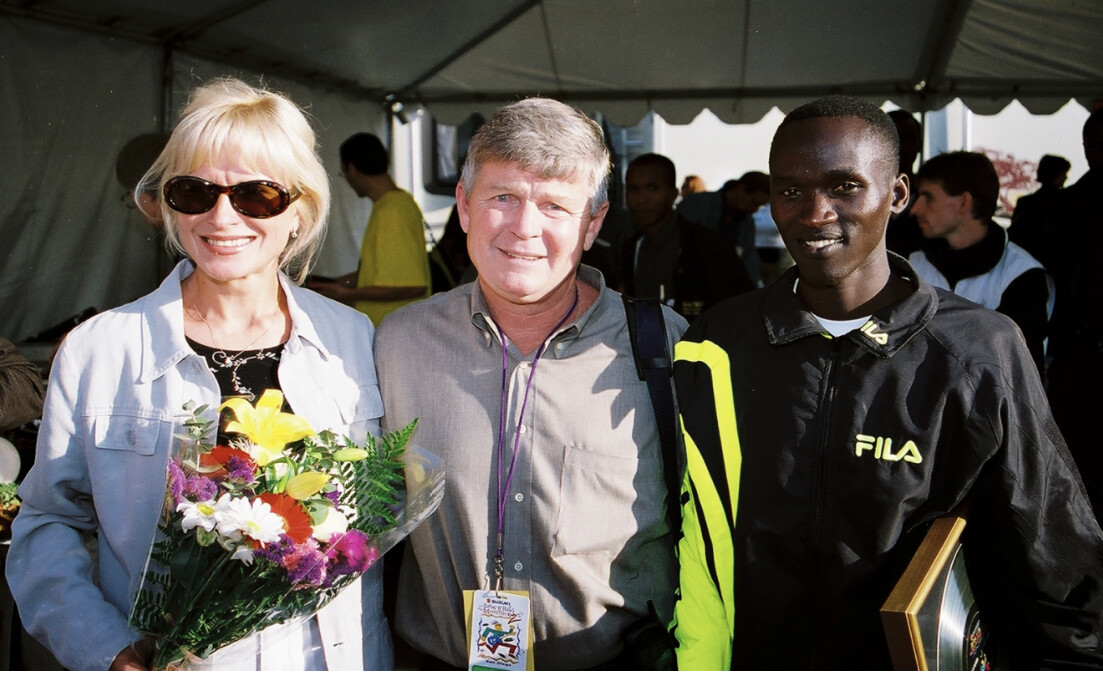
“We created a theme marathon without intending to,” said Tracy Sundlun, Tim’s long-time partner at Elite Racing.
NEW DEMOGRAPHICS
No new major marathon had sprung up in the U.S. or the world since the Los Angeles Marathon arrived in 1986. In its first year, LA registered 10,787 runners, making it the largest inaugural marathon in history. Instantly, that number became Tim‘s goal for San Diego to beat LA.
Even before its first steps were run, though, there was the feel of a major marathon about the Rock ‘n’ Roll Marathon. Tim had conceived the idea years before while running the final lonely miles of the Heart of San Diego Marathon out along Friar’s Road to Qualcomm Stadium in Mission Valley. Wishing there were some kind of support along the road to help out, Murphy thought, wouldn’t it be great to have music to run to.
It took a long time for his idea to gestate, but the seed had been planted.
After a decade of developing his reputation as an event innovator, beginning in 1986 with the Carlsbad 5000 just north of San Diego – the event that proved runners in a then 10k / marathon focused world would run a 3.1 mile race, while introducing “spectator running” where the professional field followed age and gender specific races over the same tight-looped course – Murphy’s idea of a musical marathon came to life, born out of two separate, but catalyzing events.
“When they opened the Rock & Roll Hall of Fame in Cleveland (1995), there was so much hype about it,” Tim told San Diego YuYu in 2004. “So I was running along one morning and I thought, “If I lived in Cleveland I would do a marathon that would start and finish at the Rock & Roll Hall of Fame and do a big concert afterwards.”
One year later 273 San Diegans were among the record 38,000 entrants at the 100th anniversary of the Boston Marathon.
“Afterwards, they had this get together and all they could talk about was why there wasn’t a major marathon in San Diego. And all the runners, some of them pretty important, just wouldn’t leave me alone about it. So I essentially dusted off the old idea I had for Cleveland and started.”
With the backing of a set of investors, led by Hollywood A-list producers Frank Marshall and wife Catherine Kennedy – “Jurassic Park”, “Indiana Jones” , “Jason Bourne” – along with celebrity ambassadors like basketball Hall of Famer Wilt Chamberlain, Tim promoted his concept relentlessly at race expos around the country, touting his new baby with posters and ads that said, ‘You missed the first Boston. Don’t miss the first Rock ‘n’ Roll!’
No longer a simple feat of speed endurance, the grueling marathon had been reinvented as a rollicking 26-mile long block party through America’s Finest City.
Despite a 37-minute delay at the start due to some perceived traffic issues on the course – which led to a water-dousing through the first aid station – the high-spirited music rocking the sidelines caused an immediate sensation.
Nearly 20,000 entrants from 30 countries and all 50 states passed the word, ‘You gotta try this one!” And that was before they got to the post-race concert that night featuring Huey Lewis and the News, Pat Benatar, and the Lovin’ Spoonful!
The makeup of year one’s field proved historic, as well. 50% of the field was women, far and away the largest such percentage of any co-ed road race of any distance to date, and a pivot-point in the history of the sport. Before RnR San Diego, the largest percentage of women in a major marathon had been just 23% at New York City. Most road races had only 10% to 15% women at the time.
Rock ‘n’ Roll’s runners were also slightly older than the norm, slightly wealthier, and slightly slower than the average marathon runners.
At a time when road race courses were designed to be minimally visible and impact their communities as little as possible, the initial Rock ‘n’ Roll Marathon layout was designed to be an infomercial for the city, regardless of the potential inconvenience for some.
When city officials asked how long they would have to keep the streets closed, Tim based his projections on the New York City Marathon, saying, ‘we might have 50 or 60 runners who will take longer than six hours 30 minutes. But we’ll just direct them onto the sidewalk, so you can reopen the streets.’ As it turned out, 1500 runners took over seven hours to complete their 26.2 mile journey.
But Tim Murphy wasn’t just in it for the large participation numbers, important as they were. He always had his eye on top talent, too, and urged elite athlete coordinator Mike Long to pull in a world-class field, like he did every year for the Carlsbad 5000 where so many world records were set.
Mike Long, the late Elite Racing athlete recruiter with Rock `n` Roll 1999 champs Tarus & Bogacheva
Nobody knew how fast RnR could be run until young Kenyan, Philip Tarus, busted a 2:10 opener for the men, with Russian women Nadezhda Ilyina and Irina Bogacheva battling just nine seconds apart at the finish for the women in 2:34. That told the athletes of the world, ‘This one is worth having a go,” especially after all the Suzuki products and prize money checks were handed out.
Not since the New York City Marathon’s first five-borough extravaganza in 1976 had a marathon come on the calendar with such dramatic impact: The largest first-time running event in history; the most ingenious show along the sidelines and at the finish ever produced; $18.6 million (net) raised by and for The Leukemia & Lymphoma Society’s Team In Training charity – the largest amount ever for a single-day sporting event; and to cap it off, world-class performances by its champions.
Though the race lost over $1 million in its first year, it instantly became the number one economic impact event in Southern California, generating $39.3 million in its inaugural year, as two-thirds of its entrants came from outside the region. With Murphy’s persistence and the continued backing of his investors, Rock ‘n’ Roll eventually broke even in year three. Thus was the foundation set for what has become a global phenomenon, the so-called second-wave running boom.
Born and raised with two sisters in Denver, Colorado, Tim attended high school in Nebraska where he competed in the 880-yard run and threw the discus. He then spent the first part of his professional life toiling in the health care industry, selling hospital supplies on the road while moving across the country time and time again. Finally, in the late 70s, he decided to abandon the rat race and settle in San Diego where his two sisters lived.
Though he ran track in high school, he wasn’t a distance man. But once in San Diego and introduced to the area’s vibrant running community, like so many before him, he got hooked on the sport. Tim often trained up to 10 miles a day, which led him into the race organization business and the founding of Elite Racing in 1988.
Always more of a behind the scenes workaholic than a flashy frontman, Tim did serve as interim race director for the troubled Chicago Marathon in 1989. But mostly he focused like a laser on the business side of Elite Racing. Tracy Sundlun, former head of New York City’s Metropolitan Athletics Congress, and a former collegiate and club track coach, joined as Tim’s partner in 1997, taking on the role of political go-between and liaison with the sporting world.
Through it all, Tim used his marketing and sales skills to build his race business from a fledgling local concern into the most successful for-profit organization in running.
“We have lost someone who – I don’t think many of the insiders even grasp his importance, his significance,“ said Tracy Sundlun. “Besides Fred Lebow in New York City, Tim was the best retail marketer the sport has ever known. It makes me happy all the people who’ve reached out from all over the world when they heard news of his passing. Tim would’ve felt good knowing the people recognized what he built, what he reinvented.”
Beginning with the Carlsbad 5000 in 1986, Tim bucked the conventional norms of the sport. Nobody thought people would pay to run a 5K. Running at the time was a 10K and marathon trade. But Tim turned it into a 5K and half marathon business and the sport soon followed along.
Ethiopian great Tirunesh Dibaba breaks another world record at Carlsbad 2005 (14:51)
The success of the Rock ‘n’ Roll Marathon in San Diego changed Murphy’s fortunes for good. Over the next several years, Tim developed the brand into a seven event juggernaut that spread from San Diego to Virginia Beach, Nashville to Phoenix, San Jose, California to San Antonio, Texas.
Elite Racing was the first organization to stage more than one marathon in a year, and the first to put on events outside their own home city. Designed as a for-profit company in a not-for-profit industry, Elite Racing was the first organization to build a brand in the sport, though, initially they didn’t realize they were doing it. They were also the first to buy events and the first to sell to private-equity.
When the City of Virginia Beach, VA wanted to start a new marathon on Labor Day weekend in 2001, Tim made a site visit. He realized that with the heat and humidity of late summer in Virginia Beach, and not wanting to conflict with the fall marathons which had been so supportive of his races in San Diego in the summer and Nashville in the spring, there was no way that a full marathon would work. So Tim convinced VB to create the first destination half-marathon, The Rock ‘n’ Roll Virginia Beach Half Marathon. Until then, half marathons were just local training races for marathons.
“Just like with Carlsbad in the 5K, nobody thought people would travel to run a half marathon,“ remembered Sundlun. “When we proposed Virginia Beach, we were one of Runner’s World Magazine‘s biggest advertisers. We said we were going to sell out at 12,000 for the Labor Day weekend race. People at Runner’s World said we were nuts. At the time, the largest half marathon was the Philadelphia Distance Run at 6000, the largest inaugural half marathon was on Long Island at 2900.
“Runner’s World bet us a full, center-spread, double page ad that we wouldn’t hit our number. They didn’t even think vendors would come to a Labor Day weekend race in Virginia Beach. But we sold out by July and eventually got 14,990 entrants. Getting that check back from Runner’s World, that was really something.”
Deena Kastor headlined the inaugural Rock ‘n’ Roll Virginia Beach Half Marathon in 2001, setting an American debut record as a prep race for her marathon debut in New York City that fall. Kenyan superstars Martin Lel and Paul Tergat both tuned up for fall marathon victories with wins in Virginia Beach.
Records were always important to Tim. He would often have side bets with Mike Long about the outcome of races. Two-time Olympic champion and multiple-time world record holder Haile Gebrselassie of Ethiopia broke the half marathon world record at Rock ‘n’ Roll Arizona in 2006 (58:55). And with 16 World Records / Bests and 11 American Records, Carlsbad was always recognized as The World’s Fastest 5K.
“Tim felt if you created special events with a team of people who were passionate about the space they were in, the money would follow,” Sundlun told me. “He also understood that an event was only as good as its weakest link. So he was laser-focused on every aspect of the event, from the expo to the medal to the course to the elite athletes to the give-a-ways to the ads to the water stations, you name it.
“We never had a meeting about what to cut, just about how to improve. Tim understood you had to invest and promote relentlessly. He was tireless in his pursuit of greatness. Good people would join him and he empowered them and got out of their way. But he refused to take no for an answer, and had a single-minded focus.”
Tim even bought television’s Road Race of the Month from Salmini Films in 1991, the series that aired on ESPN for over a decade featuring the best races in the country and around the world. Tim understood that with television as a promotional arm, he could sell more advertising and attract more runners.
The string of happy days ended abruptly in July 2007, however, when Elite Racing’s beloved athlete recruiter Mike Long died suddenly of a heart attack. Mike’s passing seemed to take the spark out of Tim.
Later that year he sold the business to Falconhead Capital for more than $40 million. Elite Racing essentially became the event division of the new Competitor Group, Inc., and Tim moved on. Eventually, after Tracy also left, CGI abandoned the elite aspect of running altogether, before leaving San Diego, as well.
At times, Tim could be a volcanic boss, as his business was his life’s passion. Yet he engendered a deep dedication and respect from his Elite Racing family, out of which 17 marriages were spawned (including my own with Toya), growing families, and lifelong friendships. Tim’s final years were spent quietly, visiting with friends and his two sisters who were with him at the last.
R.I.P., Tim. You were a true visionary who has left a legacy that moved us all both body and soul.
by Toni Reavis
Login to leave a comment
Cheptegei leaves rivals with no response to retain world 10,000m title in Oregon
Just like the Olympic final in Tokyo, there was a mass queue of runners still in contention as the bell sounded in the men’s 10,000m final at the World Athletics Championships Oregon22.
On that occasion there were seven men remaining in the hunt for gold. This time there were eight.
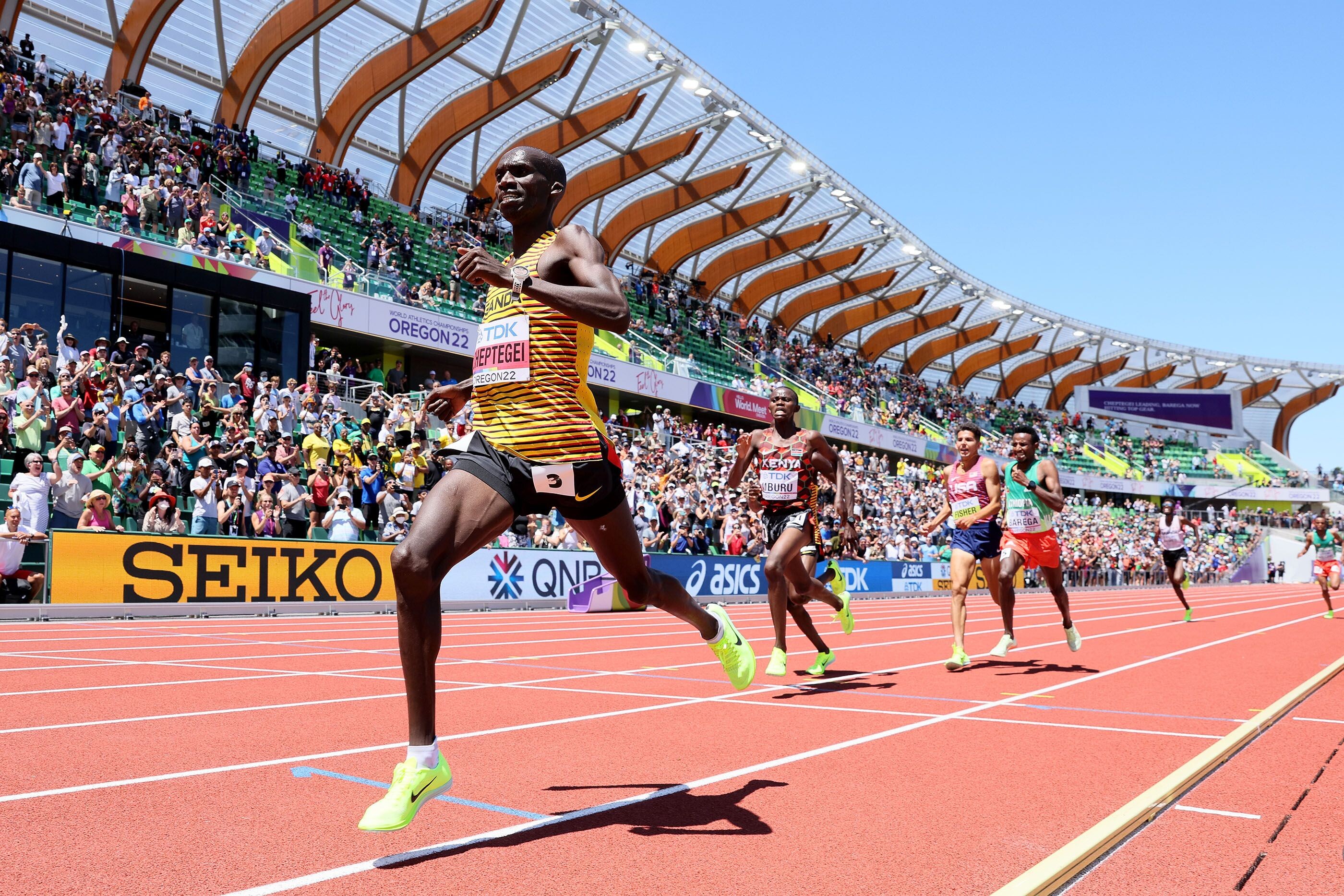
There was another subtle difference as the 25-lap event built up to just as thrilling a crescendo as the women’s final the previous day.
In Tokyo the slender Ethiopian Selemon Barega refused to budge from the front, keeping ahead of Uganda’s Joshua Cheptegei with a 53.9 final lap.
In Eugene, having controlled most of the race from halfway, Cheptegei hit the front again at the sound of the bell and stayed there. The fastest man in history at 5000m and 10,000m was not going to relinquish the title he toiled to gain in Doha three years ago.
Barega moved on to his shoulder down the back straight and looked set to pounce with 200m to go, but as Cheptegei led round the final bend and into the finishing stretch the world indoor 3000m champion had nothing in the tank.
Like Sifan Hassan in the women’s final, Barega faded out of the medals. Like Barega’s compatriot Letesenbet Gidey, Cheptegei gritted his teeth and kept his feet on the gas. The 25-year-old could afford to open his arms in celebration as he crossed the line 0.47 clear of his closest pursuer in 27:27.43.
In doing so, Cheptegei became only the fourth man to win back to back 10,000m world titles, following in the footsteps of Ethiopians Haile Gebrselassie and Kenenisa Bekele and Britain’s Mo Farah. His final lap was faster than Barega’s in Tokyo: 53.42.
"I knew that if I could get into the last fight, I could control it and I could speed it up," said Cheptegei, who won the world U20 title back at Hayward Field eight years ago. "It was very emotional for me to come back to the USA where I started my international career in 2014. Now, I want to continue my dominance in long distance running and I hope I will manage it."
The surprise silver medal winner, in 27:27.90, was Stanley Mburu. The world U20 silver medallist at 5000m in 2018, the 22-year-old Kenyan had quickly regained his composure after falling on the opening lap.
As in the Olympic final, Jacob Kiplimo took the bronze medal, Cheptegei’s compatriot clocking 27:27.97 to resist the challenge of home favourite Grant Fisher. The spirited US challenger had to settle for fourth in 27: 28.14, with Barega fifth in 27:28.39.
There were Ugandan flags fluttering in the stands as the 24 runners took their place on the start line, the loudest cheer coming for Fisher, who settled into second as Spain’s Carlos Mayo led through 400m in 66.70.
Mayo remained in front through 800m in 2:12.72, 1km in 2:46 and 2km in 5:51, with Fisher maintaining in second spot and Cheptegei keeping a watching brief on proceedings in third.
After Mayo passed 3km in 8:20.08, Cheptegei’s teammate Stephen Kissa took over at the front but without upping the pace.
Indeed, the speed slowed to 2:51 for the fourth kilometre, prompting Barega to show his face at the front for the first time with 13 laps to go, reaching halfway in 14.01.32.
Kiplimo was first to make a notable injection of pace, stretching out the field with a 64.46 lap. When Cheptegei moved through on to his compatriot’s heels, Barega was alert to the potential threat, surging back up into third.
Cheptegei then took over at the front but slowed the pace to steady laps of 67 seconds. All the while, Barega breezed along, eyes fixed on the target on Cheptegei’s back as 15 men remained in contention.
With two laps to go, Mburu made the long run for home but at the bell there were still eight contenders. It was then, after a fleeing appearance at the front by Barega’s teammate Berihu Aregawi, that Cheptegei regained control – this time for good.
by World Athletics
Login to leave a comment
World Athletics Championships Budapest23
Budapest is a true capital of sports, which is one of the reasons why the World Athletics Championships Budapest 2023 is in the right place here. Here are some of the most important world athletics events and venues where we have witnessed moments of sporting history. Throughout the 125-year history of Hungarian athletics, the country and Budapest have hosted numerous...
more...Ethiopia Has Changed Its Team Again for the 2022 Worlds
On Tuesday, the Ethiopian Athletics Federation announced its team for the 2022 World Athletics Championships in Eugene. If this sounds familiar, that’s because Ethiopia already named its team on June 13…and then updated it four days later to sub in Dawit Seyaum after she ran 14:25 to win the Oslo Diamond League.
Tuesday’s list — which the federation says is the final roster (it pretty much has to be, since entries were due to World Athletics on Monday) — features even more changes, which will have a major impact on Worlds, which begin on July 15 at Hayward Field. Remember, at World Indoor Championships earlier this year in Belgrade, Ethiopian athletes won eight of the 12 available medals across the 1500 and 3000 meters — including all four golds and a 1-2-3 sweep in the women’s 1500. The country is a distance powerhouse.
Here is the full roster, with changes, followed by some analysis on what it all means.
Men’s 800 (no changes)Ermiyas GirmaTolosa Bodena
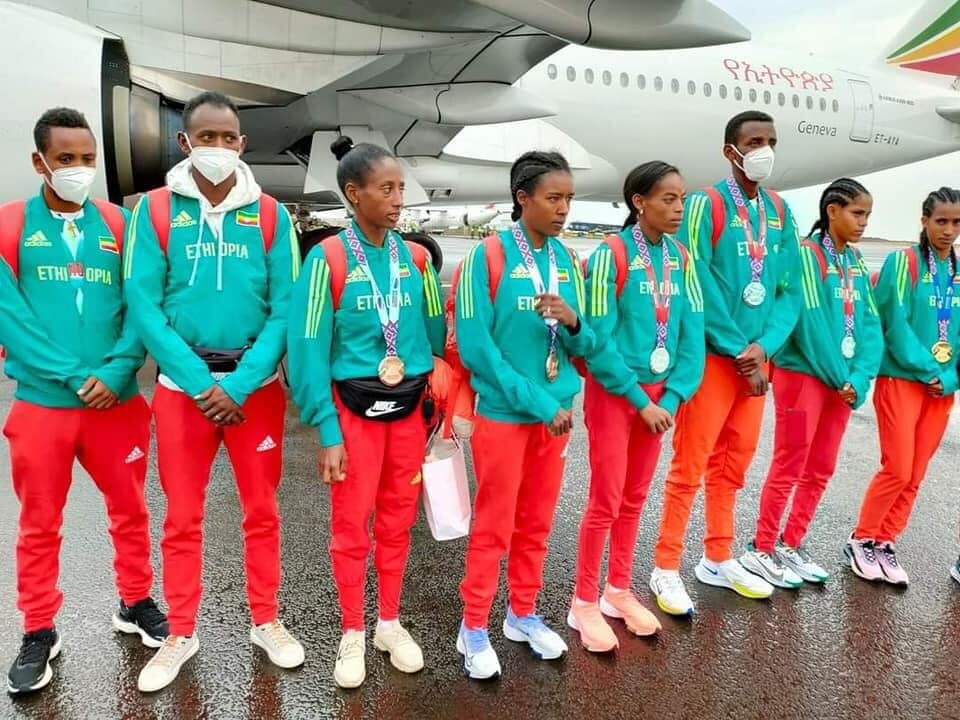
Women’s 800Habitam AlemuDiribe WeltejiHirut Meshesha (1:58.54 sb) replacing Freweyni Hailu (1:59.39 sb)
Men’s 1500Samuel TeferaTaddese Lemi (3:37.06 sb) replacing Melese Nberet (no races this year)Samuel Abate
Women’s 1500Gudaf Tsegay (3:54.21 sb) replacing Axumawit Embaye (3:58.80 sb)Freweyni Hailu (3:58.18 sb, 4th in Olympics) replacing Ayal Dagnachew (3:59.87 sb)Hirut Meshesha
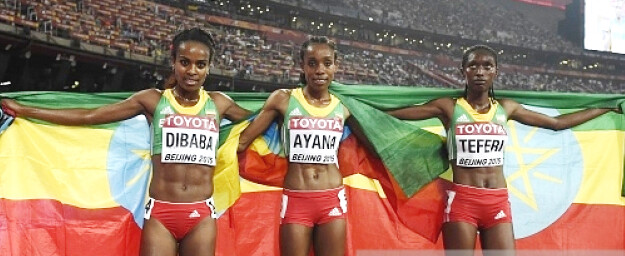
Men’s 3000 steeple (no changes)Lamecha GirmaHailemariyam AmareGetnet Wale
Women’s 3000 steepleMekides AbebeWorkua GetachewSimbo Alemayehu (9:09.17 sb at age 18) replacing Zerfe Wondemagegn (9:27.75 sb)
Men’s 5,000Muktar EdrisBerihu AregawiYomif KejelchaSelemon Barega replacing Telahun Bekele
Women’s 5,000Ejgayehu TayeLetesenbet Gidey (14:24.59 sb) replacing Gudaf Tsegay (14:26.69 sb)Dawit Seyaum (14:25.84 sb) replacing Fantu Worku (14:47.37 sb)
Men’s 10,000Selemon BaregaTadese WorkuBerihu Aregawi (26:46.13 sb) replacing Milkesa Mengesha (27:00.24 sb)
Women’s 10,000Letesenbet GideyEjgayehu Taye (30:44.68 sb) replacing Girmawit Gebrzihair (30:47.72 sb)Bosena Mulate
Men’s marathonLelisa DesisaTamirat TolaMosinet GeremewSeifu Tura
Women’s marathonGotytom GebreslaseAbabel YeshanehAshete Bekere
Quick Takes
1) Ethiopia’s team just got A LOT stronger and Ethiopia went from no one doubling to a lot of doublers
In recent years, Ethiopia has been reluctant to allow its stars to double at global championships. Last year in Tokyo, Ethiopia had two huge 5,000m medal threats in Selemon Barega (Olympic 10,000 champ) and Berihu Aregawi (the 10,000 4th placer who would go on to win the Diamond League 5,000 title) but neglected to enter either in the 5,000 meters. Of the three men Ethiopia did enter, two failed to even make the final and the third, Milkesa Mengesha, wound up 10th.
The federation took criticism after that misstep and it looked as if it would double down in 2022 as the initial team named in June featured no doublers. But the final squad features five athletes double-entered: World Indoor bronze medalist Hirut Meshesha (800/1500) and Ejgayehu Taye (14:12 pb, #5 woman all-time), Letesenbet Gidey (women’s 5k/10k world record holder), Barega and Aregawi, all of whom are running the 5,000 and 10,000.
2) The meet is more interesting with the Ethiopians doubling; the men’s 5,000 final is now totally stacked
The World Championships are meant to be about the best against the best. When a world final is over, we don’t want to be asking ourselves, “What would have happened if Athlete X was in the race?” But that’s absolutely what we were thinking after the 2021 Olympic 5000 final without Barega. And it’s been an issue for a lot longer than that. Only once in his career did Haile Gebrselassie attempt the 5,000/10,000 double at a global champs (1993), in part because there were still prelims in the 10,000 in those days and in part because he didn’t want to tire himself for the lucrative post-championship meets in Europe.
That shouldn’t be an issue in 2022 (and if it is, it won’t have been the fault of the Ethiopian federation) as the distance finals are much stronger with Taye, Gidey, Barega, and Aregawi doubling up. The men’s 5,000 could be an all-timer. Not only do you have Olympic 5,000 champion Joshua Cheptegei of Uganda, but now we have Olympic 10,000 champ Barega stepping down and Olympic 1500 champion Jakob Ingebrigtsen stepping up. It’s reminiscent of one of the most famous races in track history, the 2003 World Championship 5,000 final in Paris which featured Hicham El Guerrouj stepping up from the 1500 and Kenenisa Bekele stepping down from the 10,000 only for both of them to be defeated by an 18-year-old Eliud Kipchoge.
Having Aregawi in the 10,000 makes for a stronger race as well as he was 3rd at the Ethiopian trials in that event and set a Diamond League record for margin for victory when he ran 12:50 to win the Pre Classic 5,000 by 16 seconds.
3) Gudaf Tsegay’s medal odds went up but her gold medal odds went down
Tsegay is pretty clearly the #2 women’s 1500 runner in the world. She won World Indoors by 5+ seconds and is 3+ seconds faster than the #3 1500 woman in the world right now. But she’s also not close to double Olympic champ Faith Kipyegon, who beat her convincingly at Pre, 3:52.59 to 3:54.21.
Initially, Tsegay was entered in the 5,000 at Worlds (she ran the 5,000 only at the Olympics last year, earning the bronze medal) and while there’s no overwhelming favorite in that event like Kipyegon (well at least until we see how Sifan Hassan looks this weekend), Tsegay is not as good at the 5,000 as the 1500 (as evidenced by her defeat to countrywoman Dawit Seyaum in the 5,000 in Oslo). By running the 1500, Tsegay has a better shot at a medal but her odds at gold are worse.
4) It just got a WHOLE LOT harder for the Americans to medal
An American medal in the women’s 5,000 or 10,000 was already unlikely, so the Ethiopian roster changes didn’t make a huge impact on the chances of Karissa Schweizer or Elise Cranny. But the medal odds of Grant Fisher, who finished 5th in the Olympic 10,000 last year, are way lower today than they were a week ago (a statement also true for his US teammates Woody Kincaid and Joe Klecker).
Last Wednesday, two of the four men who finished ahead of Fisher in the 10,000 in Tokyo were major question marks. Bronze medalist Jacob Kiplimo hadn’t raced on the track all year, while Aregawi, the 4th placer, was named to Ethiopia’s team in the 5,000 only. Since then, Kiplimo ran 7:29 for 3,000 in Stockholm to show he’s very fit right now and Aregawi was added to Ethiopia’s 10,000 squad. Plus Barega was added to the 5,000.
Those developments will make it significantly harder for Fisher (or any American man in the 5,000 or 10,000) to earn a medal. That said, if an American can somehow medal, it will go down as a monumental achievement since no one can accuse these fields of being watered down.
Sinclaire Johnson‘s medal hopes in the 1500 also took a BIG hit. With Tsegay now in the 1500, two medals seem to be spoken for and new addition Freweyni Hailu, who was 4th in the Olympics last year at age 20, is better than Ayal Dagnachew (who is no slouch herself, world junior 800 champ last year and 3:59 this year).
5) Ethiopia needs to figure out a better way to do this
One of the most important jobs an athletics federation has is selecting national teams. And for countries that don’t use a “top 3 at the trials” model — which is to say, every country except for the US — things can get prickly as someone, inevitably, is going to be upset they’re missing out on the team.
There are ways to limit the outrage. The simplest solution is the one USATF has already discovered: hold a trials and just pick the top three finishers. Ethiopia actually did this ahead of the Olympics last year. The problem was, they held all the races on the same day, making it impossible for athletes to try out for both the 5,000 and 10,000 teams.
But even if you don’t want to stage a trials, a federation can avoid much of the backlash by announcing a clear criteria ahead of time and sticking to it. You want to pick the team based off season’s bests? Fine. Just let everyone know before the season starts and let them plan their races accordingly. Transparency and consistency are the keys.
Heck, even if you want to be subjective and use a selection panel, you can at least cut down on some of the drama by letting the athletes know in advance that they’ll have to run a few performances to impress the selectors.
What you don’t want to do is announce a team well before the entry deadline (and three days before two key Diamond League meets featuring most of your athletes) only to drastically change it three weeks later. Which is exactly what happened in Ethiopia, leaving athletes like Telahun Bekele (winner of the 5,000 in Oslo) to think they’re on the team only to yank it away less than a month later.
In the end, Ethiopia ended up picking the team by season’s best except in the 10,000, where it staged a trial race (and the top 3 there were the fastest 3 on the year). If it had just used that criteria throughout the year and stuck to it, there would be fewer angry people right now. The athletes deserve better.
by Jonathan Gault
Login to leave a comment
World Athletics Championships Budapest23
Budapest is a true capital of sports, which is one of the reasons why the World Athletics Championships Budapest 2023 is in the right place here. Here are some of the most important world athletics events and venues where we have witnessed moments of sporting history. Throughout the 125-year history of Hungarian athletics, the country and Budapest have hosted numerous...
more...Amazing Wins and an Event Record at the 2022 United Airlines NYC Half
The United Airlines NYC Half made a spectacular return to the streets of New York City today as the first major NYRR race back at full scale since the onset of the pandemic.
This year’s event featured the strongest professional athlete field in event history, including 23 Olympians, eight Paralympians, six half-marathon national record holders, and the defending wheelchair division champions. In ideal racing conditions, the pro races played out thrillingly over 13.1 miles of New York City streets.
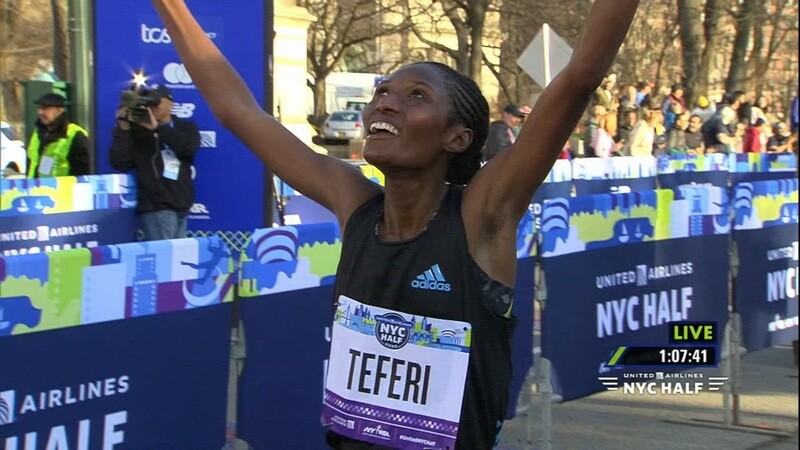
In the men’s wheelchair division, Daniel Romanchuk of the United States defended his title in a time of 49:22, more than two minutes faster than his winning time from 2019 and four minutes up on the rest of the field today. “I’m really happy to be back in New York racing and see the city so alive,” said Romanchuk a two-time Paralympic medalist and two-time TCS New York City Marathon winner.

For the women open race, Senbere Teferi of Ethiopia and Irene Cheptai of Kenya pulled ahead early and ran shoulder to shoulder in Brooklyn, across the Manhattan Bridge, and through Manhattan.
Teferi prevailed in the end, setting an event record of 1:07:35 and breaking Molly Huddle’s record by six seconds. Cheptai was also under the old record in a time of 1:07:37. “I was being very careful throughout the race and watching my pace,” said Teferi through a translator. “I’m very happy to have won.” Her victory is all the more remarkable given that she briefly took a wrong turn in the race’s final 100 meters. Karoline Bjerkeli Grøvdal of Norway was third in 1:08:07.
The men’s open division saw 22-year-old Rhonex Kipruto outlast a lead pack of four runners and break the tape in 1:00:30, just over a minute off the event record of 59:24, held by Haile Gebrselassie. Edward Cheserek of Kenya was second in 1:00:37 and Teshome Mekonen of Ethiopia finished third in 1:00:40.
“I feel good because I’ve come back again to win, and my first win was in New York,” said Kipruto, referring to his 2018 victory in the Healthy Kidney 10K in Central Park. “It was not an easy win today because the course was very hilly. It was about the win, not about the time.”
Today’s events also included the return of the Times Square Kids Run at the United Airlines NYC Half for hundreds of youth ages 8–18.
Login to leave a comment
United Airlines NYC Half-Marathon
The United Airlines NYC Half takes runners from around the city and the globe on a 13.1-mile tour of NYC. Led by a talent-packed roster of American and international elites, runners will stop traffic in the Big Apple this March! Runners will begin their journey on Prospect Park’s Center Drive before taking the race onto Brooklyn’s streets. For the third...
more...What it takes to become a Kenyan distance champion
For several generations now, Kenya has produced many of the world’s greatest distance runners.
Many athletes from elsewhere in the world, meanwhile, have tried to tap into the secrets of Kenya’s success as they try to play catch-up – quite literally – with the east African nation that continues to churn out global medallists and world record-breakers.
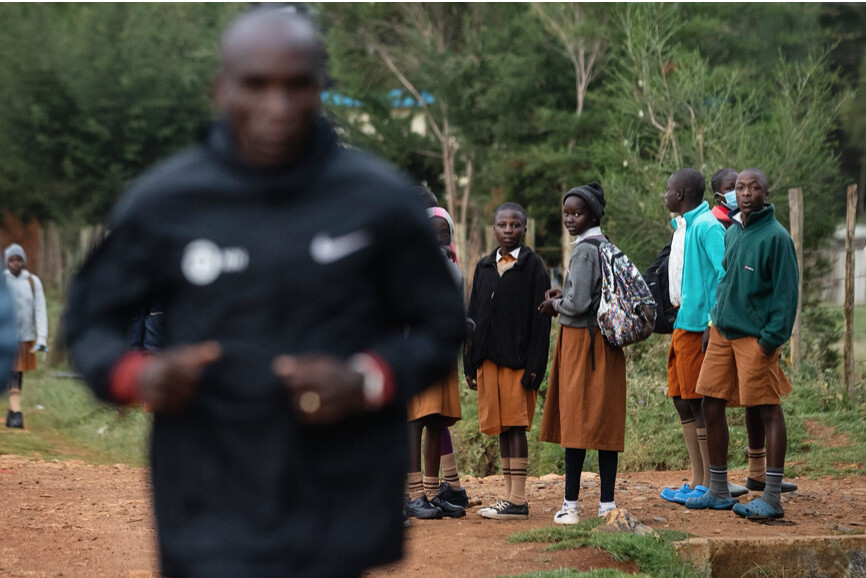
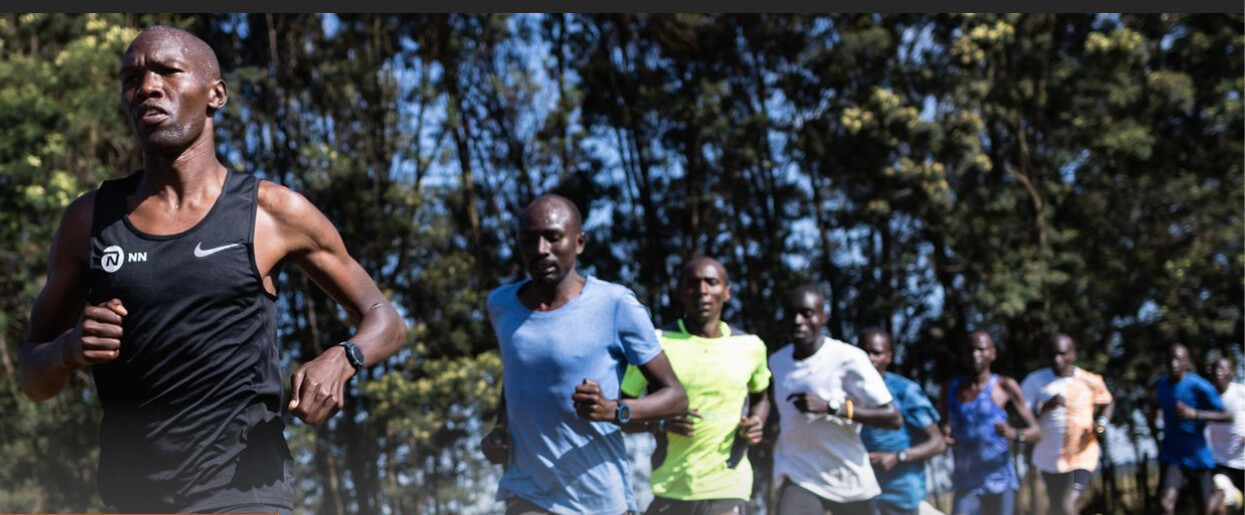
The truth is, there is no one single reason why Kenya is so dominant in distance events. It’s more down to a combination of factors, many of which were explained during a recent trip to the NN Running training camp in Kaptagat, about 24km east of Eldoret, where the likes of Eliud Kipchoge trains for 11 months of the year.
A way of life
There are few countries where people live and breathe athletics, and where the No.1 Olympic sport can claim to be more popular than football, filling entire stadiums even for age-group championships.
And while Kenya isn’t the only country in the world where kids run long distances to get to school, running has a whole different meaning to many people in the country.
Running is something that comes naturally to us as it’s something that has been part of our lifestyle since we were born,” says three-time world half marathon champion and two-time New York City Marathon champion Geoffrey Kamworor. “As a kid, I used to run from home to my school three kilometres away back and forth each day, so you end up running sometimes 12 kilometres a day as a teen without even realising it.”
Beyond being a means to an end, there is also a genuine love for running among the Kenyan population.
“As a kid, I would always go and watch athletics competitions when not at school and I enjoyed watching people competing,” added Kamworor. “It awoke my passion for running, especially seeing people cross the finish line and winning a trophy. In high school, it was always a fun and proud moment to represent your class and win a cup. I found it very encouraging.”
Having running embedded into day-to-day life sets Kenya apart from many other nations. But it’s just one of the many reasons why it is known as being the ‘home of the champions’.
Genetics
Simply running to school each day doesn’t automatically turn everyone into a world-class athlete. Genetics, as it does for every elite athlete, likely play a significant part.
Many people in the Rift Valley, where most of Kenya’s top distance runners originate, belong to the Kalenjin tribe. When compared to other Kenyan tribes, Kalenjin people are often described as having good natural running attributes: namely lean bodies and long legs.
Kipchoge, for example, isn’t particularly tall (1.67m / 5ft 6in), but the muscles on his legs are incredibly lean, his body fat percentage is low, and the strength in his feet make it appear as though he bounces along the grass.
But attributing all of Kenya’s success to just their genetics would be a gross over-simplification.
Conditions
Another element that helps Kenyan athletes in their training and preparation is the unique climate and surroundings in this part of the country. It also probably explains why there are so many training camps between Kaptagat and Iten, and why some people refer to it as the ‘Hollywood of elite runners’.
This region is located at 2500 metres above sea level, which, given the lack of oxygen, helps athletes produce a higher concentration of red blood cells and haemoglobin when training. This, in turn, gives runners an advantage when they return to lower altitudes to race.
The Eldoret region is also full of endless forests and dirt roads for athletes to use when running, while the area also enjoys a temperate climate with daytime temperatures ranging between 22-26C (68-78F) throughout the year, dropping to 10-12C (50-53F) at night time. That, combined with the good air quality, makes the area something of a distance-running paradise.
But as Kenya’s economy continues to develop, so do the local villages and the wider region, meaning many of the local dirt paths are now being made into proper roads – which is great for facilitating transport and access from other points of the country, but less so for athletes seeking a run-friendly surface.
Athletes are adapting well to this evolving environment, though, while remaining in close contact with nature. The Kalenjin community, Kipchogeand Kamworor included, are running many tree-planting initiatives. “We evolve in a very natural environment which is a great advantage when it comes to training,” says Kamworor.
Patrick Sang, the 1992 Olympic silver steeplechase medallist and head coach at the Kaptagat training camp, explains how the new generation of running shoes can help counter the effects of running on harder roads.
“New running shoes help a lot because athletes can now do a lot more training on a hard surface and still recover on time to do their next hard session,” says Sang. “Overall, you can get more work done to help improve performance.”
Sleep, eat, train, repeat
Most world-class athletes are fully committed to their sport, but the elite runners at the Kaptagat training camp in particular take dedication to a whole new level.
Many of these athletes – including young mothers such as two-time Olympic 1500m champion Faith Kipyegon – have children who are at home during the week so that they can entirely focus on their training at the camp.
“Of course, it’s very hard but that’s the only way to be fully dedicated to being the best athlete you can and avoid any distraction,” said Kipyegon.
When not running, athletes at the Kaptagat training camp are focused entirely on other elements of their training, namely recovery and nutrition.
“When you are at the camp, your sole focus is on running and you are not distracted by anything else,” says Kamworor, father to five children, including young triplets. “You are away from your family, your wife and your kids during the whole week, and that makes you take your training very seriously as you are making sacrifices to achieve your goals. That’s the only way to be focused 100% on running and to give your very best.”
As in any walk of life, hard work and having the right mind-set are key to success. Kipchoge might be the most successful athlete at the camp, but Sang says that’s not just down to his talent. “Eliud isn’t the most gifted athlete within his training group but certainly the most dedicated,” Sang says of Kipchoge, who is always the first one ready for training and the last one to leave.
In an average week, athletes at the Kaptagat camp do one long run of 30km (once a month it will be 40km), which usually takes place early on a Thursday morning. Typical track sessions, meanwhile, would be something like 8x1600m (each rep completed in 4:40) and 8x400m (at an average of 65 seconds) on their local 380m cinder track.
“Have you seen him?” Sang says when watching Kipchoge train. “This guy is a machine.”
Athletes are religious in their approach to punctuality and producing their best effort in training. And other local athletes from outside the NN Running team are welcome to join in the sessions, provided they arrive on time. After all, no one wants to be playing catch-up with the likes of Kipchoge and Kamworor.
Community
The Kaptagat training camp is run entirely by the 25 athletes who live there for 11 months a year from Monday to Saturday morning before going back to spend quality time with their family, often in the big city of Eldoret. In and around the 12 training runs they do in a typical week, the resident athletes to everything at the camp.
“If you look at life at the camp, the one making bread is an athlete, the cleaning is done by the athletes, the one doing shopping for the camp is an athlete,” says Sang. “You don’t want athletes to live on another island.
“The whole idea is to make sure these athletes become well-rounded people. You wouldn’t want to help someone become a great athlete who lacks social skills or is out of touch with society.”
Kipchoge, whose wife and three children live just 45 minutes away from the training camp, could easily go and spend time with his family during his time off, but instead he chooses to stay at the camp with the rest of the group, monastically isolated from the rest of the world.
Kipchoge is rarely bored, too. When he’s not training or resting, he will be reading or working at the camp or reading.
The sense of community extends to caring about the environment. Every athlete at the camp gets a tree planted at the entrance as a welcome gesture and to symbolise their connection to nature. Some special guests to the camp – including Ethiopian legend Haile Gebrselassie – have also had a tree planted for them in Kaptagat.
Occasionally, athletes at the camp will give each other lessons, or they will engage in real debates around serious issues, helping them develop holistically as people.
Simplicity
Far away from the latest technological innovations you often hear about in other parts of the world, daily life at the camp is basic.
Upon entering the gates at the Kaptagat training camp, the 380m cinder track is located on the left. It has a slight incline on the first bend and a couple of cows as spectators, but it meets all their needs.
“A synthetic track isn’t needed for what we do and the way we train,” says Marc Roig, a former international runner from Spain, who now works as a jack of all trades for NN Running, acting as a fitness coach, physio, runner, mentor and pacemaker. “If our athletes need a synthetic track, they can go to the one in Eldoret an hour away.” In fact, there are just four synthetic tracks in the whole of Kenya, but it’s clearly not a barrier to producing top athletes.
The runners at the camp rarely lift weights or spend time stretching, but twice a week they will do core strength sessions. Instead of water, they drink mursik – a nutritious fermented milk – in the morning and Kenyan tea in the afternoon. And not a single drop of water during their 30km long run. “That’s okay,” says Sang. “They don’t need it.”
Within the camp itself, there is a TV room with a small library corner with a few books there for the athletes, a living room for their meals, the dormitory (one for women and another for men), a basic gym comprising a bike, a treadmill, some elastic bands and a light weightlifting bar (with maximum 40kg available) and a big blue plastic drum outside used for ice baths.
It’s all quite rudimentary, but they don’t need more, and it seems to work.
The only visible ‘luxury’ – aside from the eco-friendly solar panels to get hot water – is that Kipchoge has his own bedroom. But even the king of the marathon does his fair share of the chores. He prepares tea for other athletes, and there’s a strict cleaning schedule that all athletes must stick to.
“I think that when you stop leading a simple life, your mind-set loses contact with the outside world and you lose your focus on your actual goals,” says Kipchoge. “At this point, you run the risk of forgetting about the really important things in life.”
Life at the camp is minimalistic, but nobody complains. Indeed, this simplicity is what defines them and enables the athletes to keep their focus and remain humble about who they are, where they come from and what they are here for.
Hollywood of running
To be the best, you need to surround yourself with the best – which is another reason why the Rift Valley continues to produce champion athletes.
The likes of Kipchoge, Kamworor and Kipyegon are true A-listers, but Kaptagat is filled with talented athletes who have achieved podium finishes at major championships and big city marathons.
Roig, who has a 2:18:05 marathon PB, moved to Kenya several years ago. “When I take my kids to school, I feel ashamed saying I am a runner as many of the dads there have 2:05 marathon PBs,” jokes Roig, who is now the race director for the Valencia Marathon. “There is even a mother at the school who has a PB similar to mine!”
But the Kaptagat camp isn’t the only leading training venue in the area. Iten, a small town at 2400 metres above sea level about an hour north of Kaptagat, is often referred to as the ‘home of champions’ or the ‘Hollywood of distance running’.
One of the drivers used for NN Running Team’s trip to Kenya, for example, was a former 1:06 half marathon runner. His wife, meanwhile, was a 2:21 marathon runner who finished second at the Rotterdam Marathon a couple of years ago. His neighbour is Emmanuel Korir, the Olympic 800m champion, and he is good friends with Joyciline Jepkosgei, the multiple world record-breaker and 2021 London Marathon champion.
Abdi Nageeye, the Olympic marathon silver medallist, also happened to be in Iten at the time of the trip. While ferrying around members of the media, the driver passed by a gas station named ‘Oslo’, which is one of many local businesses owned by Vivian Cheruiyot. The 2016 Olympic 5000m champion opened the station after winning at the Oslo Diamond League meeting.
One of the biggest training venues in Iten is the High Altitude Training Centre founded by multiple world half marathon champion Lornah Kiplagat, who herself is part of a highly successful family of runners, including Sylvia Kibet, Hilda Kibet and Susan Sirma. Many international athletes, including the likes of Mo Farah and Paula Radcliffe, have previously stayed there, while former steeplechaser Bob Tahri of France opened his own training centre in Iten a few years ago.
The Rift Valley – Iten and Kaptagat in particular – is like nowhere else on earth. Everybody knows a champion who is friends with another champion, who is the neighbour of another champion.
It’s yet another way – and one of the many – of becoming a great runner.
by World Athletics
Login to leave a comment
Seyaum and Yihune claim Campaccio crowns
Dawit Seyaum and Addisu Yihune achieved an Ethiopian double at the 65th edition of the Campaccio in San Giorgio su Legnano, the eighth Gold level meeting of this season’s World Athletics Cross Country Tour, on Thursday (6).
The 2022 edition of the popular Northern Italian race celebrated the 100th anniversary of the local sports club Unione Sportiva Sangiorgese.
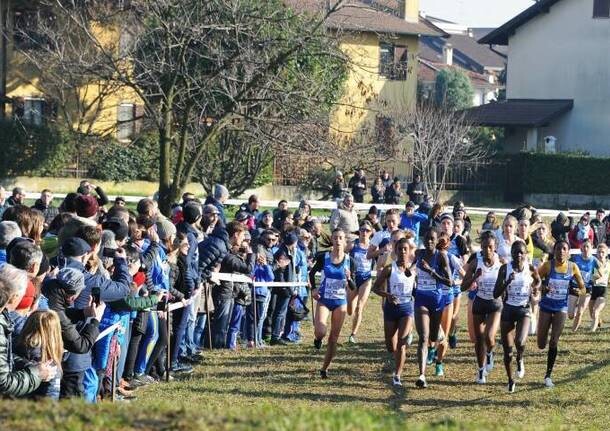
In the women’s race, Eritrea’s Rahel Daniel Ghebreyohannes took the early lead ahead of a seven-women group featuring Ethiopia’s Medina Eisa, Kenya’s world U20 champion Beatrice Chebet, Seyaum, Kenya’s Lucy Mawia, Ethiopia’s Fantaye Belayneh, Italy’s Anna Arnaudo and her compatriot Nadia Battocletti, the European U23 cross country champion. The leading pack went through the 2km mark in 6:38.
Seven runners remained at the front as the pace picked up at 4km. Seyaum changed gear, clocking a split of 2:49 between 4km and 5km. The leading pack was whittled down to five runners at 5km.
Seyaum, Chebet and Daniel Ghebreyohannes broke away with 500 metres to go and battled it out for the win. Seyaum unleashed her final kick to cross the finish line in 18:48, holding off Atapuerca cross country winner Daniel Ghebreyohannes by just one second in a close sprint. Chebet was beaten for the second time in this cross country season by Daniel Ghebreyohannes and had to settle for third place in 18:51 ahead of Belayneh (18:56) and Eisa (19:05).
Battocletti edged her Slovenian rival Klara Lukan to finish sixth in 19:06.
Seyaum claimed a back-to-back win after her recent triumph at the Boclassic 5km road race in Bolzano last Friday.
The men’s race saw a big group featuring Kenya’s Vincent Kipkurui Too, Emmanuel Korir Kiplagat and Amos Serem, together with Ethiopia’s Yihune, Eritrea’s Aron Kifle and Italian runners Iliass Aouani, Yohanes Chiappinelli and Eyob Ghebrehiwet Faniel, go through 3km in 8:43.
Too set the pace at the front of an eight-man group, closely followed by Serem, Kiplagat, Kifle, Yihune and Faniel during the third lap. They went through 4km in 11:46 and 5km in 14:30.
Aouani was the first to drop back at 7km and the leading group was whittled down to seven athletes. Kiplagat then moved to the front ahead of six other runners: Serem, Kifle, Faniel, Too, Yihune and Chiappinelli.
The first significant move came at 8km when Yihune, Kiplagat, Too, Serem and Kifle picked up the pace and pulled away from marathon runner Faniel by two seconds. Yihune pushed on at the front and increased his lead during the last lap, going on to cross the finish line in 28:39 with a six-second gap over Kiplagat.
Serem, who won the world U20 gold medal in the 3000m steeplechase in Nairobi last August, won a very close sprint for third place in 28:53, holding off Too. Kifle rounded out the top five in 28:59.
Faniel finished sixth as the first Italian athlete in 29:15, beating European 3000m steeplechase bronze medallist Chiappinelli (29:21) and Italian cross country champion Aouani (29:45).
Yihune joined the list of Ethiopian stars who have won the Campaccio race, that includes Haile Gebrselassie, Kenenisa Bekele, Muktar Edris, Imane Merga and Hagos Gebrhiwet.
Yihune, who will turn 19 in March, finished fourth in the 5000m at the World U20 Championships in Nairobi and clocked a PB of 12:58.99 over this distance in Hengelo last June.
“I felt confident during the race that I could win, as I knew that I was well prepared,” said Yihune. “I train with Selemon Barega. He is my role model.”
by World Athletics
Login to leave a comment
Githae wins final edition of Fukuoka Marathon
Michael Githae was victorious at the 75th and final edition of Fukuoka International Marathon on Sunday (5), winning the World Athletics Elite Label road race in 2:07:51.
Githae, who runs for Suzuki track team, improved his previous best of 2:08:17, which he set when finishing fourth at last year’s Fukuoka Marathon. Japan’s Kyohei Hosoya finished second, 25 seconds adrift of Githae.
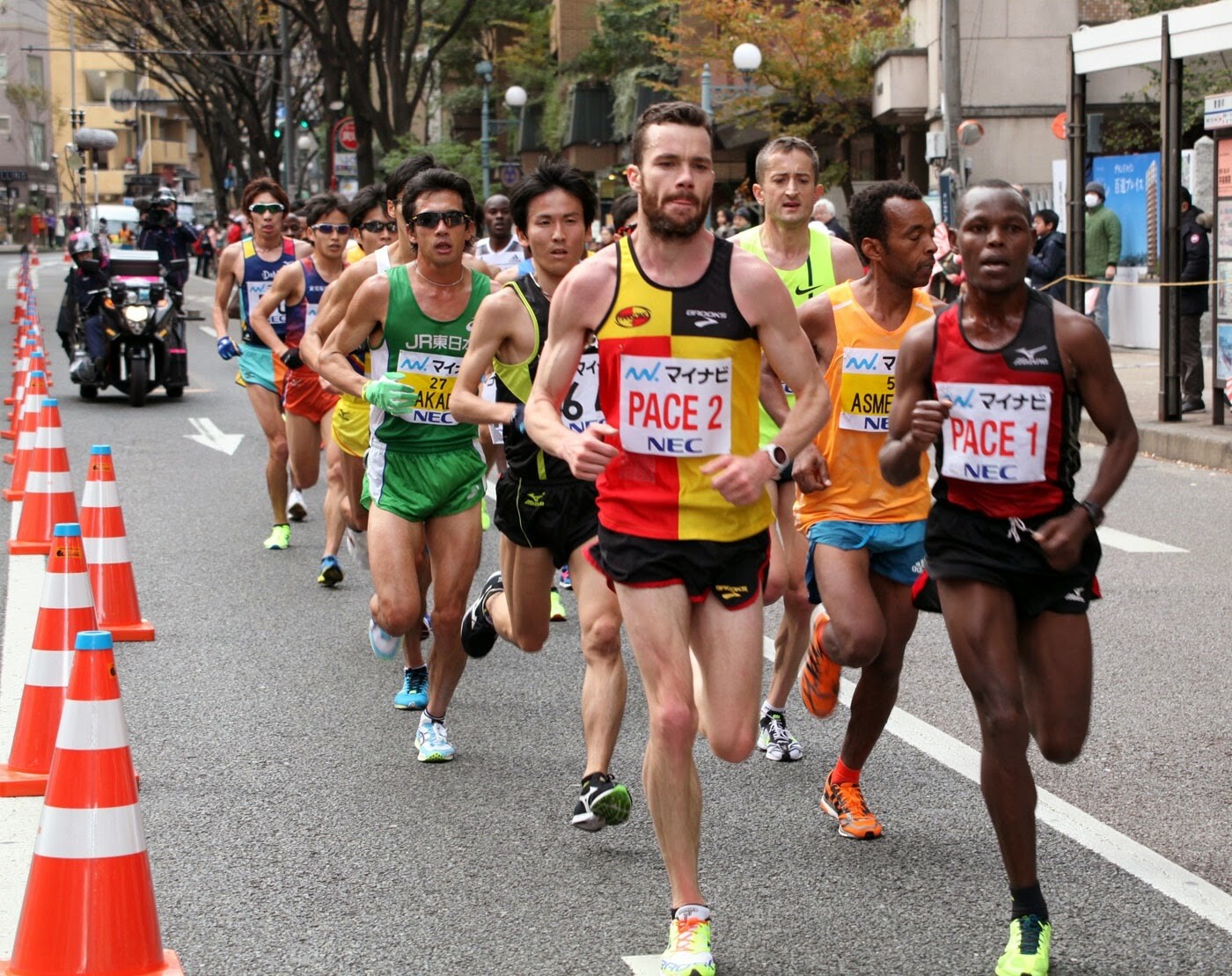
The pacers, led by 2012 Olympian Yuki Sato, directed the huge lead pack through 5km (14:47), 10km (29:39), 15km (44:30) and 20km (59:24) in what turned out to be something of a race of attrition. Yuta Shitara was one of the athletes to fall out of contention before the half-way stage; the former national marathon record-holder dropped out at 20km.
The half-way point was reached in 1:02:41, meaning an attack on the 2:05:18 course record was not out of the question. Simon Kariuki and Charles Wanjiku kept the pace going at the start of the second half, and 30km was reached in 1:29:08. But the pacemakers dropped out soon after, and the pace dramatically slowed down.
Nevertheless, the pack became strung out to almost a single file, and by 34km just Githae, James Rungaru, Hosoya and Ryu Takaku remained in contention. Soon after, Githae surged and Hosoya made a valiant effort to stay close but Githae gradually pulled away to win by 25 seconds in 2:07:51.
In third, Rungaru set a PB of 2:08:25, while fourth-placed Shohei Otsuka and Ryu Takaku and Daisuke Uekado in fifth and sixth respectively were just outside their PBs. Yuki Kawauchi, running his 12th Fukuoka Marathon, fittingly finished 12th in 2:11:33. He is planning on running the Hofu Marathon in two weeks’ time.
Looking back at Fukuoka's history
The Fukuoka International Marathon – which was awarded a World Athletics Heritage Plaque in 2019 – started in 1947 and is the second oldest marathon in Japan behind the now defunct Lake Biwa Marathon.
In its 75-year history, the world record was broken twice there – first in 1967 when Derek Clayton became the first runner to break 2:10 with 2:09:37, and then in 1981 when fellow Australian Rob de Castella ran 2:08:18.
De Castella isn’t the only global marathon champion to have contested the race over the years. Frank Shorter, the 1972 Olympic champion, notched up four consecutive Fukuoka Marathon victories between 1971 and 1974. 2000 Olympic champion Gezahegn Abera won in 1999, 2001 and 2002, while 1996 Olympic champion Josiah Thugwane won in 1997. The late Samuel Wanjiru, winner of the 2008 Olympic title, made a remarkable marathon debut in Fukuoka in 2007, winning in 2:06:39. And two-time world champion Jaoud Gharib won in 2010.
Numerous world record-holders have also competed in Fukuoka, including Haile Gebrselassie (winner in 2006), Belayneh Dinsamo (1990 winner) and Patrick Makau (2014 and 2015 champion).
Japanese runners have also enjoyed moments of victory in Fukuoka. Toshihiko Seko won four times (1978-1980 and 1983), and Takeyuki Nakayama won twice (1984 and 1987). During his 1987 run, Nakayama was on world record pace through 20km (58:37) and 35km until a heavy downpour in the closing stages slowed him down, and he eventually finished in 2:08:18.
When asked about the end of the Fukuoka Marathon, four-time winner Seko said: “It is like part of my history is being erased.”
Japan Running News, a leading authority on the sport in Japan, has produced a docu-film on the Fukuoka Marathon, entitled ‘Inside the Outside – When the World Came to Fukuoka’.
Leading results
1 Michael Githae (KEN) 2:07:512 Kyohei Hosoya (JPN) 2:08:163 James Rungaru (KEN) 2:08:254 Shohei Otsuka (JPN) 2:08:335 Ryu Takaku (JPN) 2:08:386 Daisuke Uekado (JPN) 2:08:567 Kohei Futaoka (JPN) 2:09:148 Masaya Taguchi (JPN) 2:09:359 Toshiki Sadakata (JPN) 2:10:3110 Takuma Kumagai (JPN) 2:10:4111 Ryota Komori (JPN) 2:11:3212 Yuki Kawauchi (JPN) 2:11:33
Login to leave a comment
Ethiopia's Haile Gebrselassie and Feyisa Lilesa ready to join Tigray war
Ethiopian Olympic heroes Haile Gebrselassie and Feyisa Lilesa say they are ready to go to the front line in the war against rebel forces.
Their announcement comes after Prime Minister Abiy Ahmed said he would go to the front to lead the war.
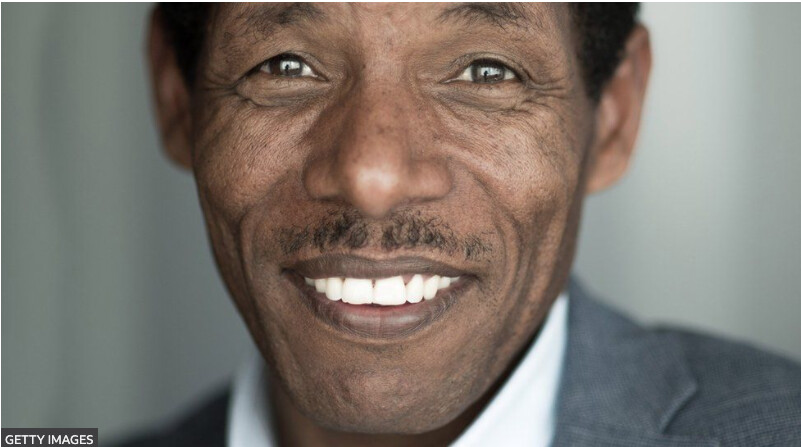
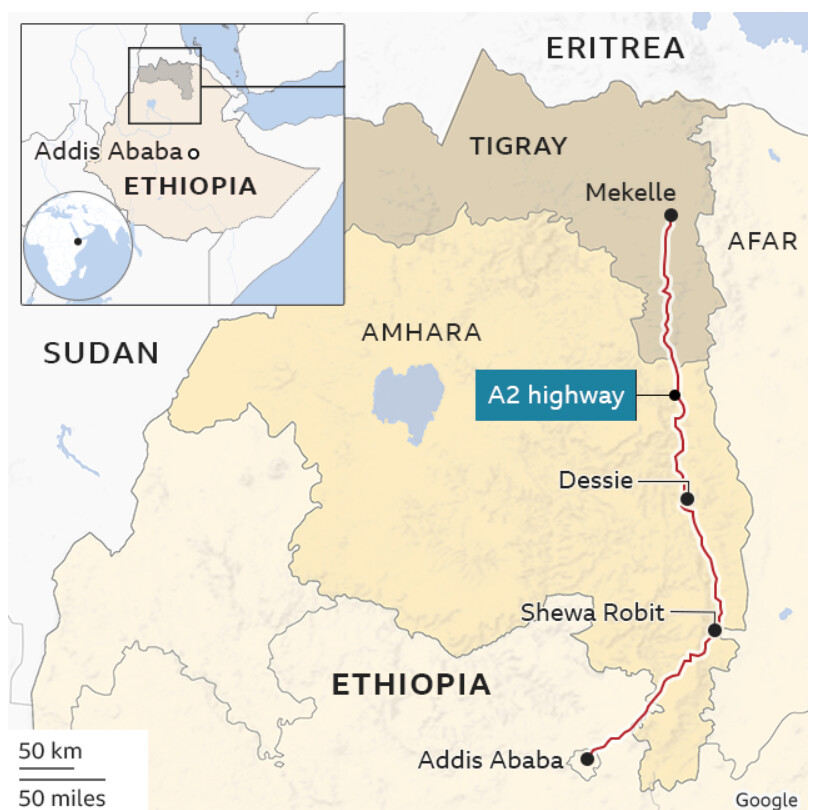
Tigrayan rebels say they are advancing towards the capital Addis Ababa.
The UK has urged its nationals to leave Ethiopia immediately, saying the fighting may move closer to Addis Ababa in the coming days.
The rebels earlier this week said that they had taken control of Shewa Robit, a town about 225km (140 miles) north-east of Addis Ababa. There is no independent confirmation of the claim.
Communication Minister Legese Tulu said the military has had "many successes" since Mr Abiy's decision to lead the battle, and victory was "so close".
Earlier, Gebrselassie, 48, was quoted by state television as saying: "I am ready to do whatever is required of me, including going to the front line."
Gebrselassie is regarded as a legend in Ethiopia, and his comments were seen as an attempt to rally public support behind the war effort.
During his 25-year career as an athlete, he claimed two Olympic gold medals, eight World Championship victories and set 27 world records. He announced his retirement from competitive running in 2015.
Expressing his support for the war, Feyisa, 31, was quoted by the state-affiliated Fana Broadcasting Corporation website as saying that he was ready to draw inspiration from the "gallantry of my forefathers" and go to the front line to "save my country".
The athlete won the marathon silver at the 2016 Rio Olympics.
He became famous for holding up his crossed wrists as if they were shackled to draw global attention to the crackdown on demonstrators demanding political reforms in Ethiopia.
The Tigray People's Liberation Front (TPLF) was the dominant party in government at the time. Following the protests, Mr Abiy became prime minister and the TPLF lost the grip on the country it had held for 27 years.
It later retreated to its stronghold of Tigray, from where it launched a rebellion last November after a huge fall-out with Mr Abiy over his reforms.
The war has created a massive humanitarian crisis, leaving thousands dead, forcing millions from their homes, and several hundred thousand in famine-like conditions as aid agencies battle to get food in war-affected areas.
The African Union is leading efforts to find a negotiated end to the fighting, but neither side has committed to talks.
The TPLF are advancing towards Addis Ababa on the A2 highway.
On Tuesday, Germany and France advised their citizens to leave Ethiopia.
The prospect of some of Ethiopia's most venerated sporting figures heading to the front lines to fight captures something profound and powerful about the mood in Addis Ababa and beyond.
At a time of intense crisis, many Ethiopians are clearly rallying behind their flag and prime minister, and are keen to play their part in galvanising public support for a military campaign that has suffered undeniable setbacks in recent months, though much remains in dispute in terms of casualty figures and battlefield momentum.
It is clear many people see the military threat posed by the TPLF and their assorted allies as an existential one for Ethiopia.
Added to that is a profound dislike of the TPLF itself, which stems from its decades heading an authoritarian national government. But there is more to it than that.
The prime minister has sought to portray his country as a victim, not just of Tigrayan aggression, but of a vast international conspiracy designed to weaken Ethiopia and punish it for, allegedly, challenging Western colonial interests on the continent.
Western media are portrayed as enthusiastic backers of that conspiracy theory - one which appears to have gained widespread credibility in a country struggling to explain how the rebel group could have made such startling headway.
by BBC
Login to leave a comment
Ethiopia's Haile Gebrselassie and Feyisa Lilesa ready to join Tigray war
Ethiopian Olympic heroes Haile Gebrselassie and Feyisa Lilesa say they are ready to go to the front line in the war against rebel forces.
Their announcement comes after Prime Minister Abiy Ahmed said he would go to the front to lead the war.
Tigrayan rebels say they are advancing towards the capital Addis Ababa.
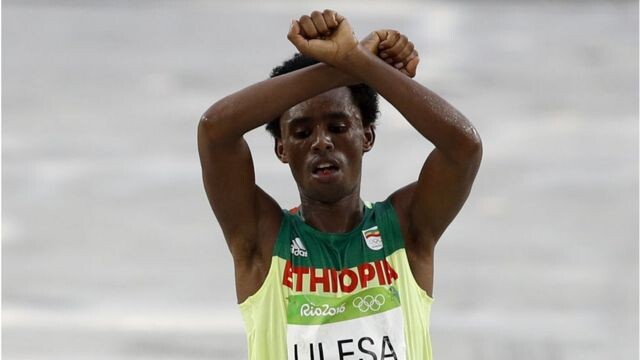
Germany and France have become the latest countries to advise their citizens to leave Ethiopia, amid an escalation in the civil war.
On Tuesday, US envoy to the region Jeffrey Feltman warned that tentative diplomatic progress towards ending the conflict was being jeopardised by alarming developments on the ground.
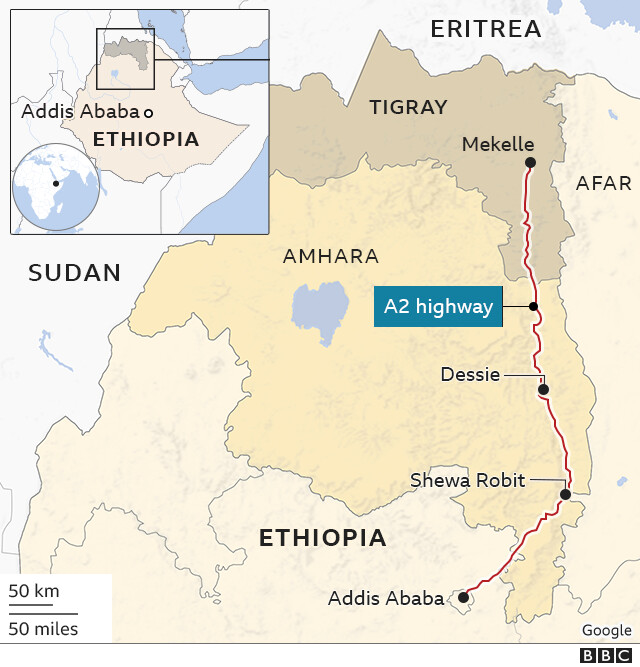
The rebels earlier this week said that they had taken control of Shewa Robit, a town about 225km (140 miles) north-east of Addis Ababa. There is no independent confirmation of the claim.
Communication Minister Legese Tulu said the military has had "many successes" since Mr Abiy's decision to lead the battle, and victory was "so close".
With Mr Abiy gone to direct the war effort, his deputy, Demeke Mekonnen Hasse, had taken charge of routine government business, a spokesman was quoted by state-linked media as saying.
Mr Abiy's announcement has bolstered recruitment for the army, with hundreds of new recruits attending a ceremony, marked by patriotic songs, in Addis Ababa on Wednesday.
Communication Minister Legese Tulu said the military has had "many successes" since Mr Abiy's decision to lead the battle, and victory was "so close".
Earlier, Gebrselassie, 48, was quoted by state television as saying: "I am ready to do whatever is required of me, including going to the front line," he said.
Gebrselassie is regarded as a legend in Ethiopia, and his comments were seen as an attempt to rally public support behind the war effort.
During his 25-year career as an athlete, he claimed two Olympic gold medals, eight World Championship victories and set 27 world records. He announced his retirement from competitive running in 2015.
Expressing his support for the war, Feyisa, 31, was quoted by the state-affiliated Fana Broadcasting Corporation website as saying that he was ready to draw inspiration from the "gallantry of my forefathers" and go to the front line to "save my country".
The athlete won the marathon silver at the 2016 Rio Olympics.
He became famous for holding up his crossed wrists as if they were shackled to draw global attention to the crackdown on demonstrators demanding political reforms in Ethiopia.
The Tigray People's Liberation Front (TPLF) was the dominant party in government at the time. Following the protests, Mr Abiy became prime minister and the TPLF lost the grip on the country it had held for 27 years.
It later retreated to its stronghold of Tigray, from where it launched a rebellion last November after a huge fall-out with Mr Abiy over his reforms.
The war has created a massive humanitarian crisis, leaving thousands dead, forcing millions from their homes, and several hundred thousand in famine-like conditions as aid agencies battle to get food in war-affected areas.
The African Union is leading efforts to find a negotiated end to the fighting, but neither side has committed to talks.
The TPLF are advancing towards Addis Ababa on the A2 highway, having previously said they had taken Kemise.
The prospect of some of Ethiopia's most venerated sporting figures heading to the front lines to fight captures something profound and powerful about the mood in Addis Ababa and beyond.
At a time of intense crisis, many Ethiopians are clearly rallying behind their flag and prime minister, and are keen to play their part in galvanising public support for a military campaign that has suffered undeniable setbacks in recent months, though much remains in dispute in terms of casualty figures and battlefield momentum.
It is clear many people see the military threat posed by the TPLF and their assorted allies as an existential one for Ethiopia.
Added to that is a profound dislike of the TPLF itself, which stems from its decades heading an authoritarian national government. But there is more to it than that.
The prime minister has sought to portray his country as a victim, not just of Tigrayan aggression, but of a vast international conspiracy designed to weaken Ethiopia and punish it for, allegedly, challenging Western colonial interests on the continent.
Western media are portrayed as enthusiastic backers of that conspiracy theory - one which appears to have gained widespread credibility in a country struggling to explain how the rebel group could have made such startling headway.
by BBC News
Login to leave a comment
Ethiopian Kenenisa Bekele will be making his TCS New York City Marathon debut this sunday
As a four-time Olympic medalist, 16-time world champion and the second-fastest marathoner in history, Kenenisa Bekele is one of the world’s greatest long-distance runners of all-time. In 2021, he will making his TCS New York City Marathon debut.
Bekele is the second of six children and began running in primary school when he was inspired by Haile Gebrselassie. With the natural ability to accelerate very quickly at the end of long-distance races, Bekele worked his way up the junior and senior international competition circuit, ultimately winning the 10,000-meter world title at the 2003, 2005, 2007, and 2009 World Athletics Championships, in addition to the 5,000-meter title in 2009. He held both the 5,000 and 10,000 meter world records for nearly 15 years until they were broken in 2020.
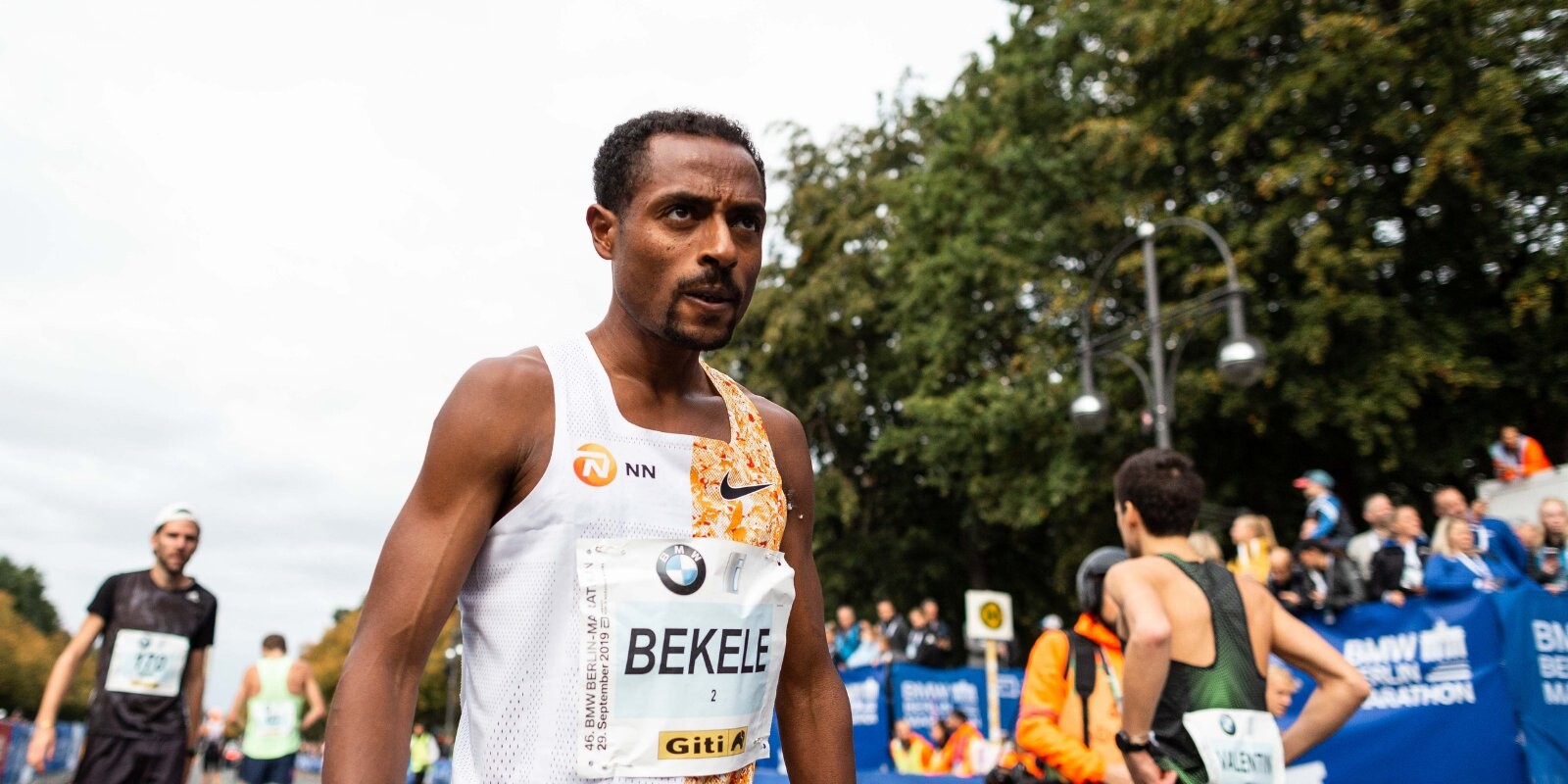
In his Olympic debut at the Athens 2004 Games, he won gold in the 10,000 and silver in the 5,000, and four years later in Beijing took gold in both distances. During that time, he also won 11 gold medals at the World Cross Country Championships.
In 2014, he produced the sixth fastest marathon debut ever, winning the Paris Marathon in a course-record time of 2:05:04. In 2016, he won the Berlin Marathon in what was then the third-fastest time in history. He has also finished on the podium twice at the London Marathon.
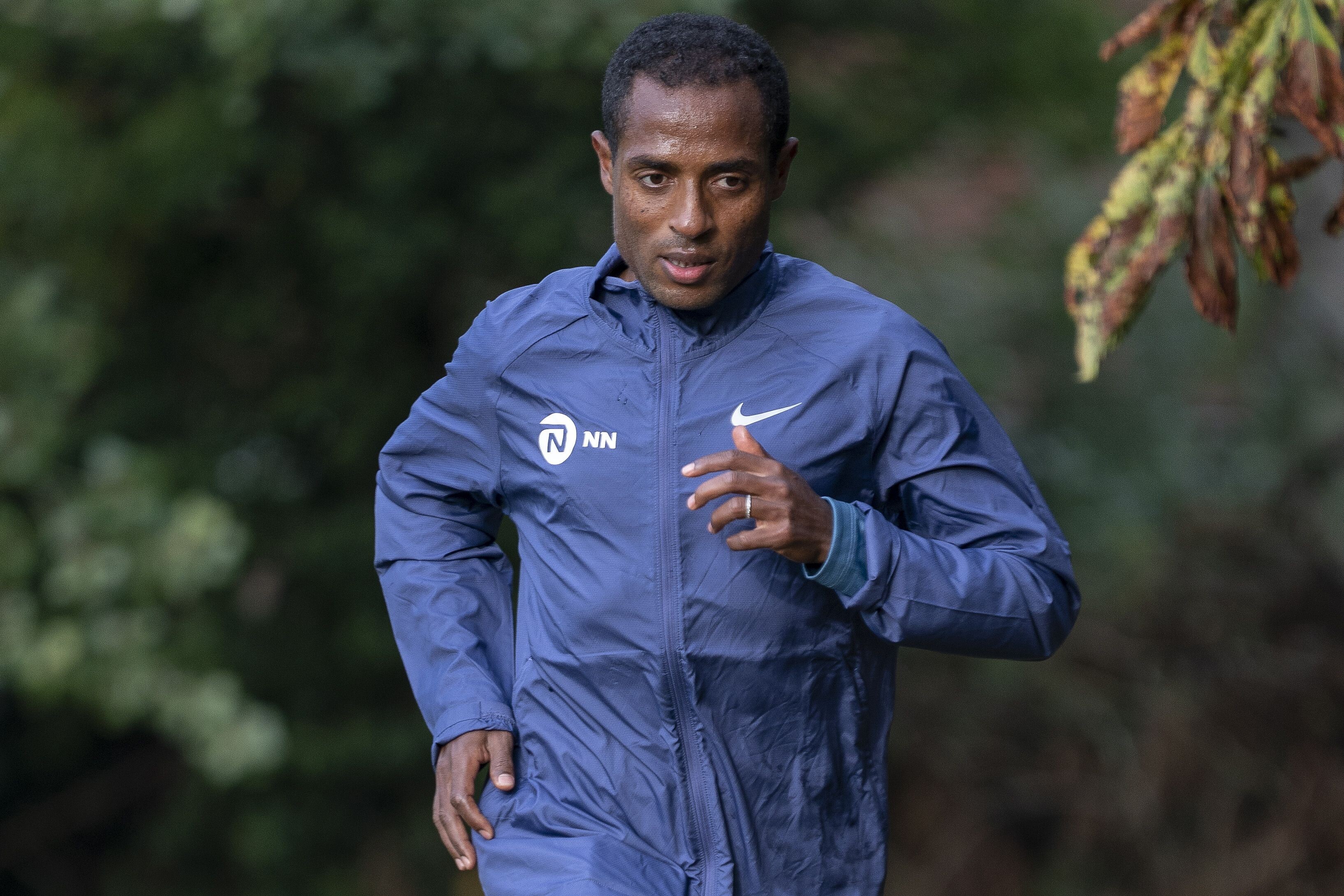
Bekele’s most recent marathon appearance was one for the history books, winning the 2019 Berlin Marathon in the second-fastest time ever, only two seconds off the world-record time set by Eliud Kipchoge in Berlin the year prior.
He is married to Ethiopian actress Danawit Gebregziabher and off the track owns a construction business, having built commercial buildings in the Addis Ababa and Arsi regions of Ethiopia.
Login to leave a comment
TCS New York City Marathon
The first New York City Marathon, organized in 1970 by Fred Lebow and Vince Chiappetta, was held entirely in Central Park. Of 127 entrants, only 55 men finished; the sole female entrant dropped out due to illness. Winners were given inexpensive wristwatches and recycled baseball and bowling trophies. The entry fee was $1 and the total event budget...
more...The basics, benefits and limits of altitude training
For years, altitude training has formed an important part of the training of many endurance athletes who cite it as a core part of their season. Here we break down the basic theory behind it, the difficulties athletes must overcome and the main spots to do it.
Though different definitions exist of what constitutes altitude training, we will, for the sake of clarity, consider altitudes in the region of 1500m to 3000m above sea level.
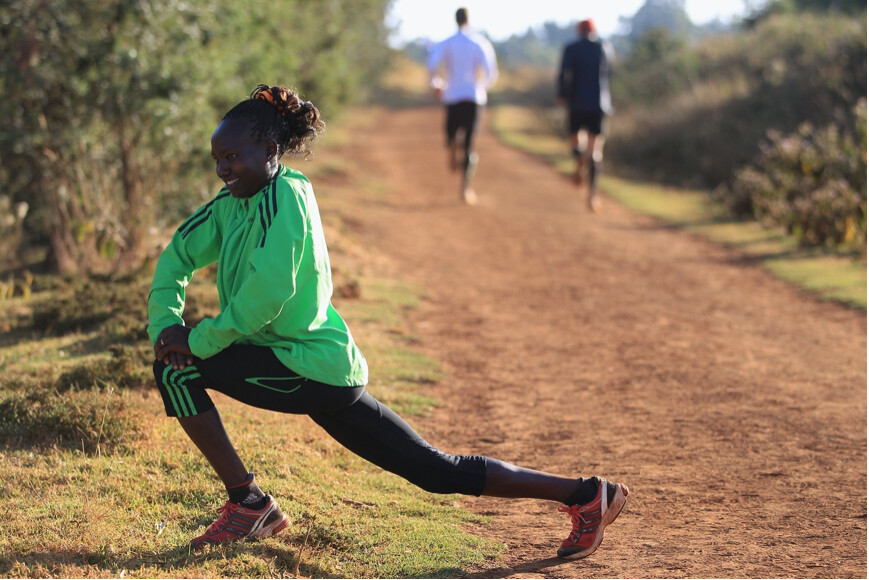
The theory behind altitude training
In simple terms, the oxygen inhaled from the air people breathe affects the energy their muscles receive to perform physical activities. Oxygen is carried around the body within red blood cells and helps the molecules in muscles perform their functions.
The higher the altitude, the lower the atmospheric pressure, which makes it harder for the body to transfer the oxygen into the blood. This is why people can often feel lethargic at altitude.
In response to this situation, the brain triggers the increased production of the hormone erythropoietin (EPO), encouraging the body to make more red blood cells to better transport the oxygen available. This means, over time, the body begins to transport the limited oxygen better than when it first arrived at altitude.
When an athlete then returns to sea level this increased level of red blood cells, coupled with the higher atmospheric pressure, means the body is better able to transport oxygen than it was before and an athlete’s aerobic capacity is increased.
The body will, over time, return to normal levels of red blood cell production if the process is not repeated and the time taken for this to happen will vary from one athlete to the next.
How long do people train at altitude for?
It takes time for the body to adapt to higher altitude and many of the effects do not occur until after a prolonged period of time. Various studies suggest there is no increase in red blood cell count within the first seven to 10 days, meaning usually athletes choose to spend a minimum of three to four weeks at altitude.
Some athletes choose to be based at high altitude throughout the year (e.g. Boulder in Colorado, Iten in Kenya and Addis Ababa in Ethiopia), coming down to sea level for shorter periods around a racing season.
The difficulties of living at altitude
Early on in any stay at altitude individuals will likely find themselves to be lethargic as their body responds to the lower atmospheric pressure. Other side effects can include headaches and difficulty sleeping but these will often wear off as the body slowly adjusts to its new environment.
In extreme cases and at the highest altitudes (usually in excess of 3000m), severe failures to adjust can result in acute mountain sickness (AMS) with a range of possible harmful effects.
Athletes will also find it difficult to replicate the pace they are able to run at sea level because of their body’s reduced ability to transport the available oxygen.
Many will therefore choose to head to lower altitude to perform much of their more intense training. This approach is generally referred to as “live high, train low” but it is an approach only possible where different altitudes exist in close proximity.
Where do people train at altitude?
There are a number of locations where athletes choose to train across the world but some locations are particularly popular. These include Iten (c. 2400m) in the Rift Valley, home to many famous athletes including Mary Keitany and Lornah Kiplagat.
Over the border in Ethiopia, established camps exist in Sululta (c. 2700m) and in the capital Addis Ababa (c. 2355m), with products including Kenenisa Bekele and Haile Gebrselassie.
Europe plays host to a number of Alpine and Pyrenees resorts, including Font Romeu (c. 1850m) in France, and St Moritz (c. 1856m) in Switzerland.
The USA has a number of high altitude hubs, with Boulder (c. 1624m) in Colorado a huge centre of North American running as well as Flagstaff (c. 2106m) in Arizona and Albuquerque (c. 1619m) in New Mexico.
Other locations include Mexico City (c. 2240m), Potchefstroom (c. 1378m) in South Africa, Falls Creek (c. 1600m) in Australia and Ifrane (c. 1660m) in Morocco. All locations come with their various pros and cons so it is important to research properly prior to any trip to altitude.
Are there alternatives to training at altitude?
Some athletes choose to replicate the experience of living in these locations through an altitude tent. These tents reduce the amount of oxygen within them and can be lived and slept in without the need to move location. Some see this as a less expensive and more pragmatic alternative to long trips away from home.
by World Athletics
Login to leave a comment
Double Olympic gold medalist Derartu Tulu claims Ethiopian drug problems caused by athletes chasing quick money
Tulu has accused Ethiopian runners of chasing “quick money” and turning to performance-enhancing drugs to help them.
Ethiopia are one of seven countries currently listed as a category A nation by the Athletics Integrity Unit, meaning they considered more at risk at doping that others.
Restoring their reputation is seen as one of Tulu’s main tasks following her election as permanent President of the Ethiopian Athletics Federation (EAF) last December.
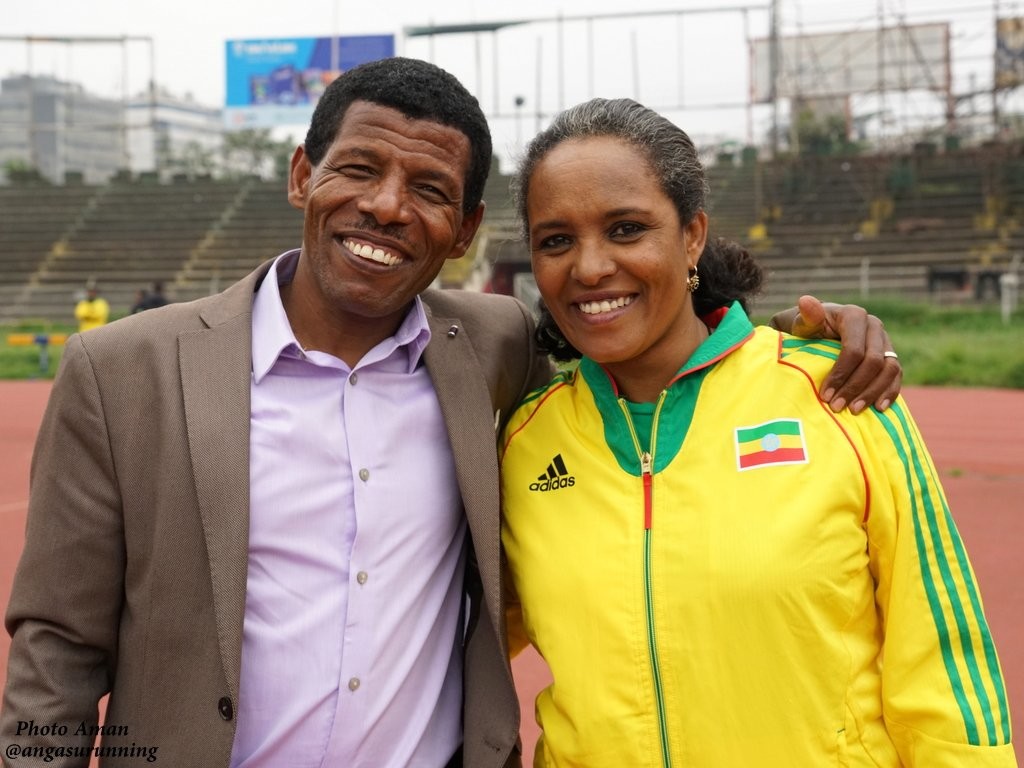
Tulu, the first black African woman to win an Olympic gold medal when she triumphed at Barcelona 1992, had been serving in the role since November 2018 following the resignation of fellow distance runner Haile Gebrselassie.
Doping products are reportedly easily available in Addis Ababa, World Athletics has warned.
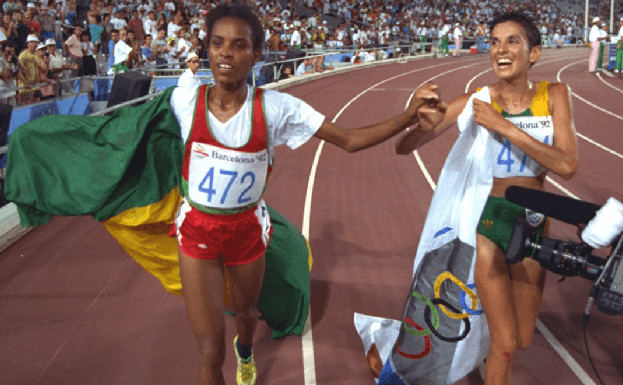
Following their inclusion on the category A list, the EAF launched a major education programme among young athletes to warn them of the dangers of doping.
"In our time, we used to compete clean," Tulu told The Daily Nation in Kenya during the recent World Athletics U20 Championships in Nairobi.
"Sheer talent drove us to victory, and it was healthy competition but today the desire for quick money is pushing athletes to use drugs.
"That is why you see some athlete doing well for a short time before disappearing after few years."
Tulu’s first Olympic victory in Barcelona entered Games legend when she beat Elena Meyer in an iconic race at South Africa's first Games appearance since the end of apartheid.
Then, eight years later in Sydney, Tulu won her second 10,000m title before returning at Athens 2004 to win a bronze medal.
Tulu's victory at Barcelona 1992 saw Ethiopia win their first Olympic gold medal for 12 years.
Since then, they have won at least one gold medal in every Olympic Games.
Their best performance came at Beijing 2008 when they won a total of seven medals - four gold, two silver and a bronze.
Ethiopia only won one gold medal at Tokyo 2020 - Selemon Barega in the men’s 10,000m – along with a silver and two bronze, their worst performance since Barcelona 1992.
"Athletics is changing, and we need to change with time," Tulu told The Daily Nation.
"Many countries are coming up fast.
"We witnessed this during the 2020 Olympic Games.
"Competition has become tougher, but we are constantly trying to nurture new talents."
by Duncan Mackay
Login to leave a comment
Dagmawit Amare takes over at Great Ethiopian Run
Dagmawit Amare has been appointed as the new General Manager of Great Ethiopian Run, taking over from Ermias Ayele who has been the GM for the past 11 years. Dagmawit becomes the third GM in the company’s 20-year history and the first female to lead the company.
Speaking about her appointment, Haile Gebrselassie, Patron of the Great Ethiopian Run, said: “This is a great opportunity for Dagi to lead the company. She is a very humble person, but she is also very smart. She has a wonderful gift of empowering others to do their work well. We are lucky to have her to lead us in the next phase of our work.”
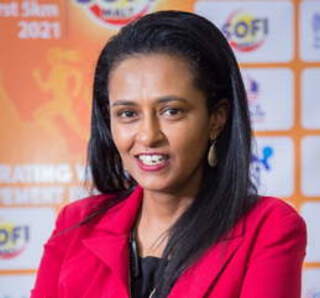
Having started to work for the company 17 years ago, Dagmawit is also Great Ethiopian Run’s longest-serving employee. Over many years she has masterminded the company’s work of mobilising large numbers of participants to register for their races. As a passionate lover of Ethiopian music, she has also been instrumental in bringing live music bands to the events and two years ago worked with an Ethiopian dance group to introduce a unique dance routine as part of the participant warm-up for the international 10km.
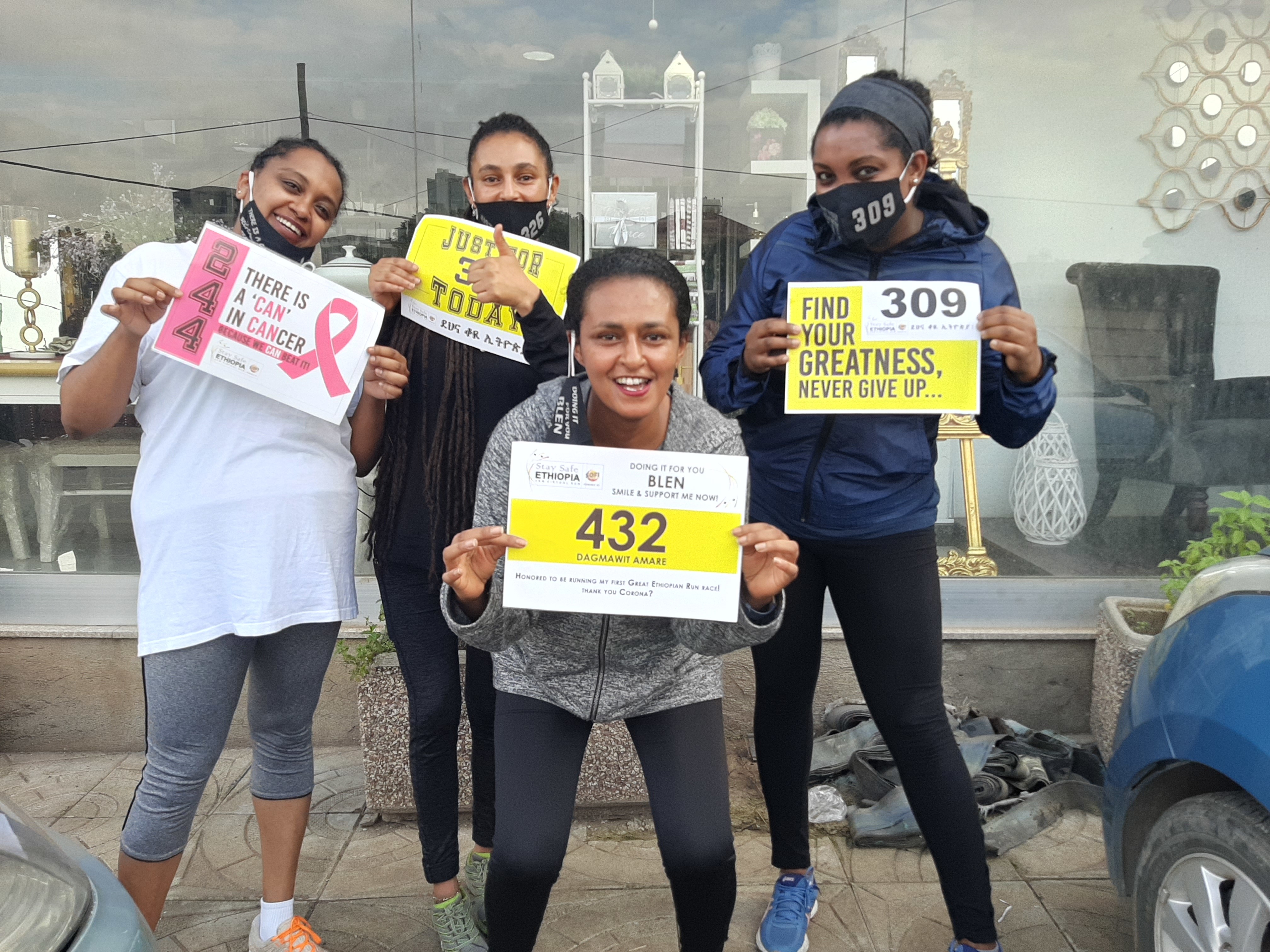
Former General Manager Richard Nerurkar recalls how Dagmawit has also been passionate about making a success of the annual women’s run: “From her earliest years she was totally committed to seeing this race grow into what it has now become. She loves creating enjoyment for our participants. Another example of this is our annual Pasta Party which nowadays has the feel of a special Gala Dinner. But what I value most about Dagi is the way she takes care of others. For the past 17 years she has been the glue which has kept us together as a happy and successful team.”.
The same point is made by Dagim Teshome who as Operations Director has worked closely with Dagi for the past 14 years. “With Dagi, nothing she does is about herself. It’s about our races and our team. It’s about us as an organisation and about us doing something for Ethiopia.” Ruth Duncan, who has worked as part of the Event Hospitality Team for the past 17 years, said: “Dagi is the perfect person to take over the driving seat at Great Ethiopian Run. Her friendly professionalism and passion for sharing Ethiopia’s running culture have been central to the way in which our races have sent out so many positive messages about Ethiopia and its welcome to the outside world.”
Dagmawit’s popularity outside the office has also been evident in tributes made by those who know her both as a person and as an event professional. Chachi Tadesse, one of Ethiopia’s well-known singers who regularly attends races organised by Great Ethiopian Run, commented: “Dagi is a wonderful person to be around – always positive, totally committed and incredibly humble. I’m excited to see how she will lead the organisation and the new ideas she will bring to her work.” Hannah Gebreselassie, an Ethiopian sports journalist, was equally upbeat when she heard about the appointment. “I was over the moon when I heard this news. Dagi will have her own special style of leadership and will want to help others do their work well.”
Login to leave a comment
the Great ethiopian 10k run
The Great Ethiopian Run is an annual 10-kilometerroad runningevent which takes place inAddis Ababa,Ethiopia. The competition was first envisioned by neighbors Ethiopian runnerHaile Gebrselassie, Peter Middlebrook and Abi Masefield in late October 2000, following Haile's return from the2000 Summer Olympics. The 10,000 entries for the first edition quickly sold out and other people unofficially joined in the race without...
more...Paul Chelimo is chasing the American indoor 5,000m record this Thursday
If the Olympic silver medalist Paul Chelimo accomplishes his goal, he stands to be the first American man to run under 13 minutes in the indoor 5,000m.
The track meet is being staged by the American Distance Project with strict COVID-19 mitigation protocols, which means there will be no spectators, coaches or competitors outside the American Distance Project’s training group bubble.
The race is being held with the goal of chasing the Olympic and U.S. Olympic Trials qualifying time, as well as Galen Rupp’s seven-year-old indoor record of 13:01.26.
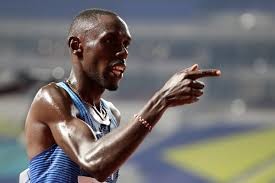
According to a press release on LetsRun.com, the meet will consist of just a 5,000m and a 10,000m race for both men and women, and will be held on Virginia’s new 200-metre hydraulically banked indoor track.
Athletes will also be using the Light Speed Pacing System, which is a wireless LED pacing that assists runners with setting target paces. Other athletes in the impressive field include Leonard Korir (13:15.45), and NCAA Champions Lawi Lalang (13:00.95 outdoor) and Anthony Rotich (13:31.95), among others.
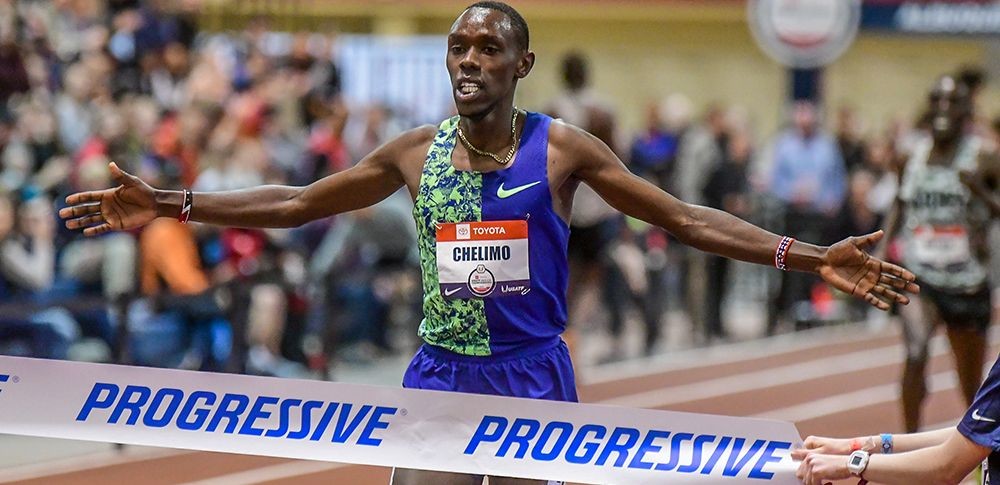
Chelimo is currently ranked sixth in the world in the men’s outdoor 5,000m and owns a PB of 12:57.55, which he set in 2018. Should he achieve his goal of breaking Rupp’s indoor 5,000m American record, that will put him in the top 10 in the world at the indoor event, along with world record-holder Kenenisa Bekele (who ran 12:49.6 in 2004), Haile Gebrselassie (12:50.38 from 1999) and four other men who have run under 13 minutes in the indoor 5,000m.
In order to run under 13 minutes, Chelimo’s pace will have to be less than 2:36 per kilometre, or 31 seconds per lap of the indoor track. With that in mind, the American record is certainly a lofty goal, but Chelimo must be in good shape if he’s planning on going after it.
In a short season that has been packed with incredible performances, this would be yet another record to add to the books, and the eyes of the track world will certainly be watching on Thursday to see if Chelimo gets the job done.
by Brittany Hambleton
Login to leave a comment


